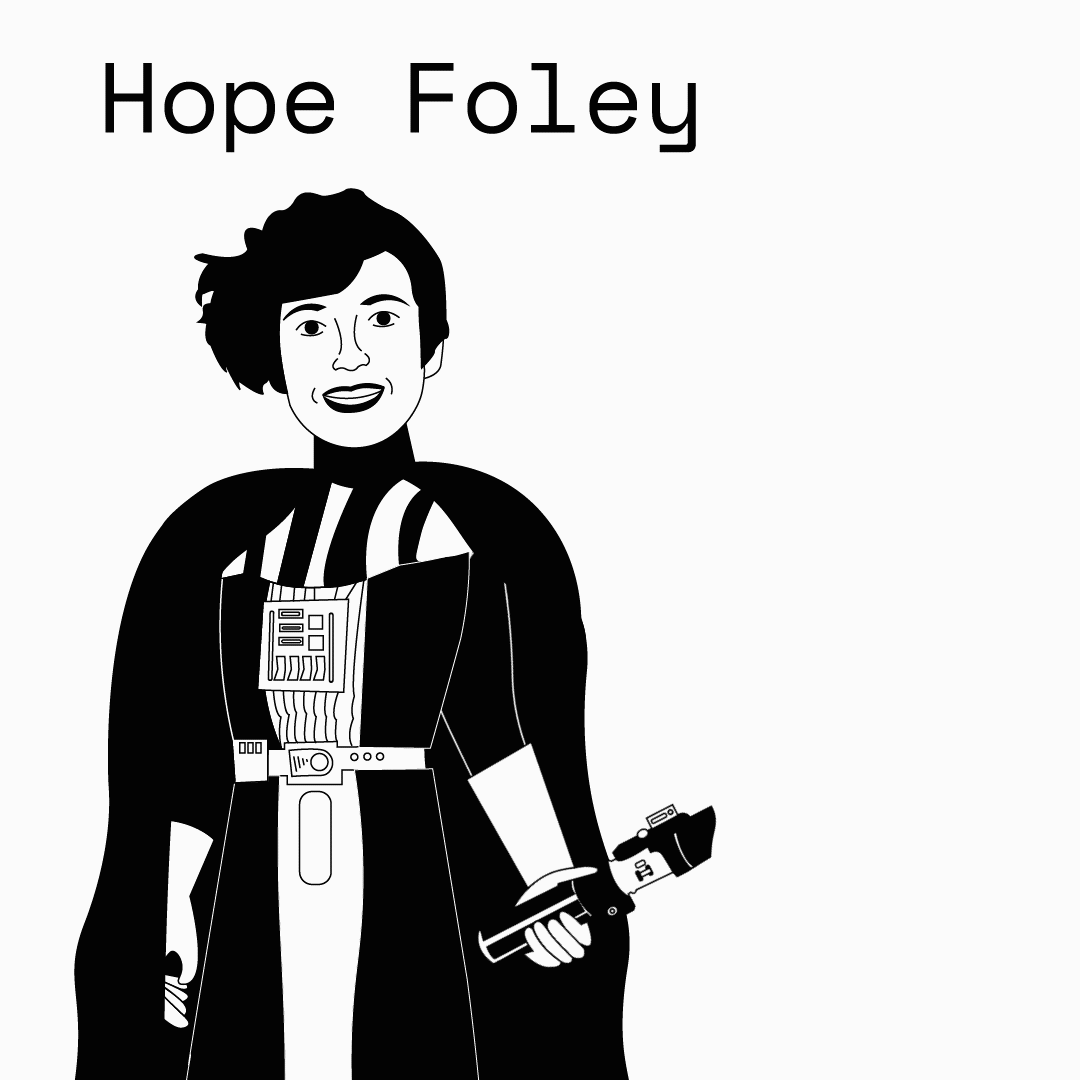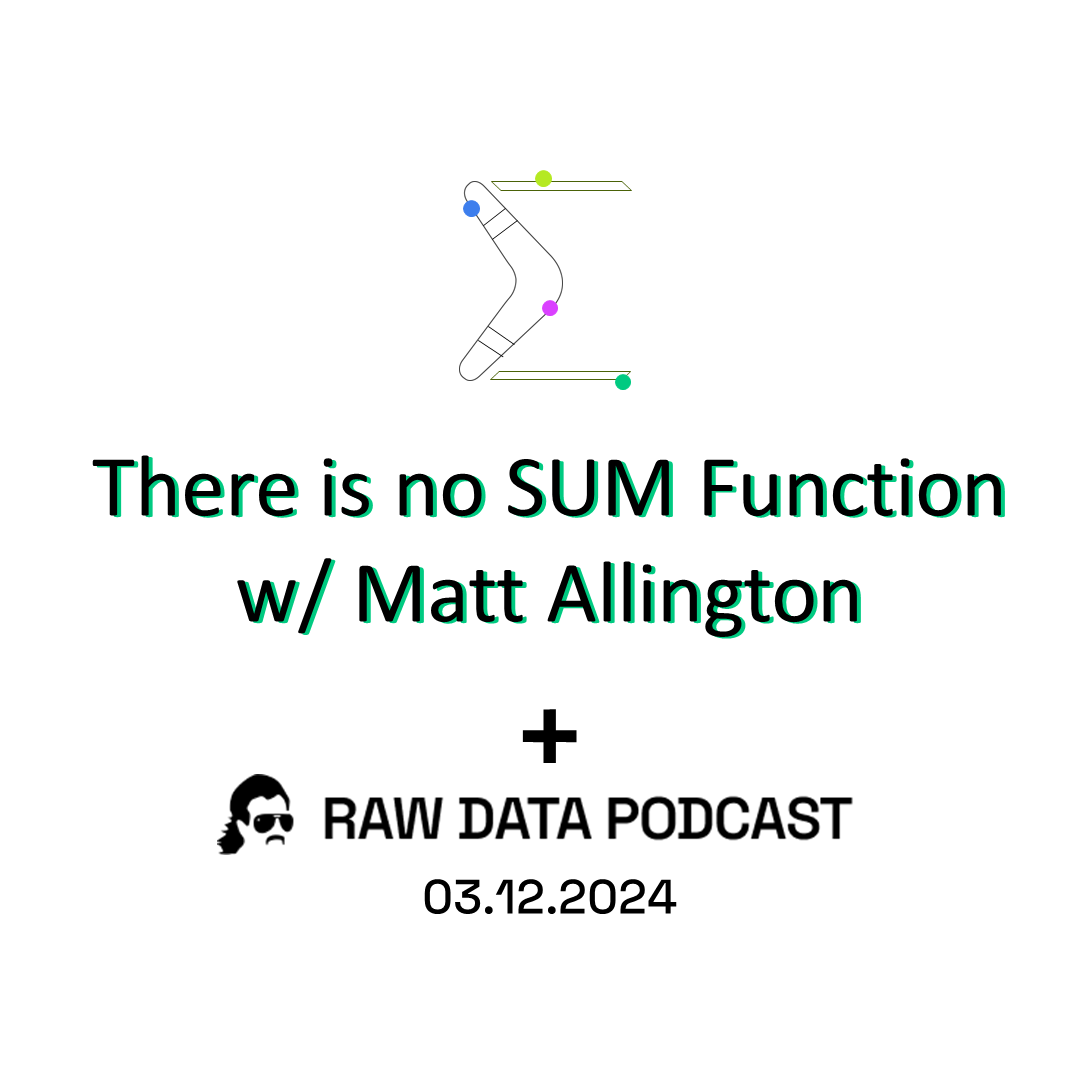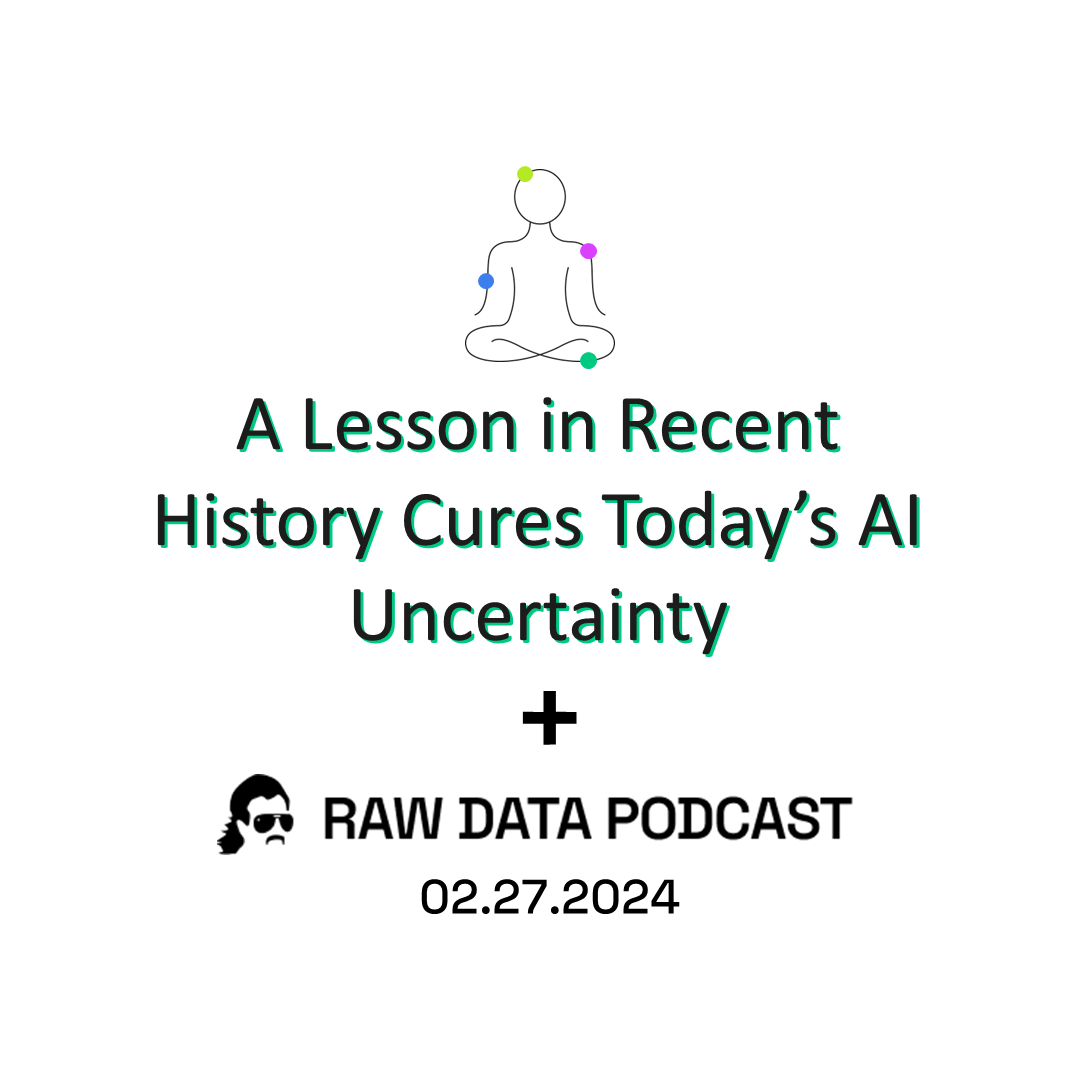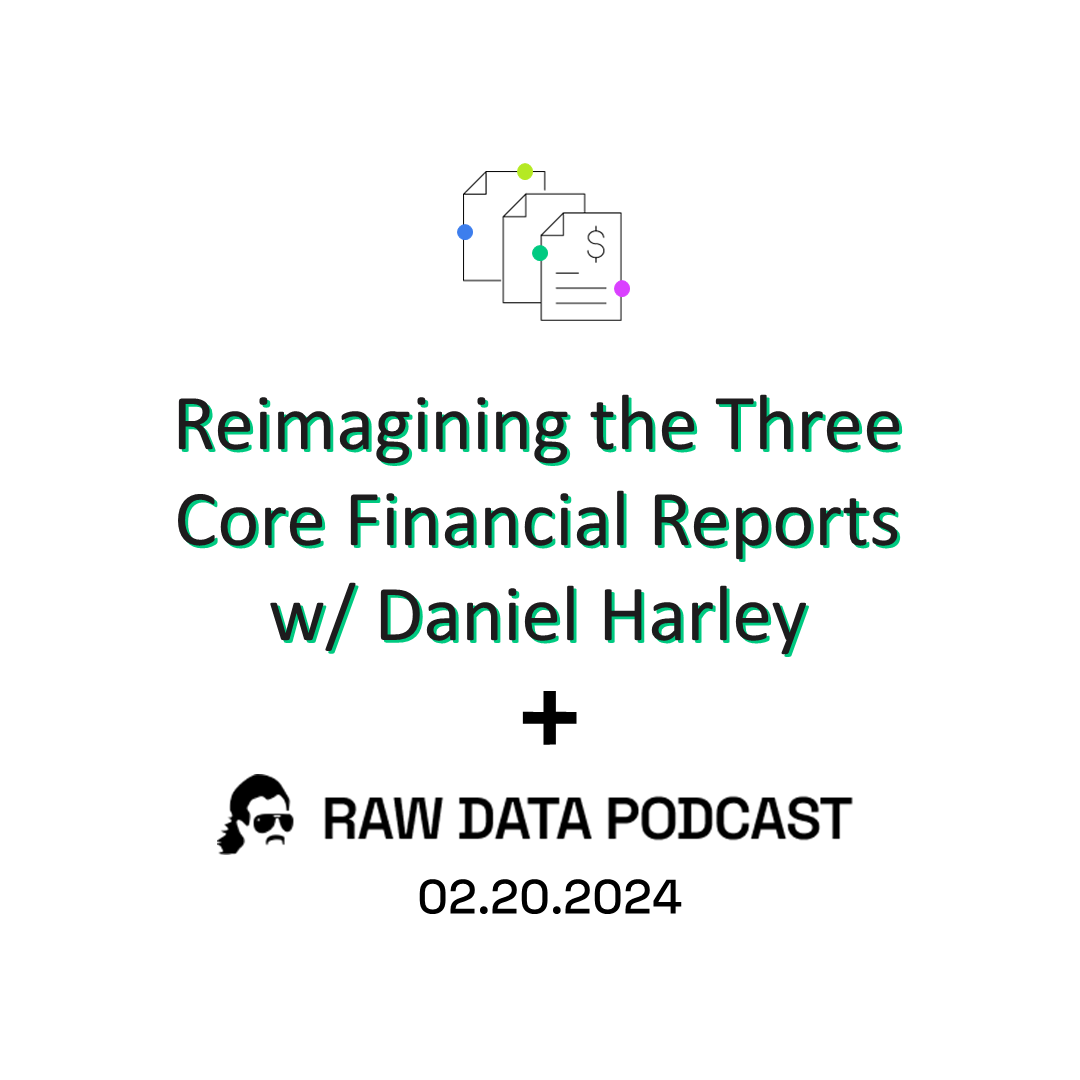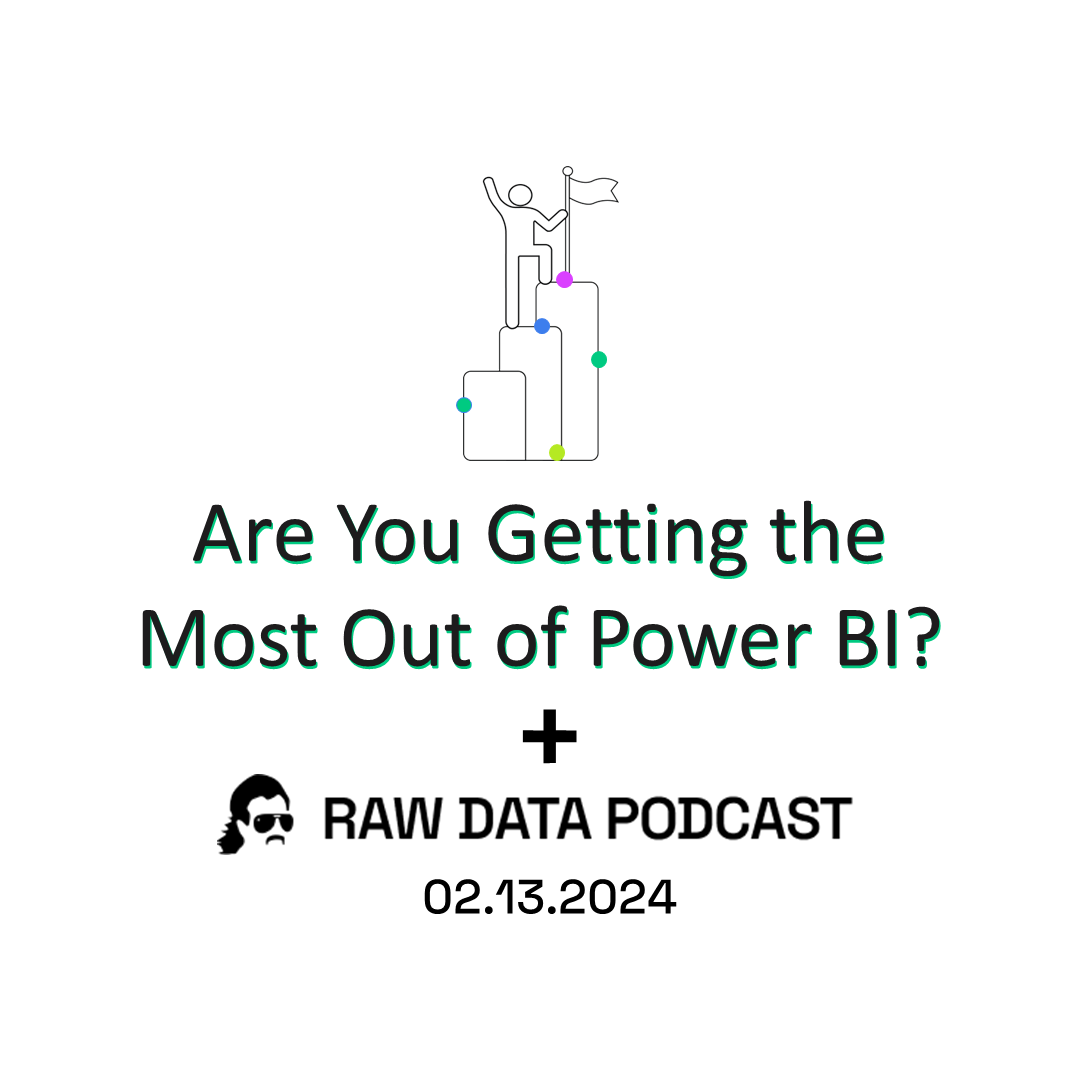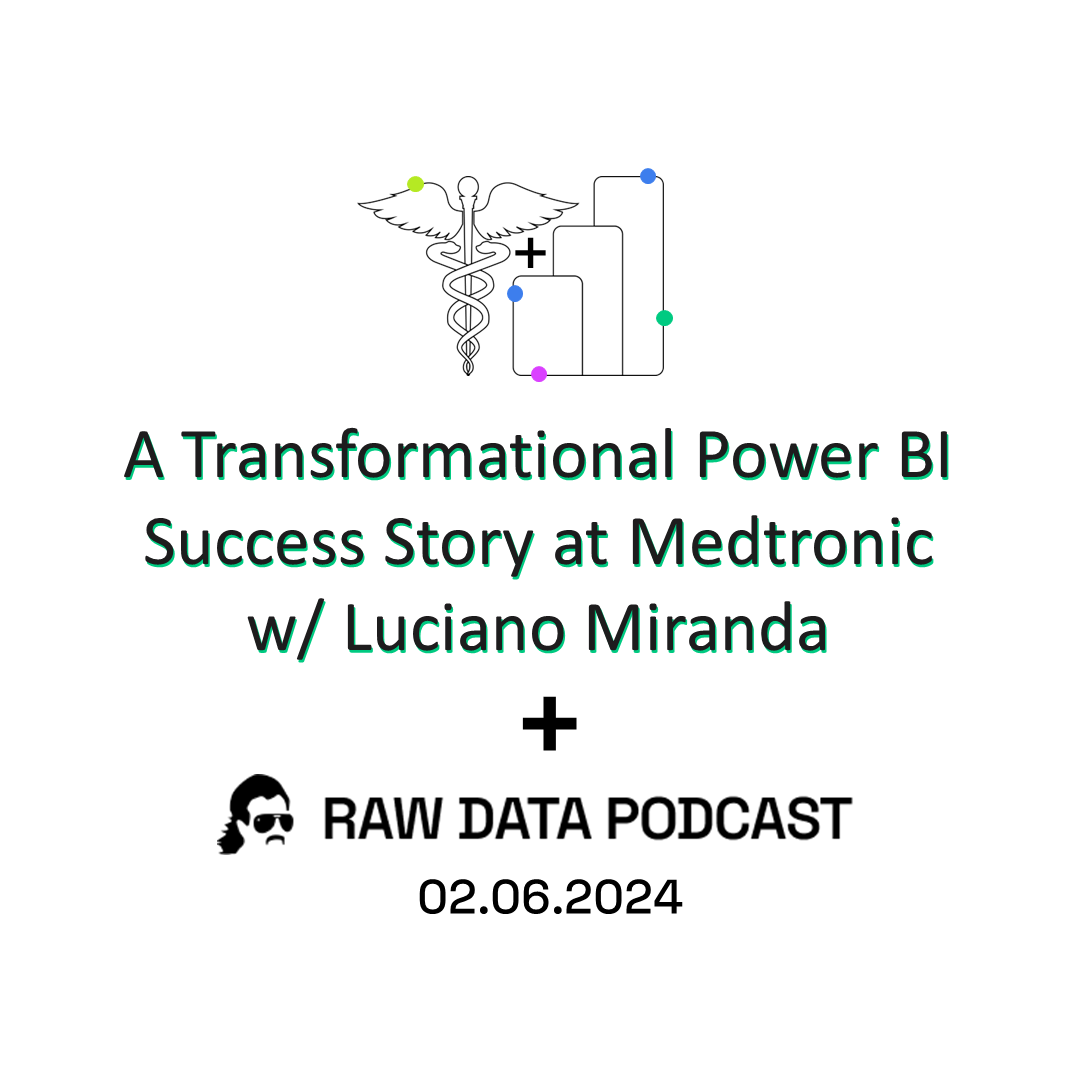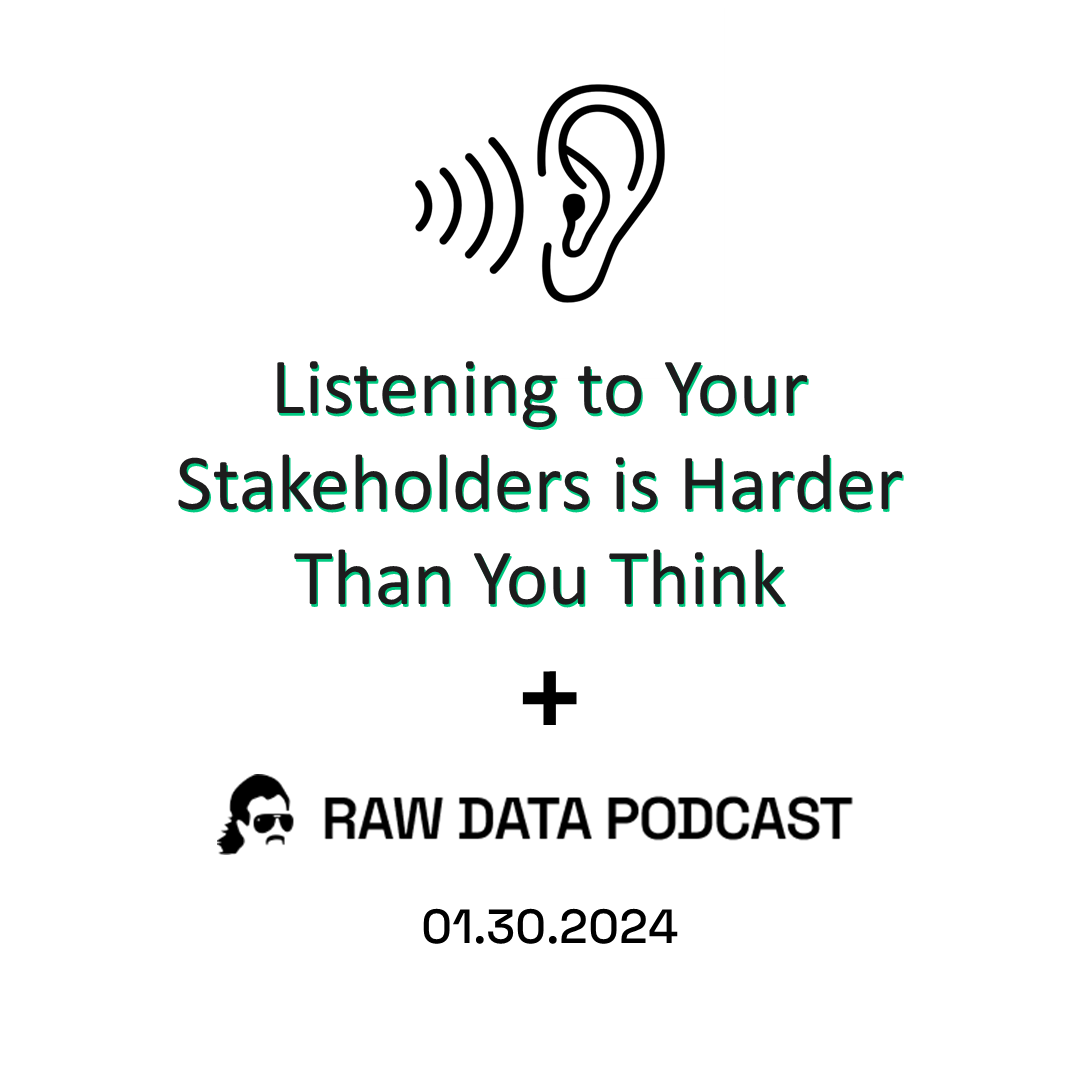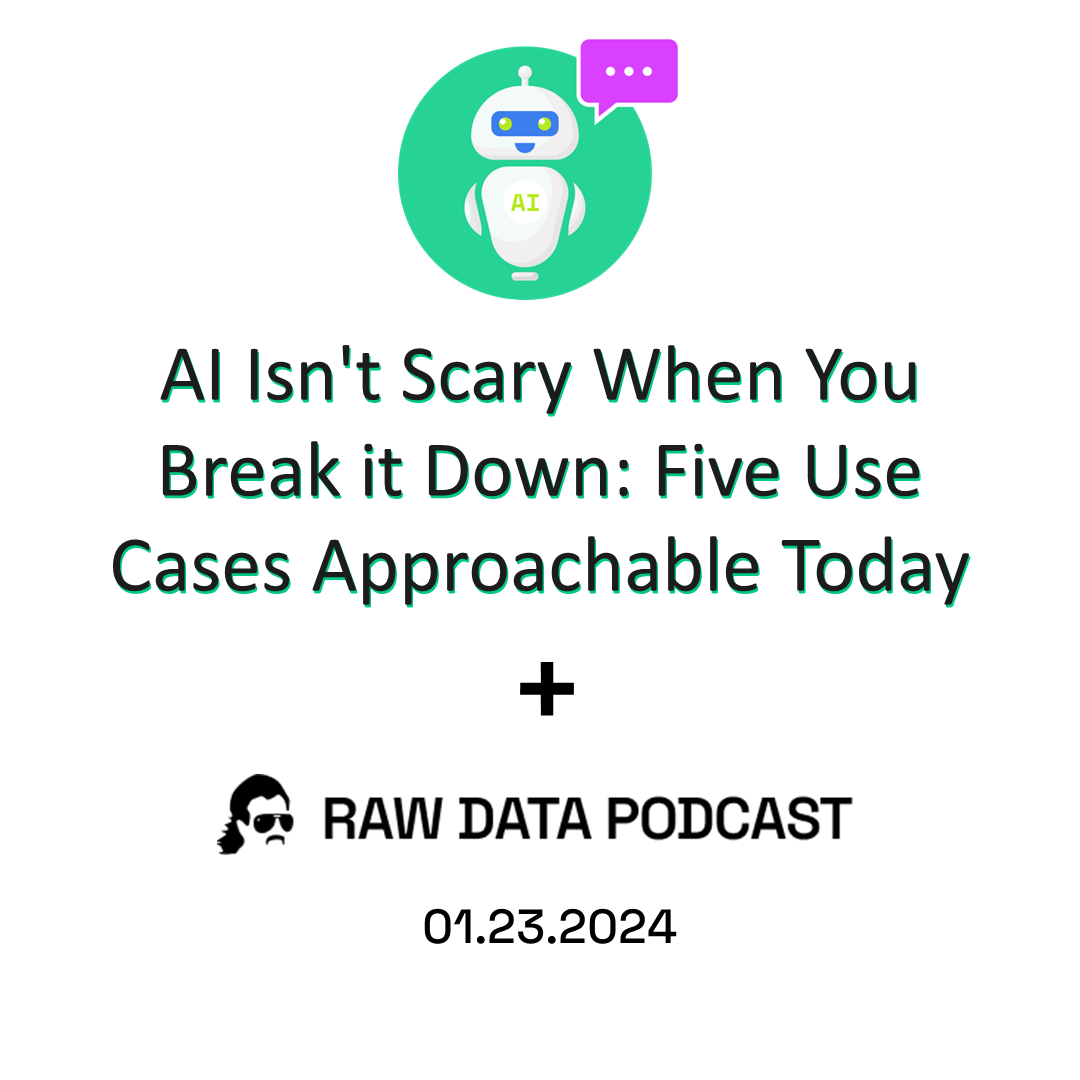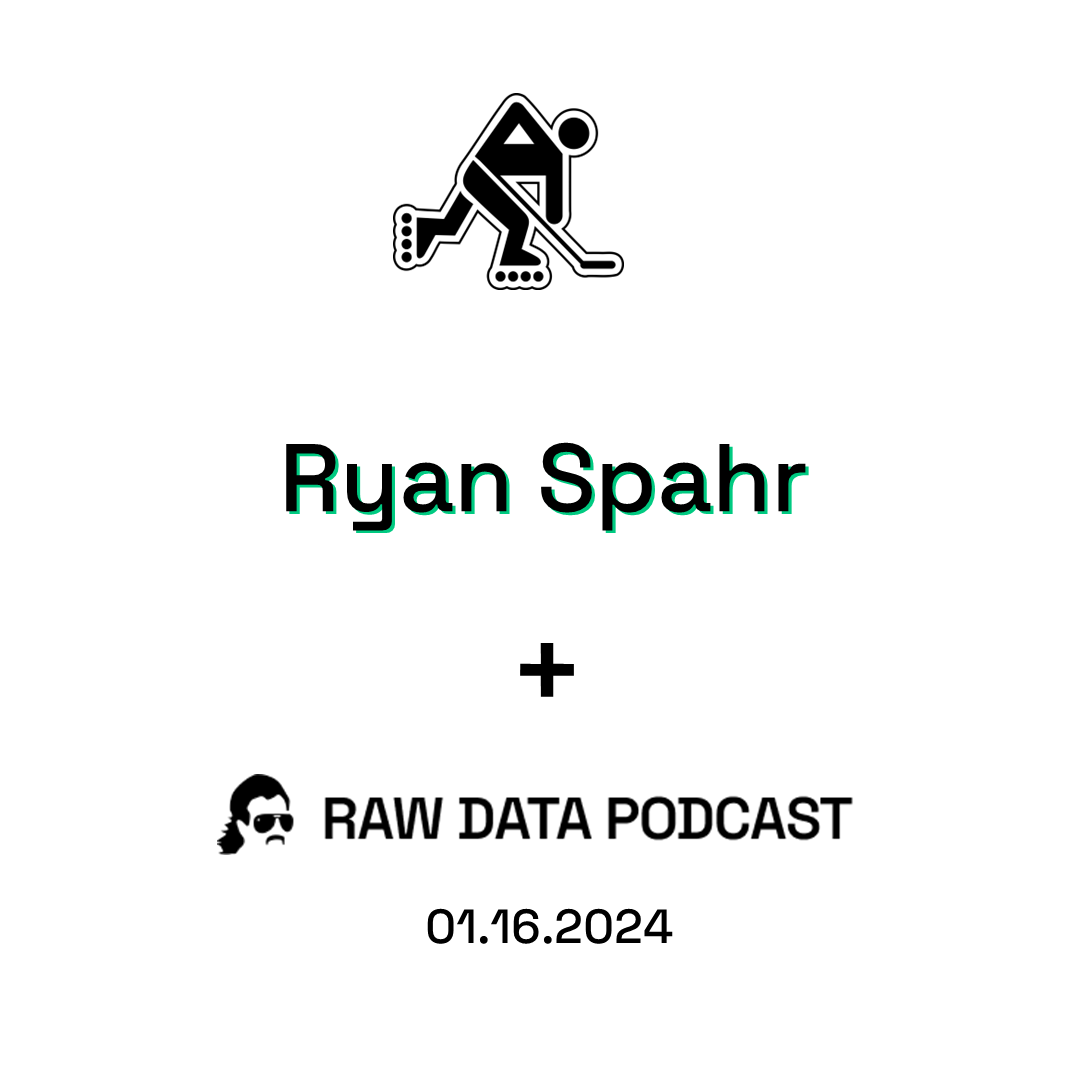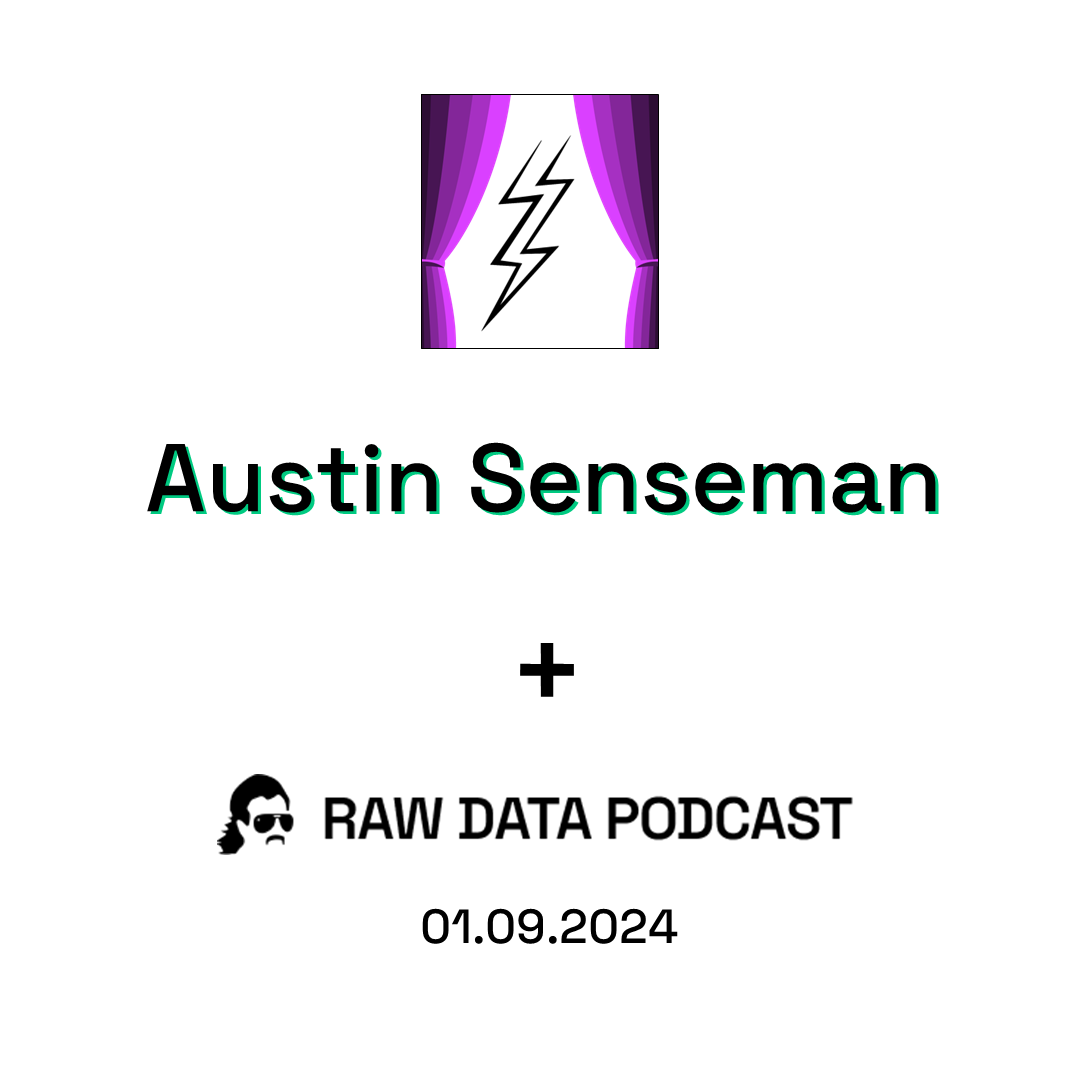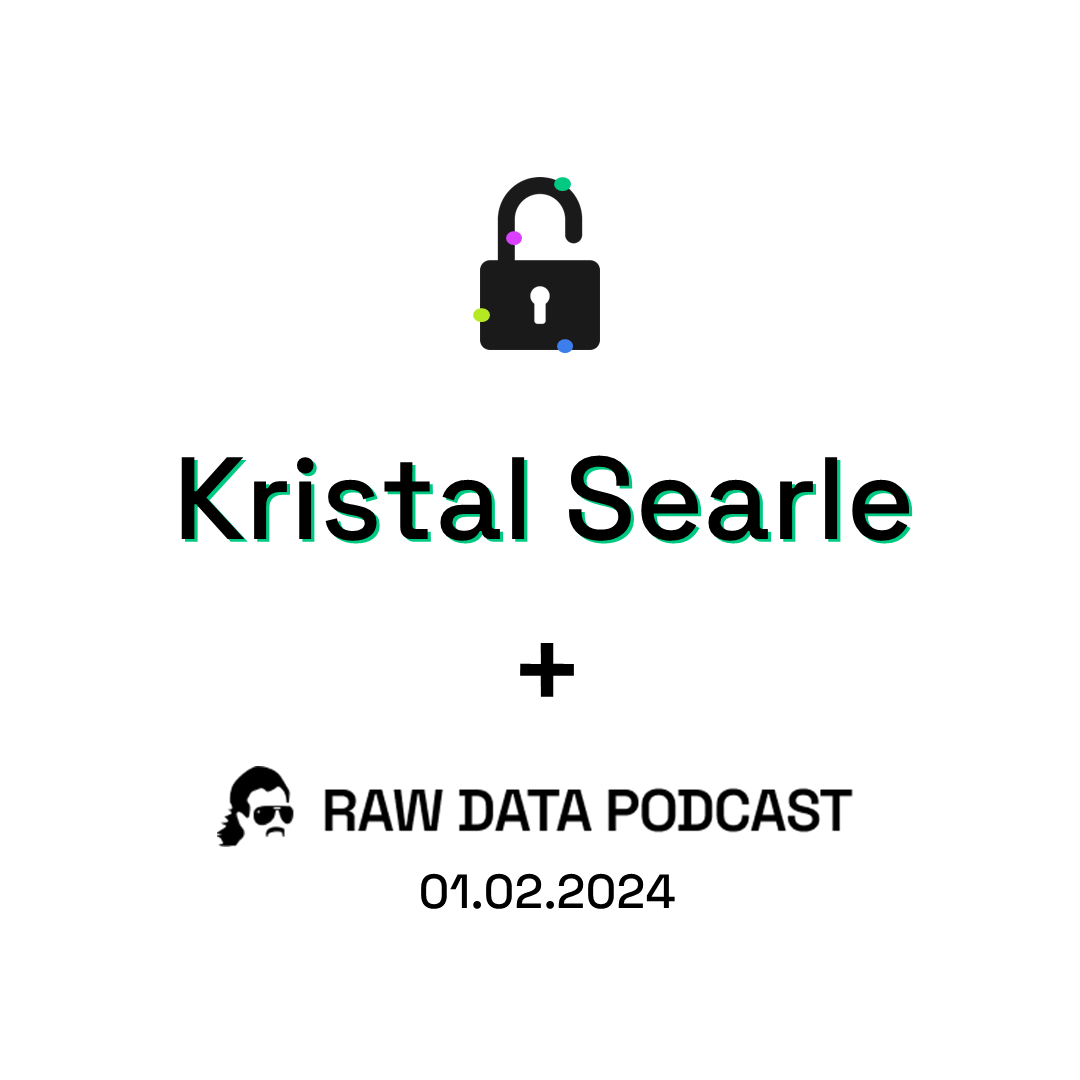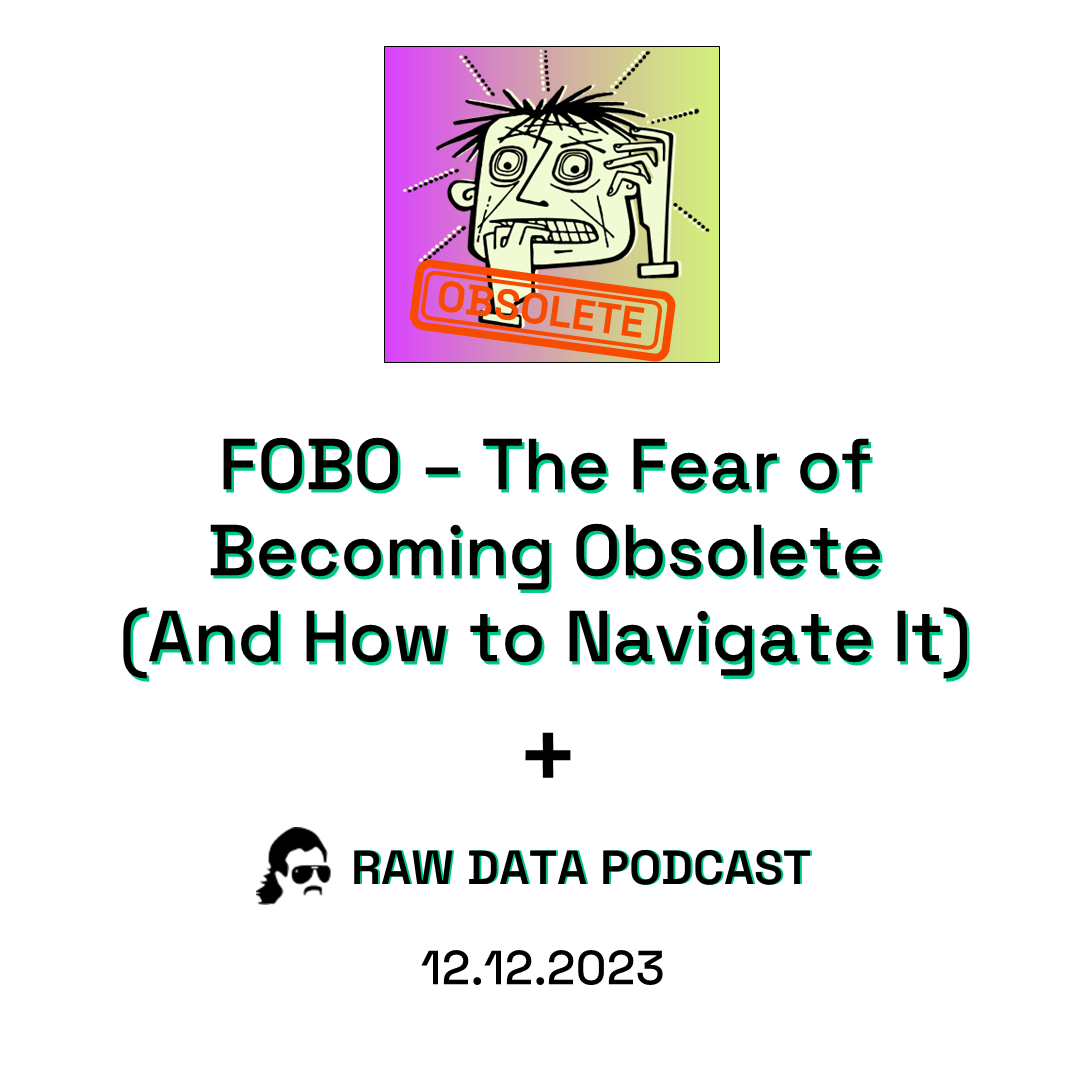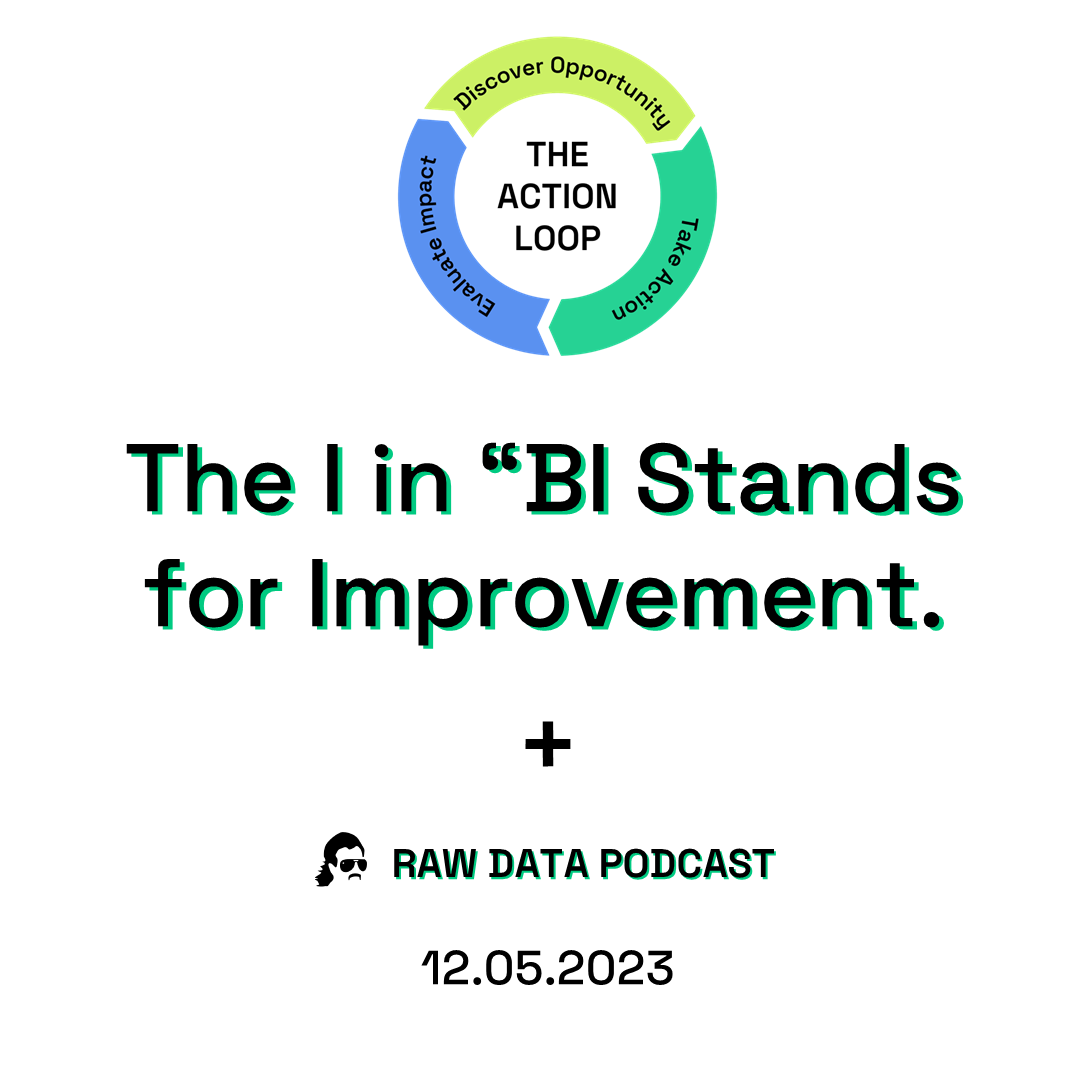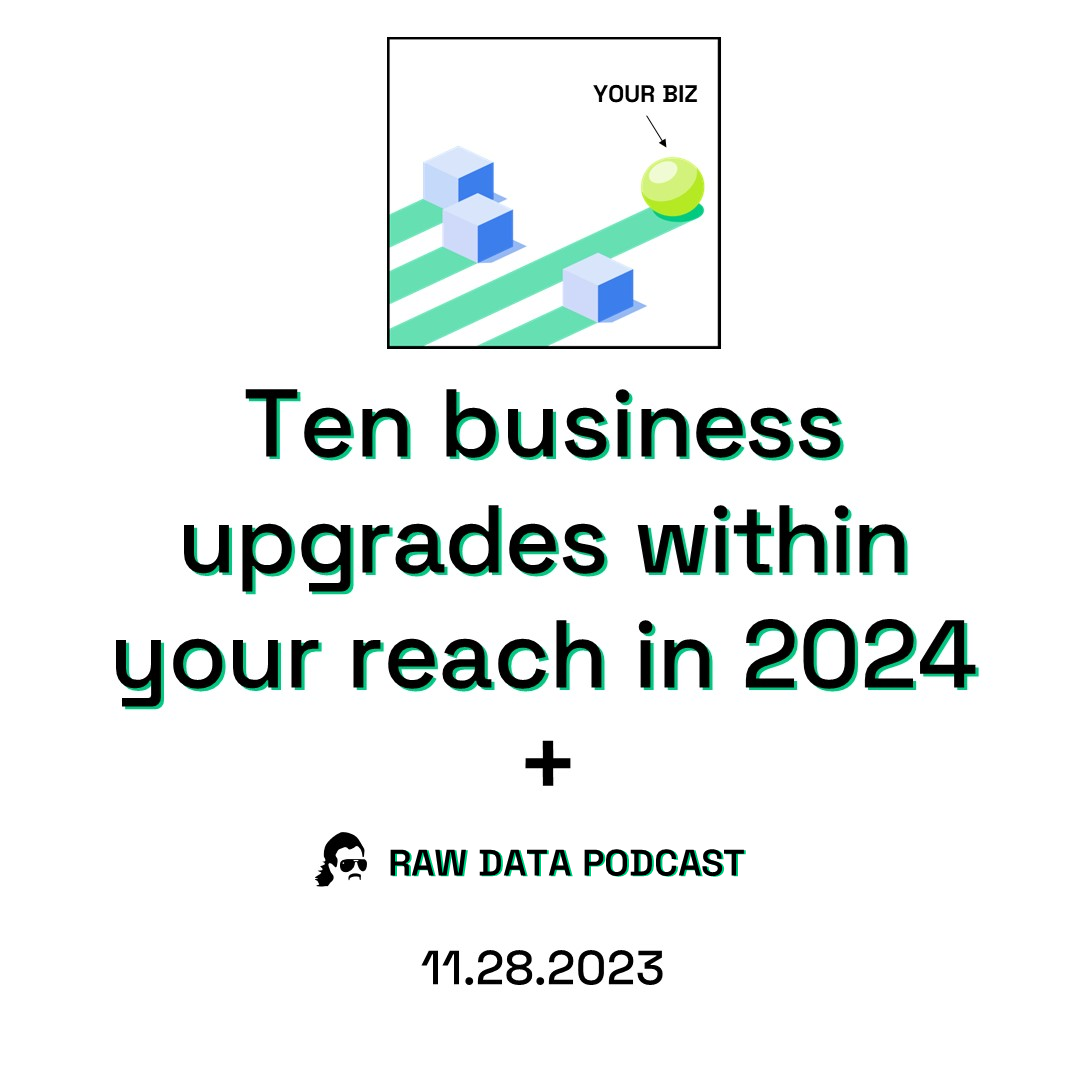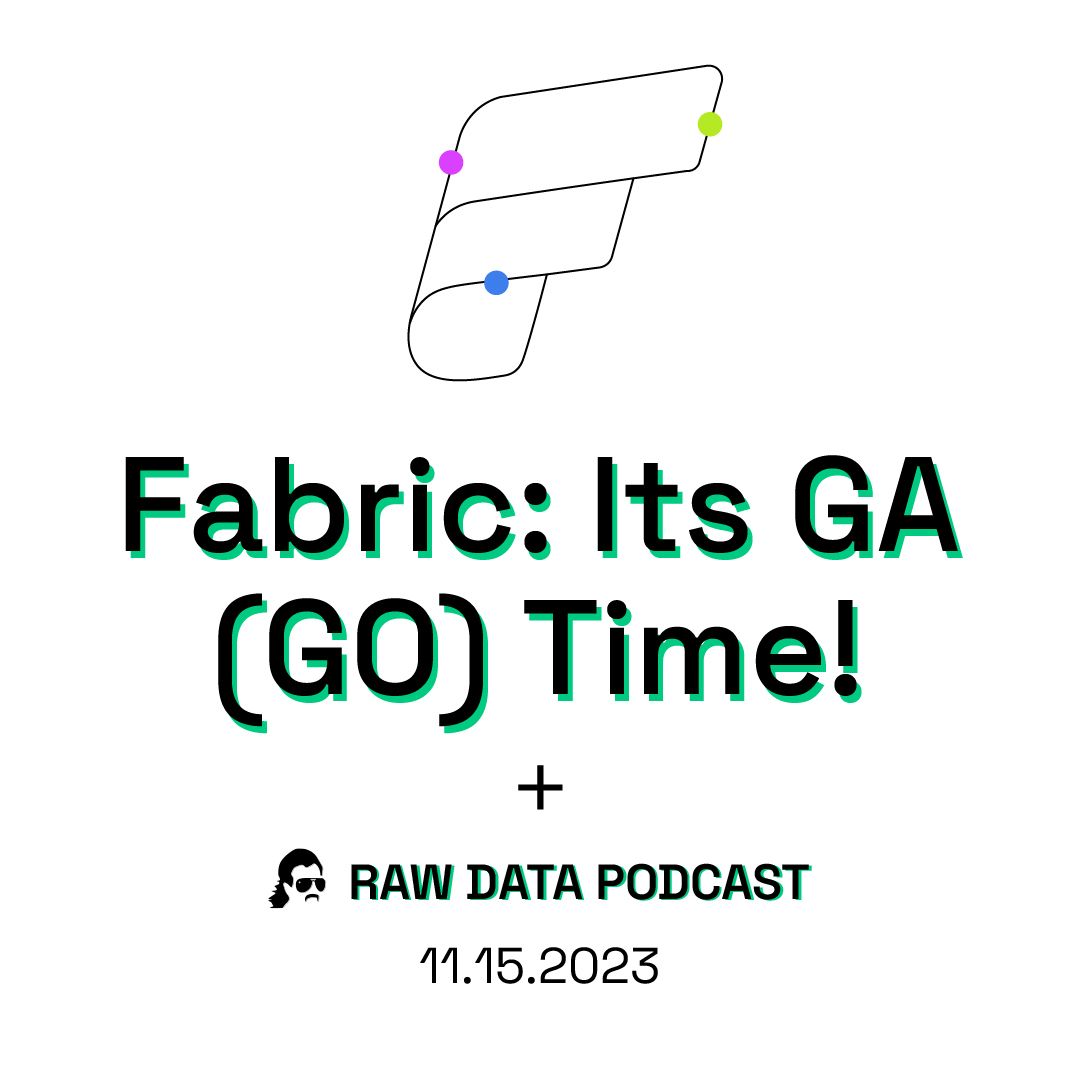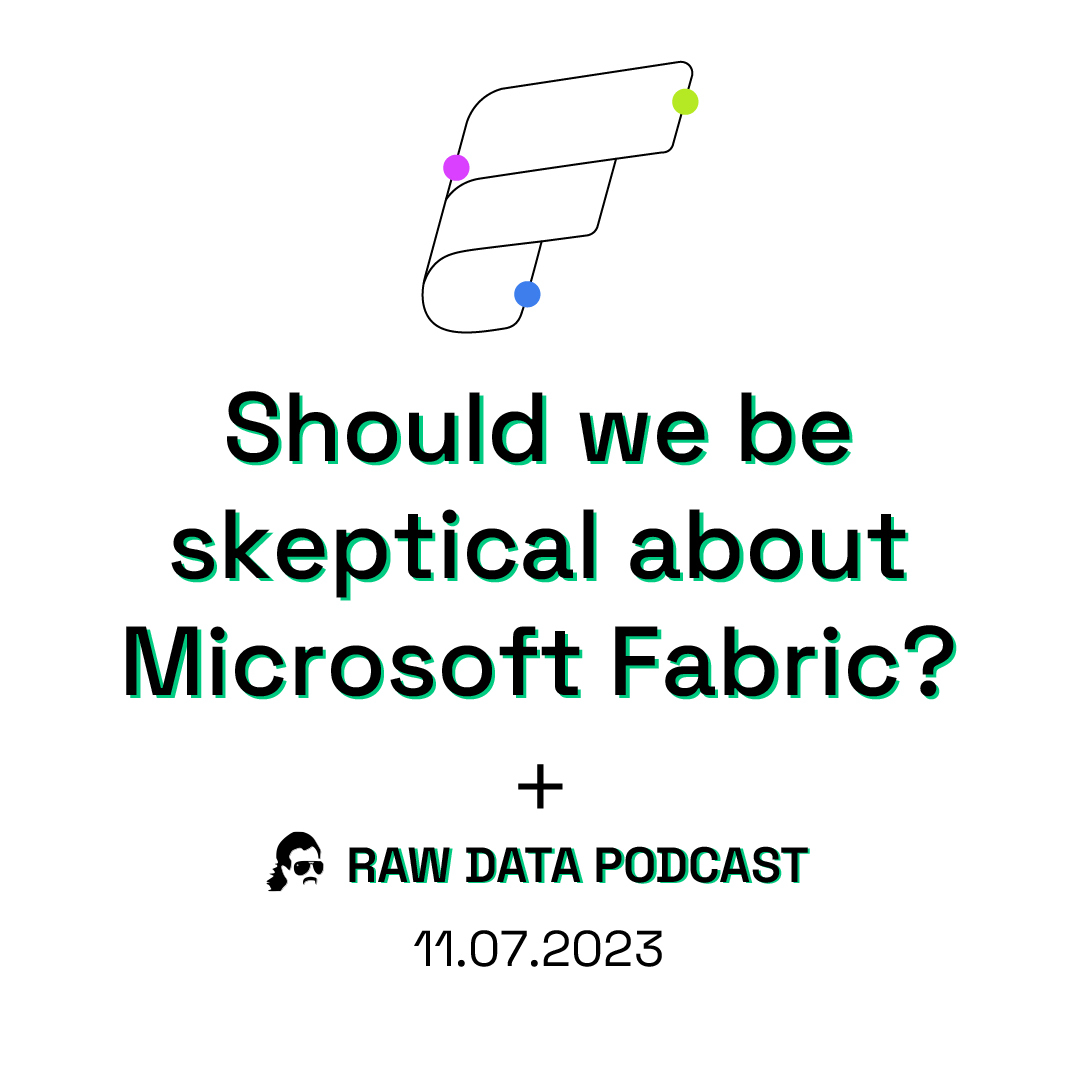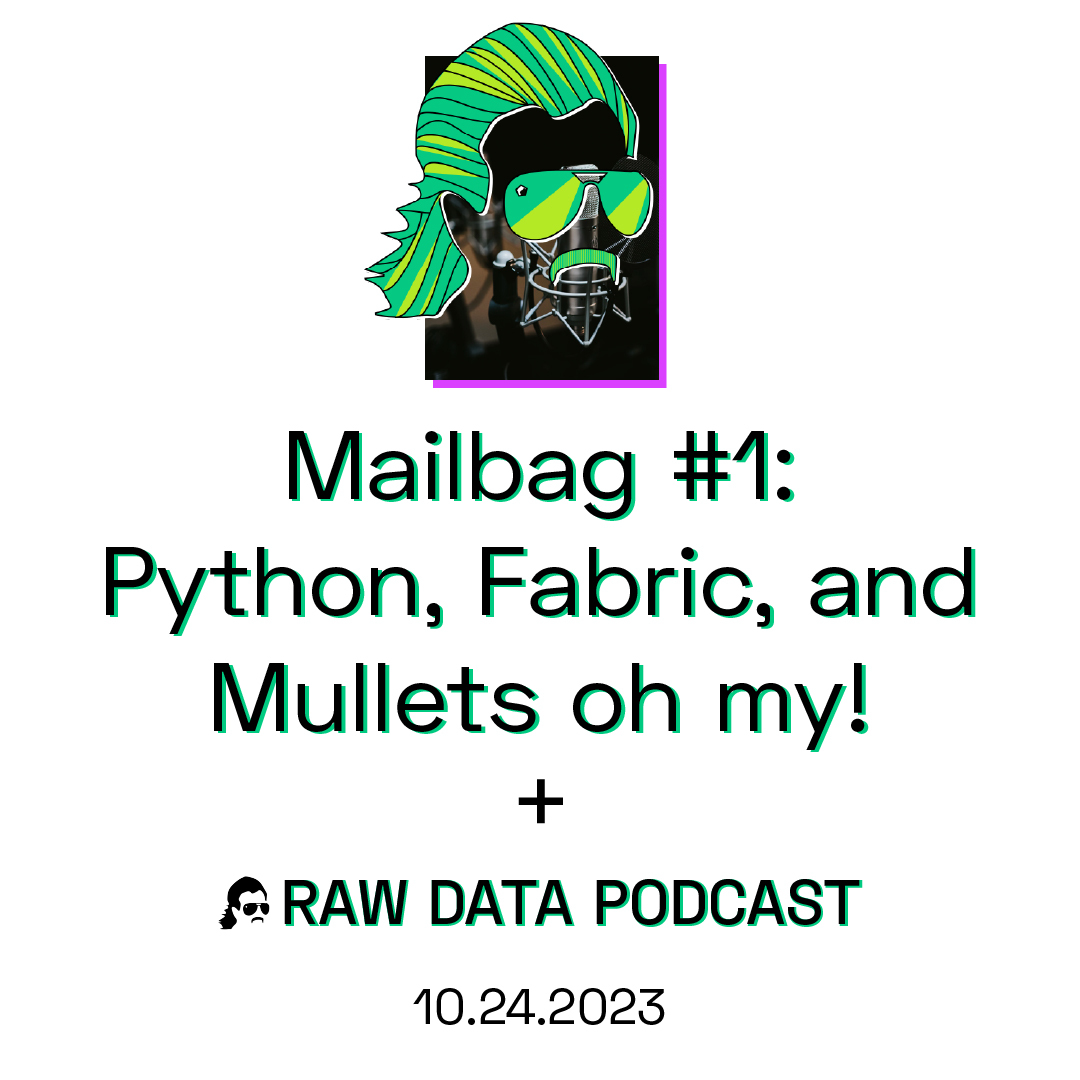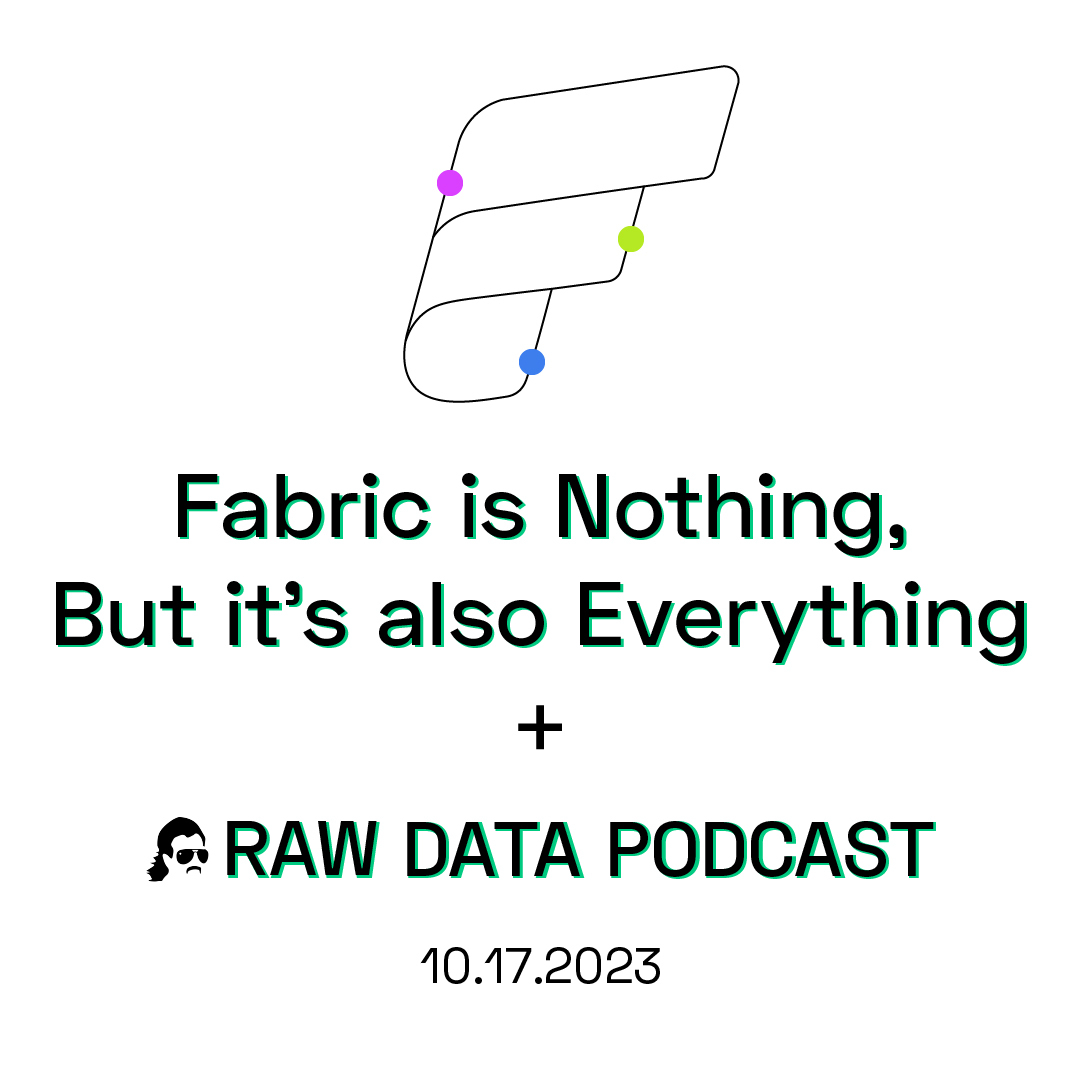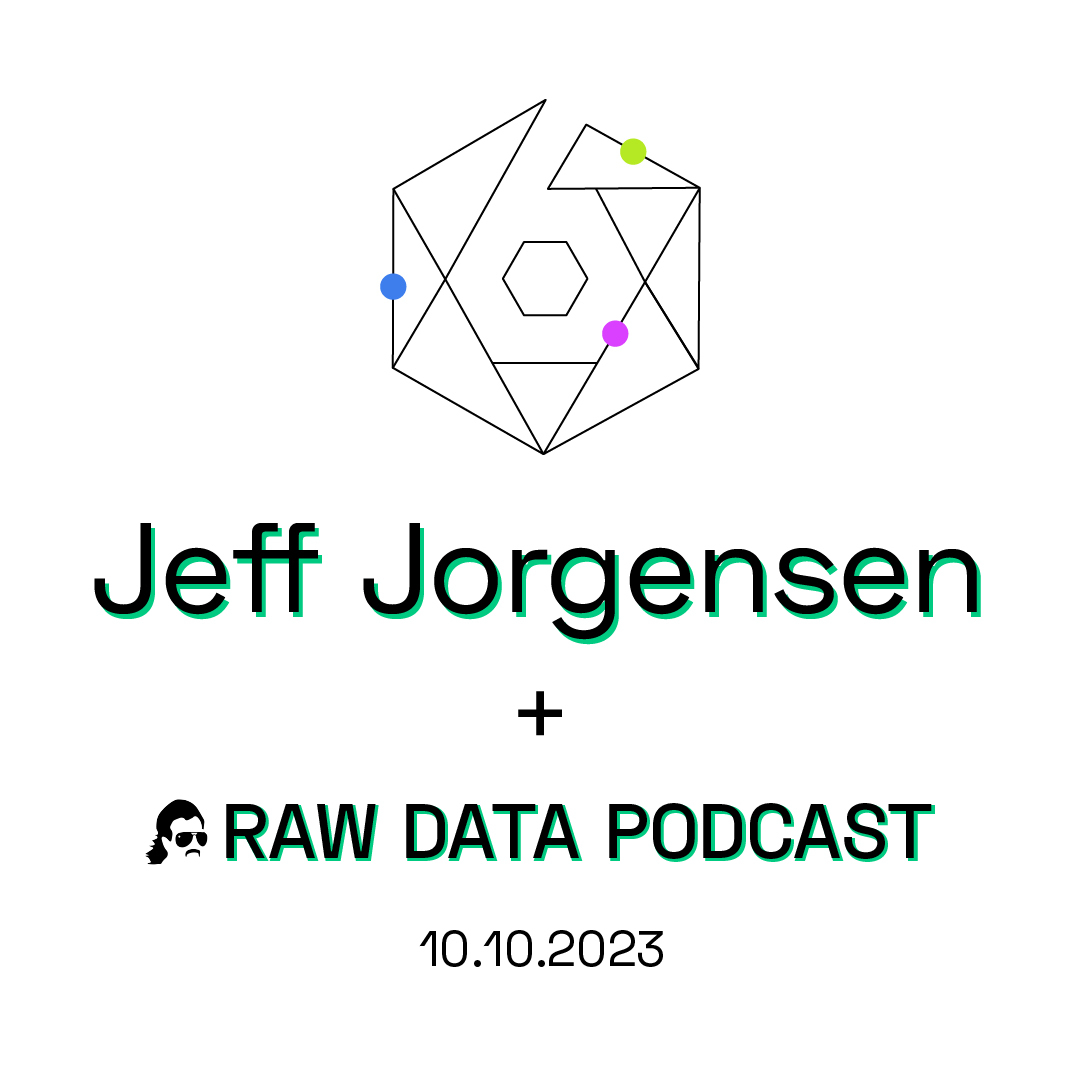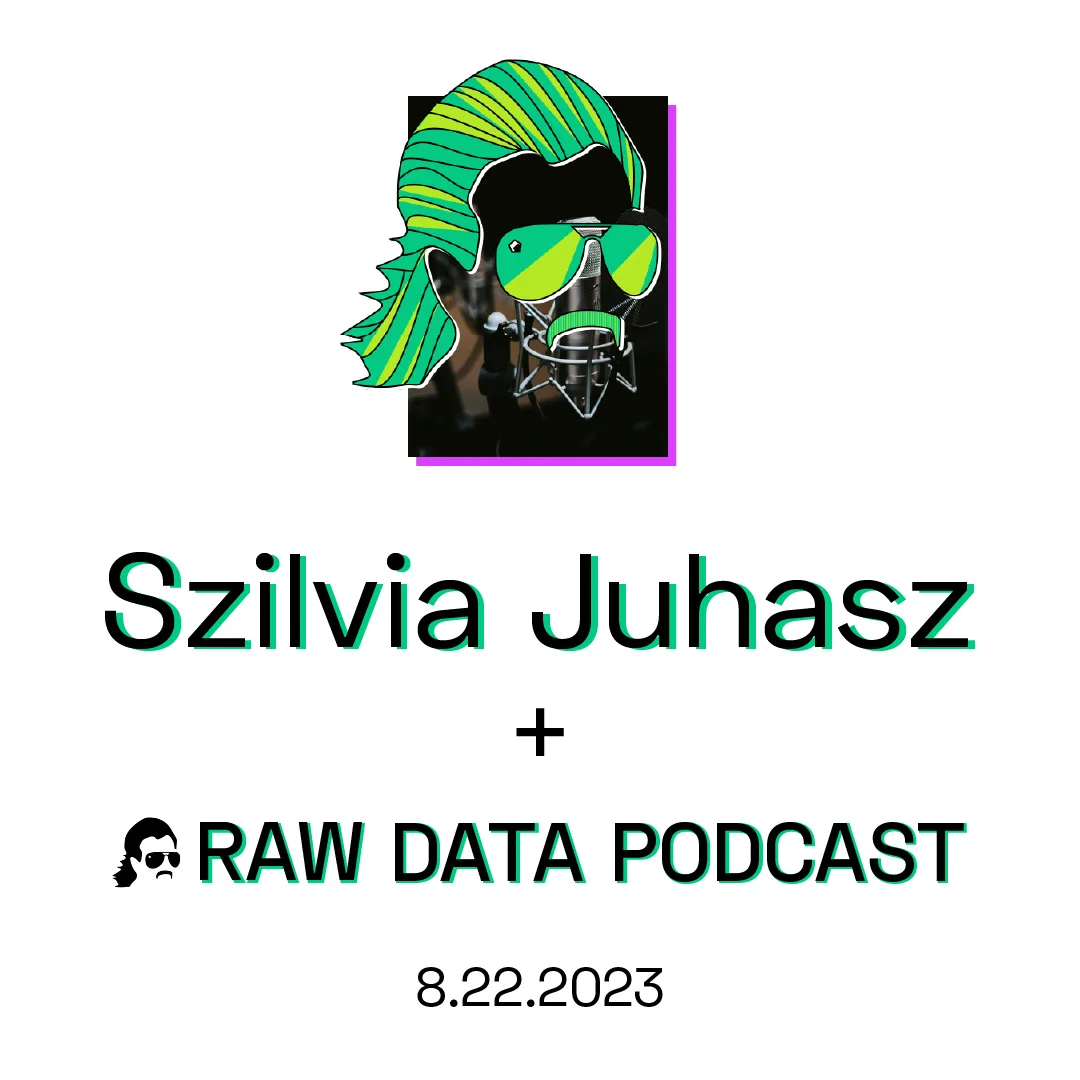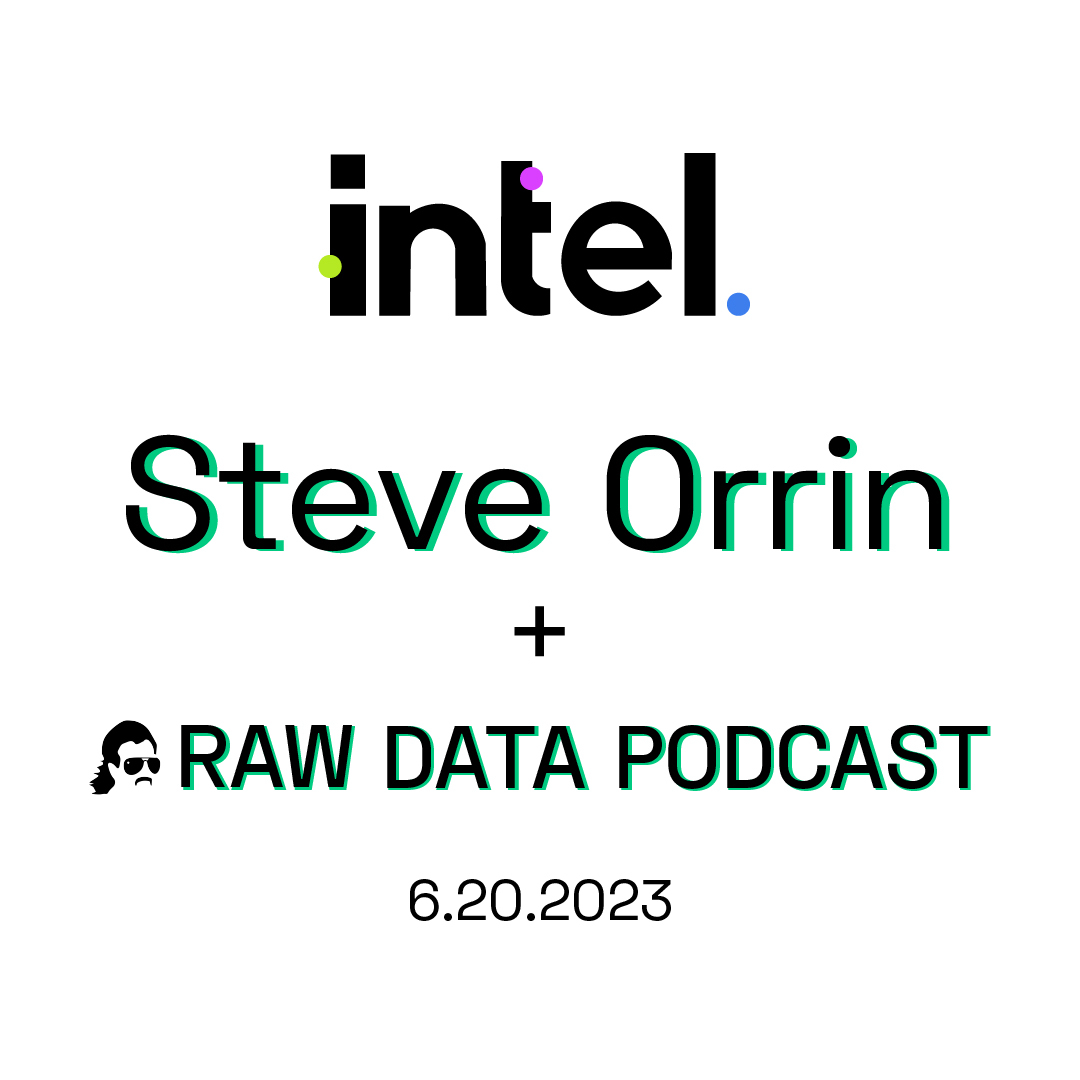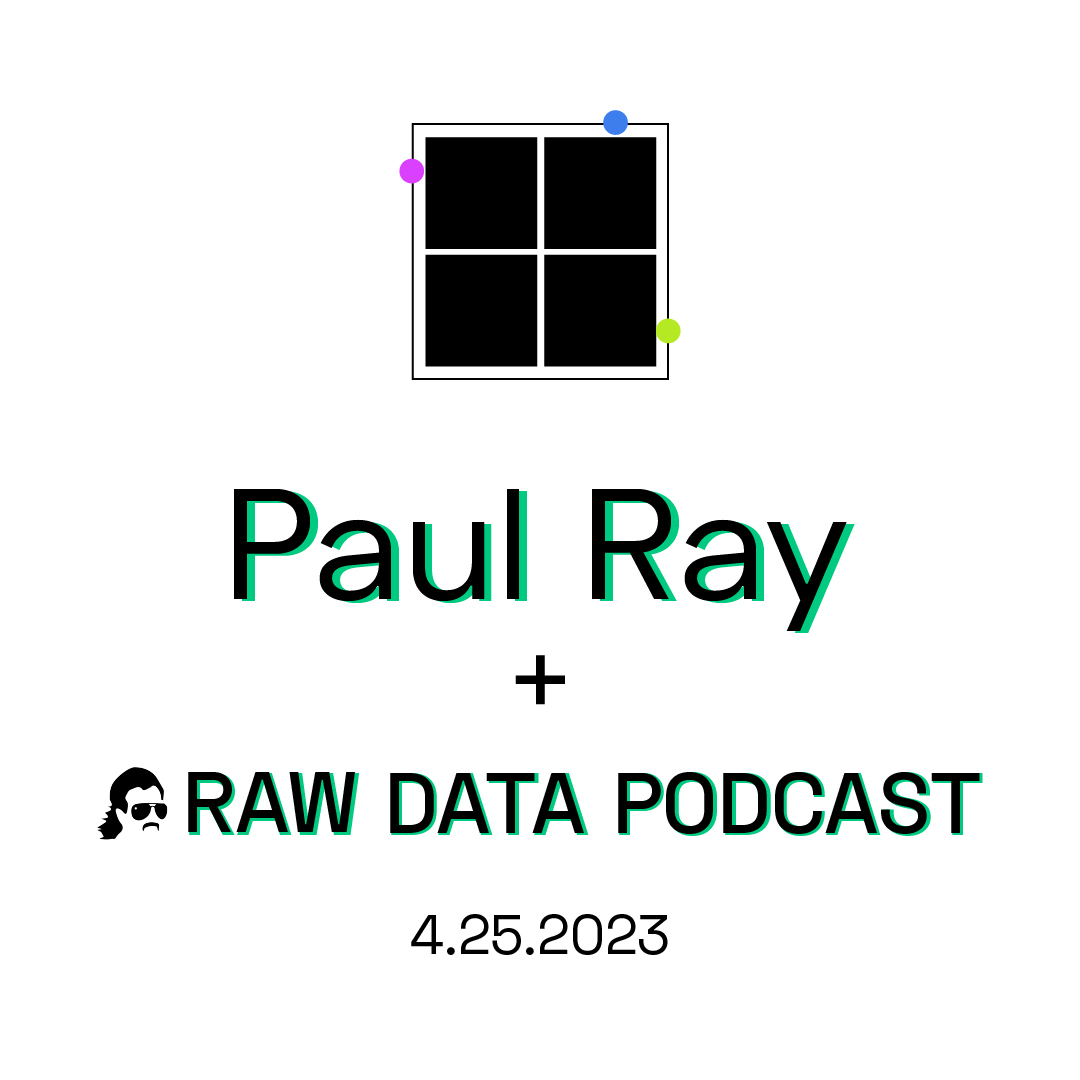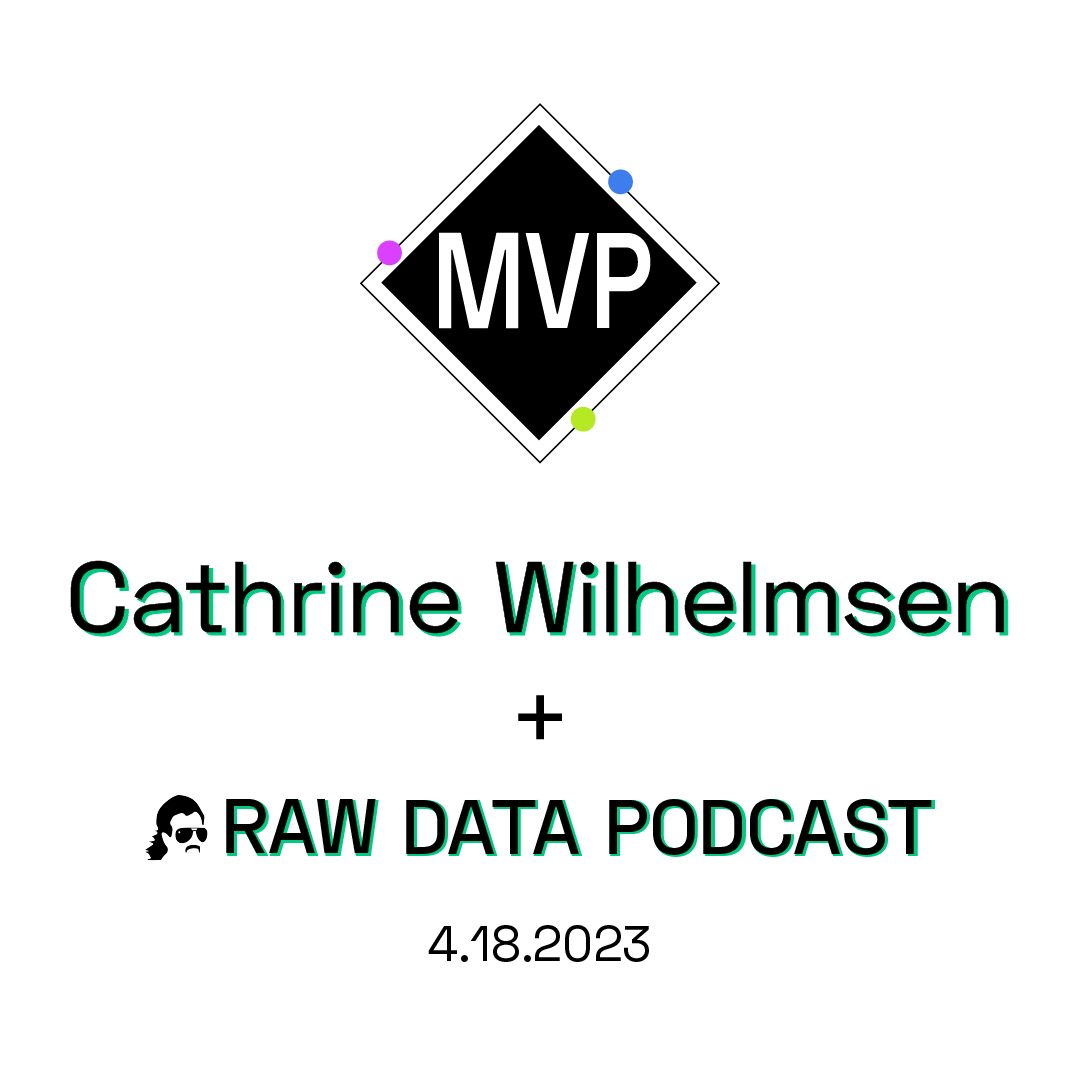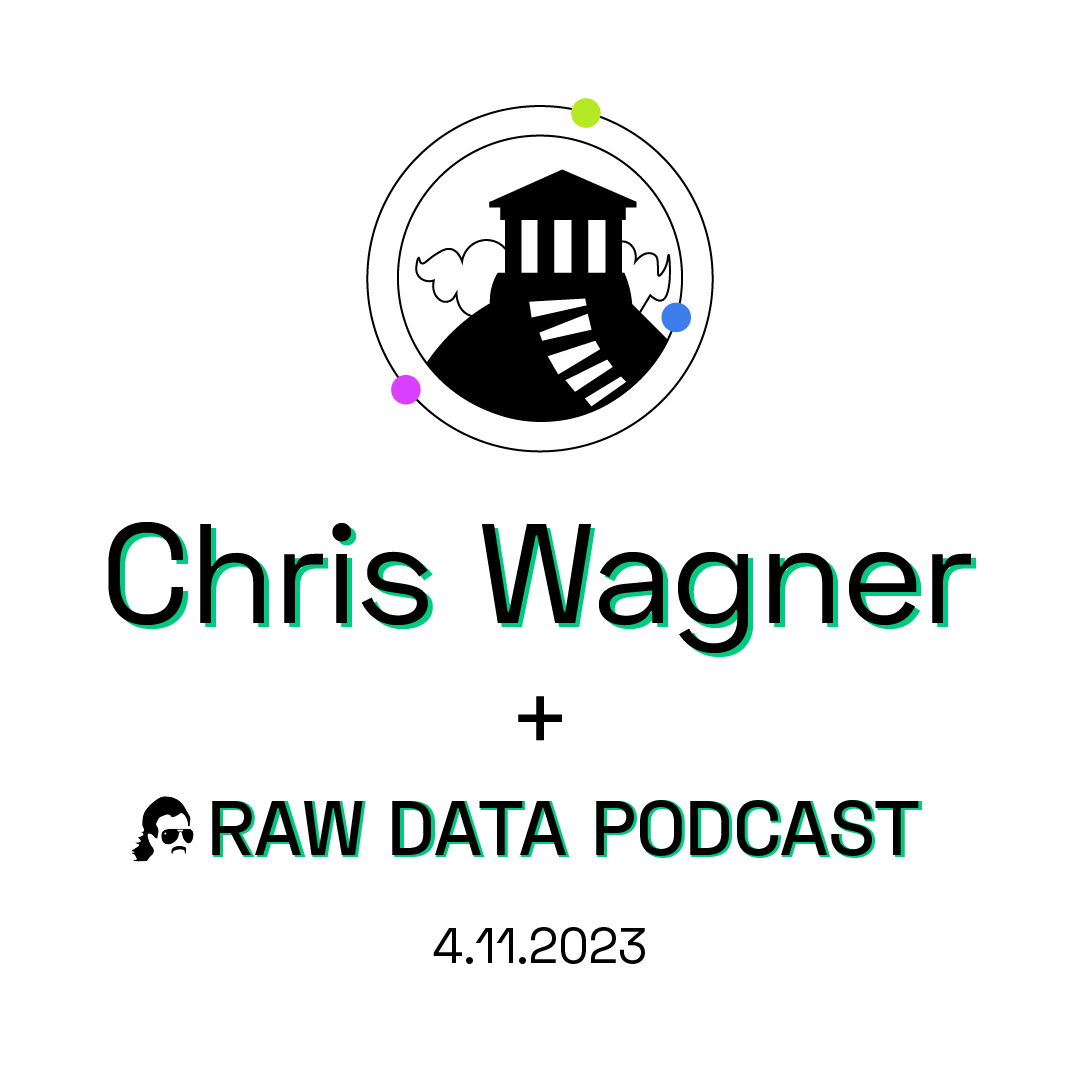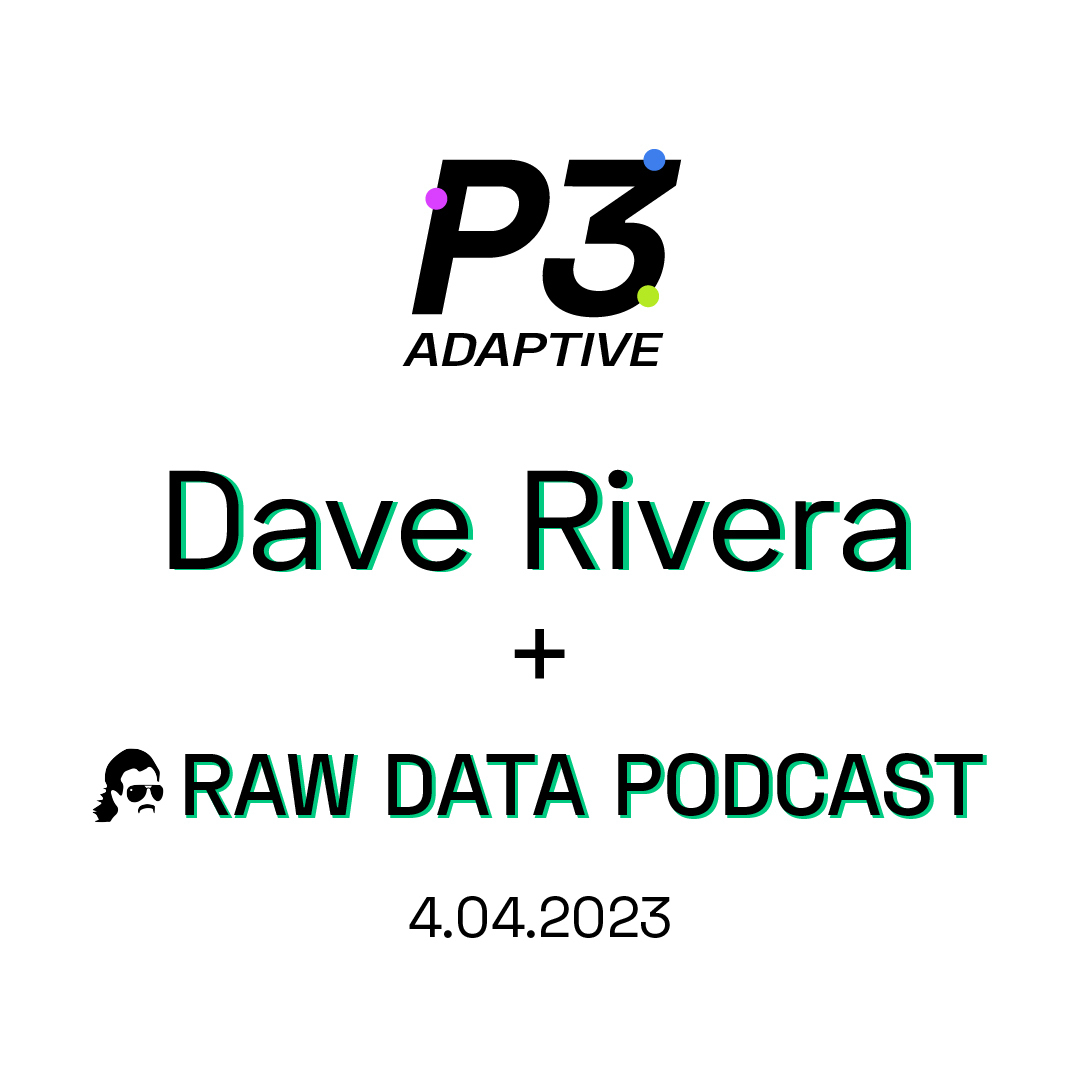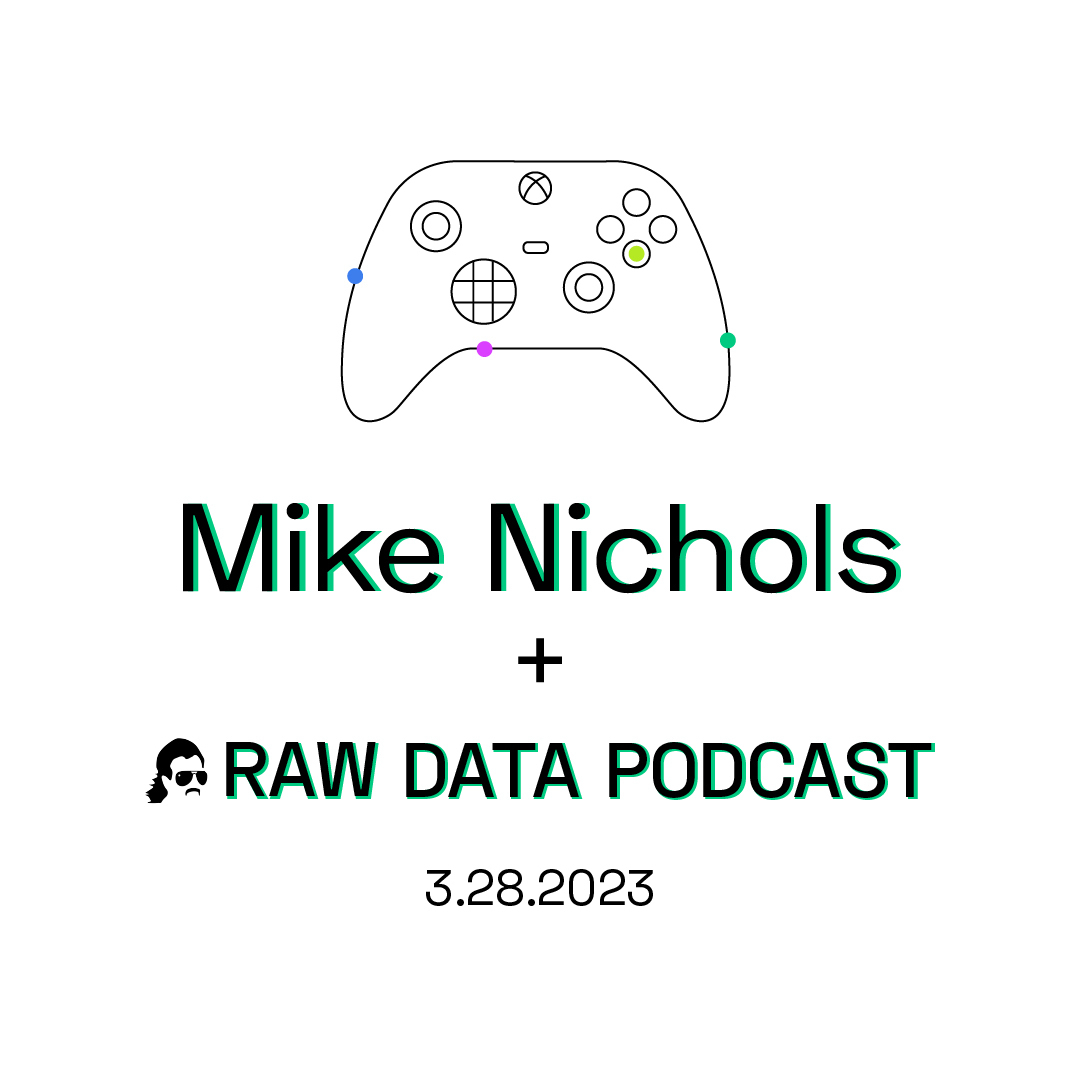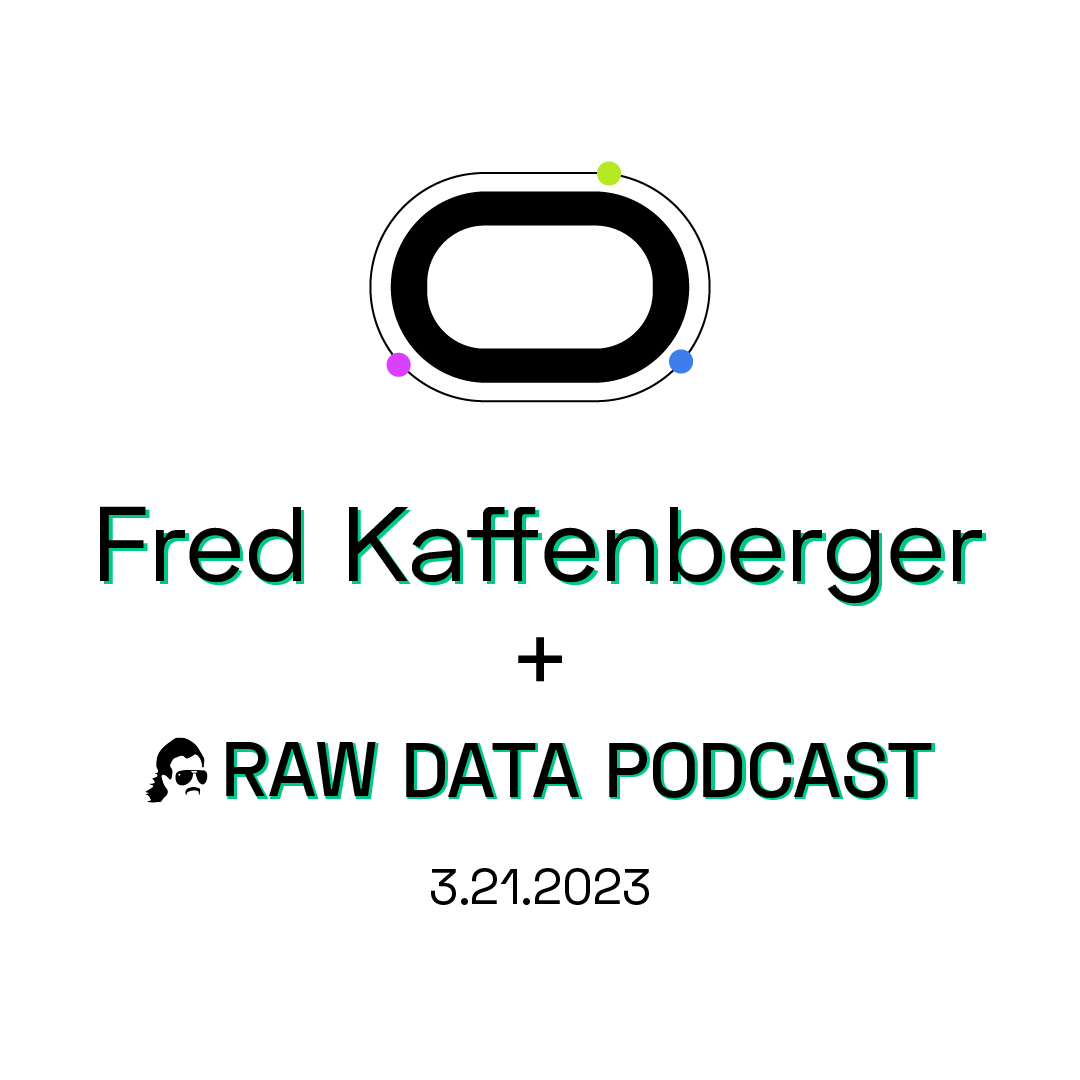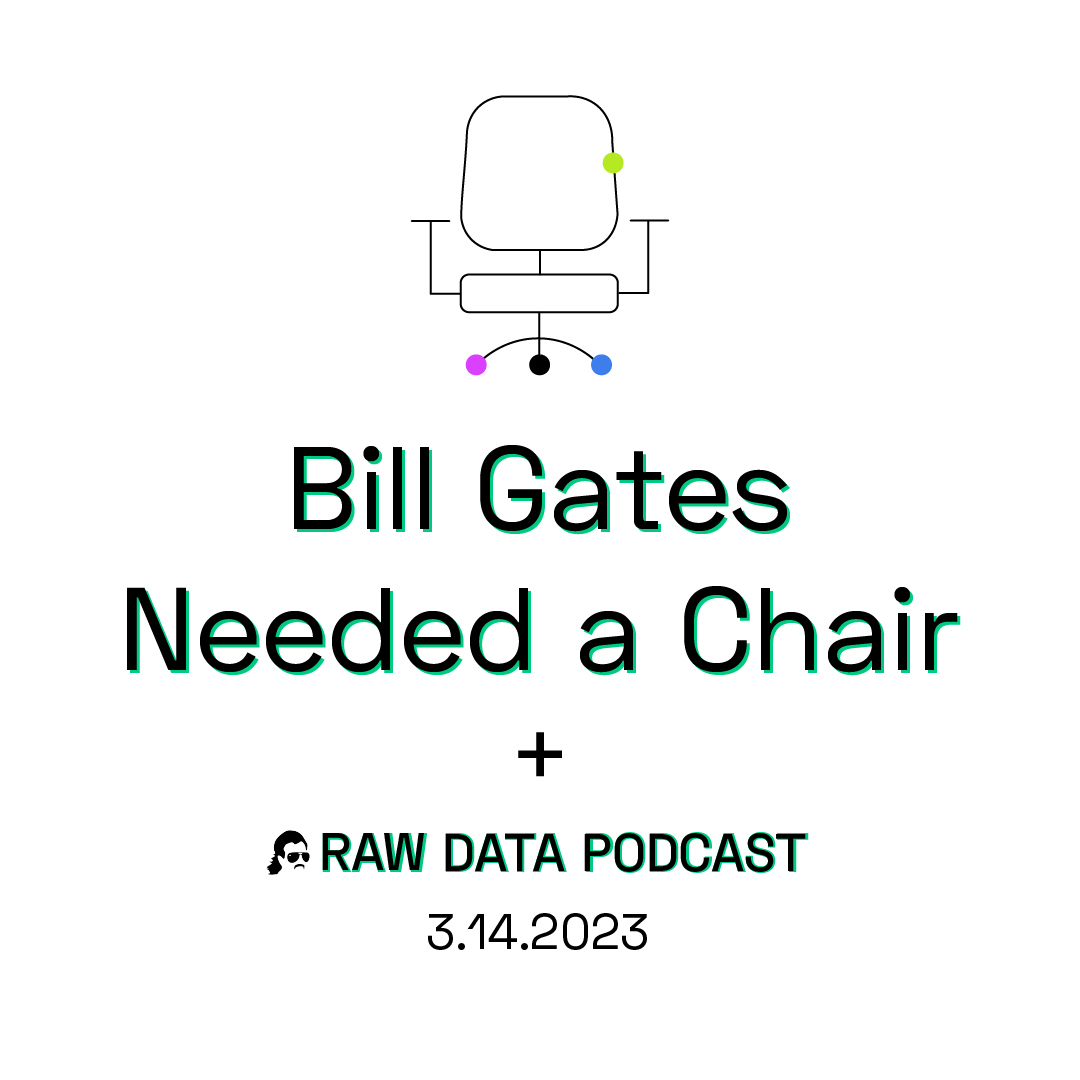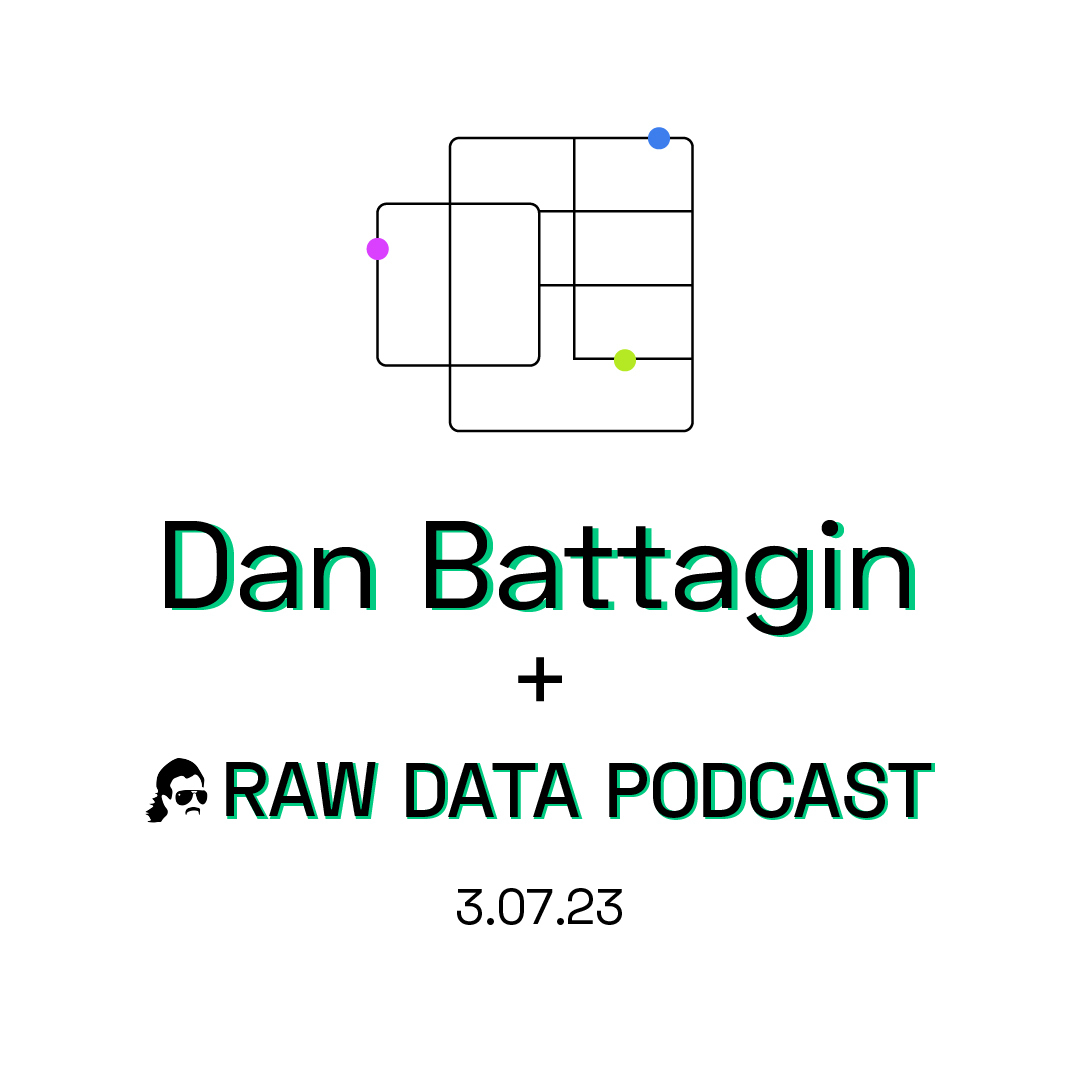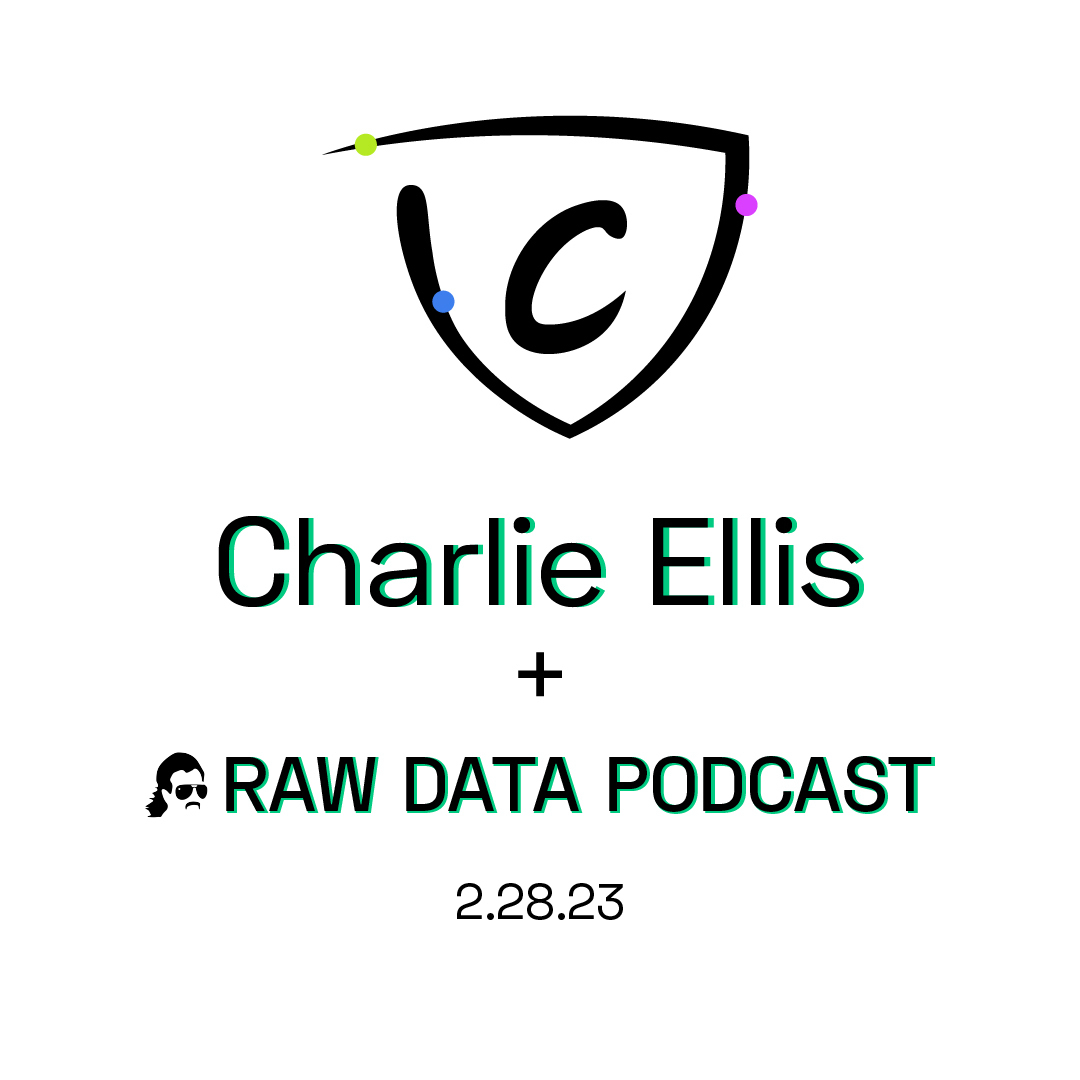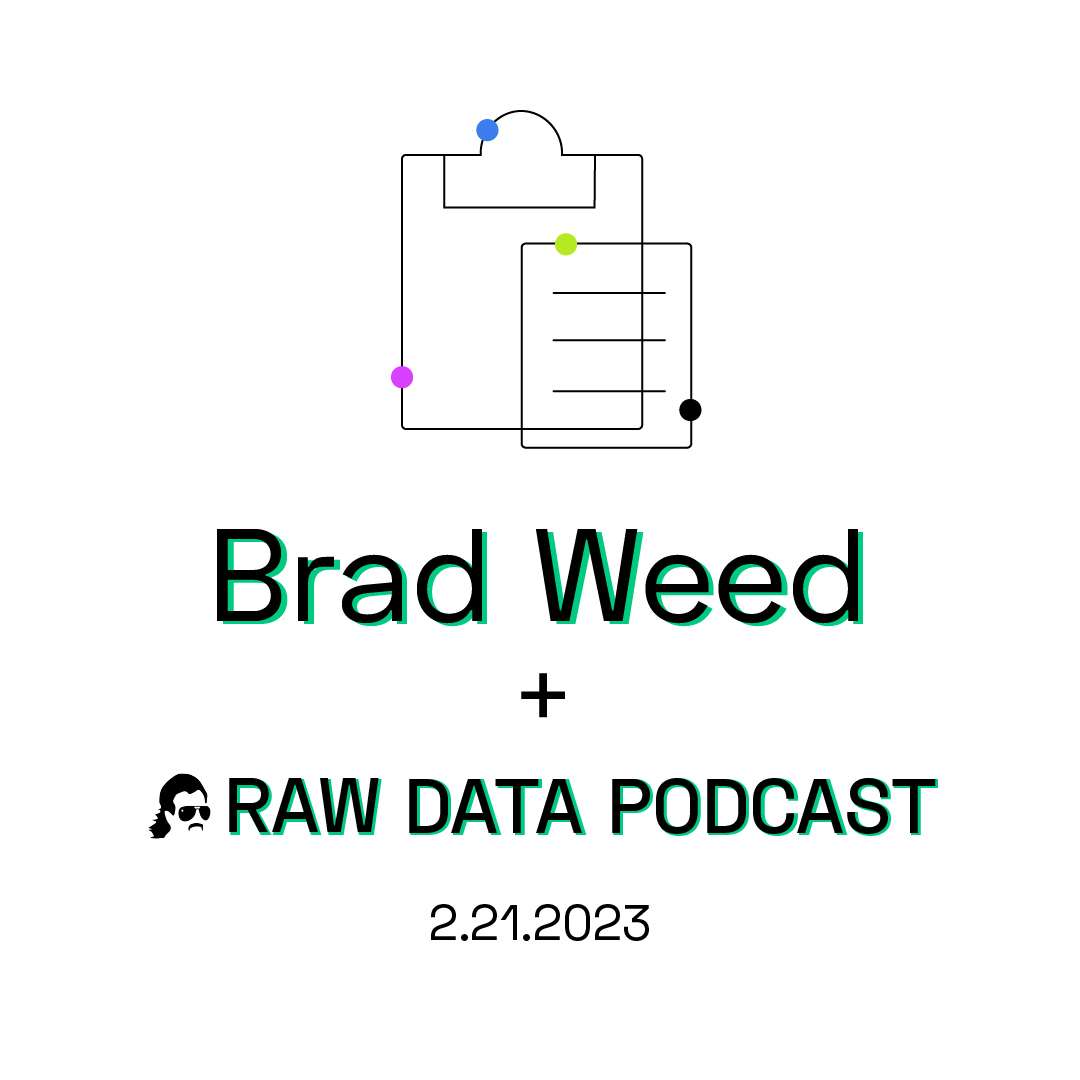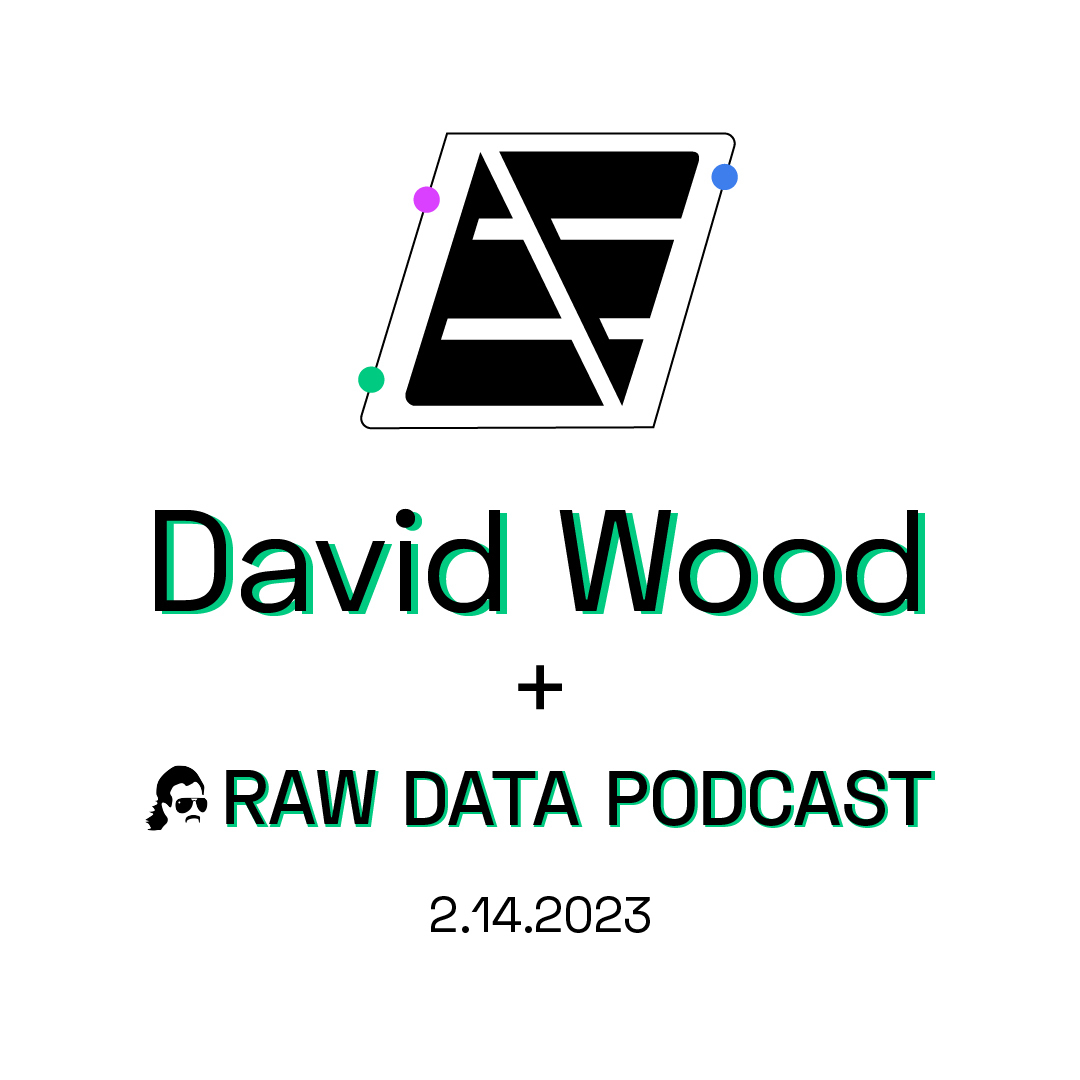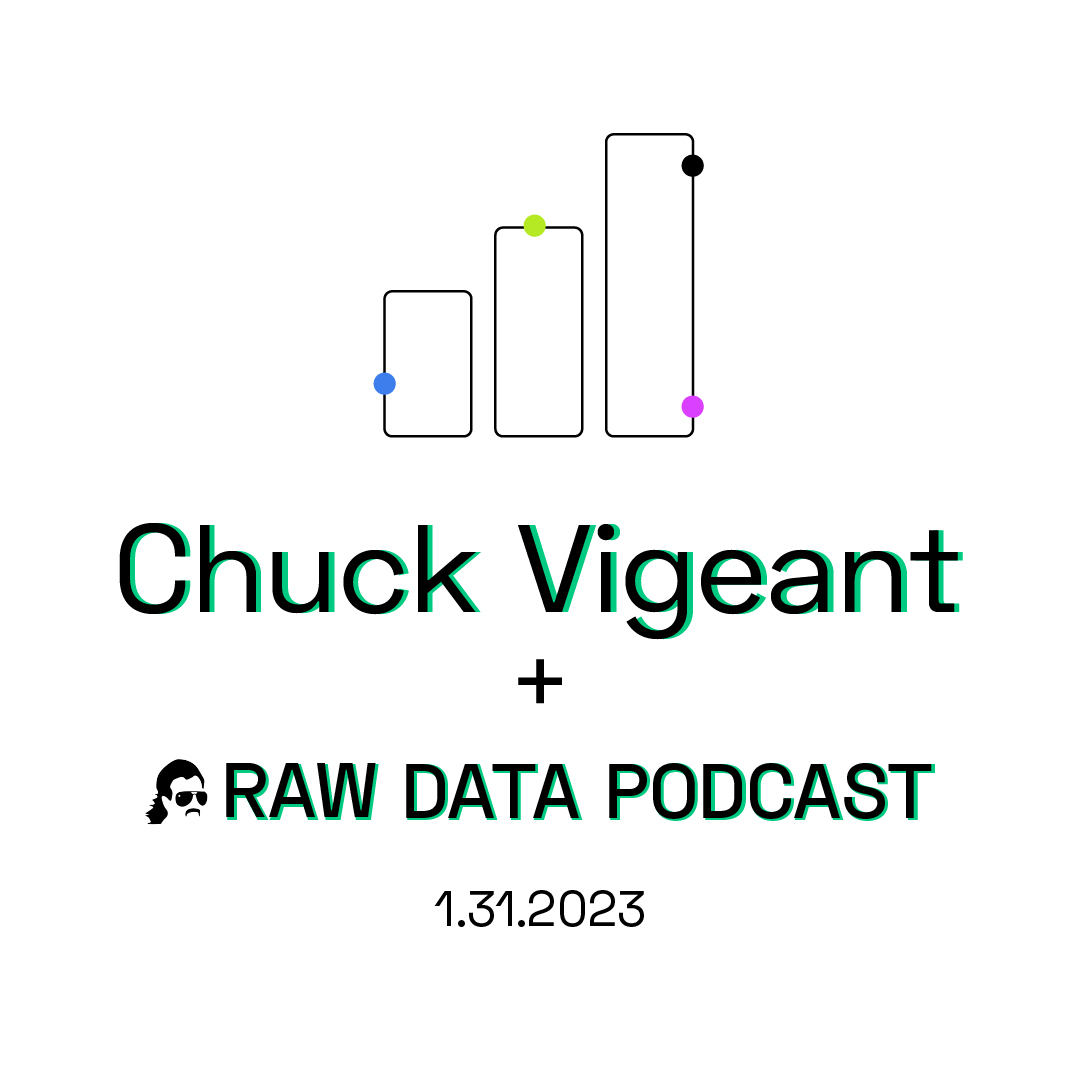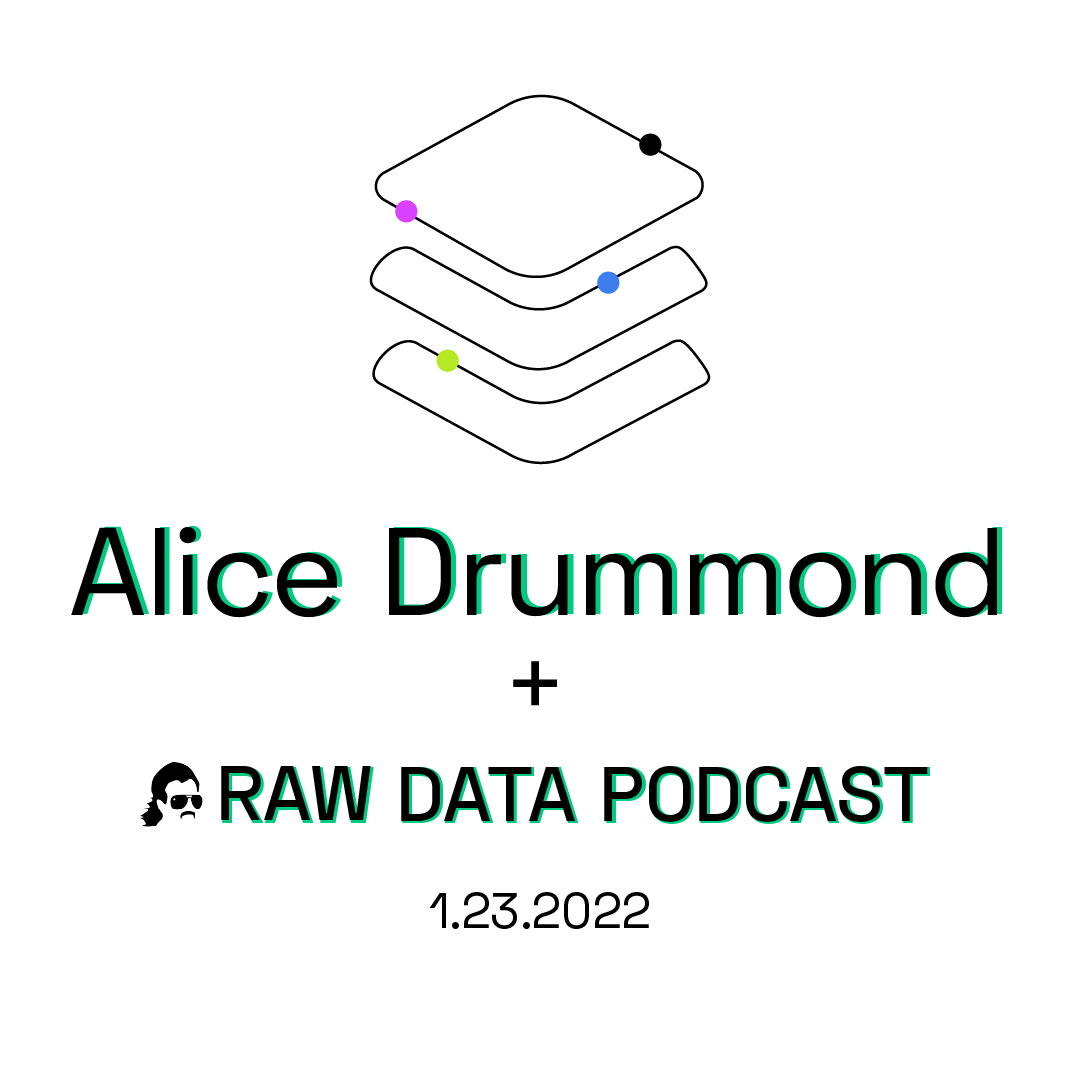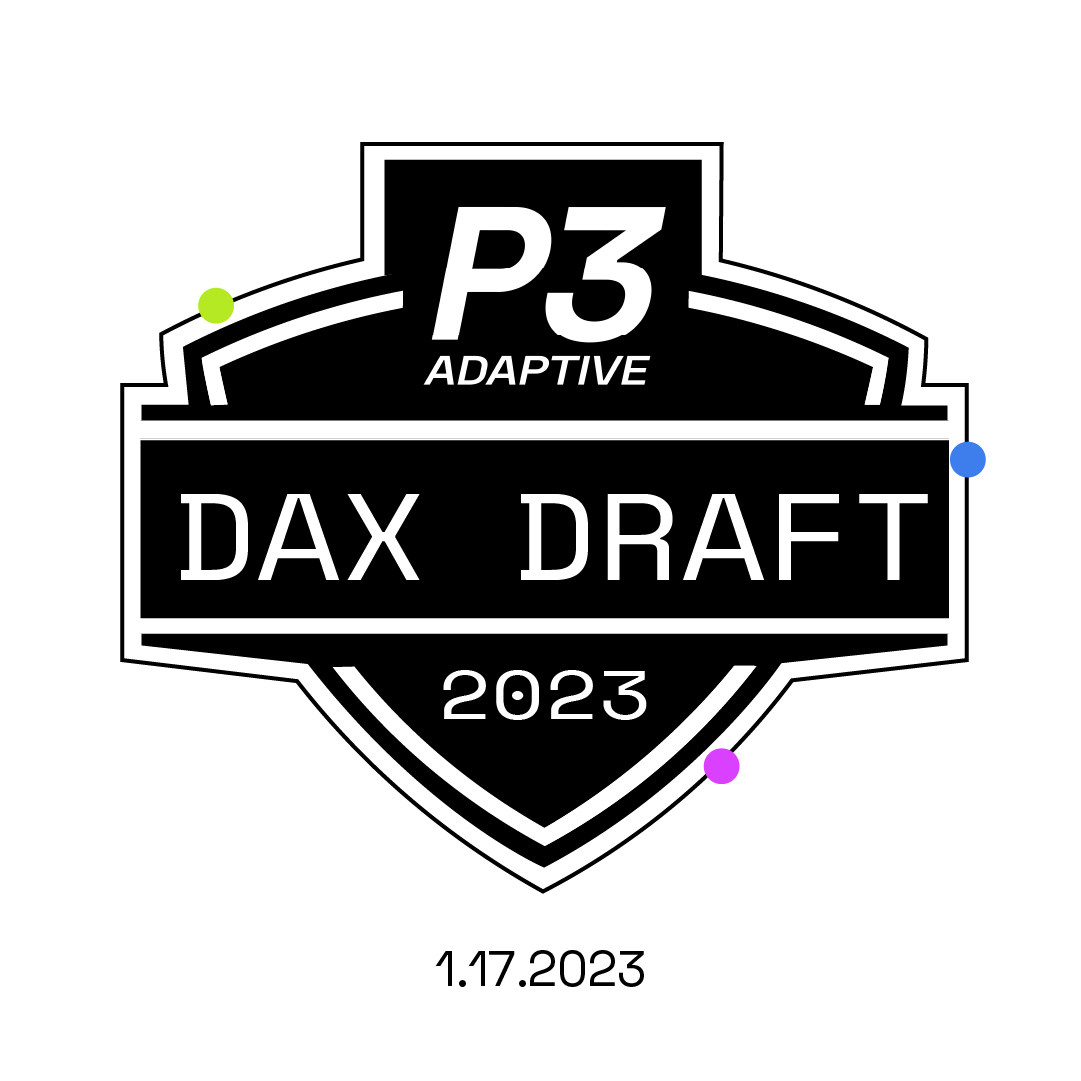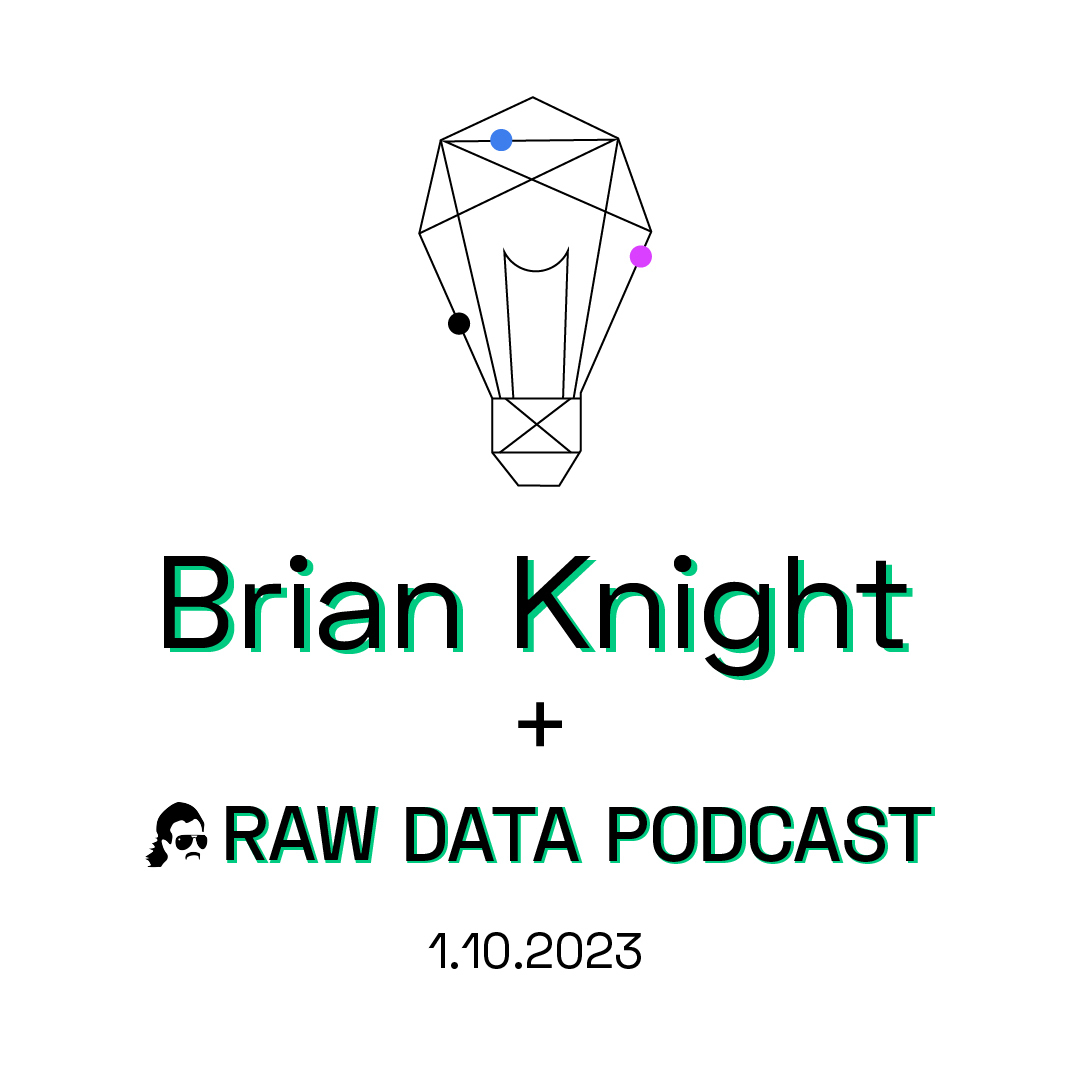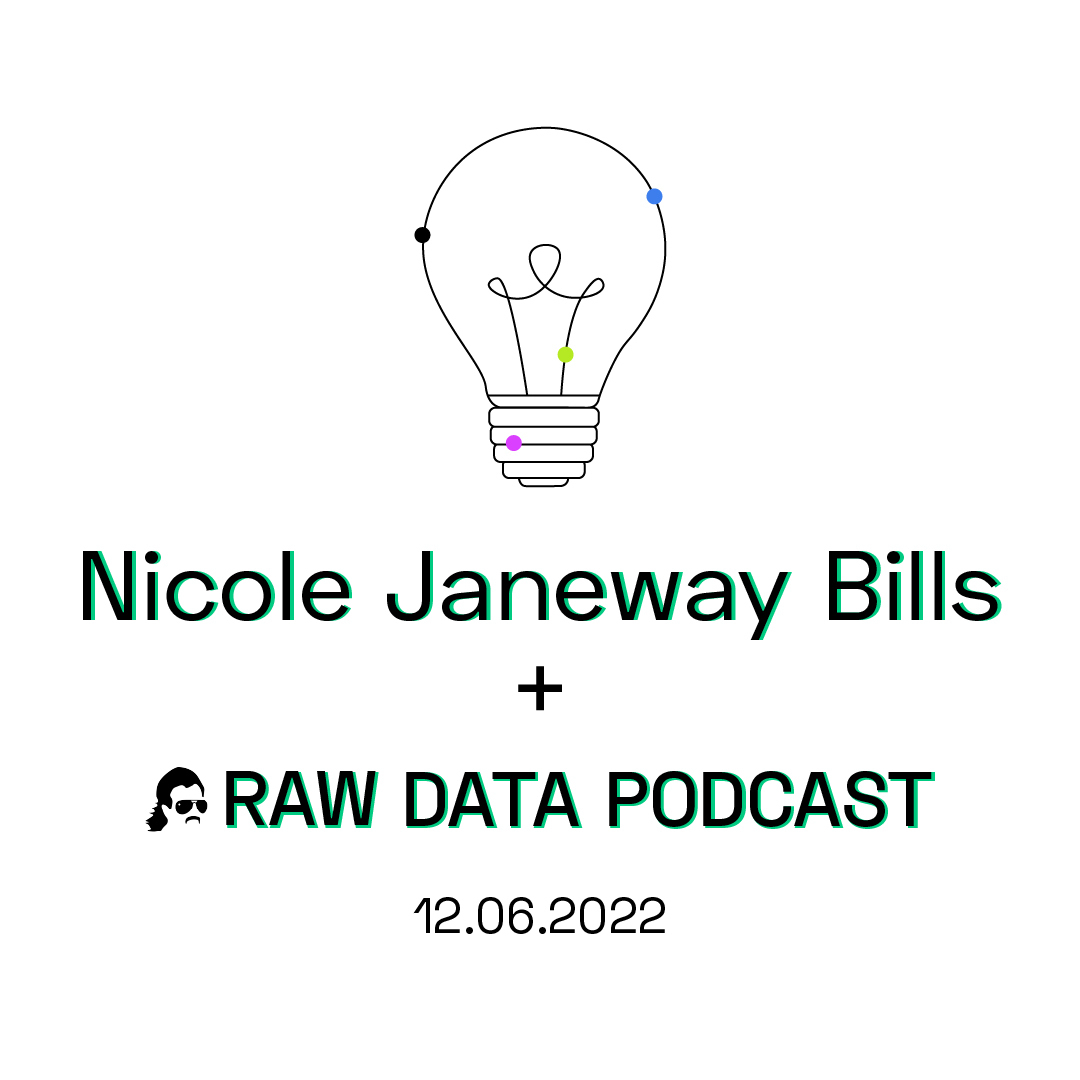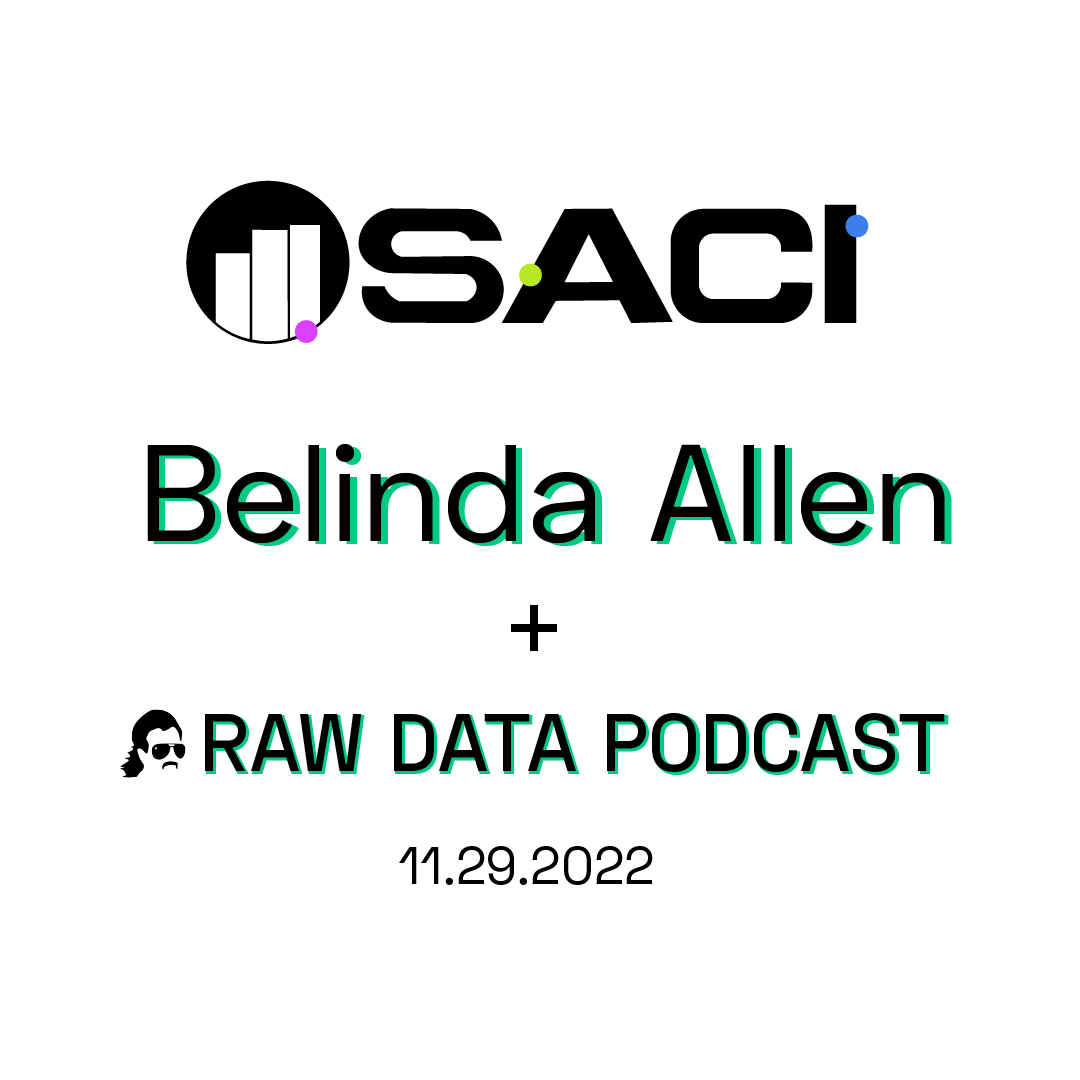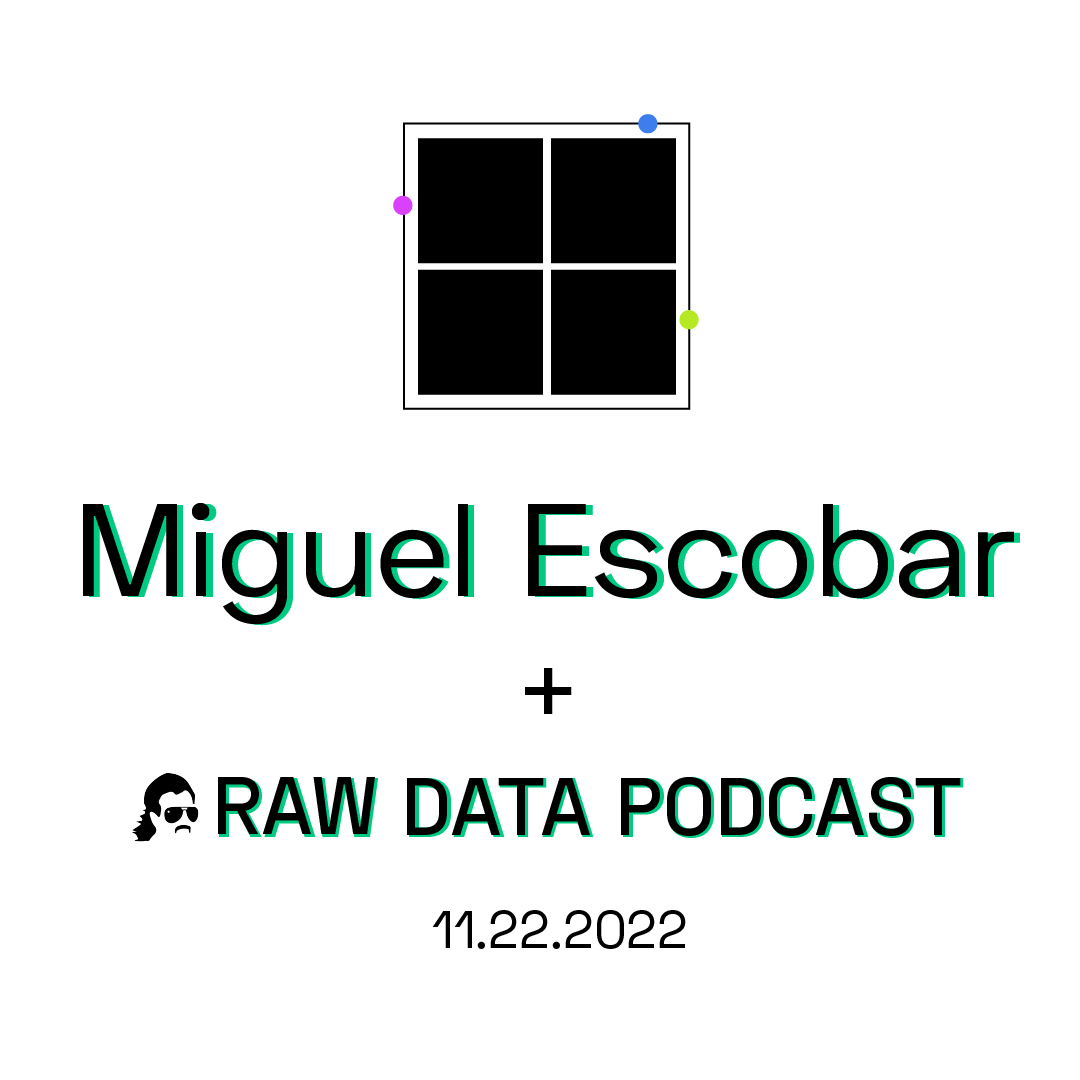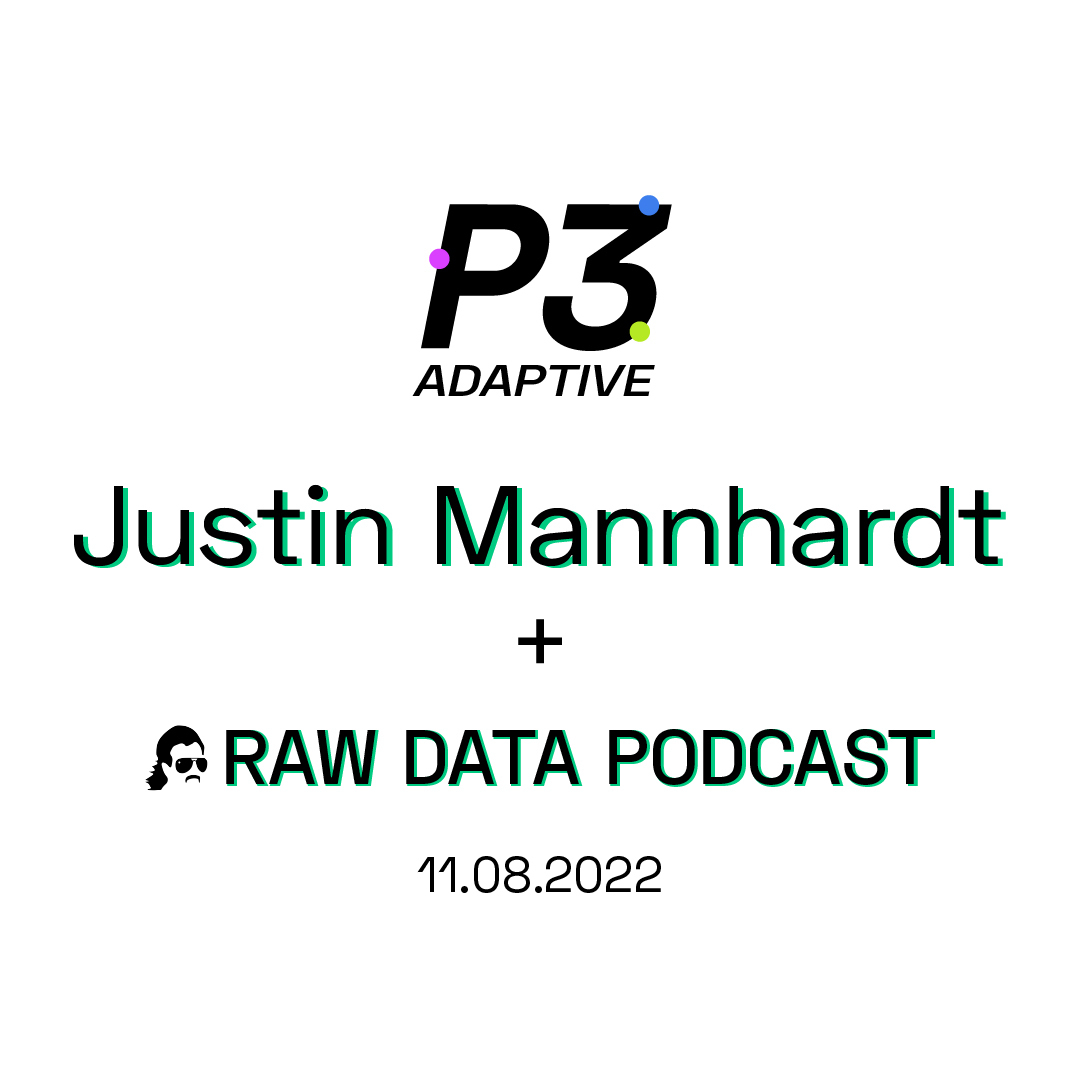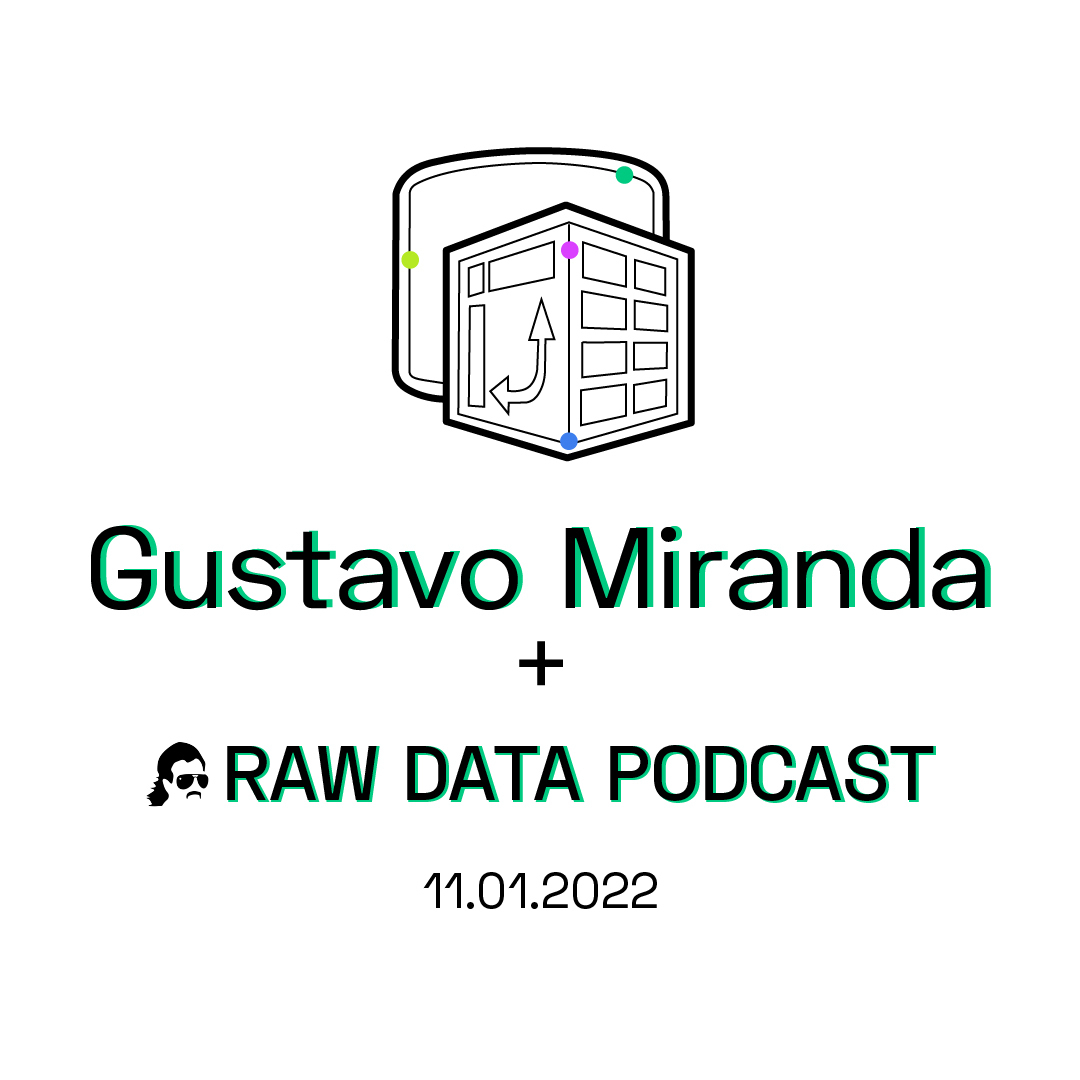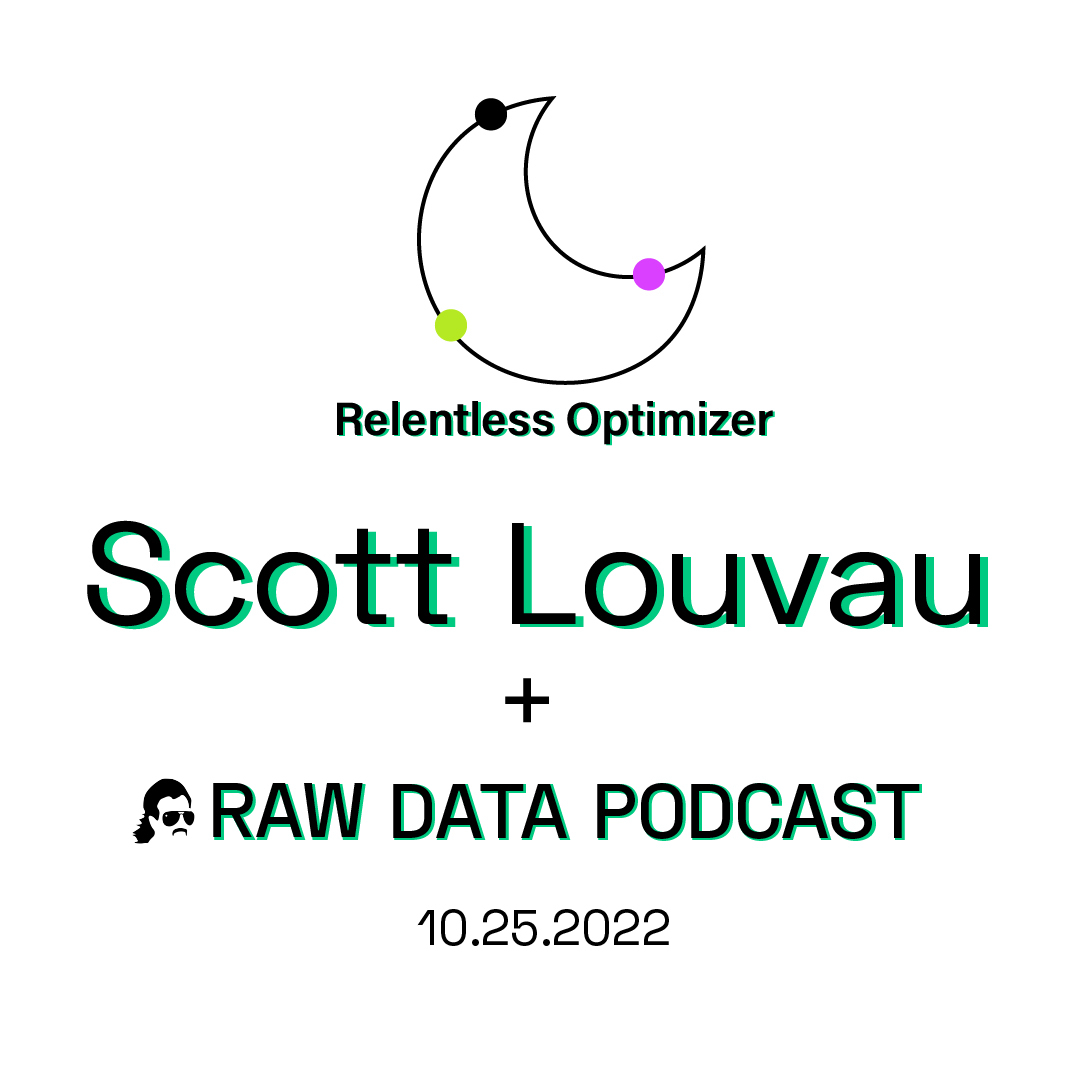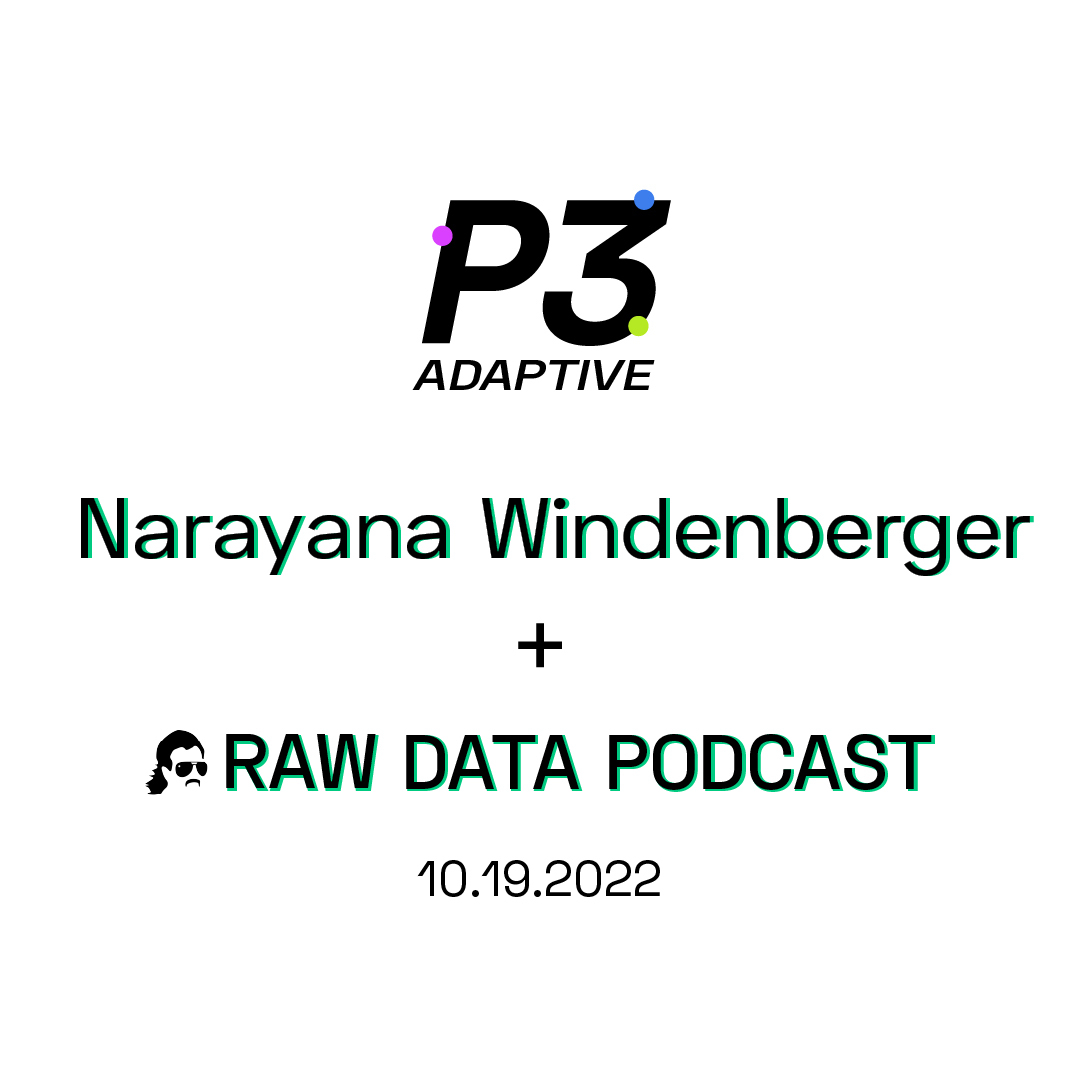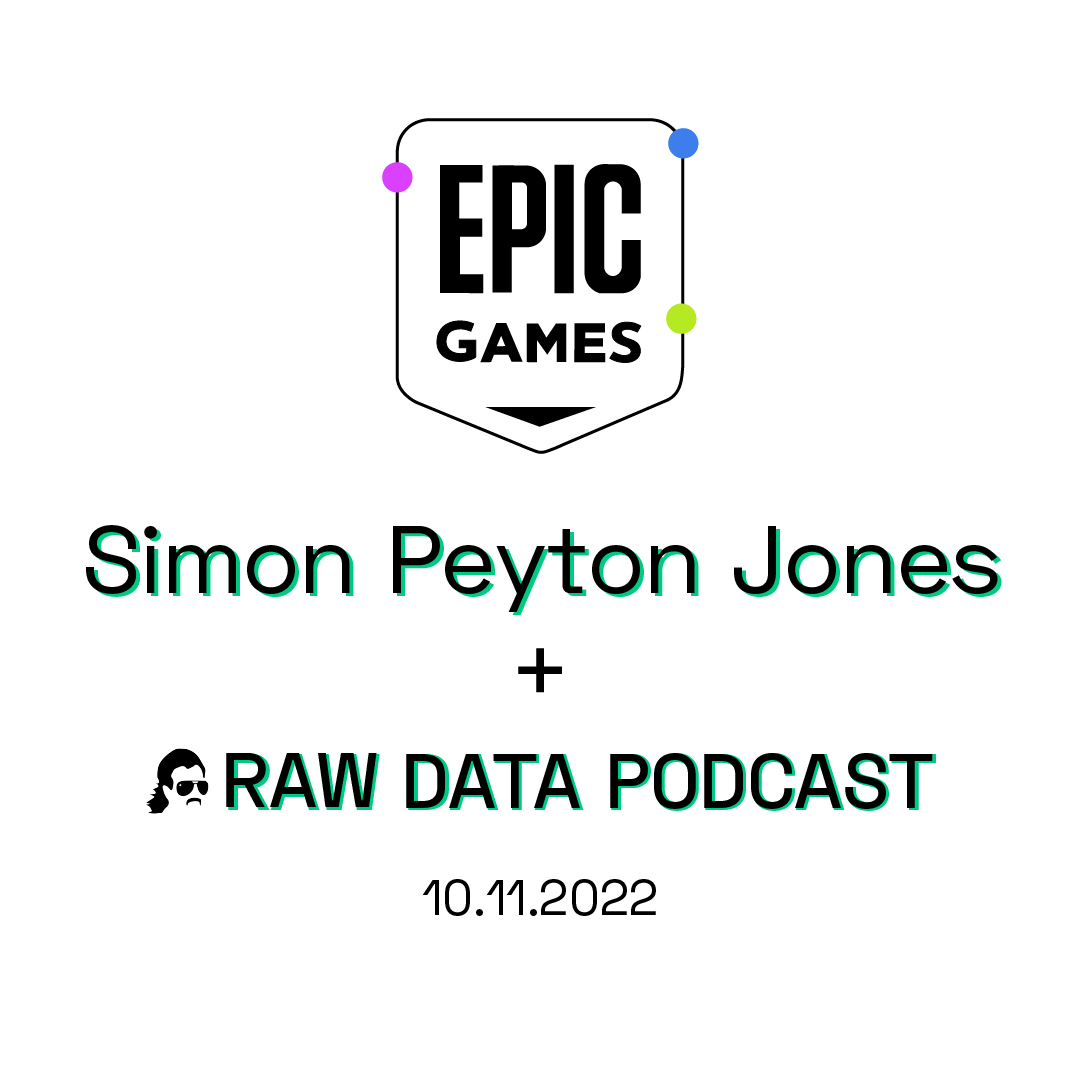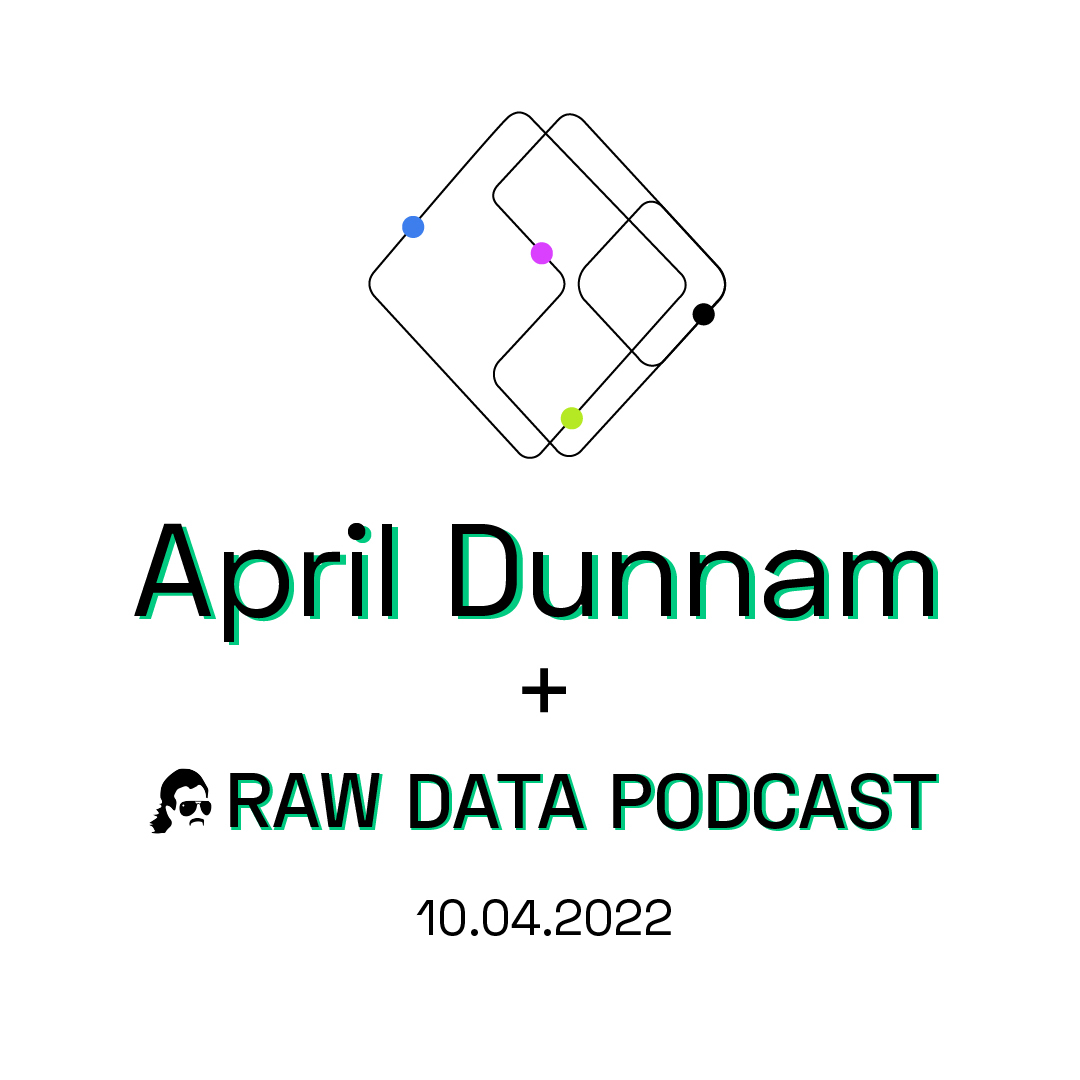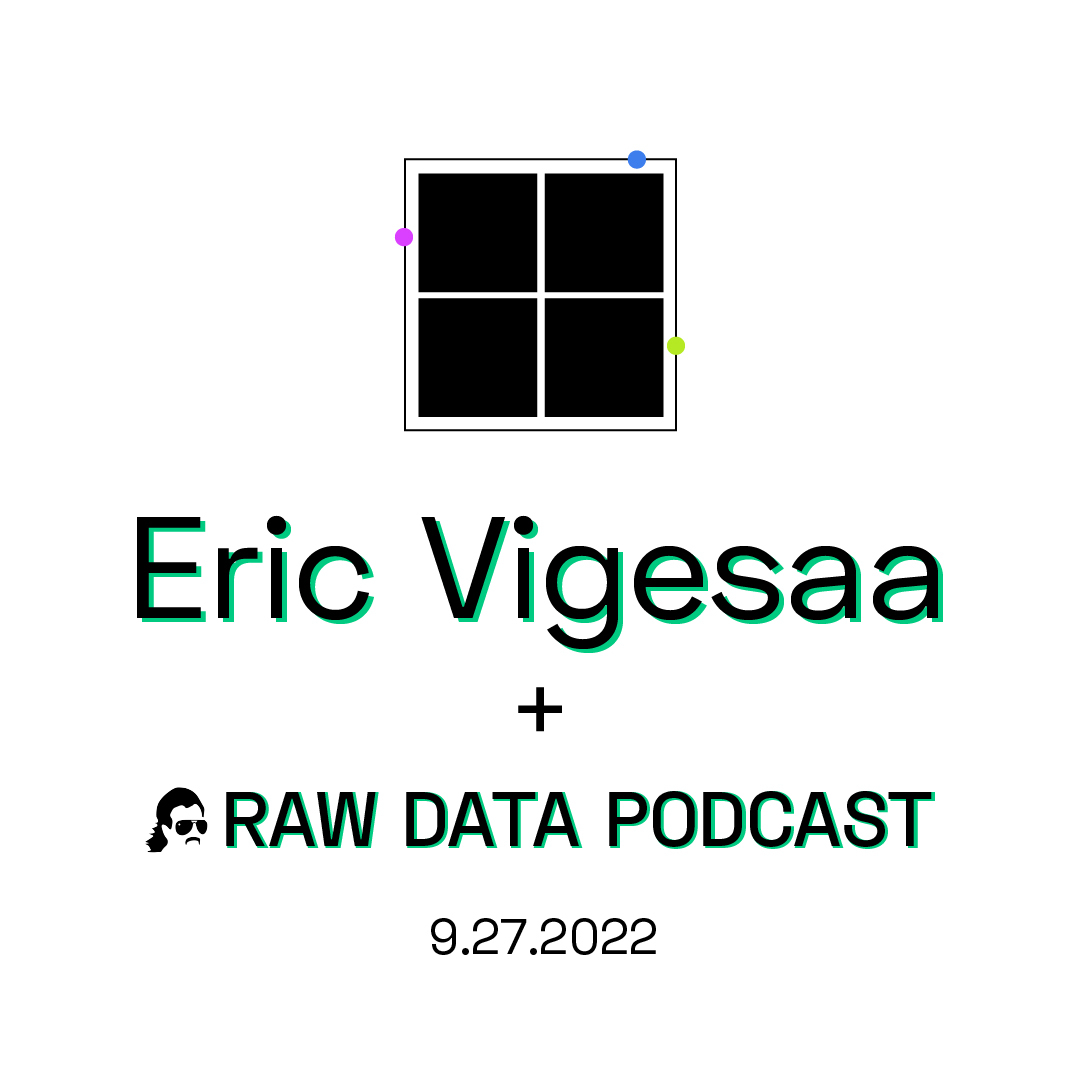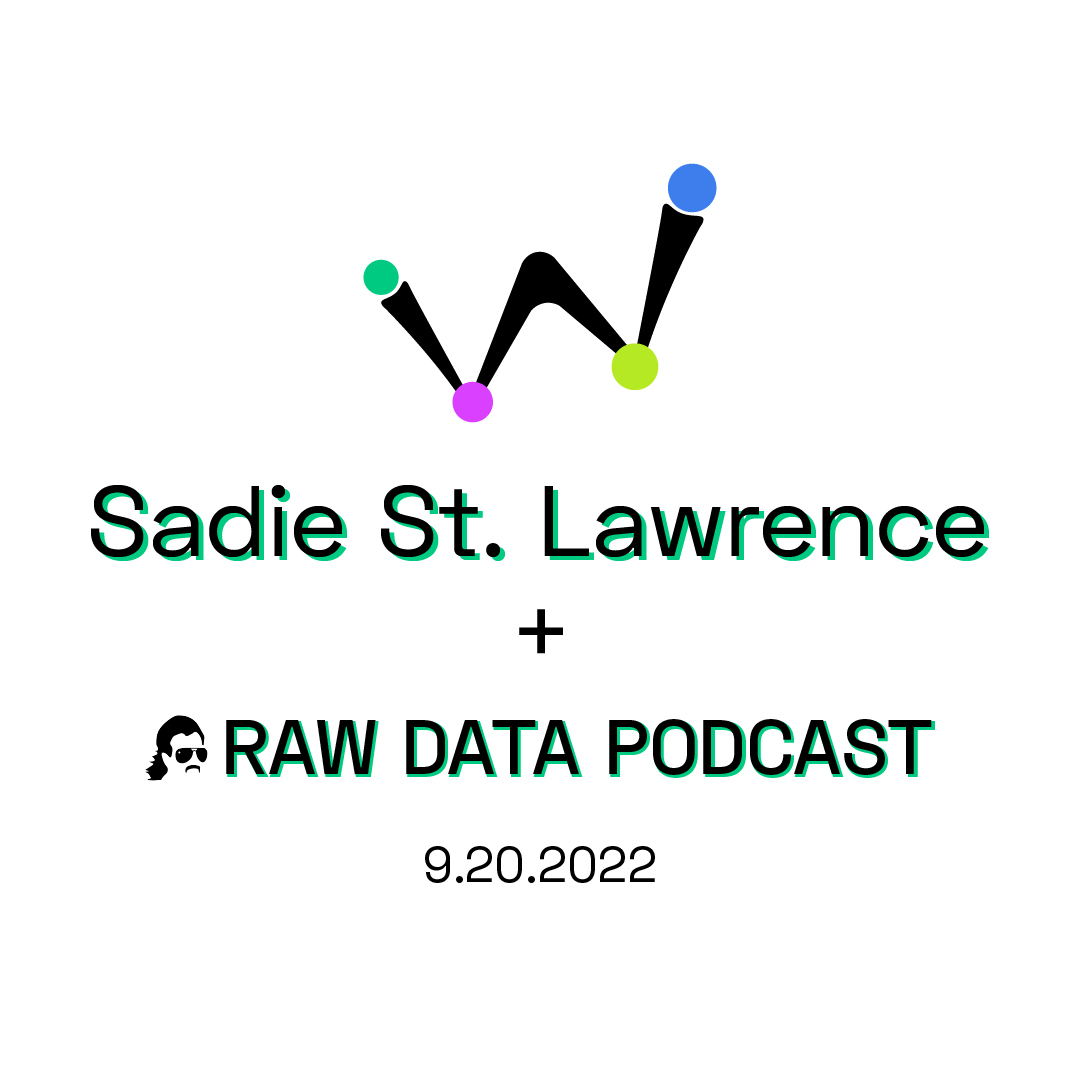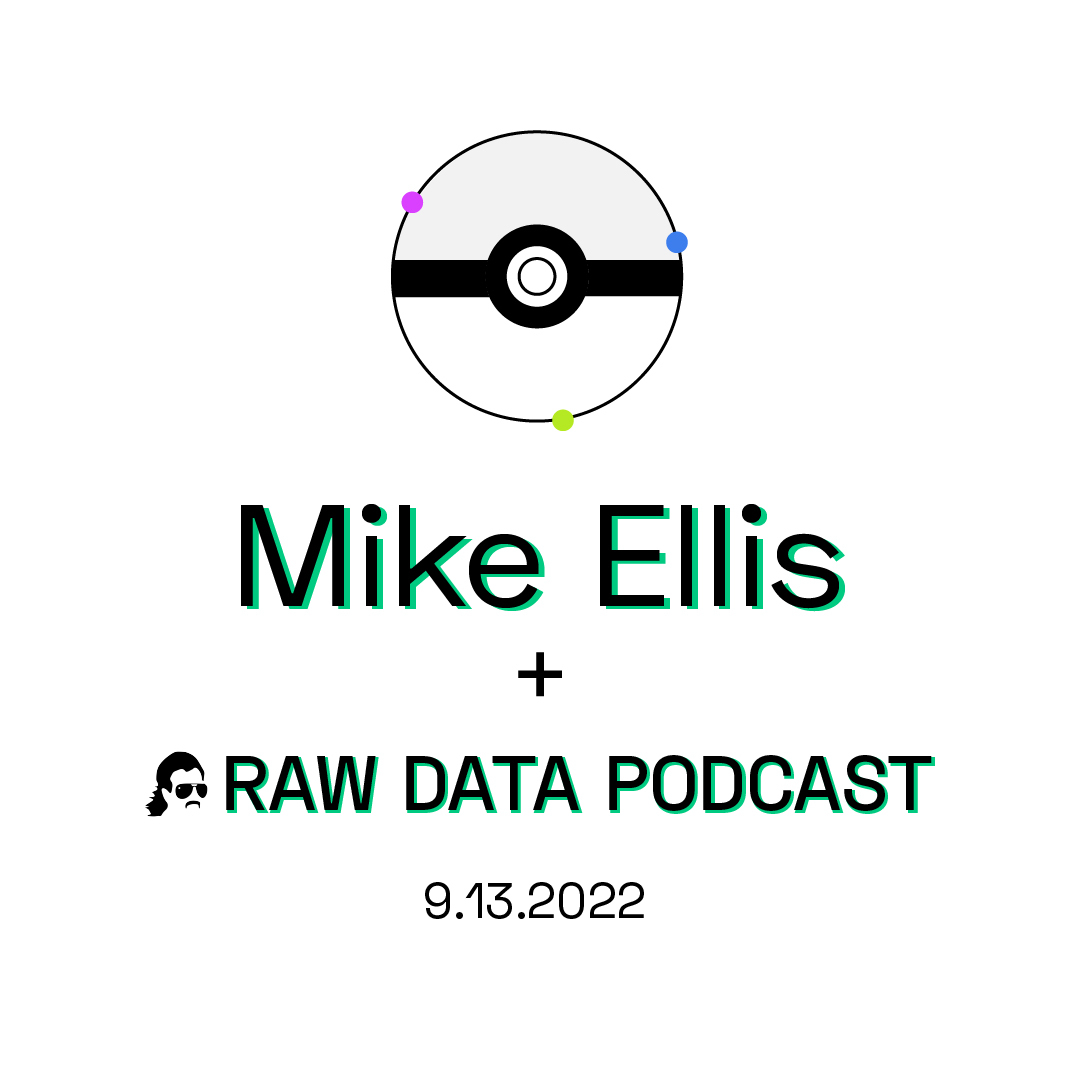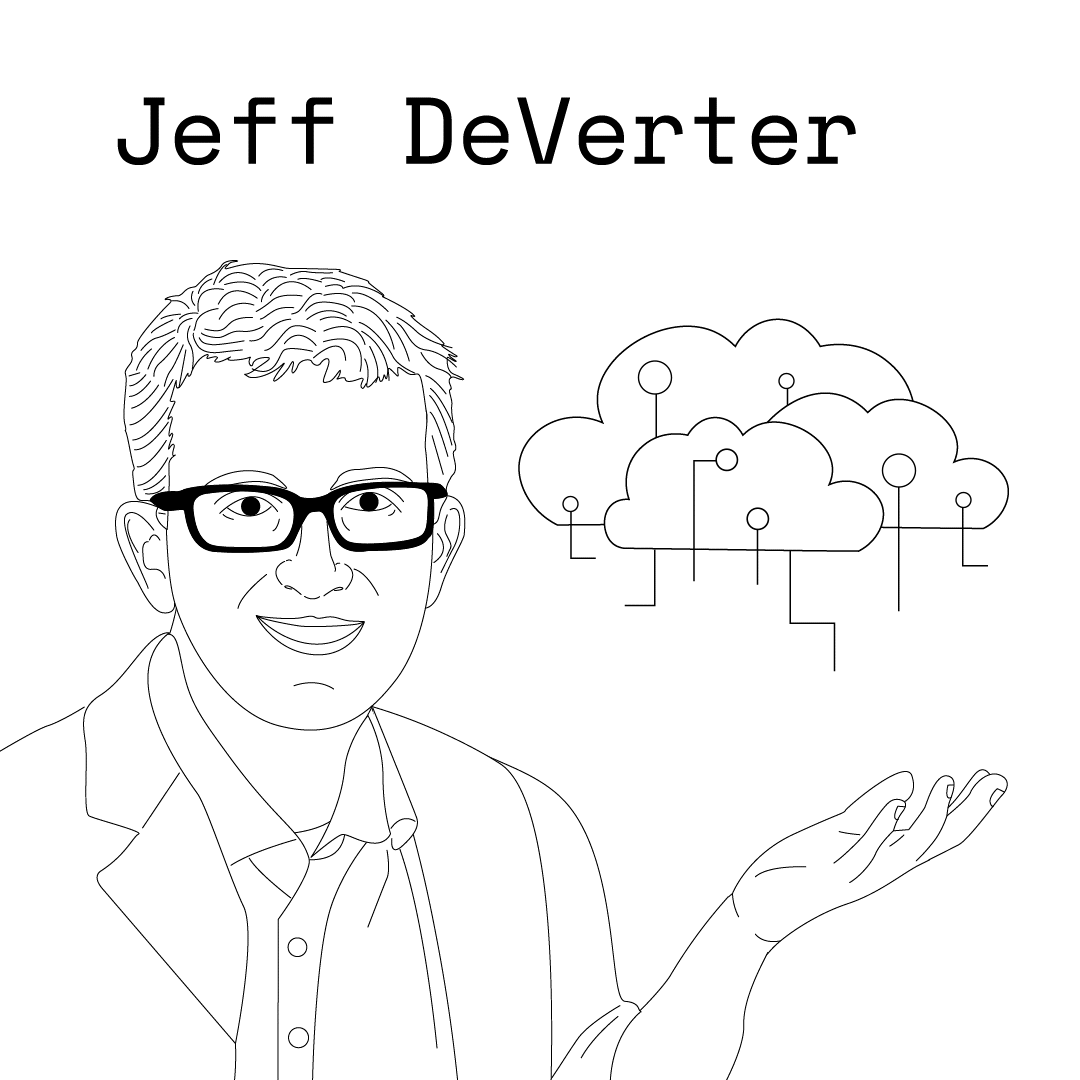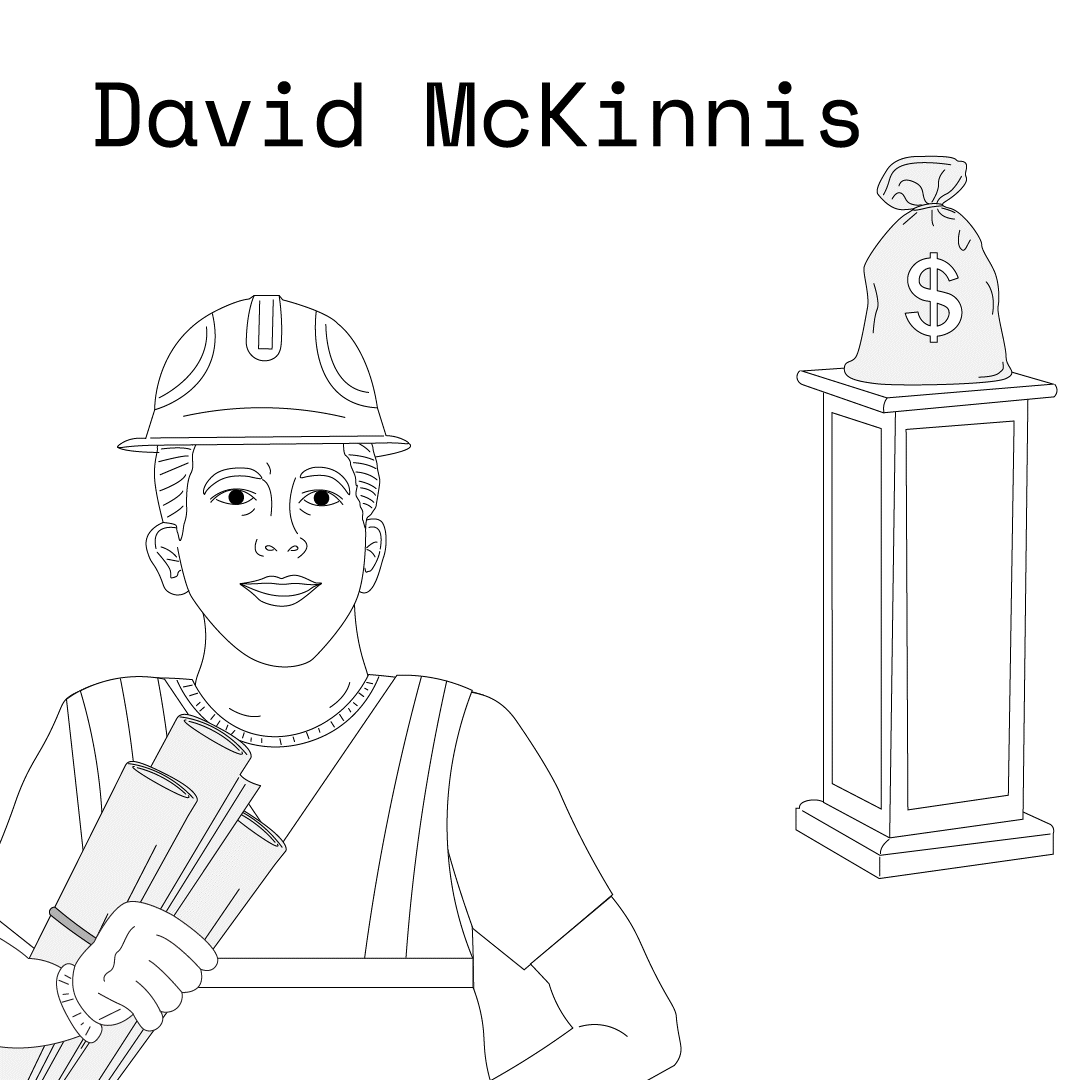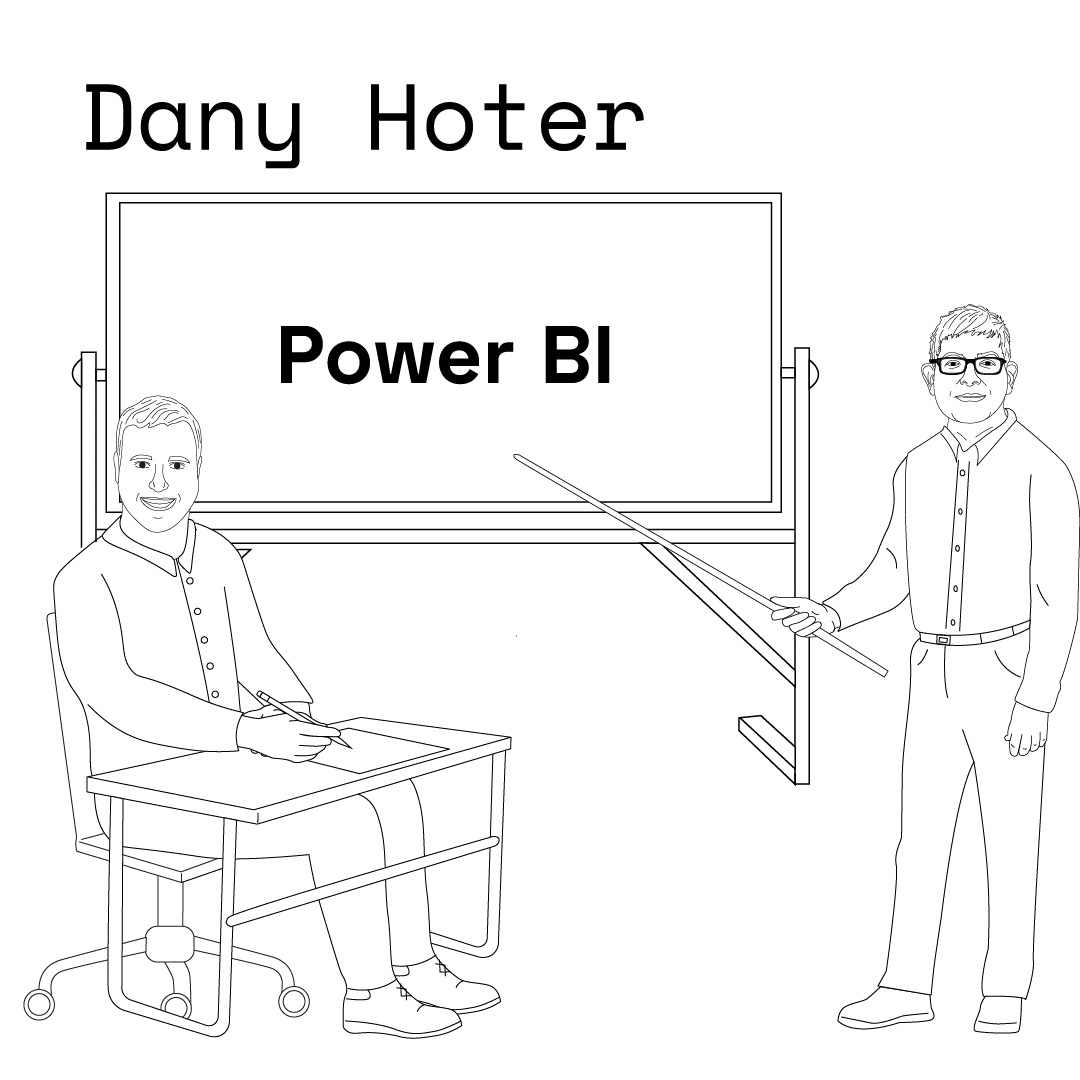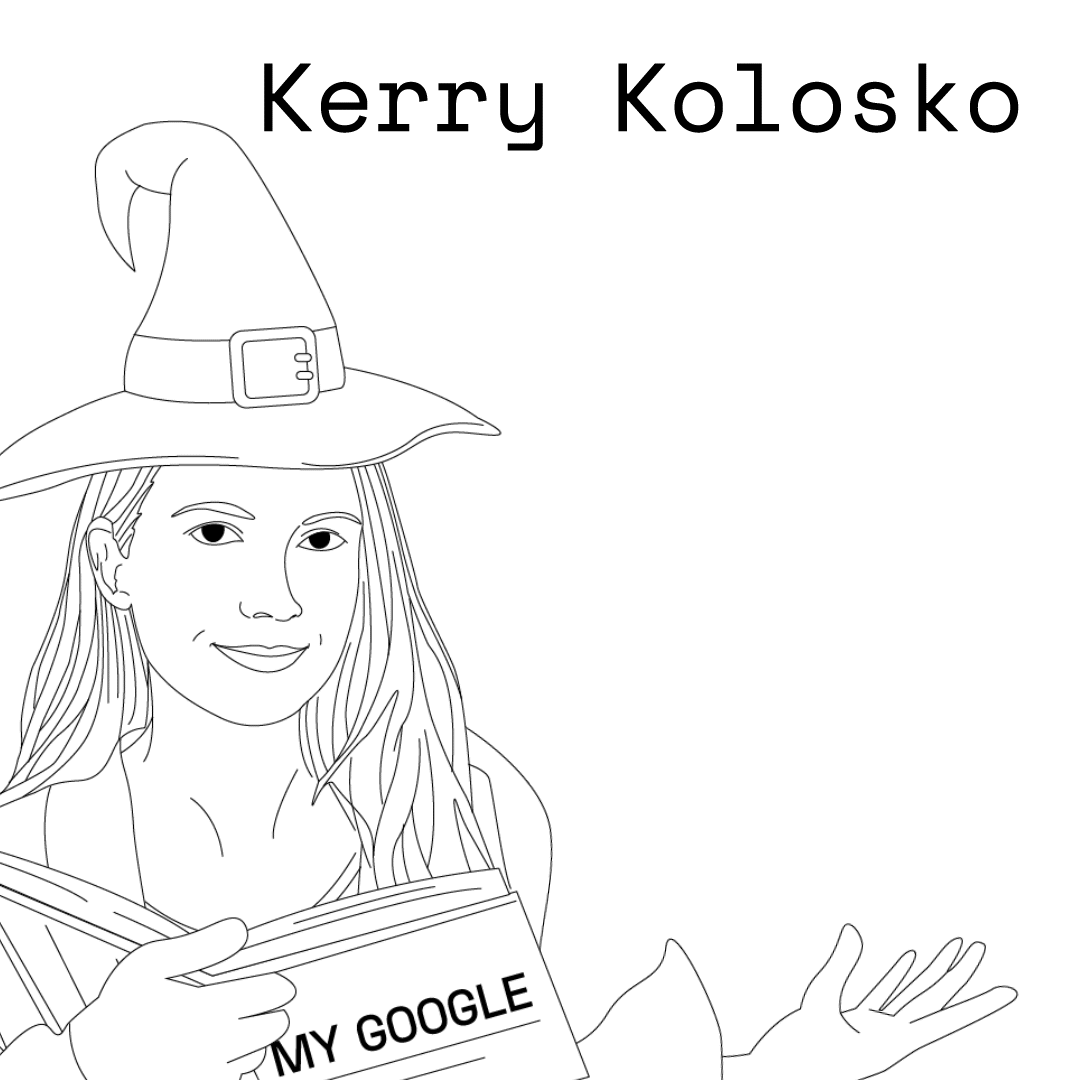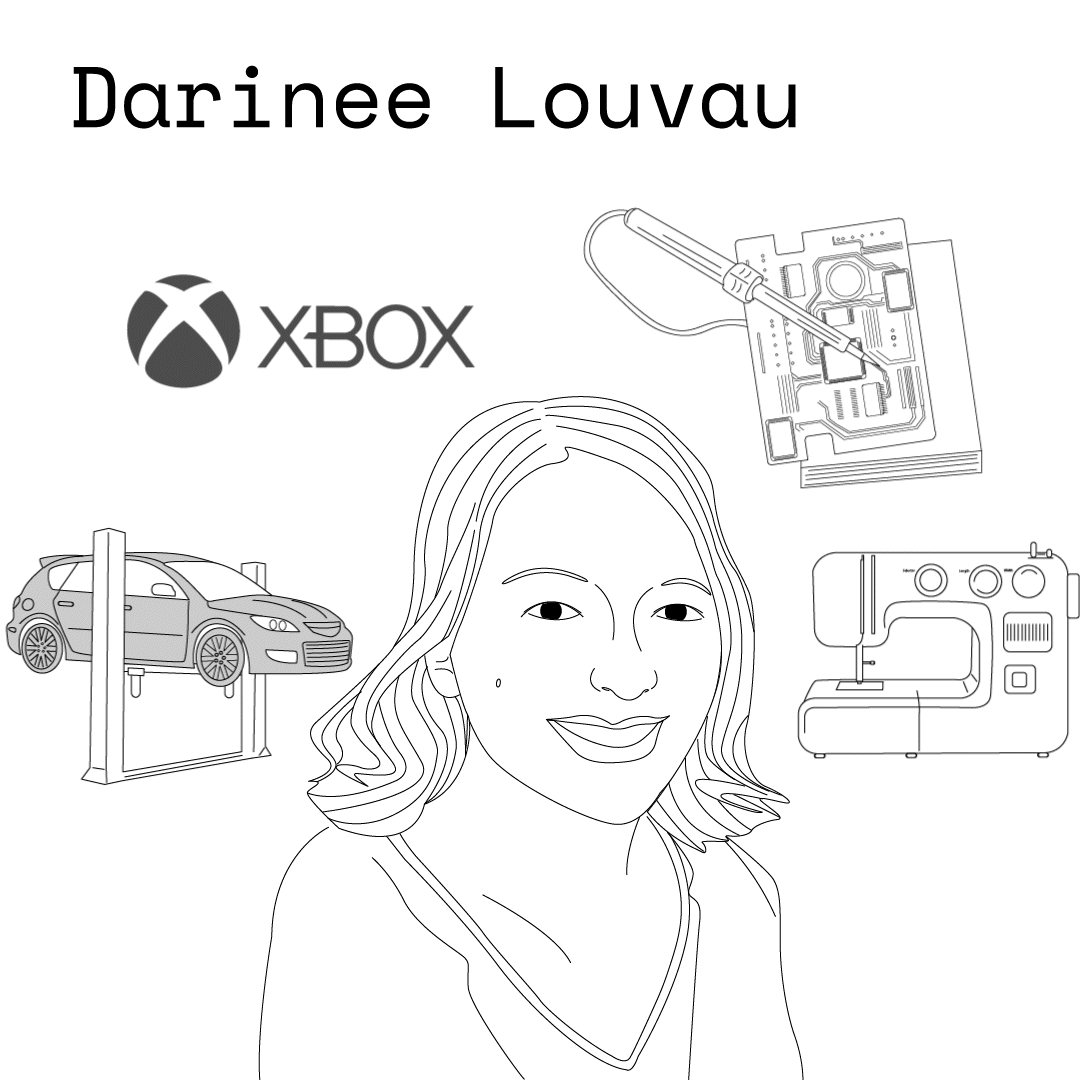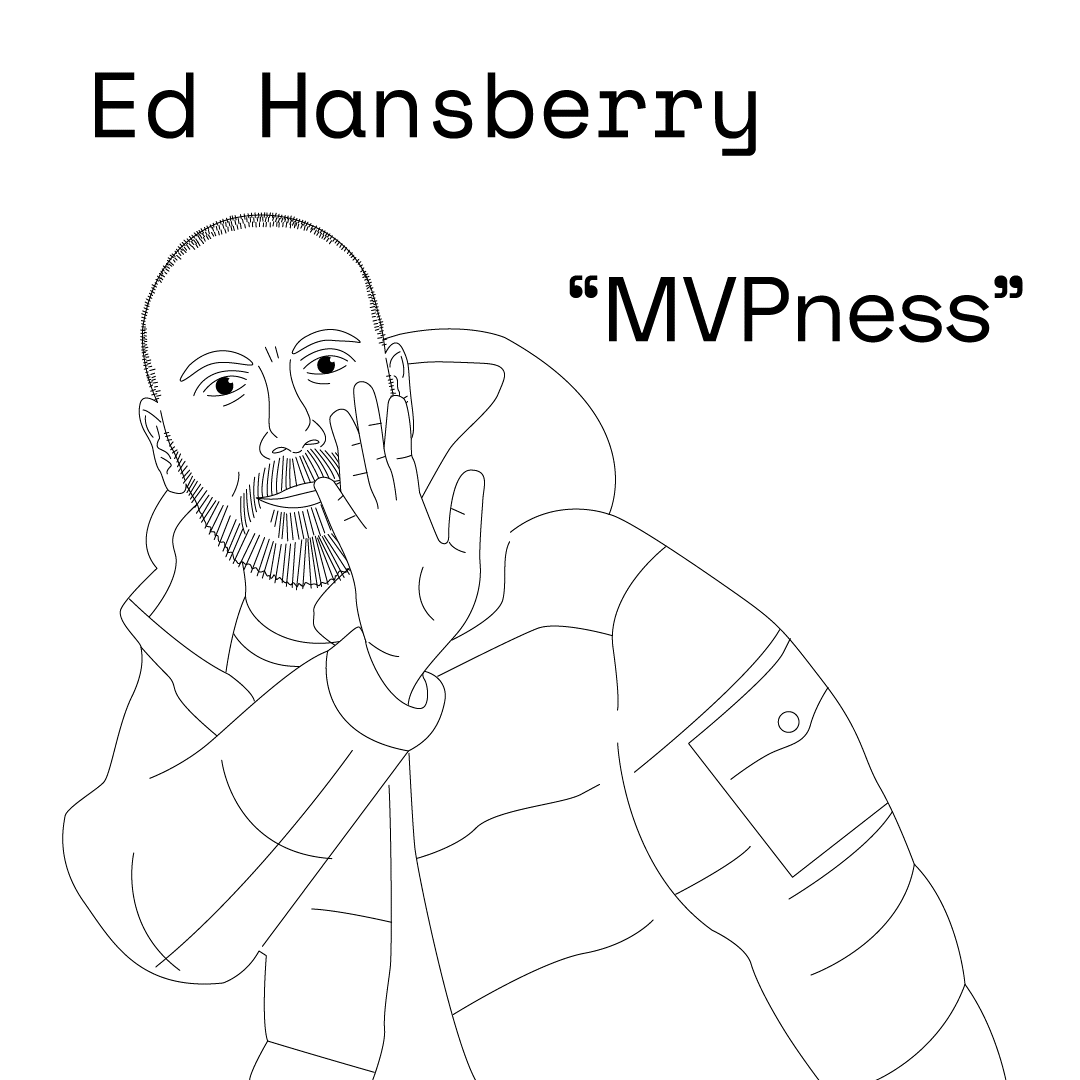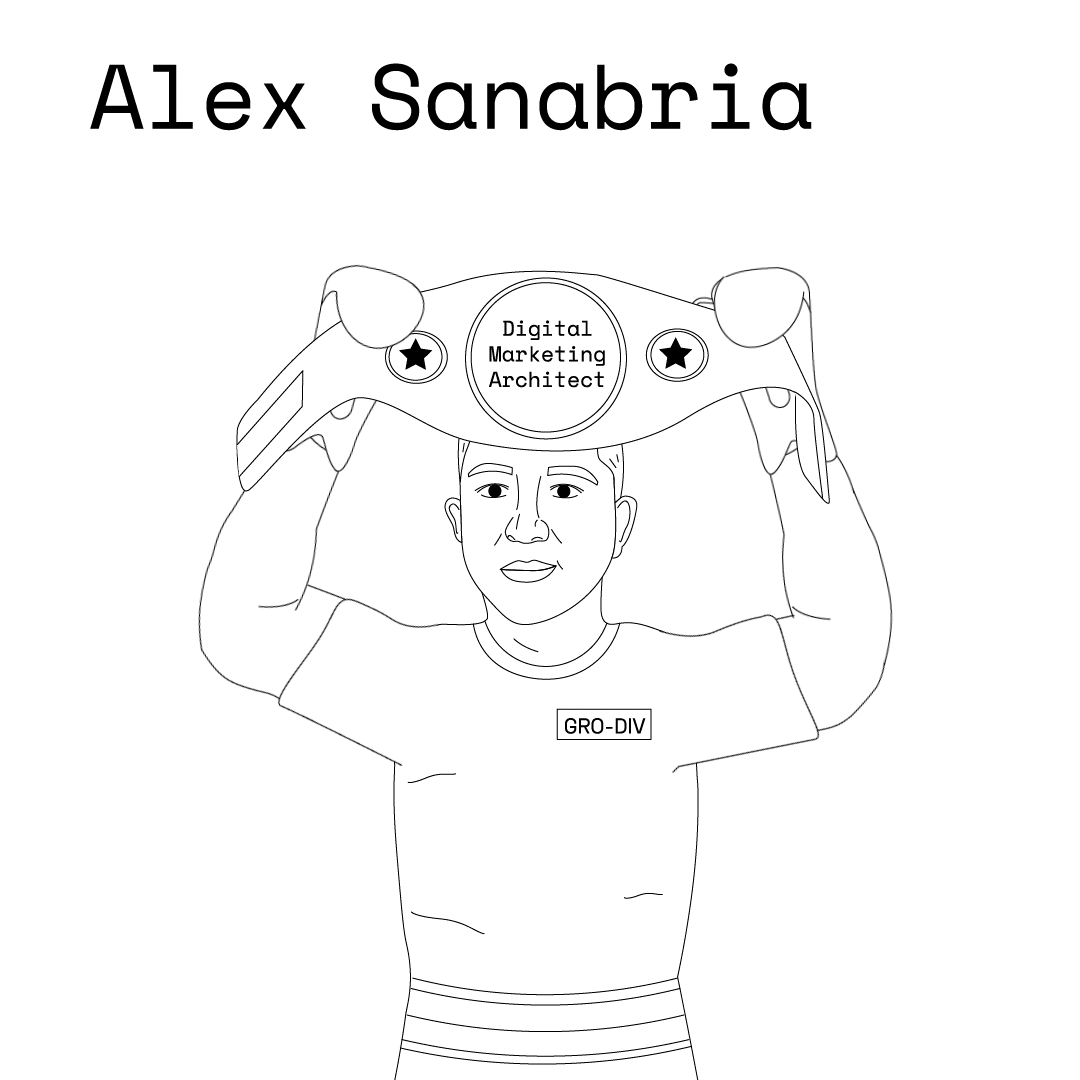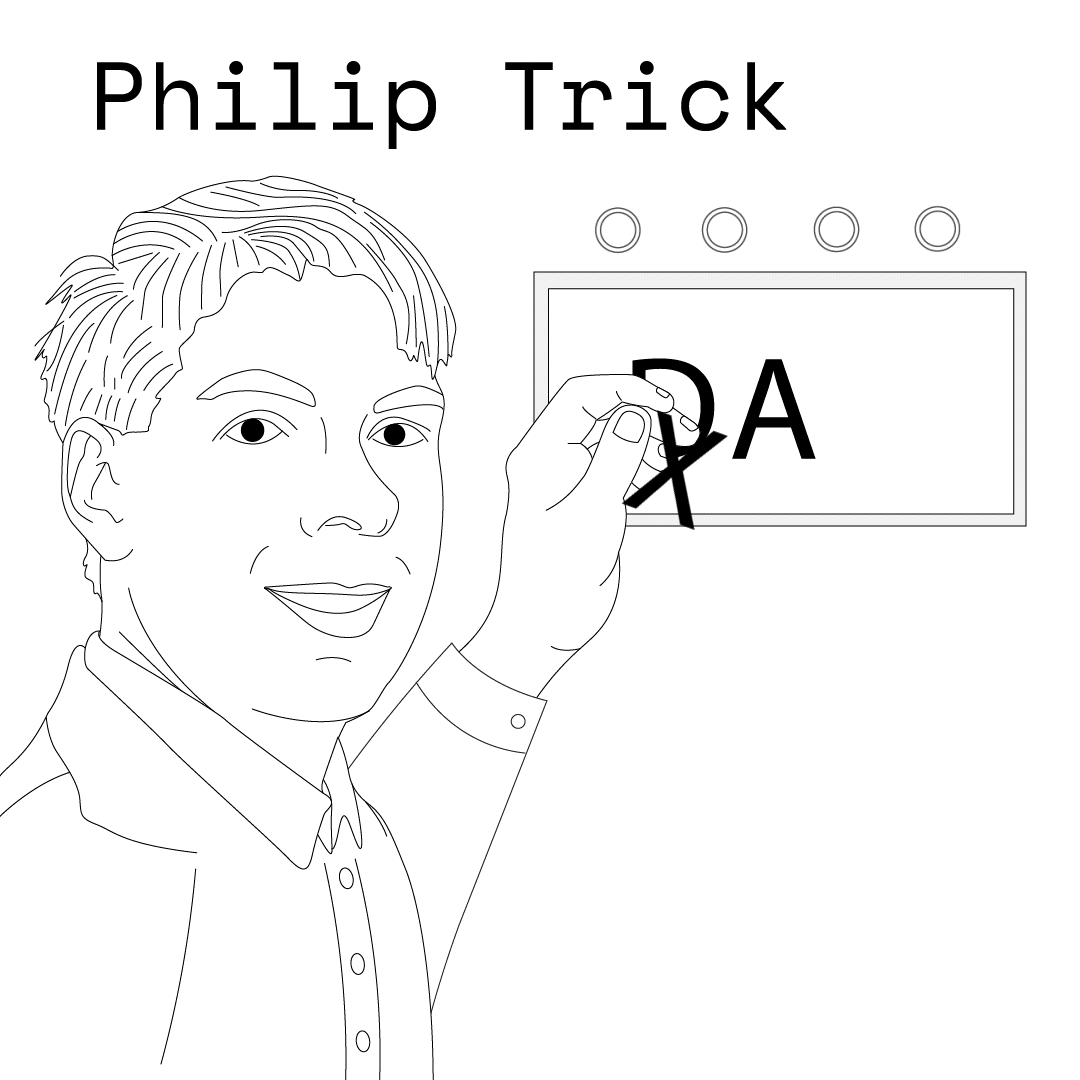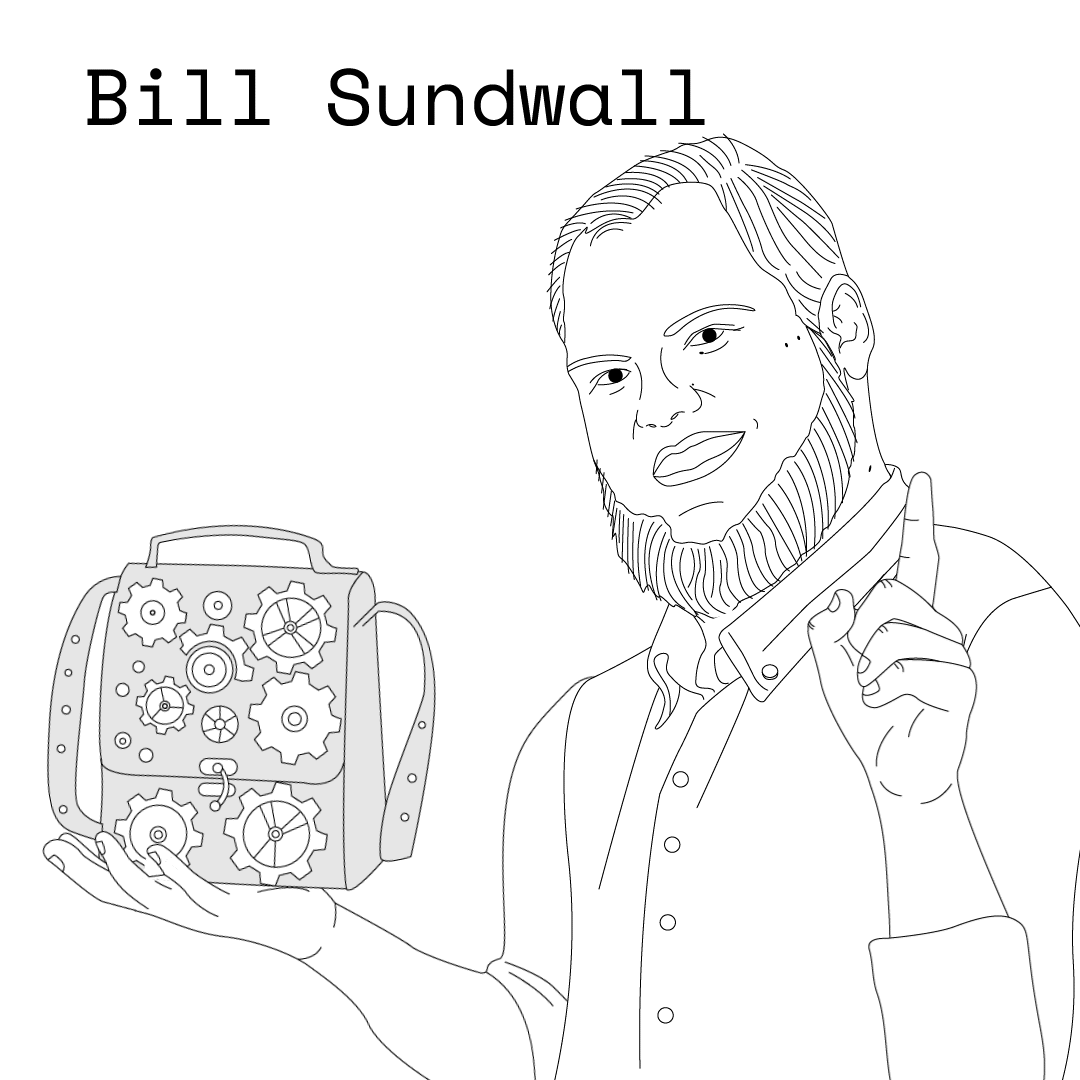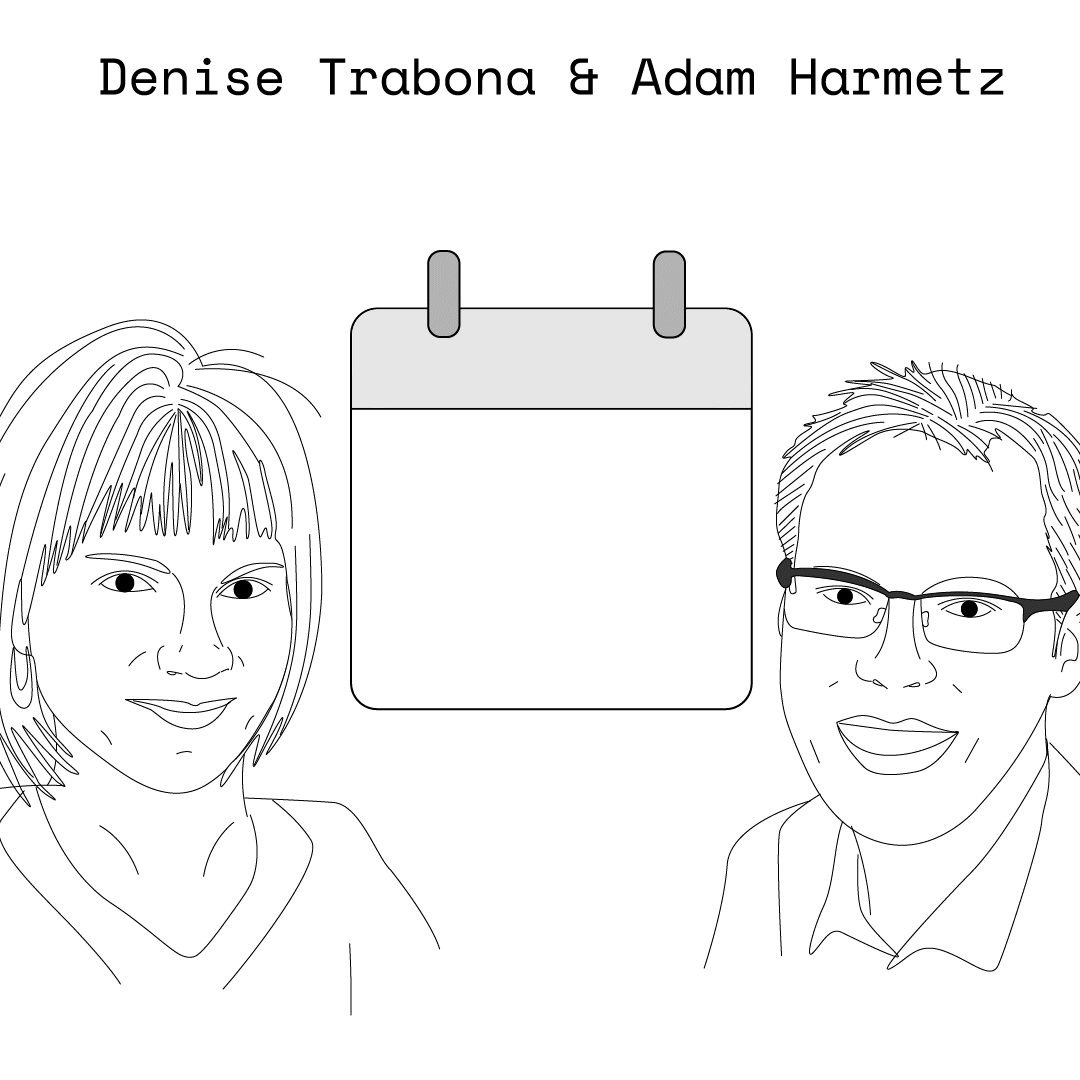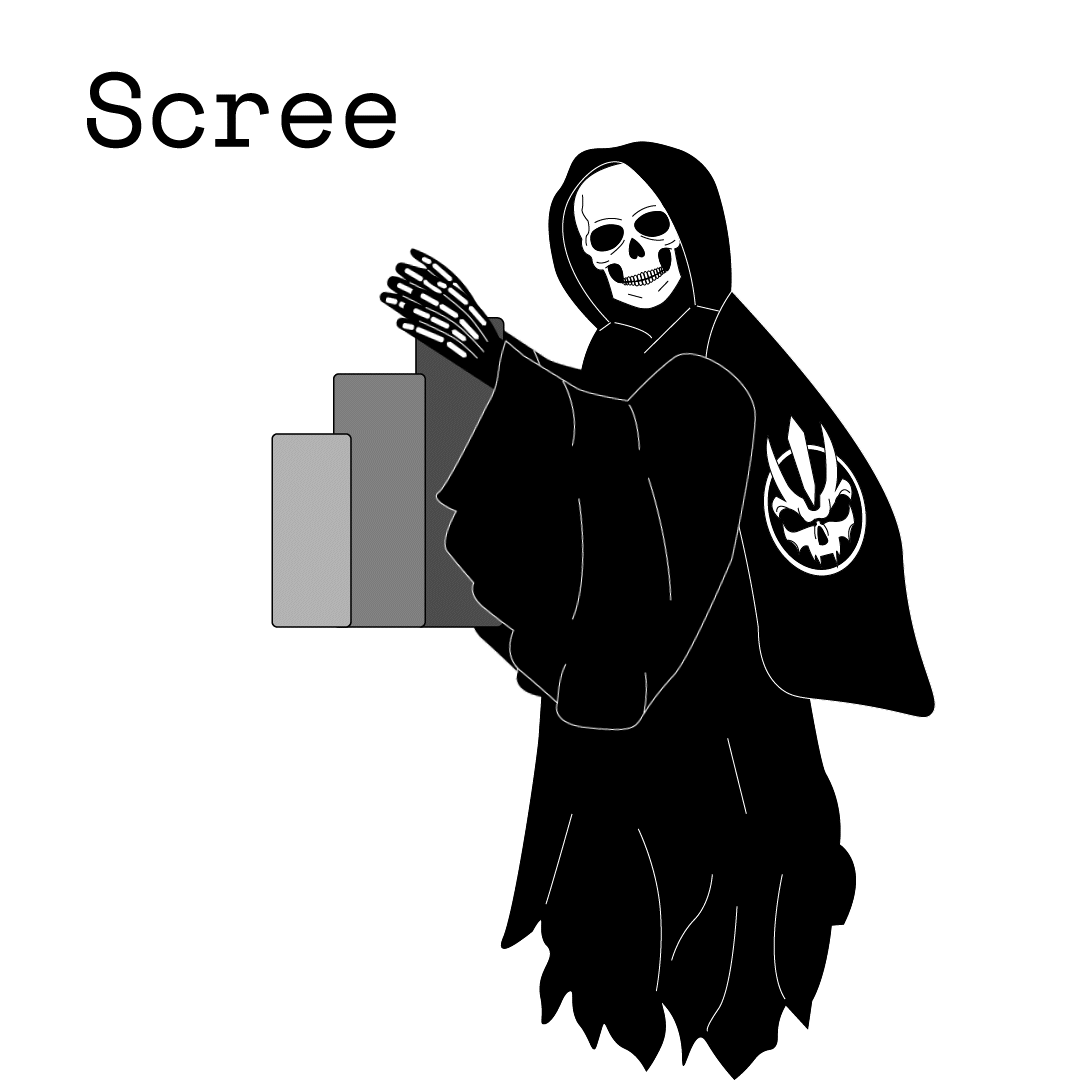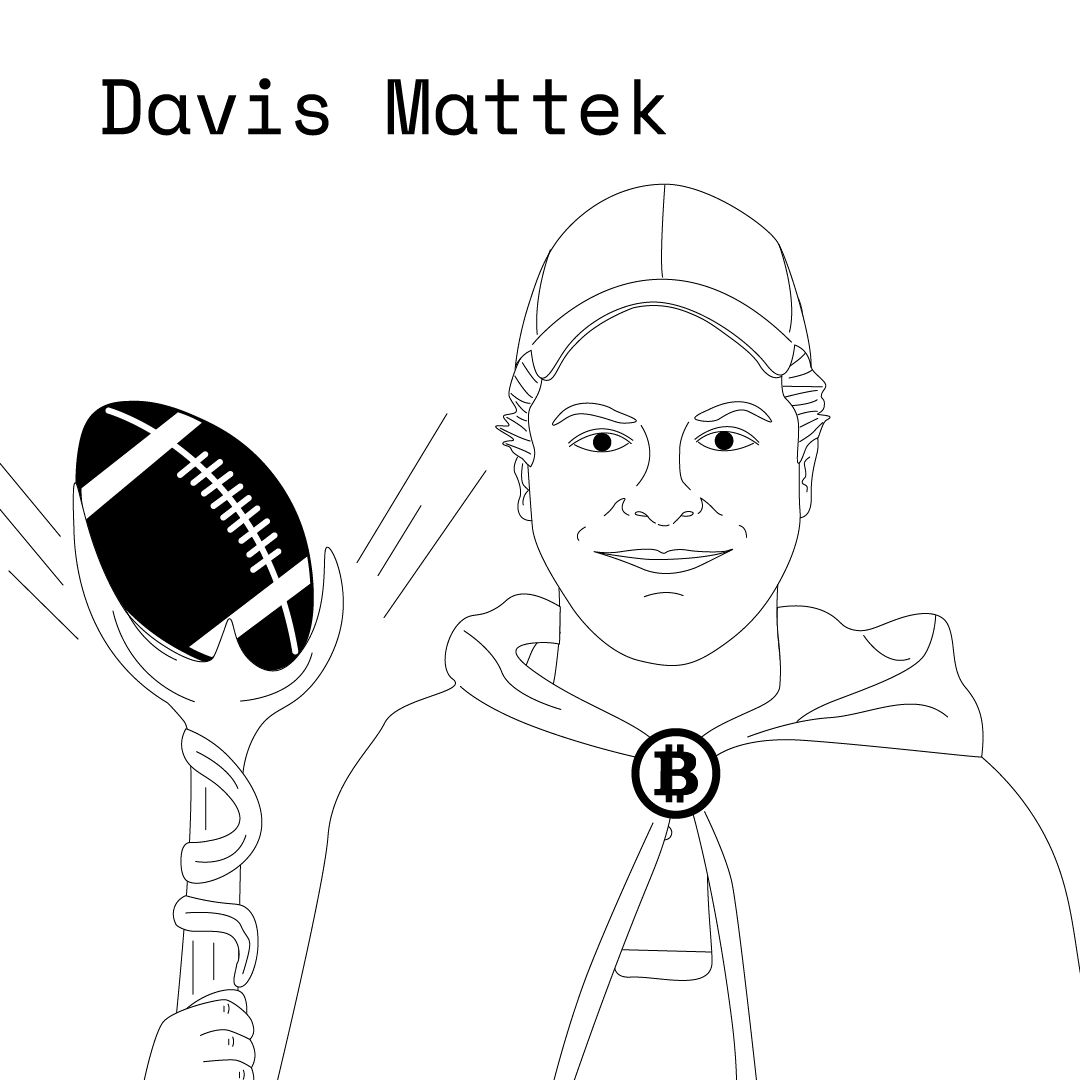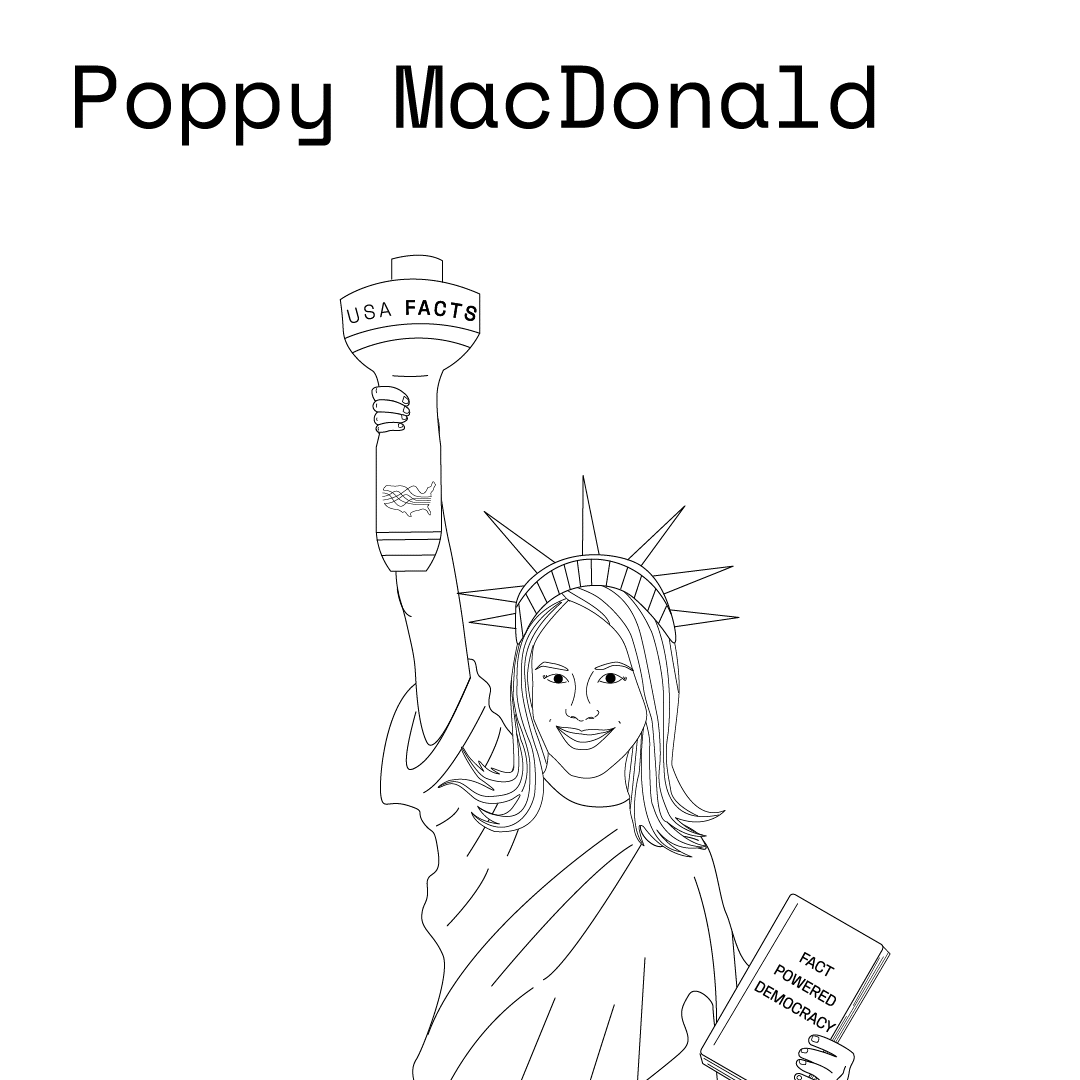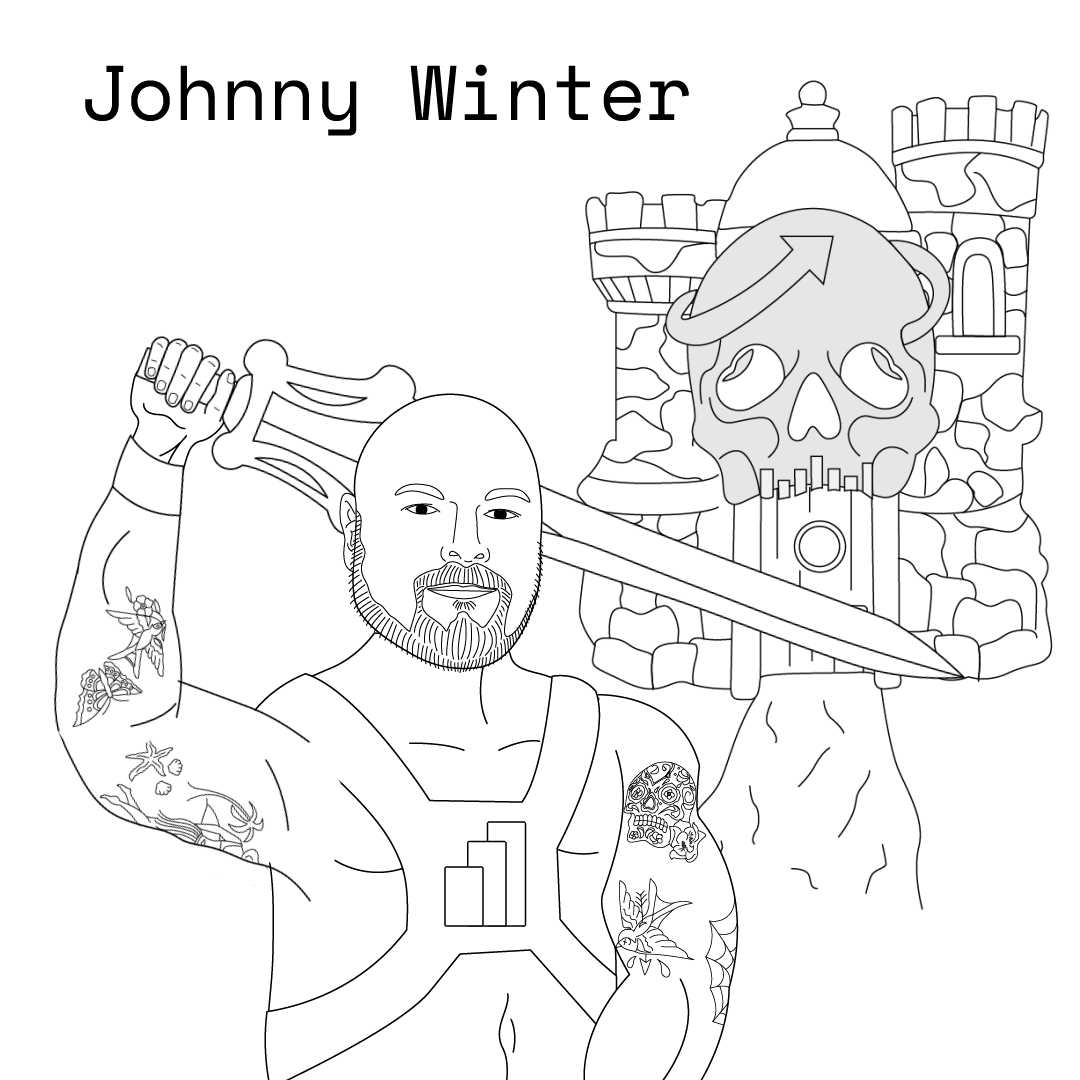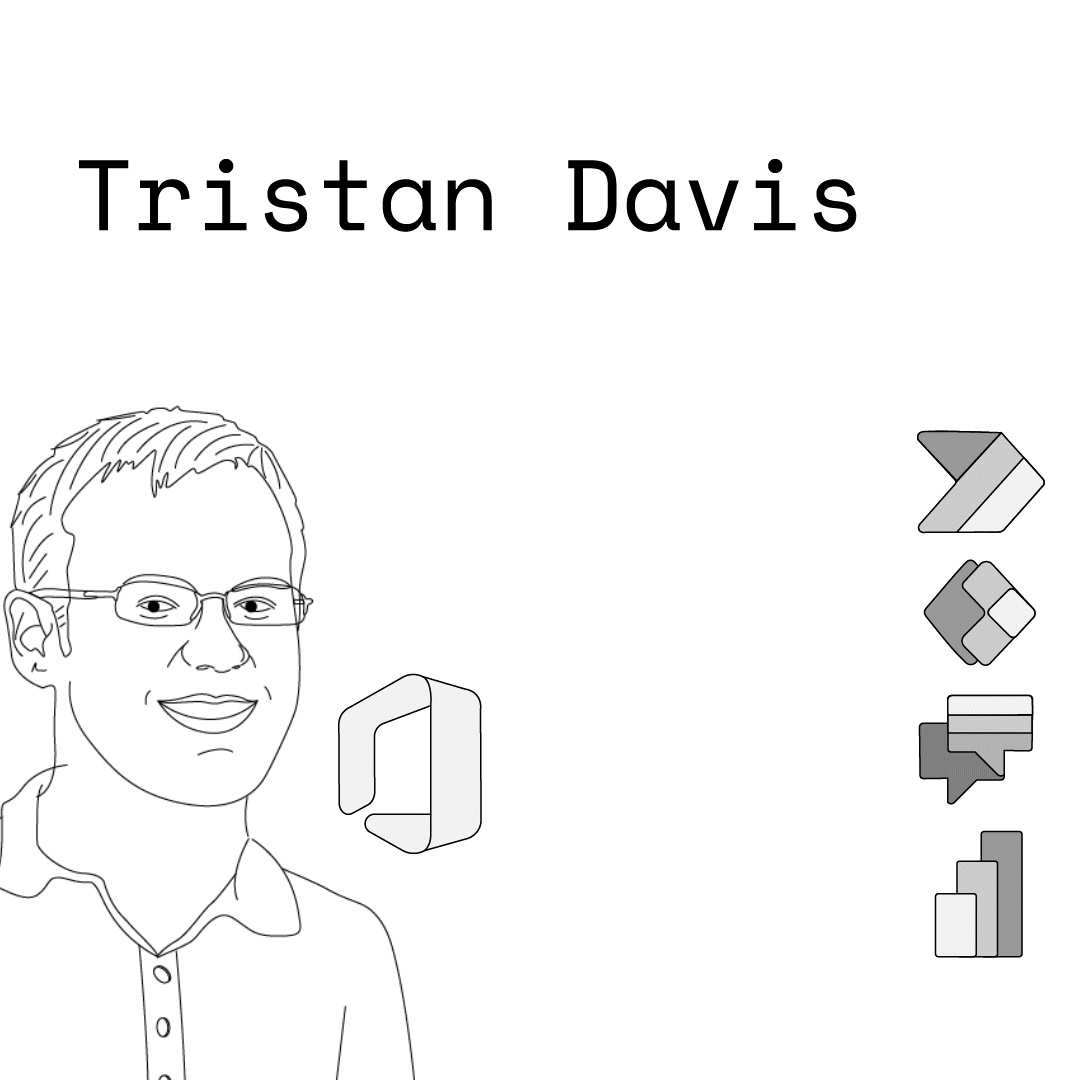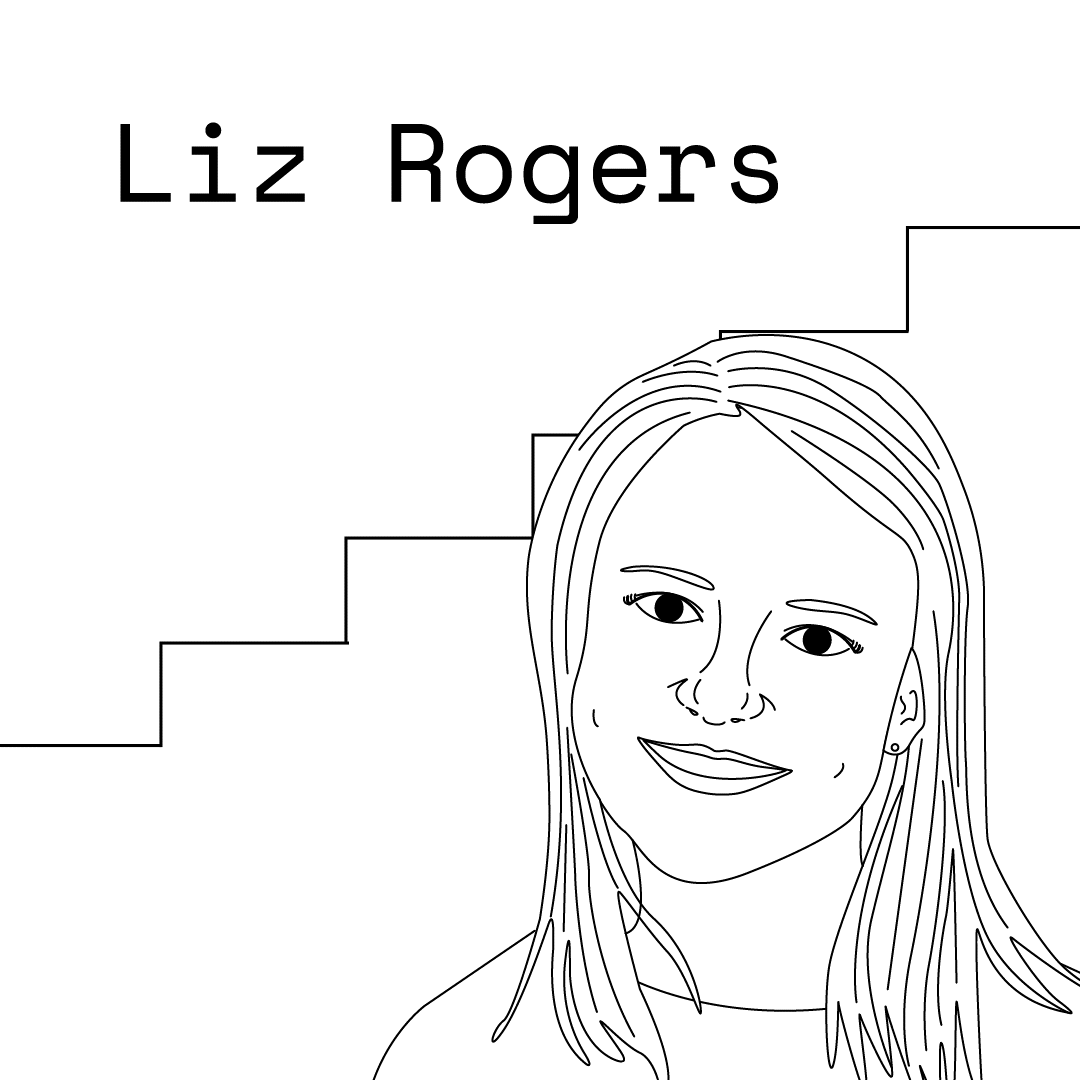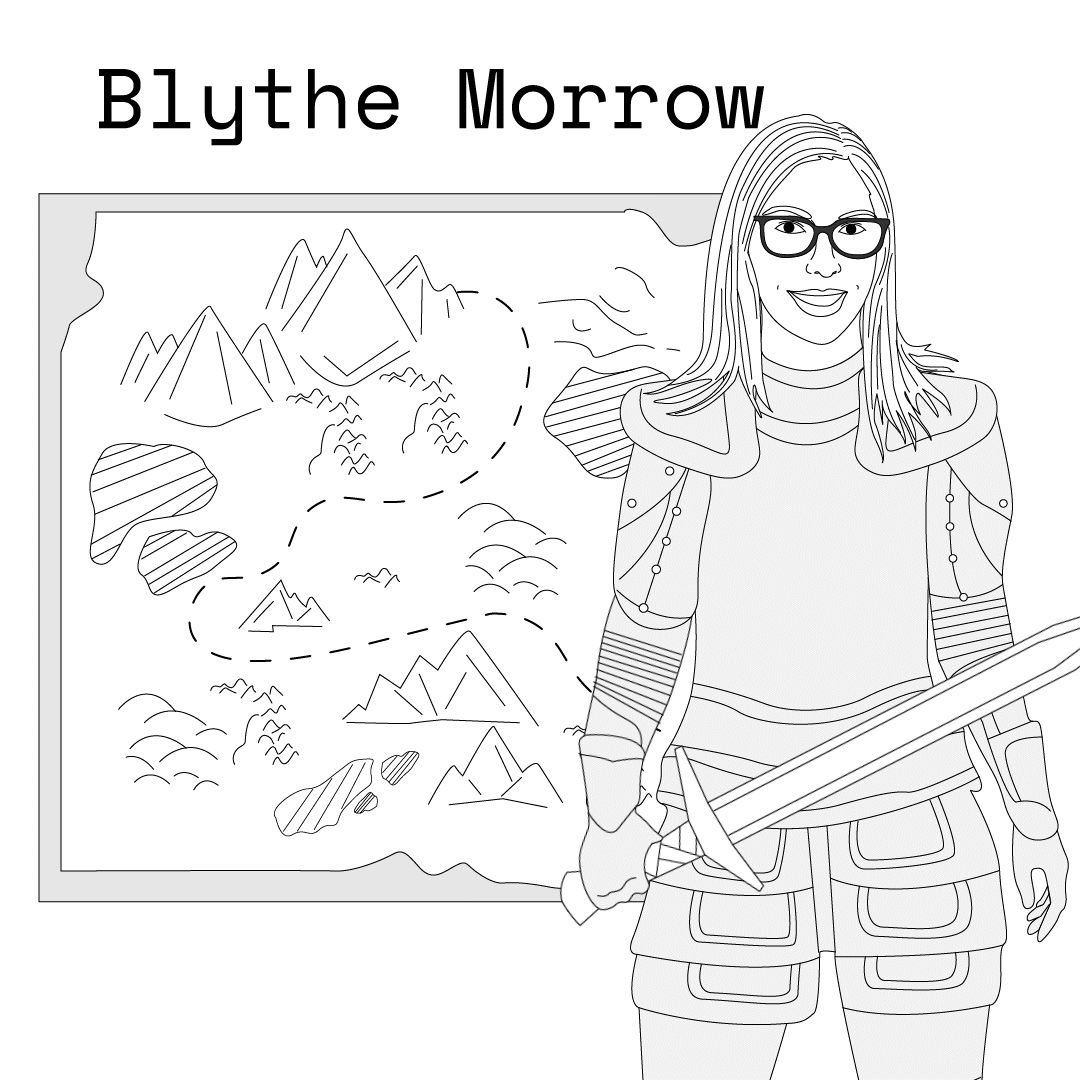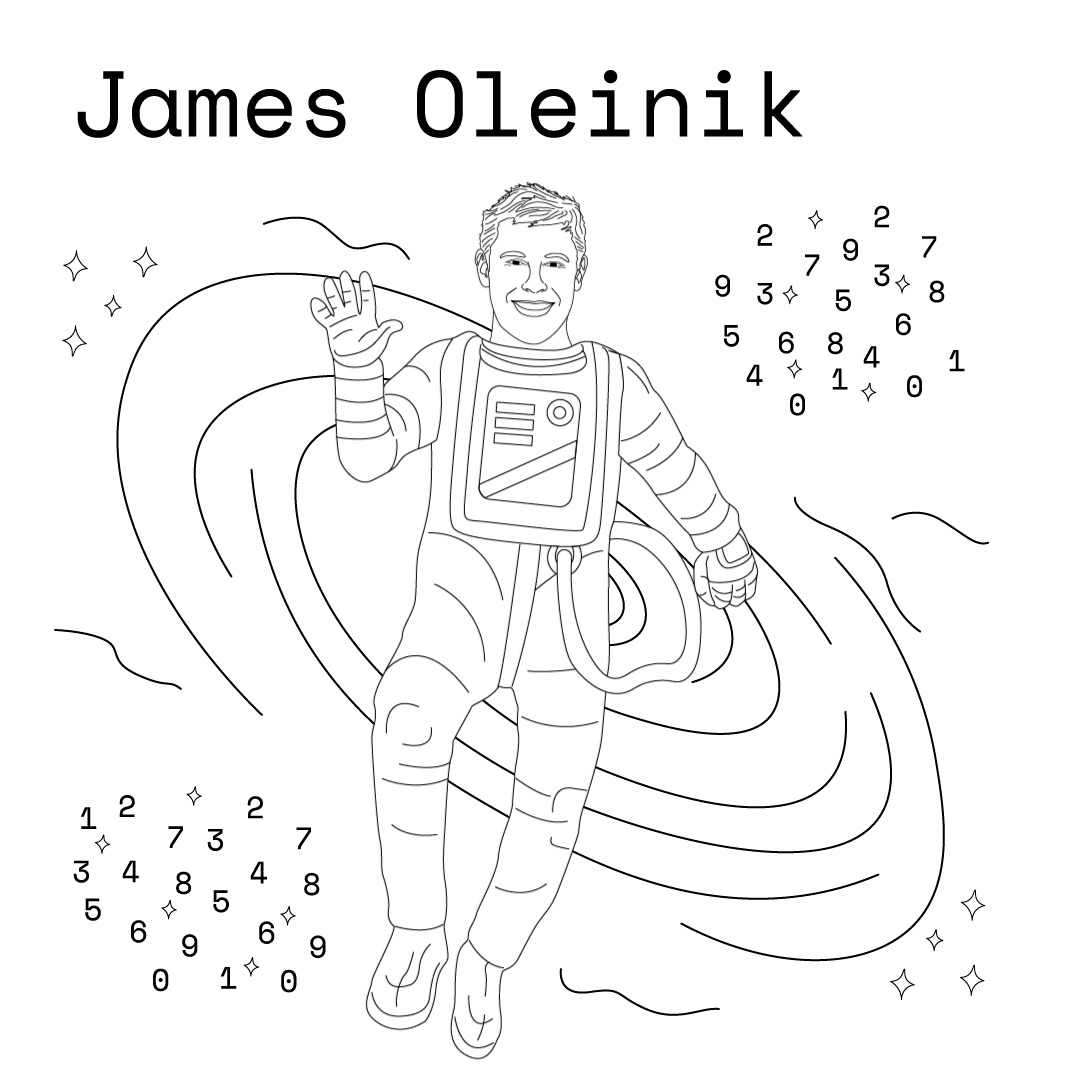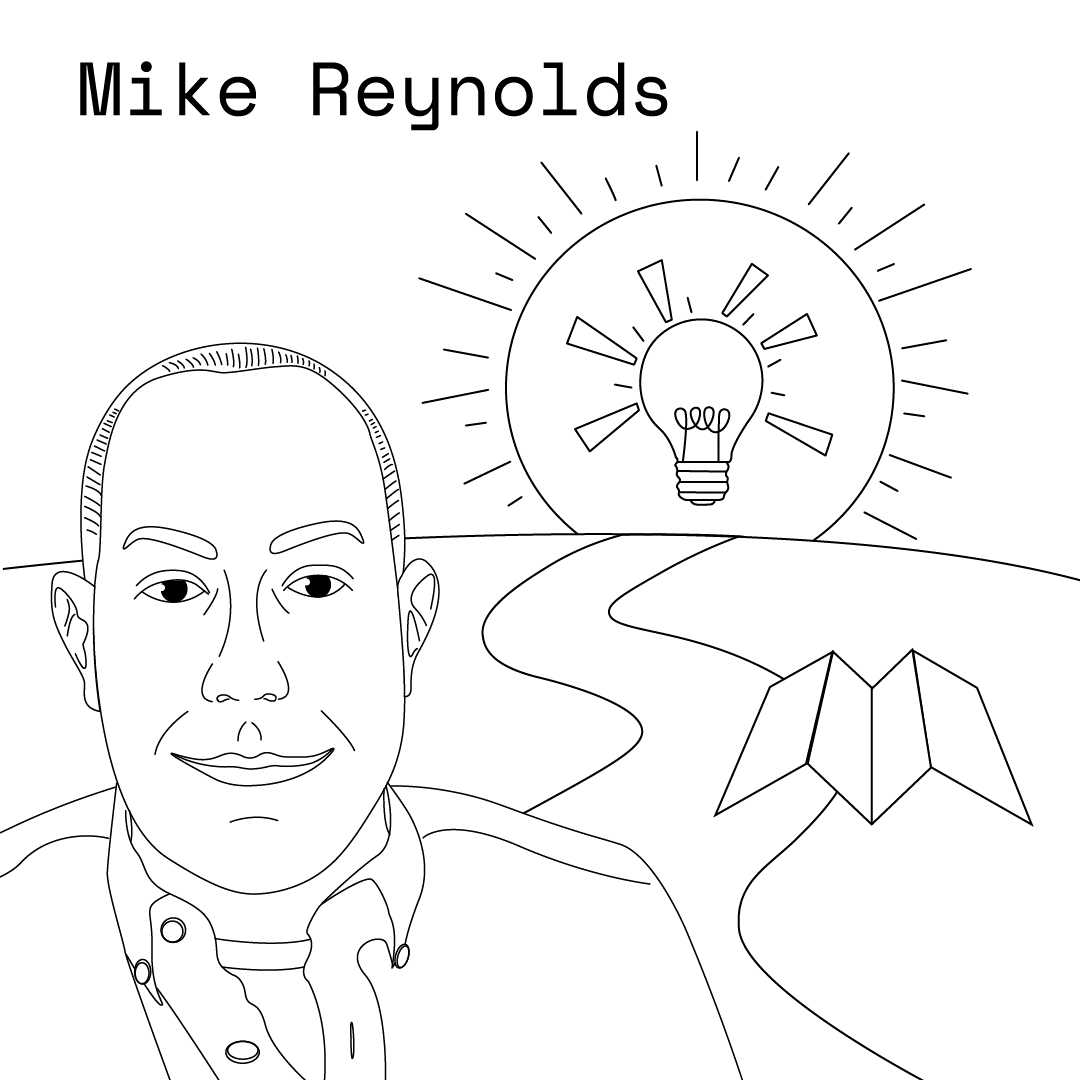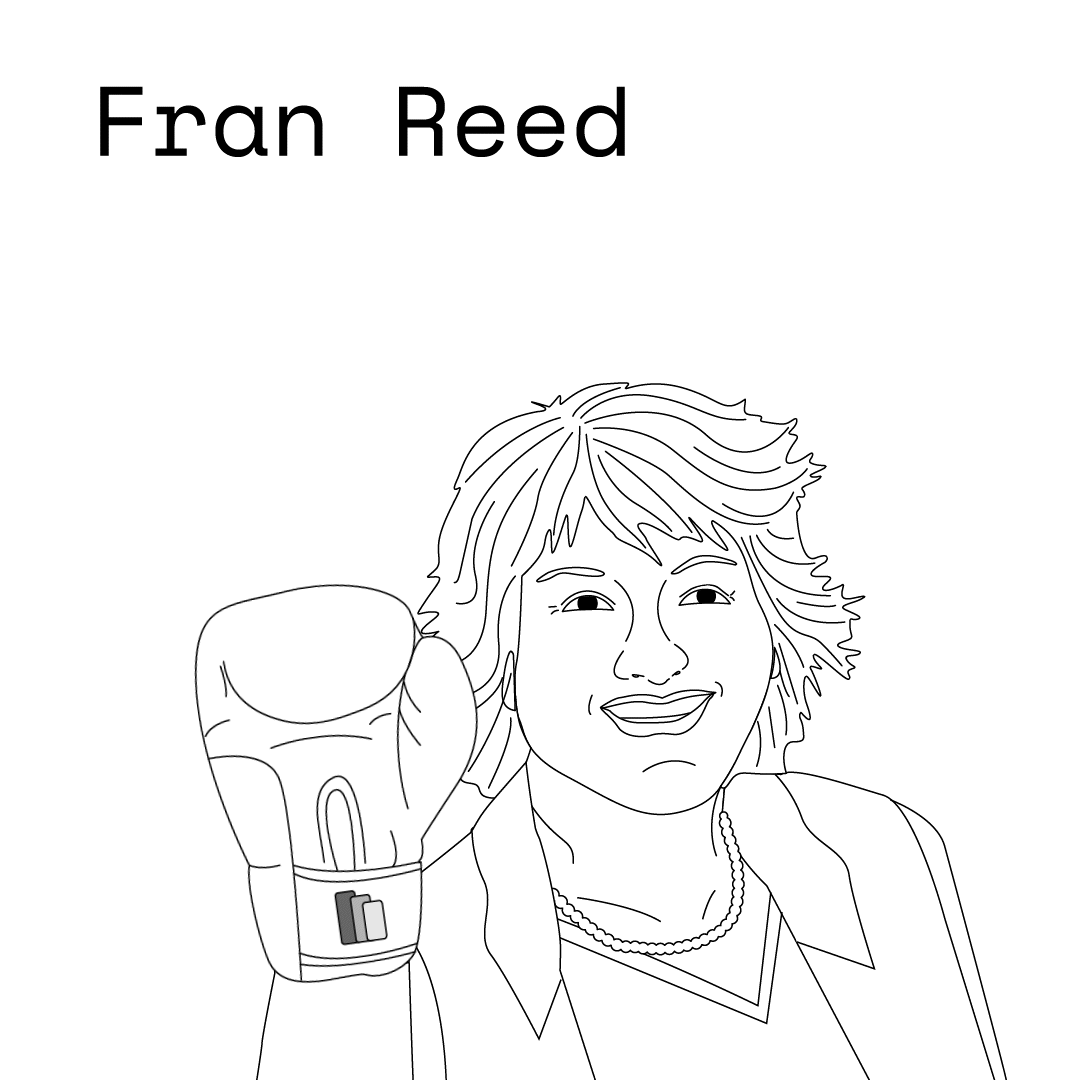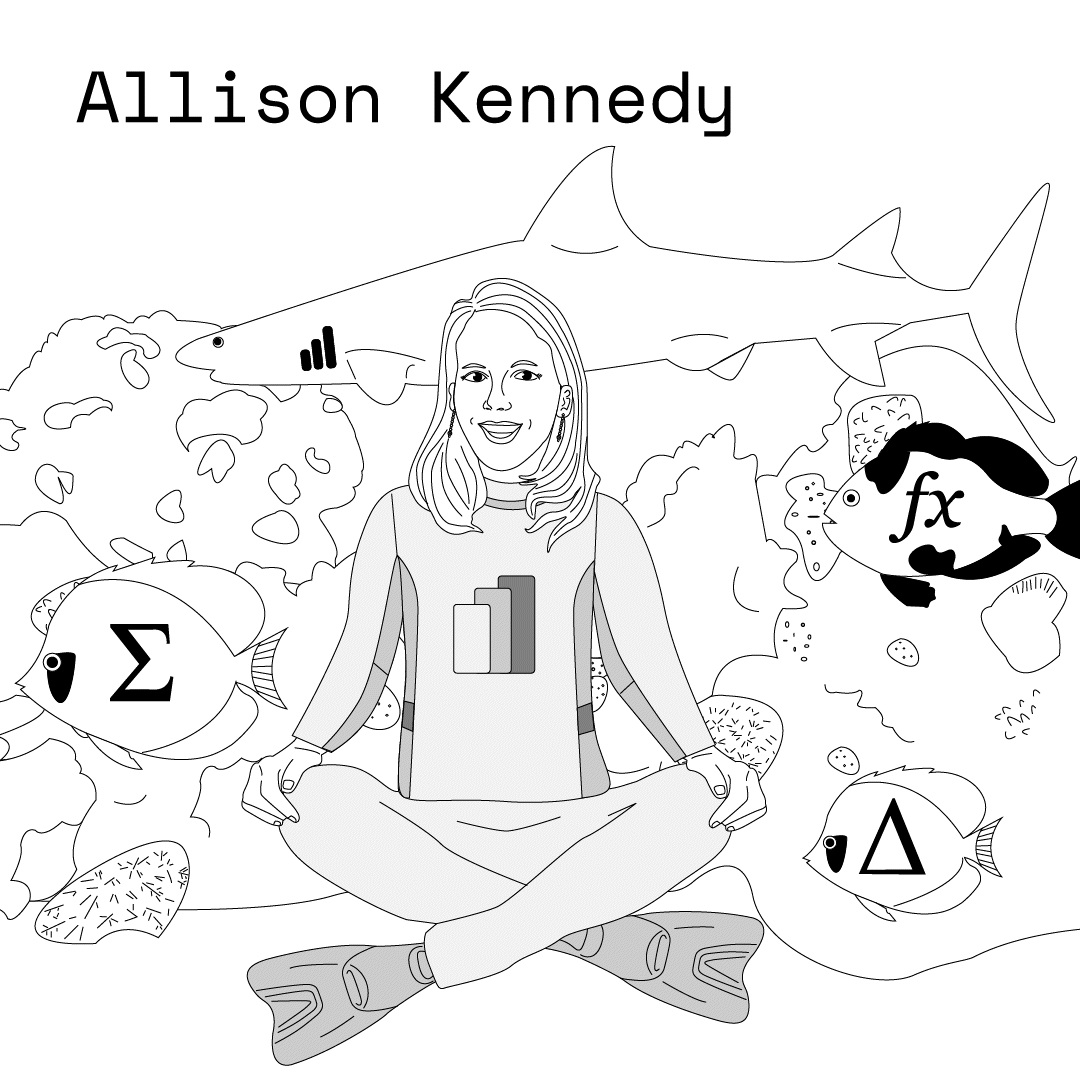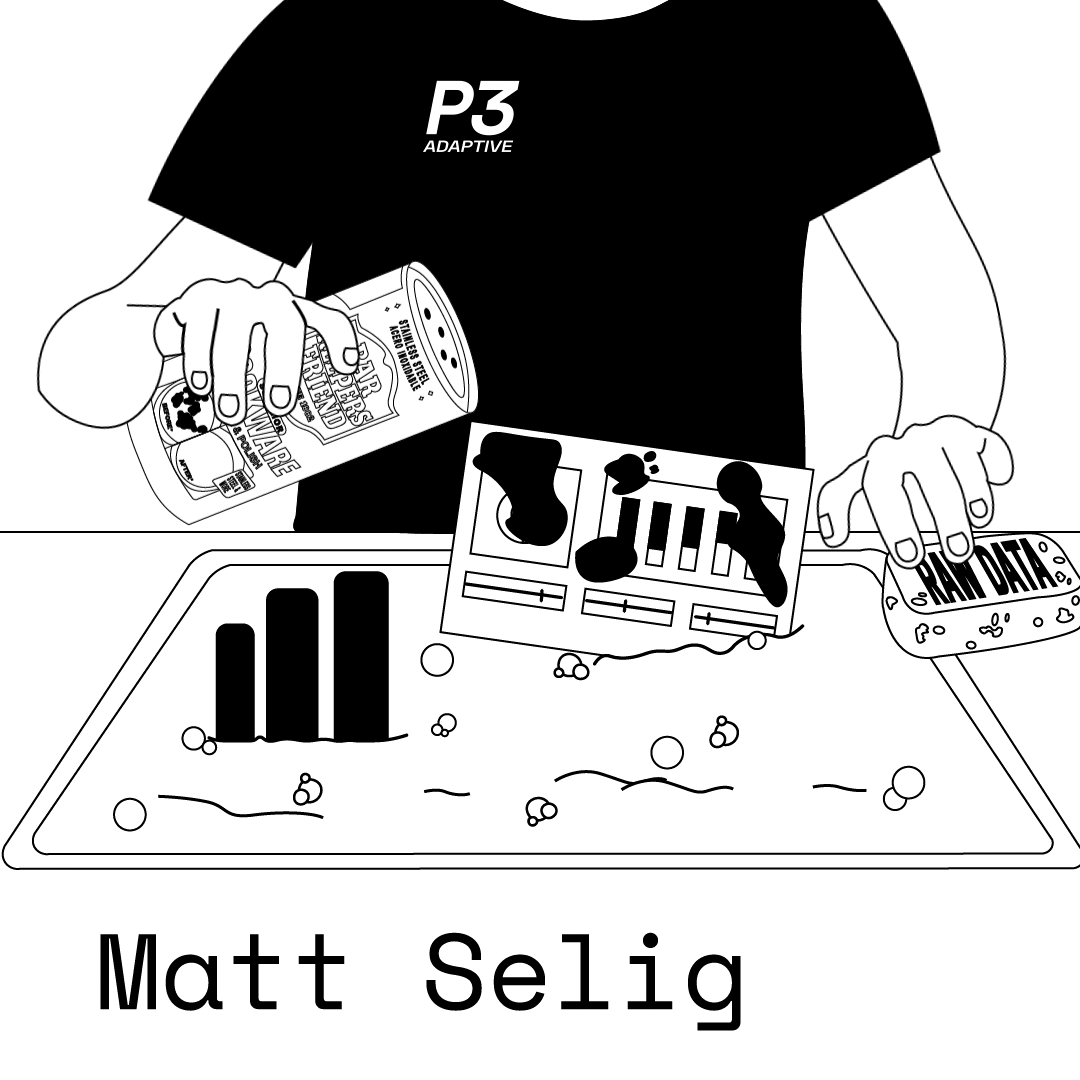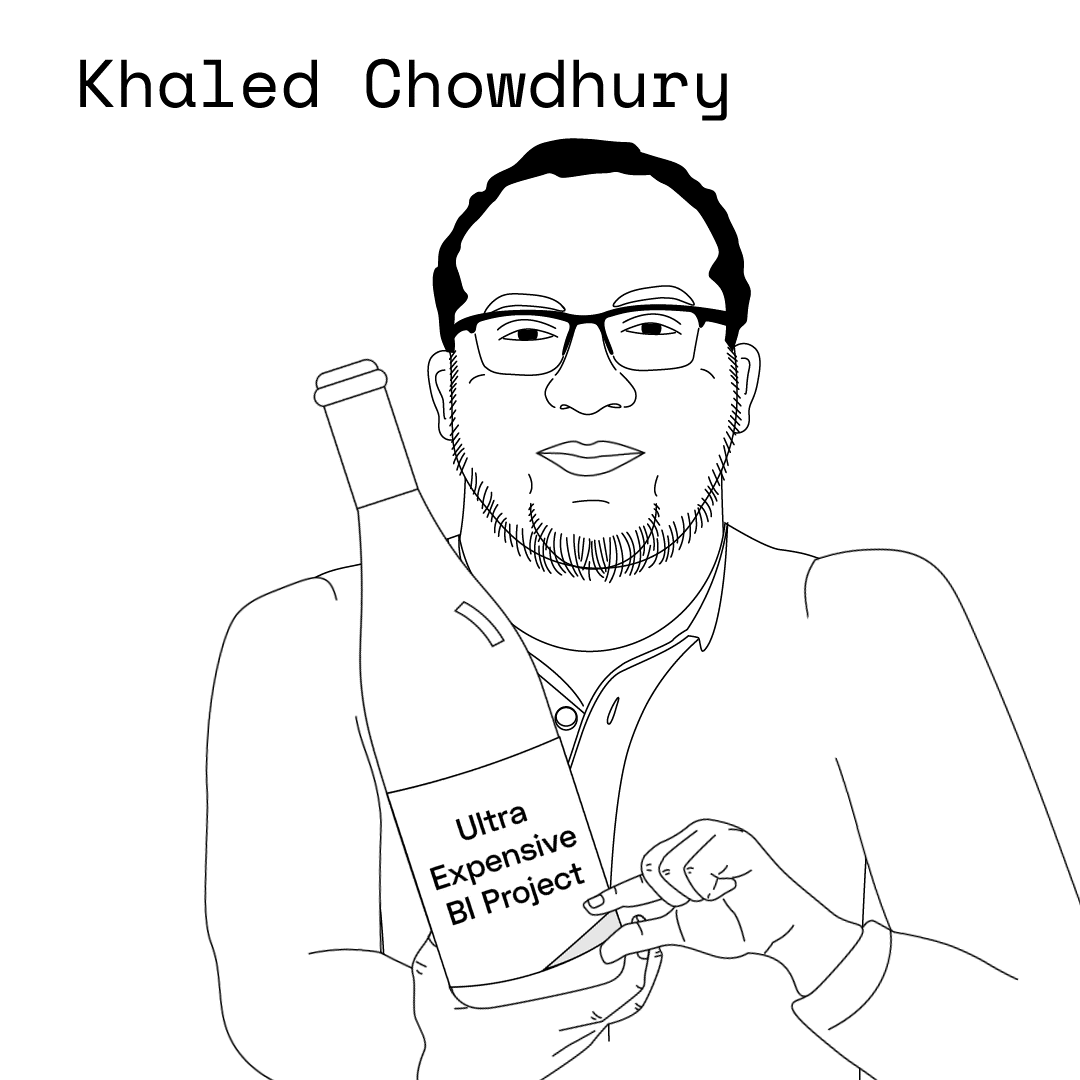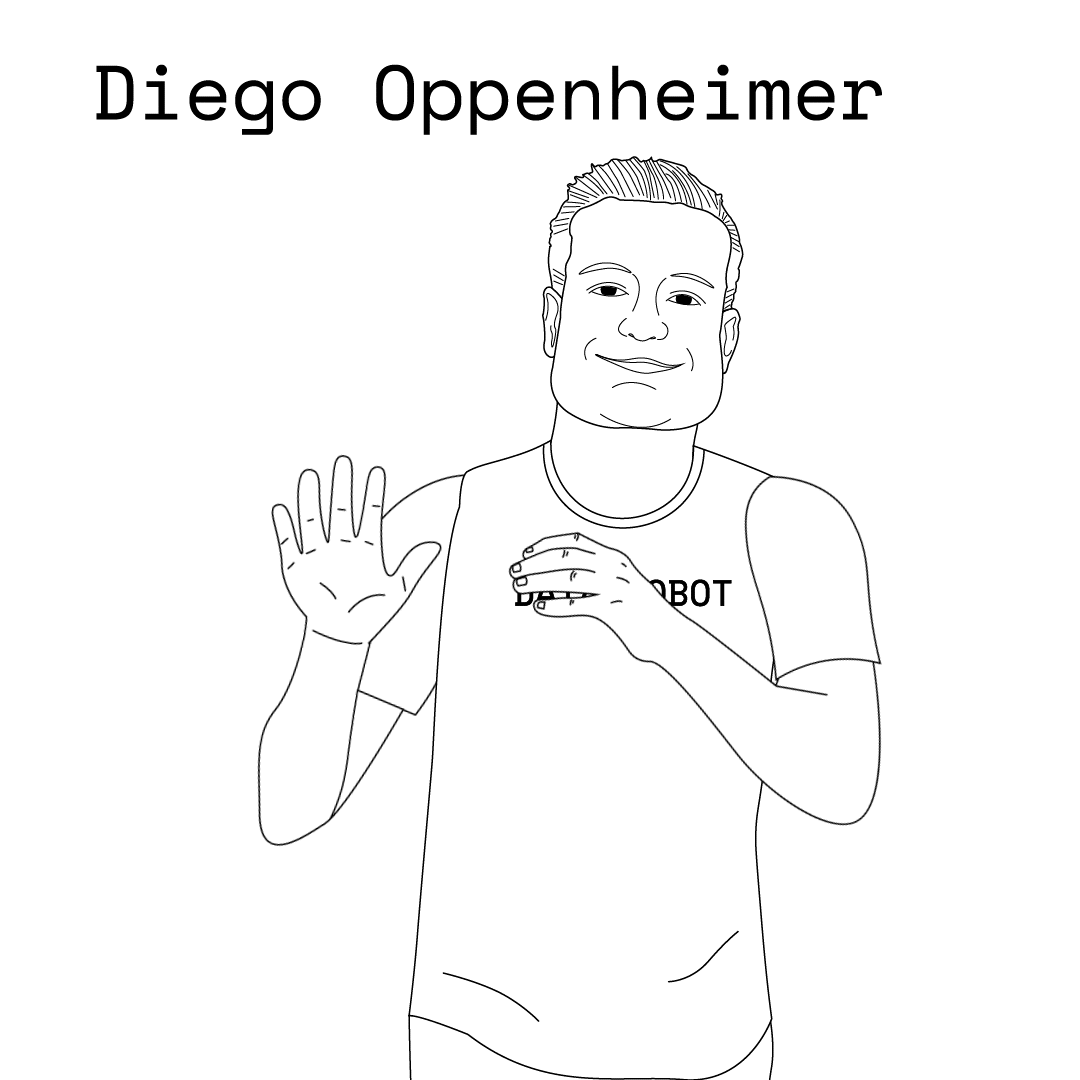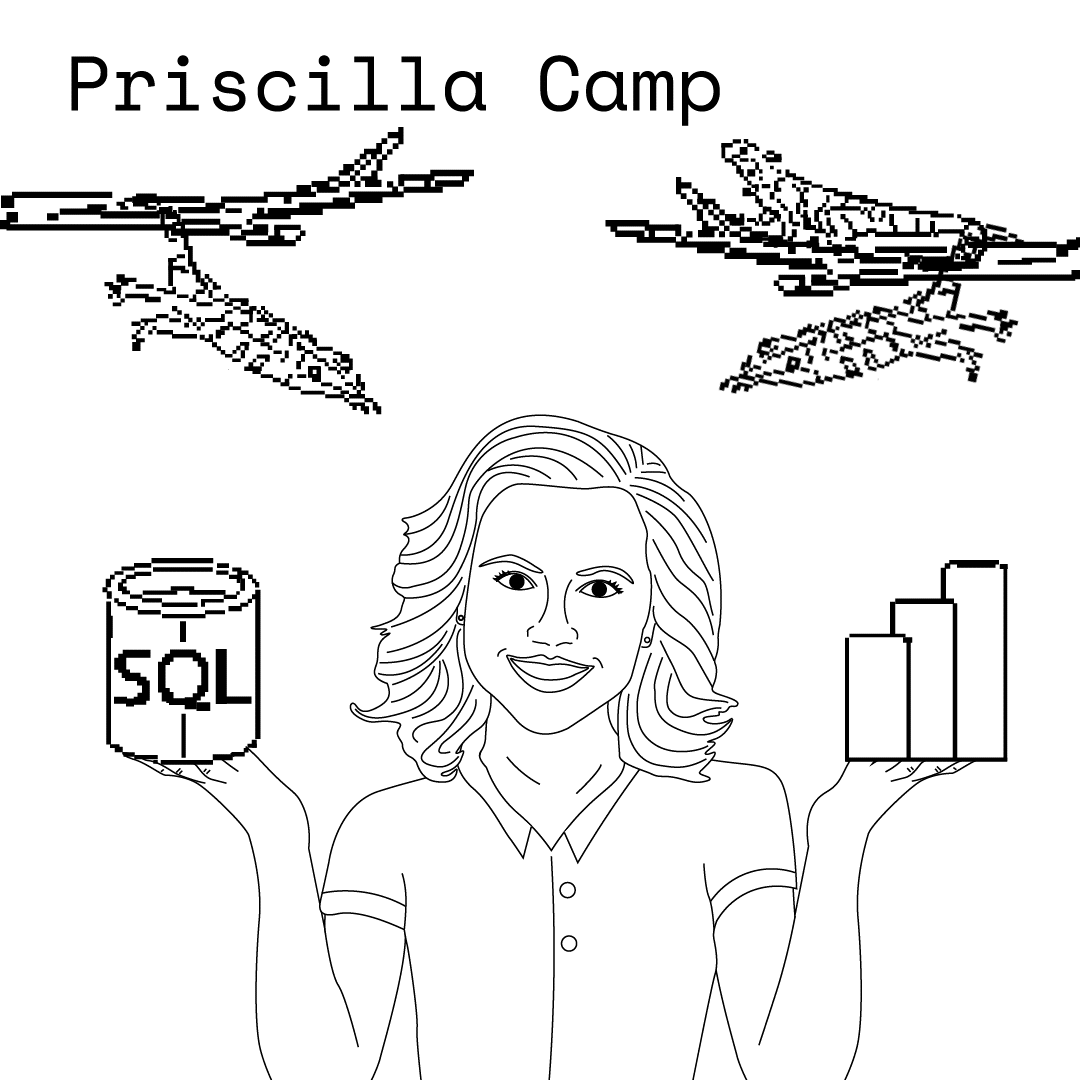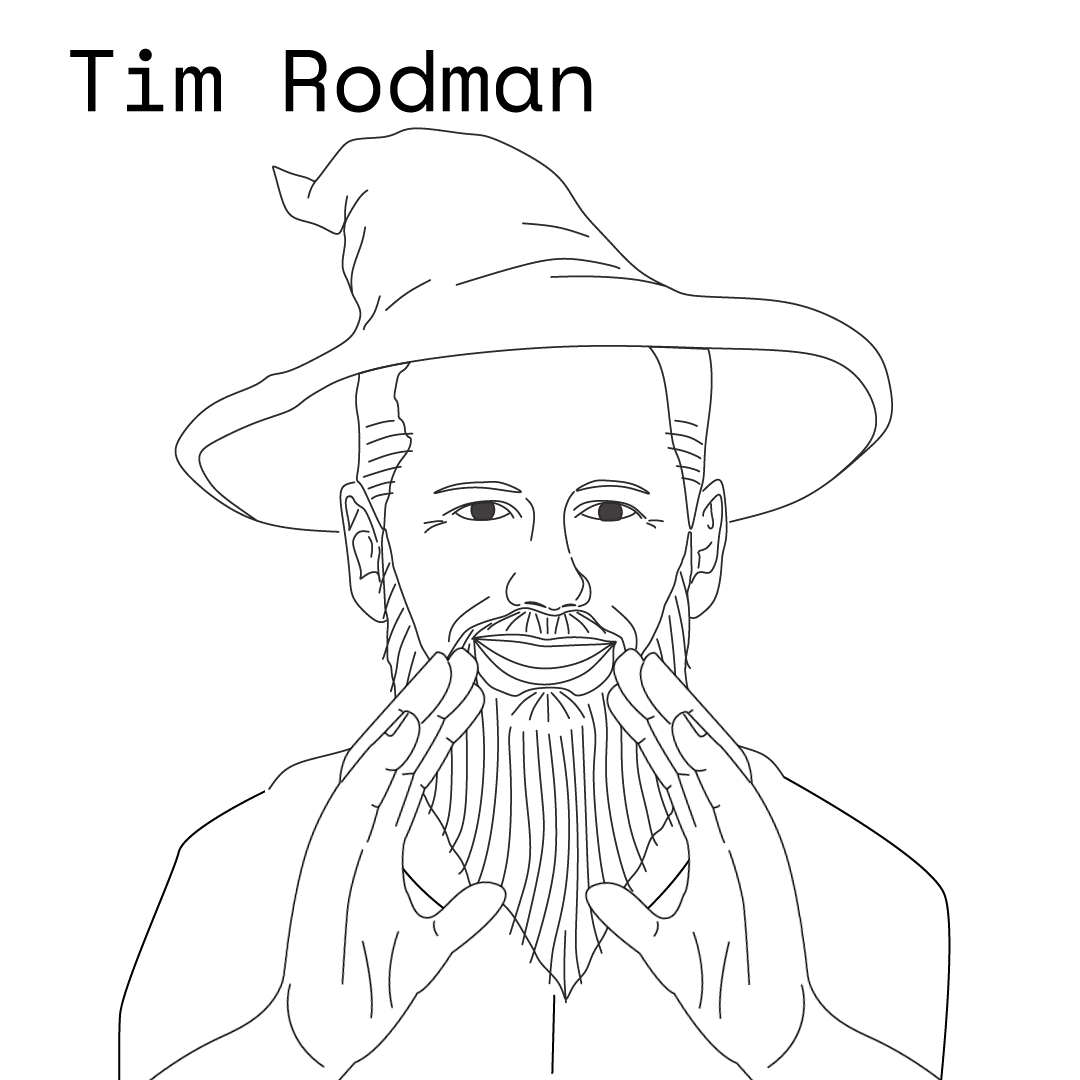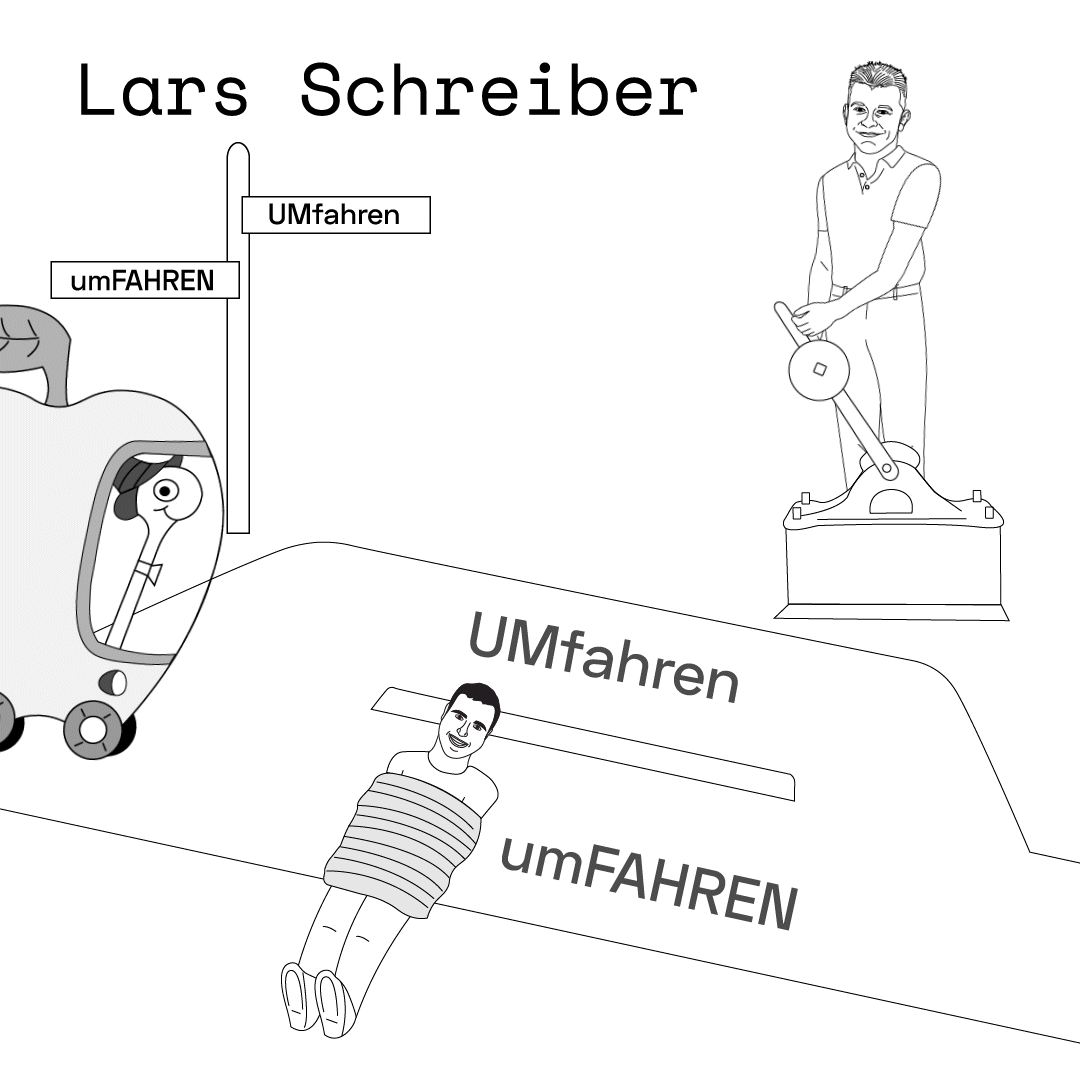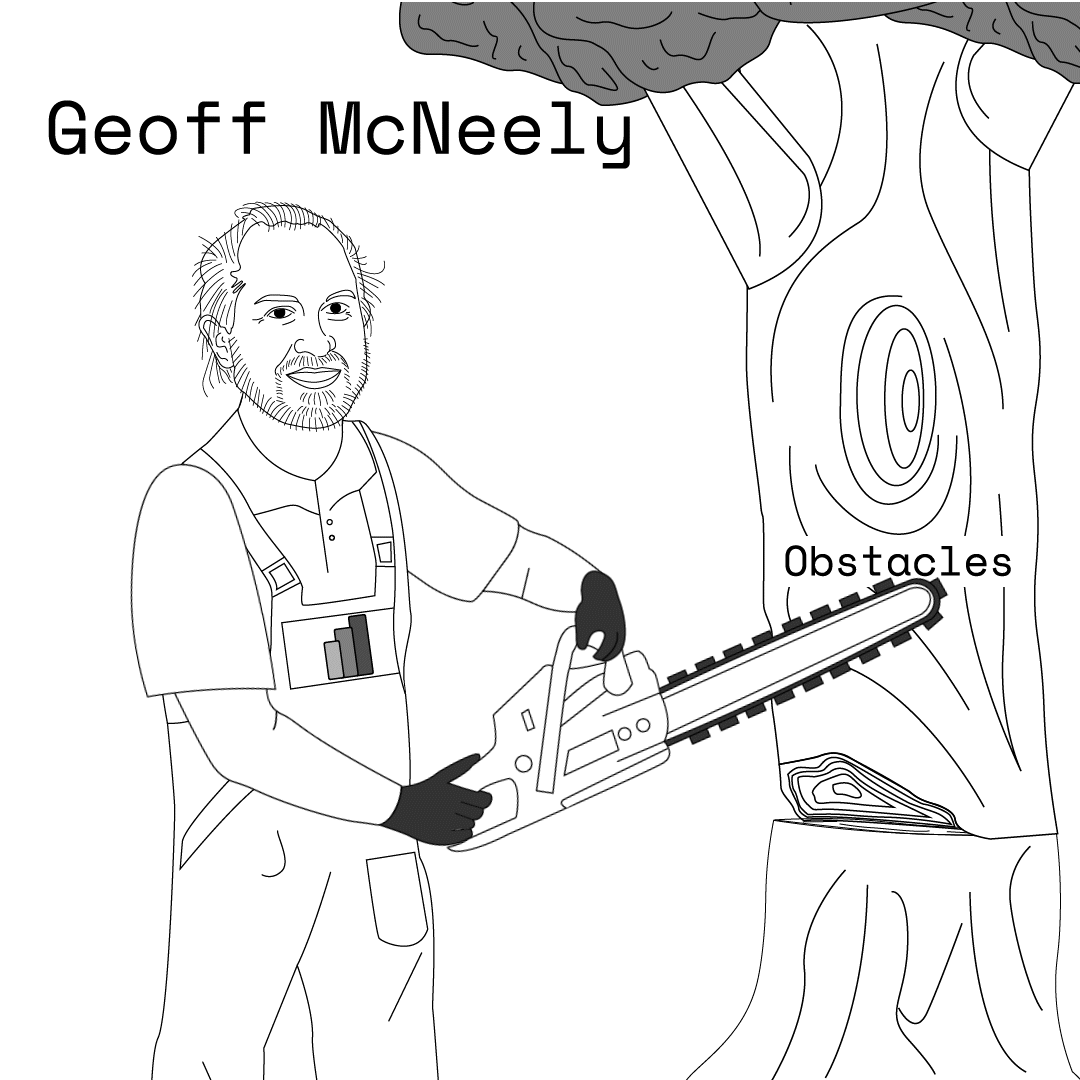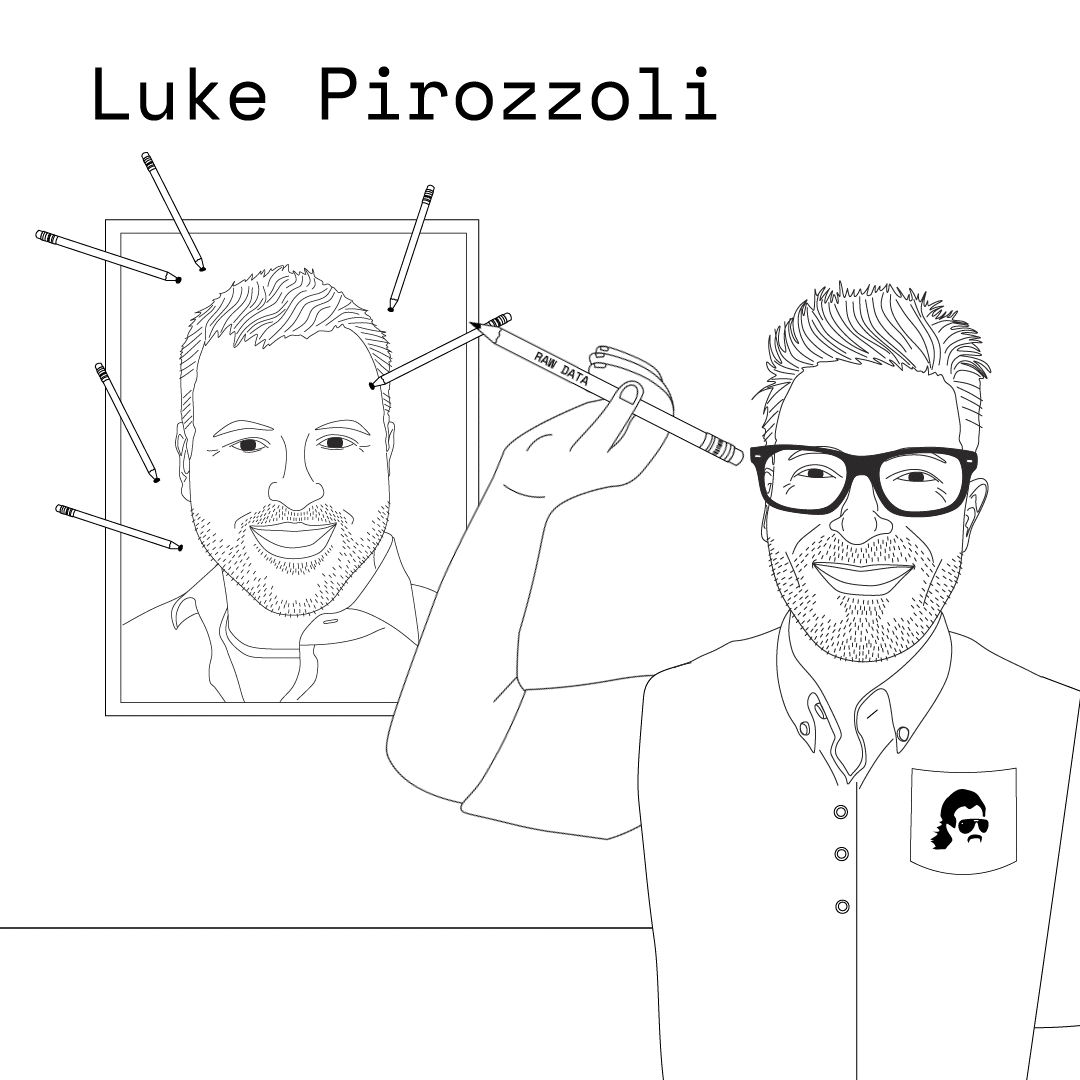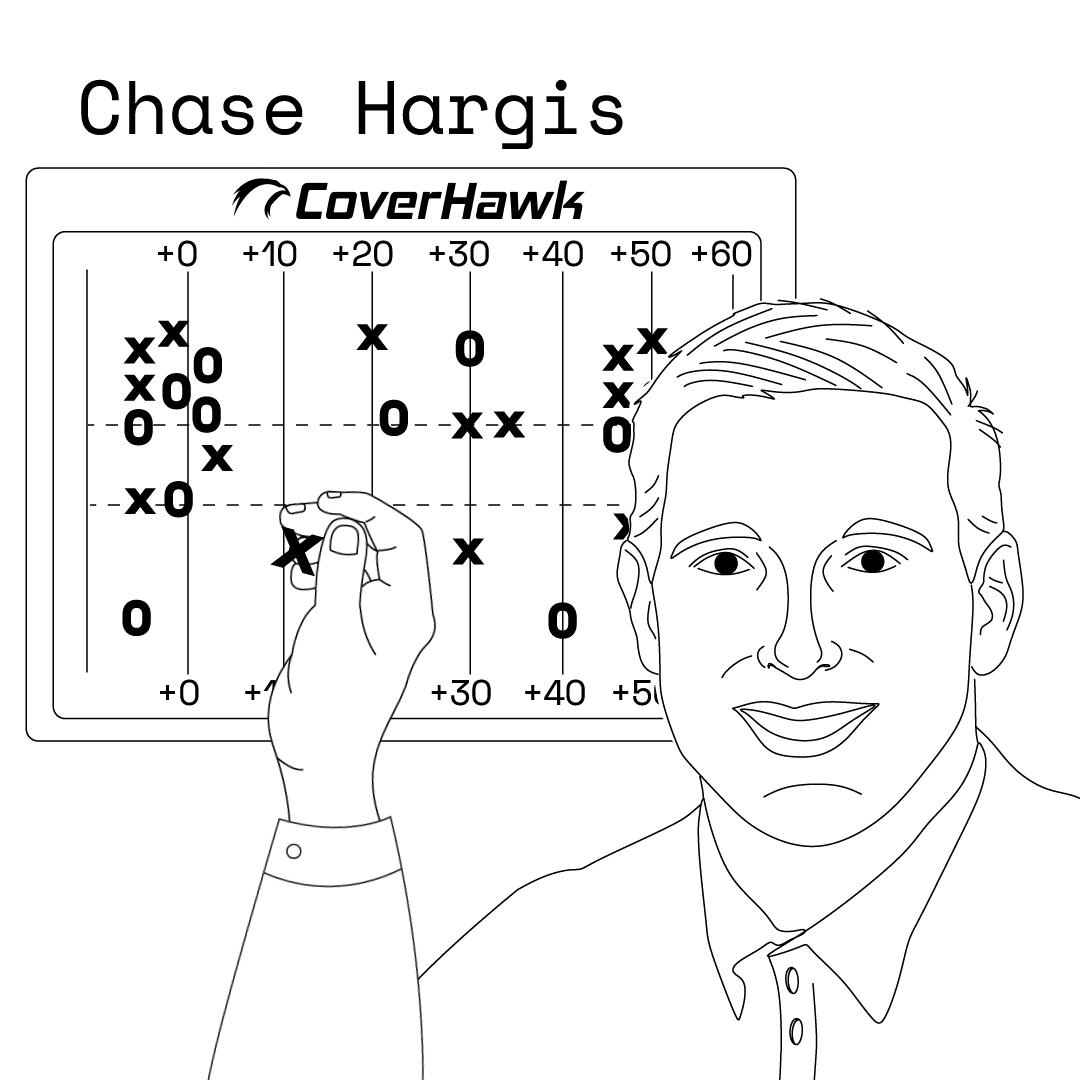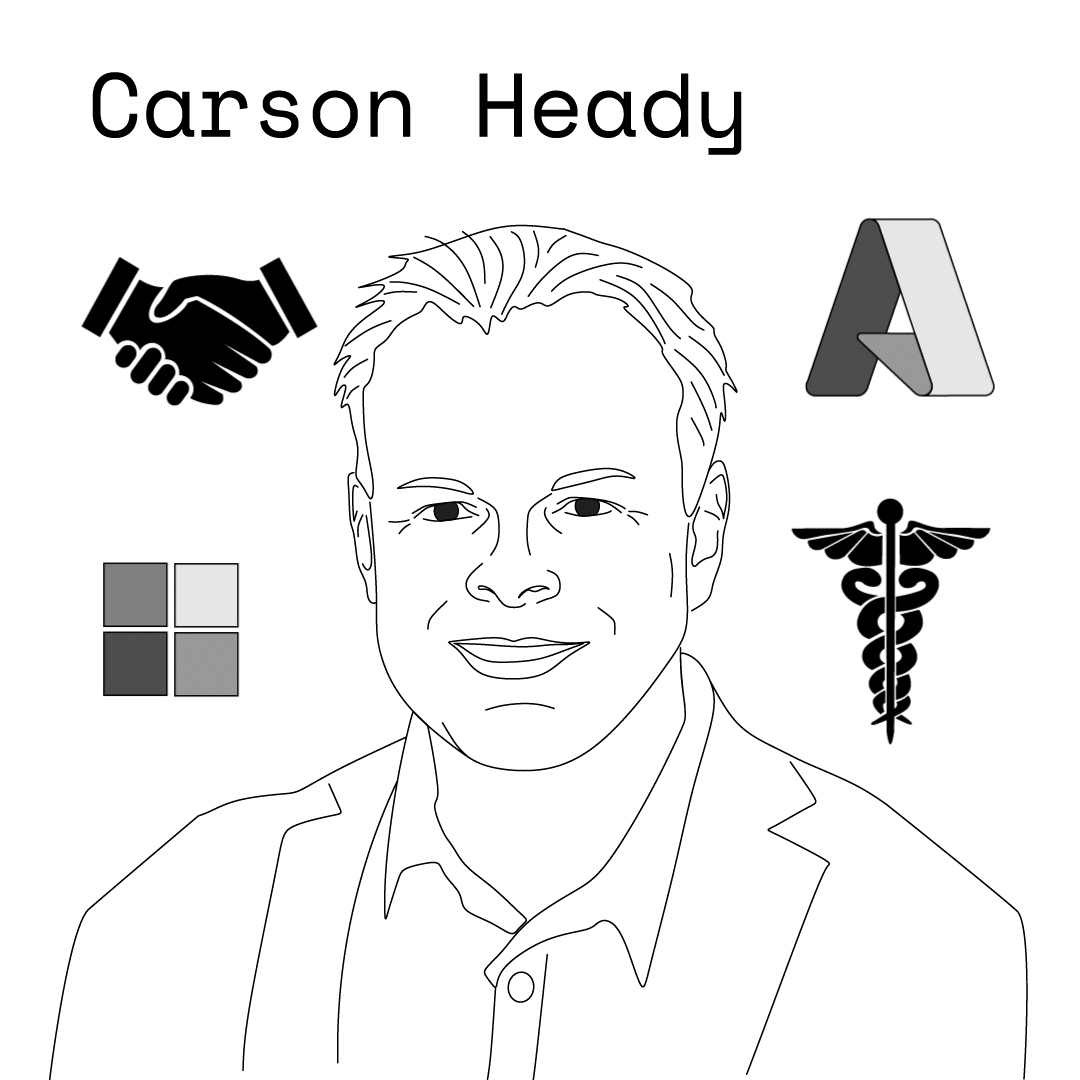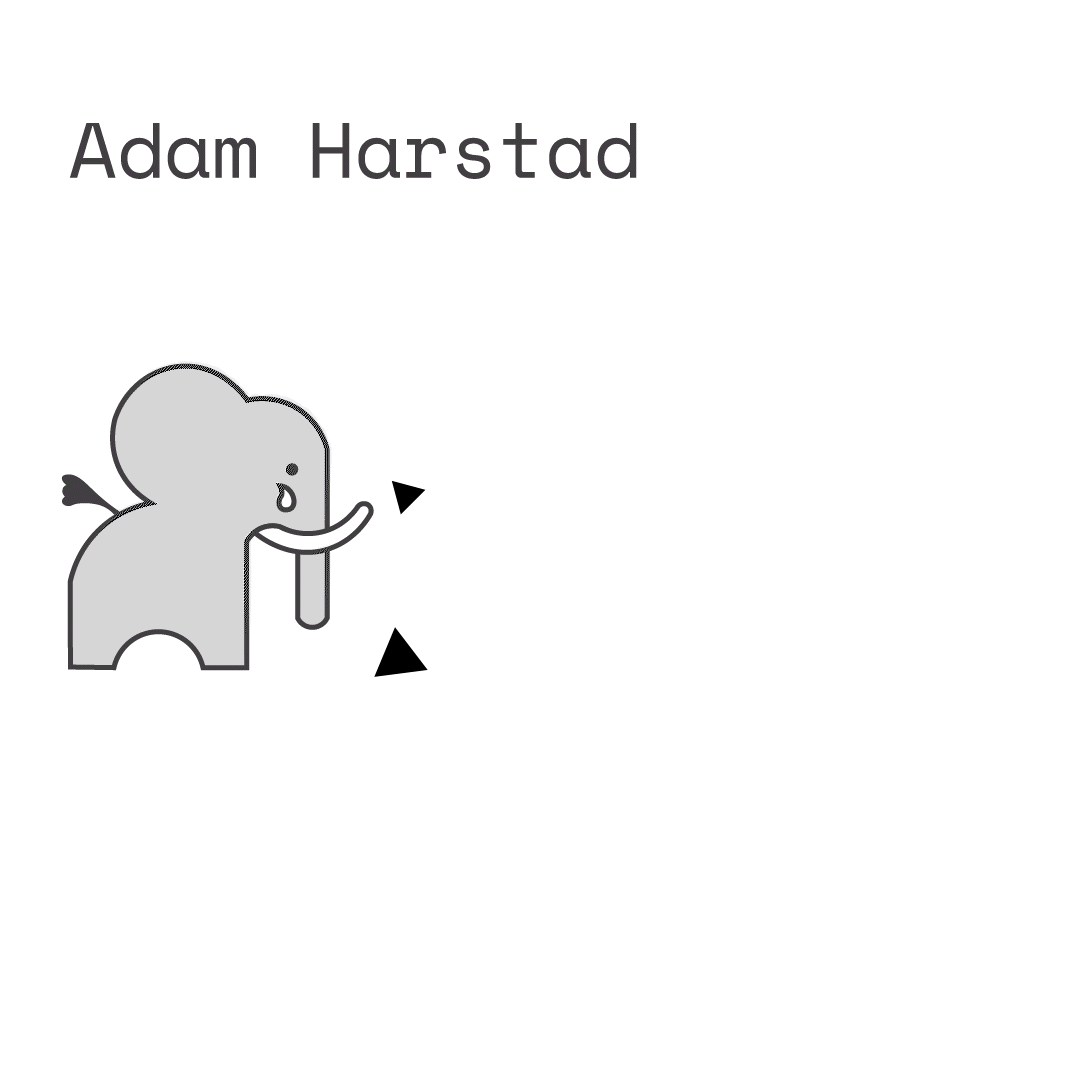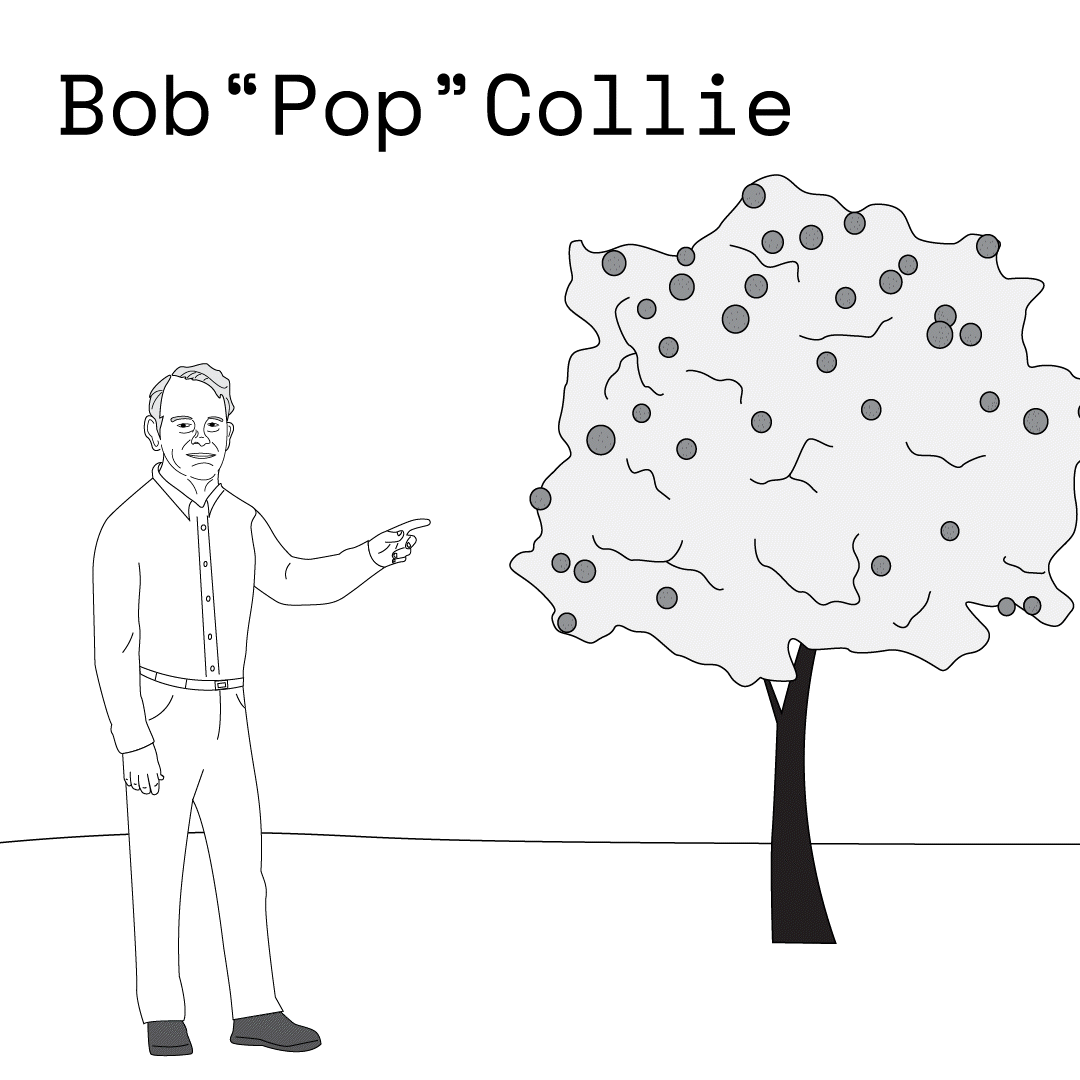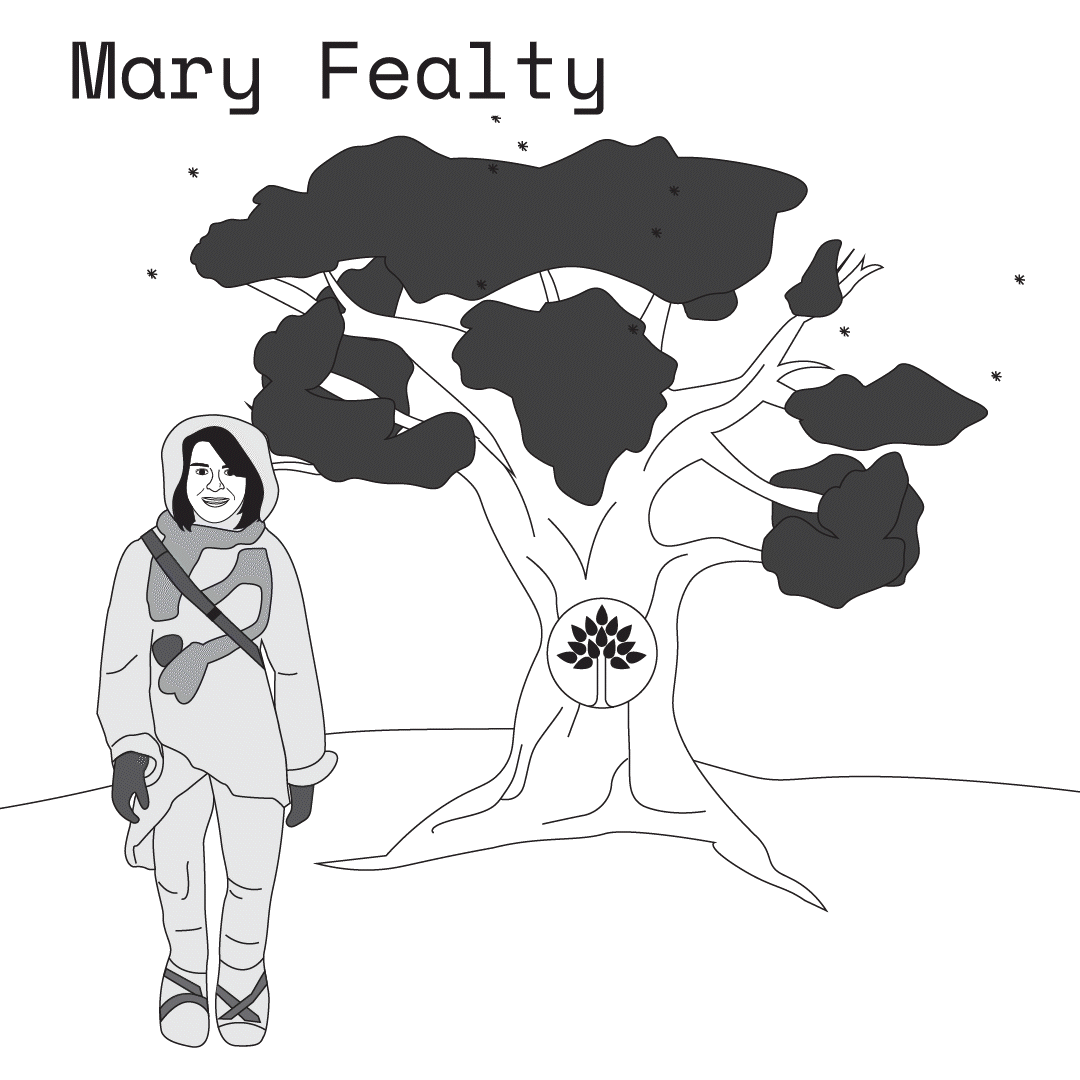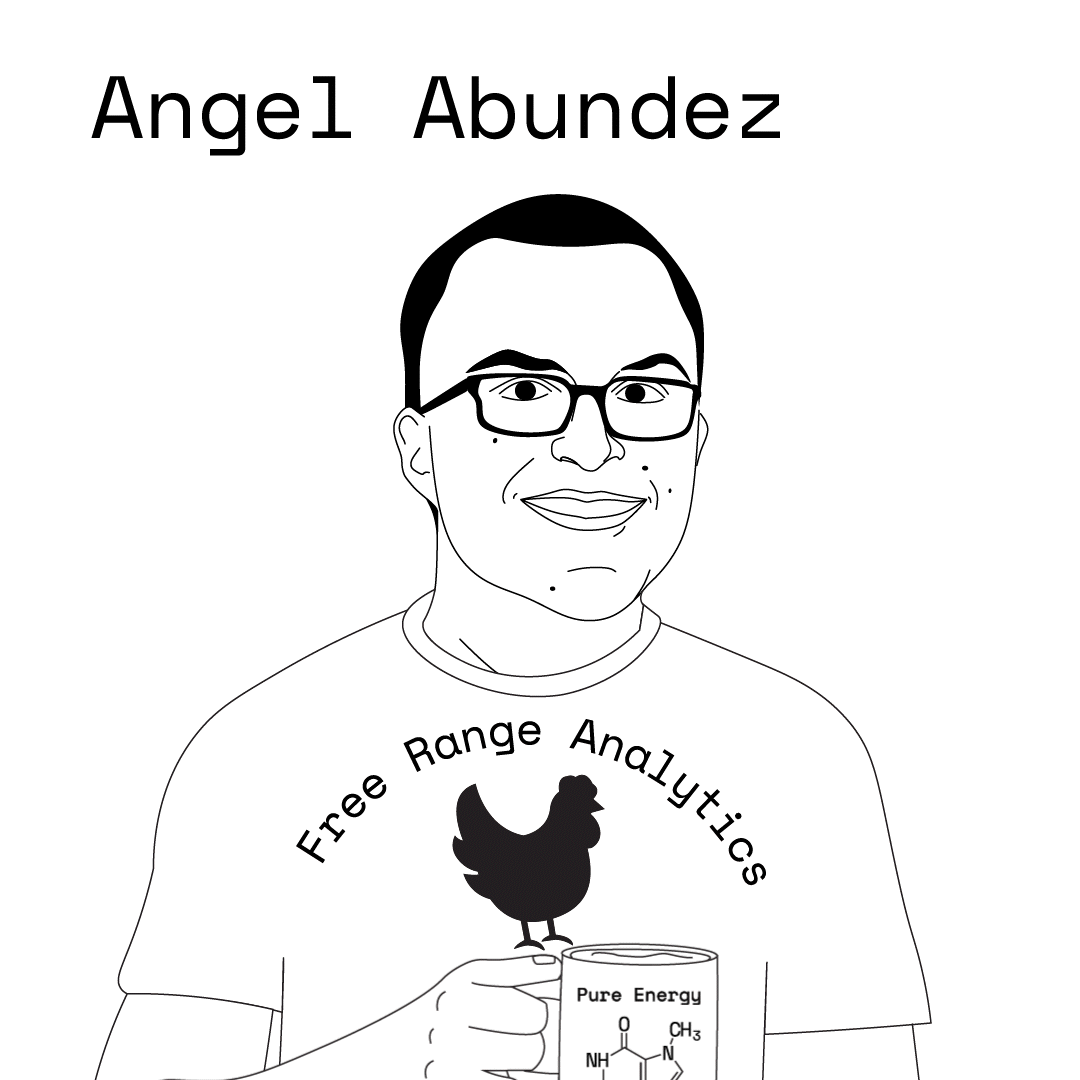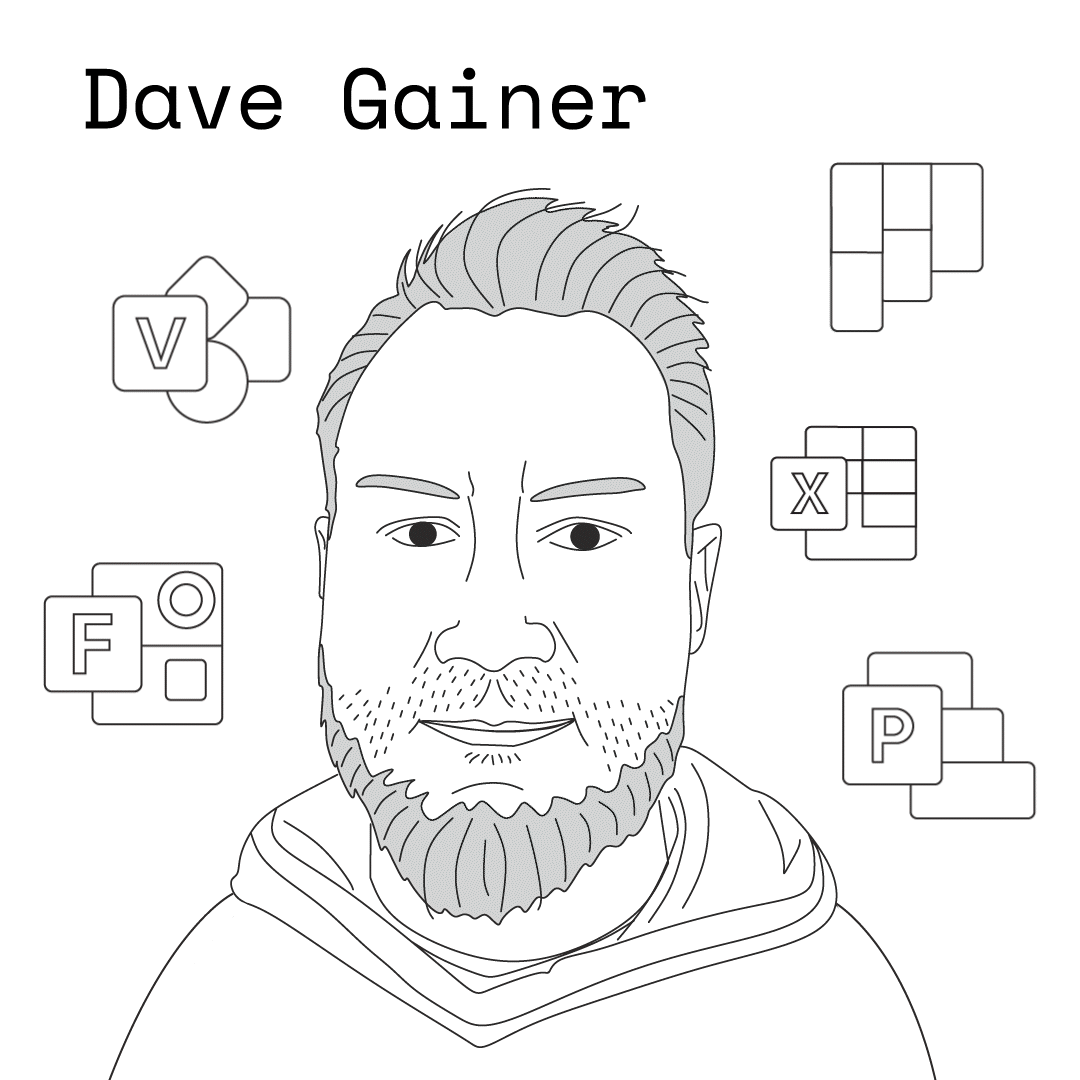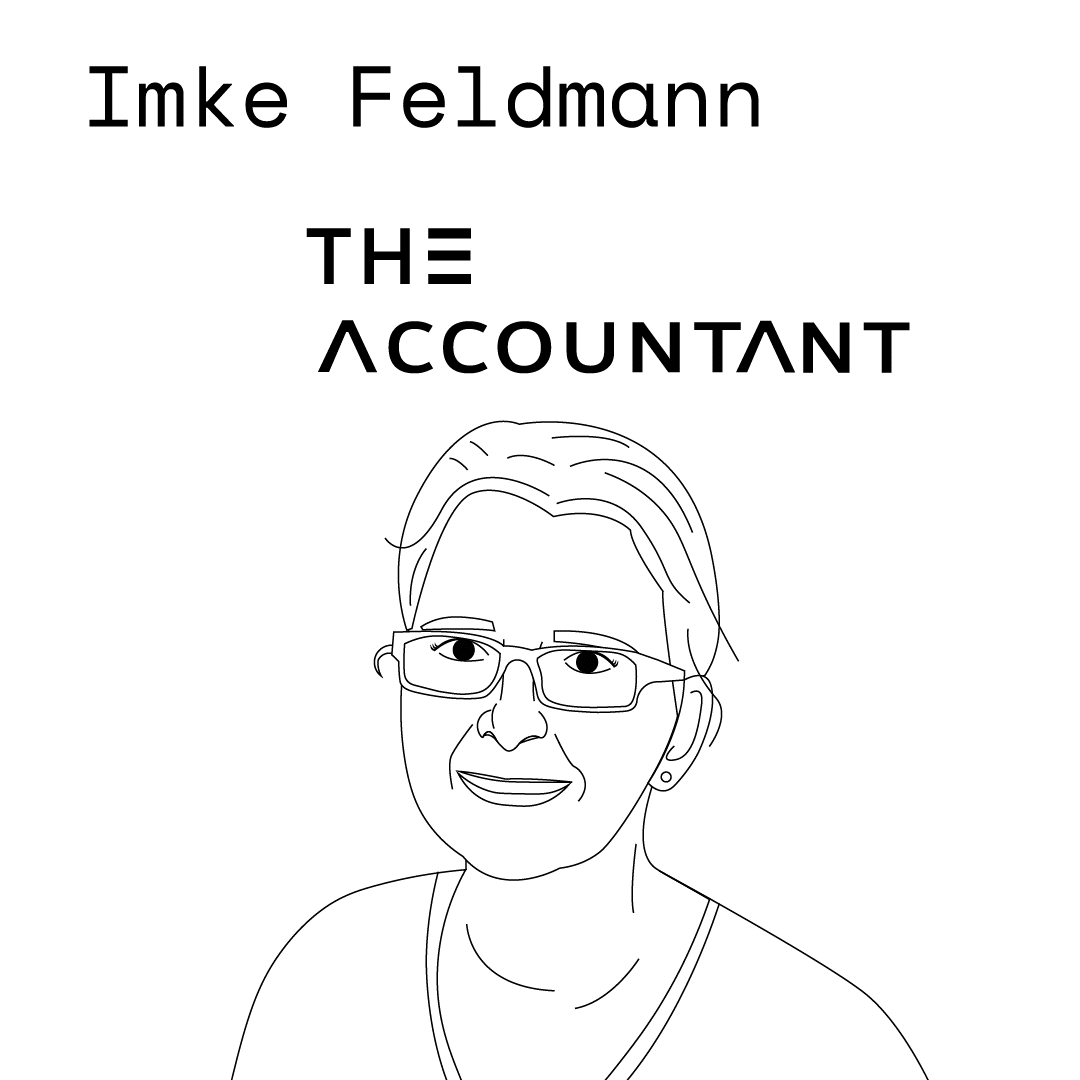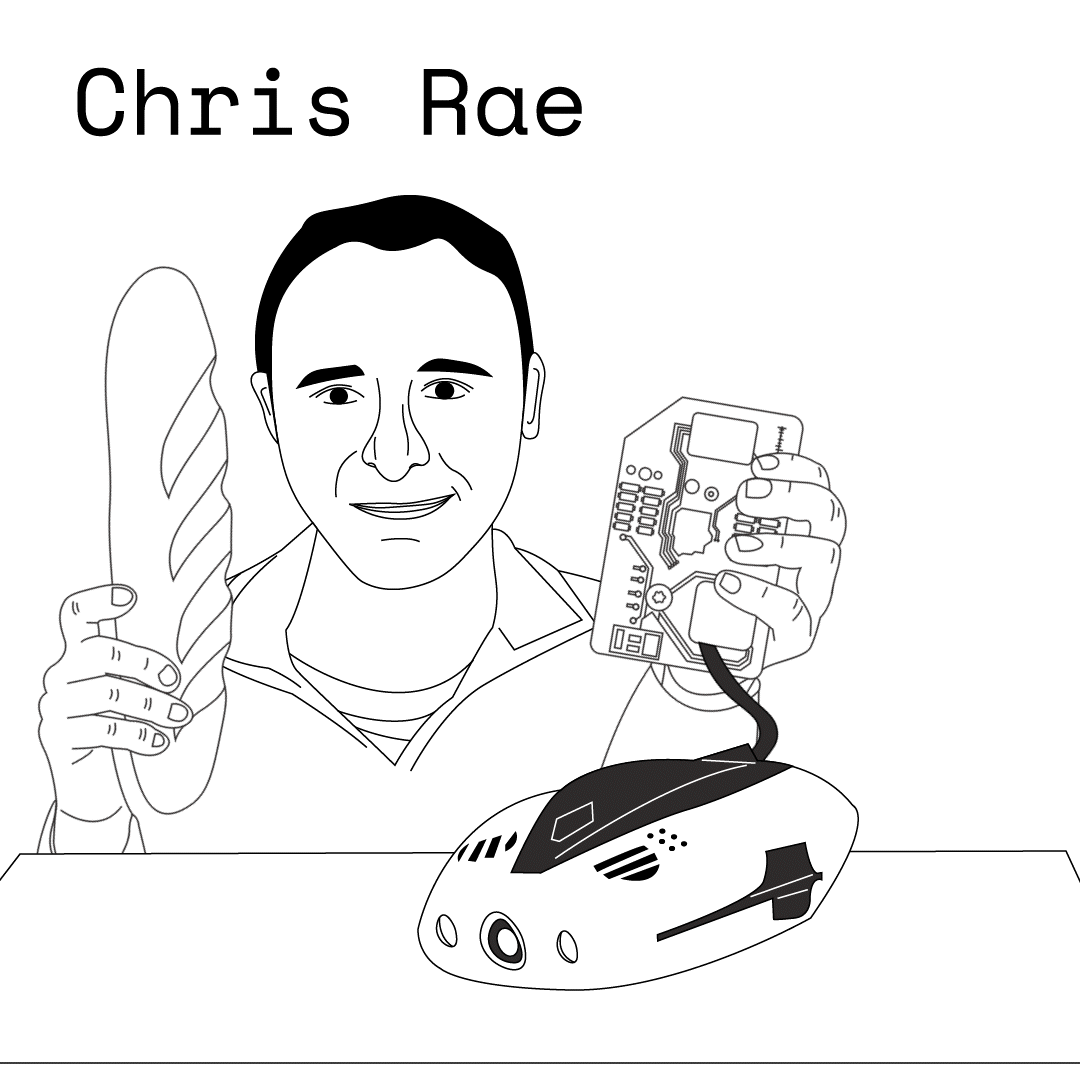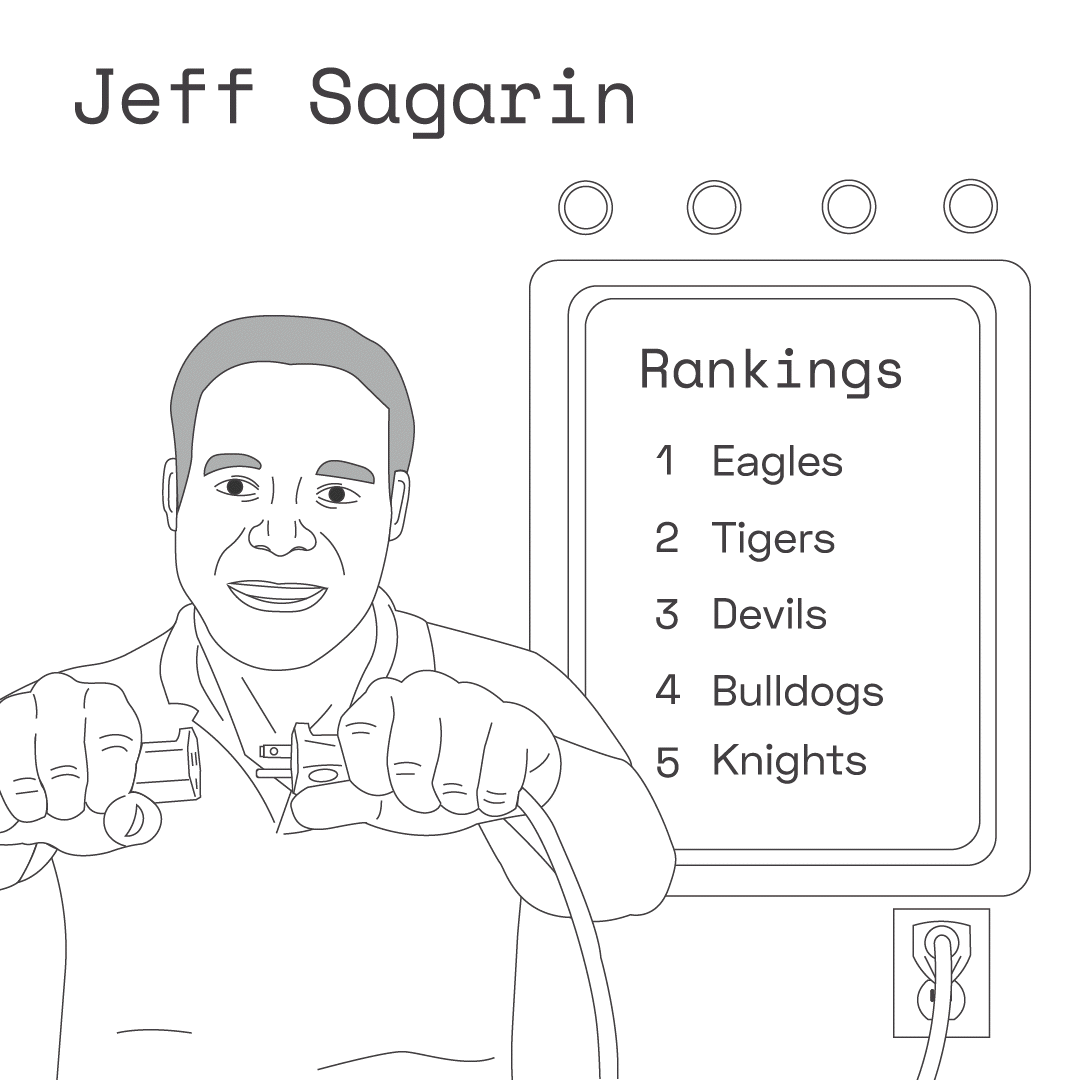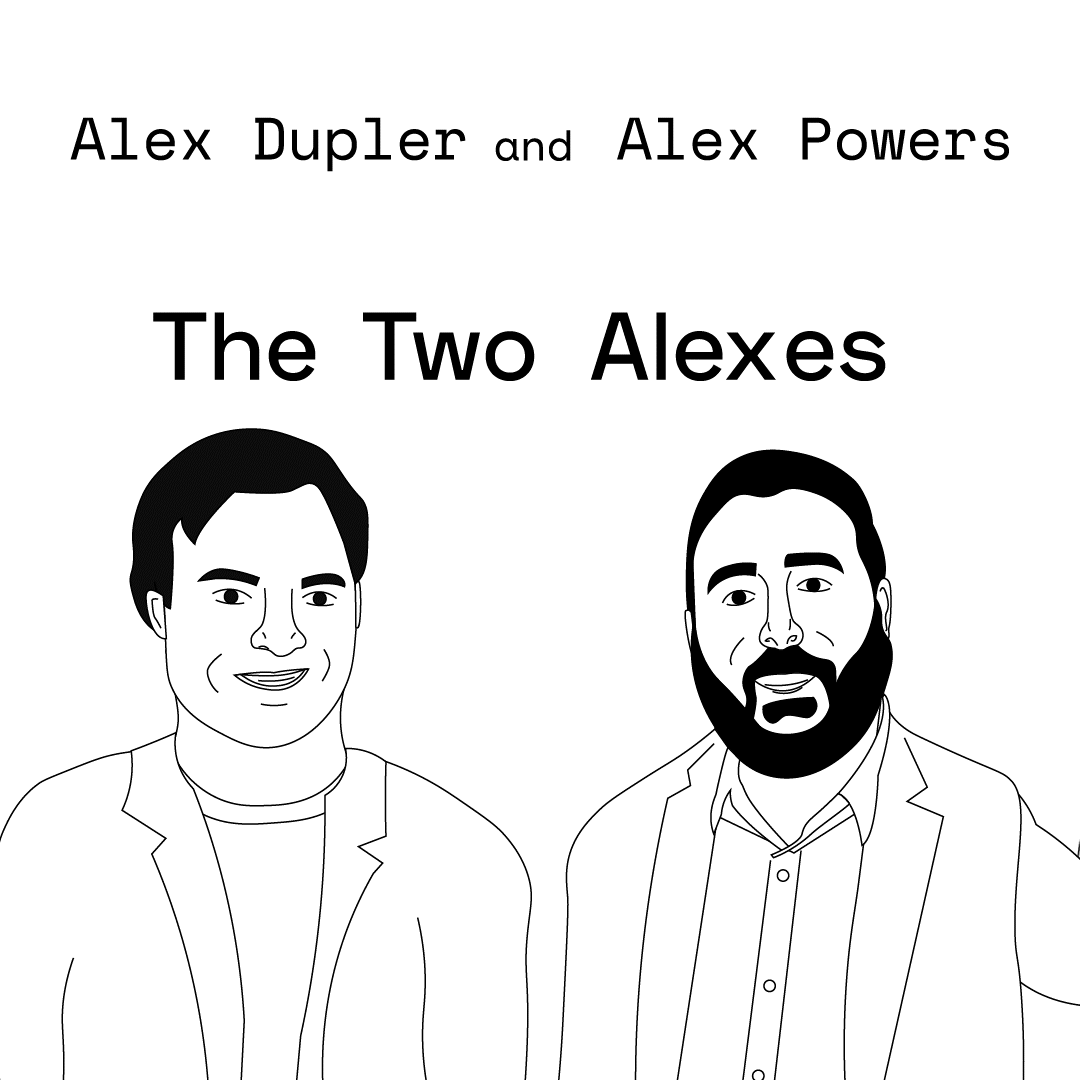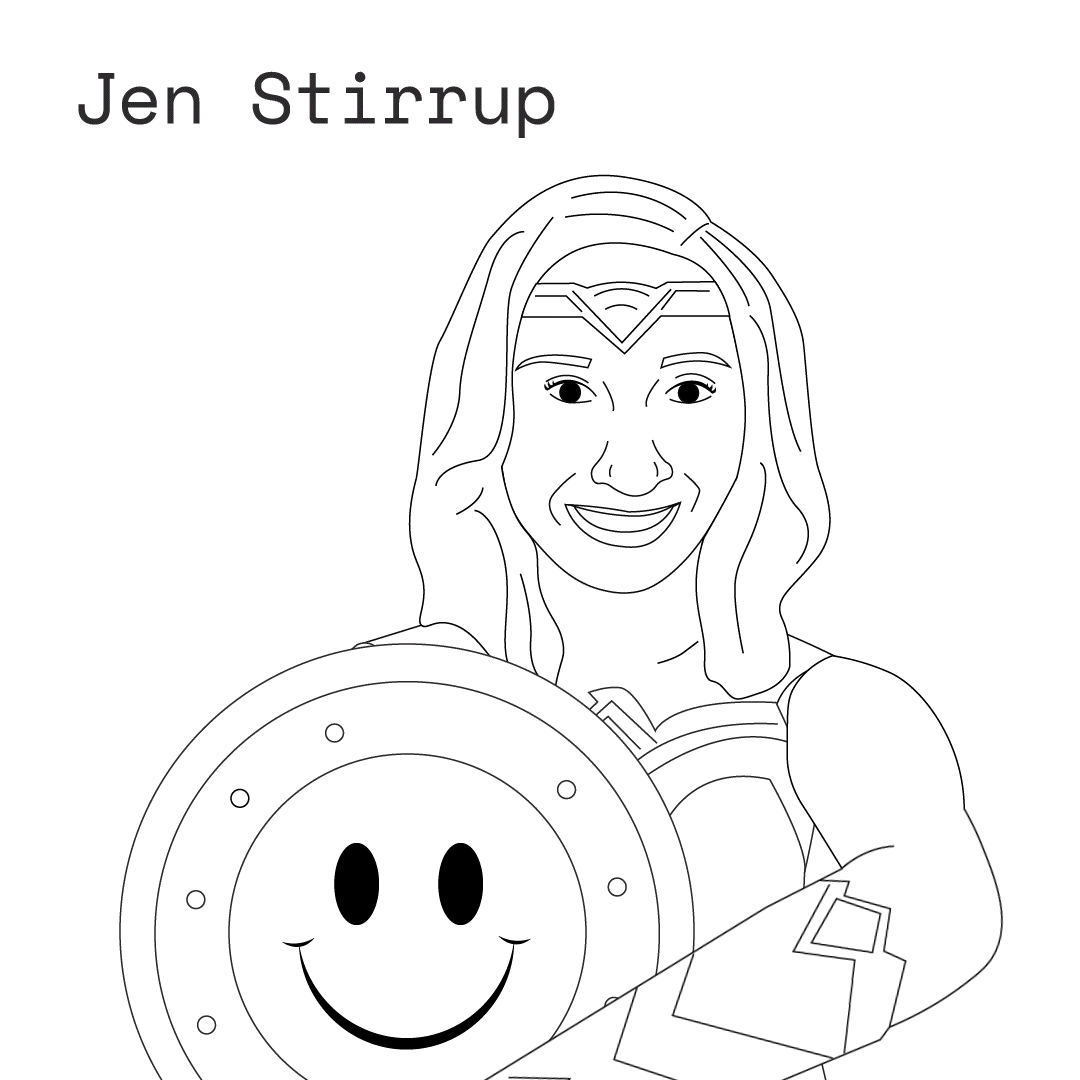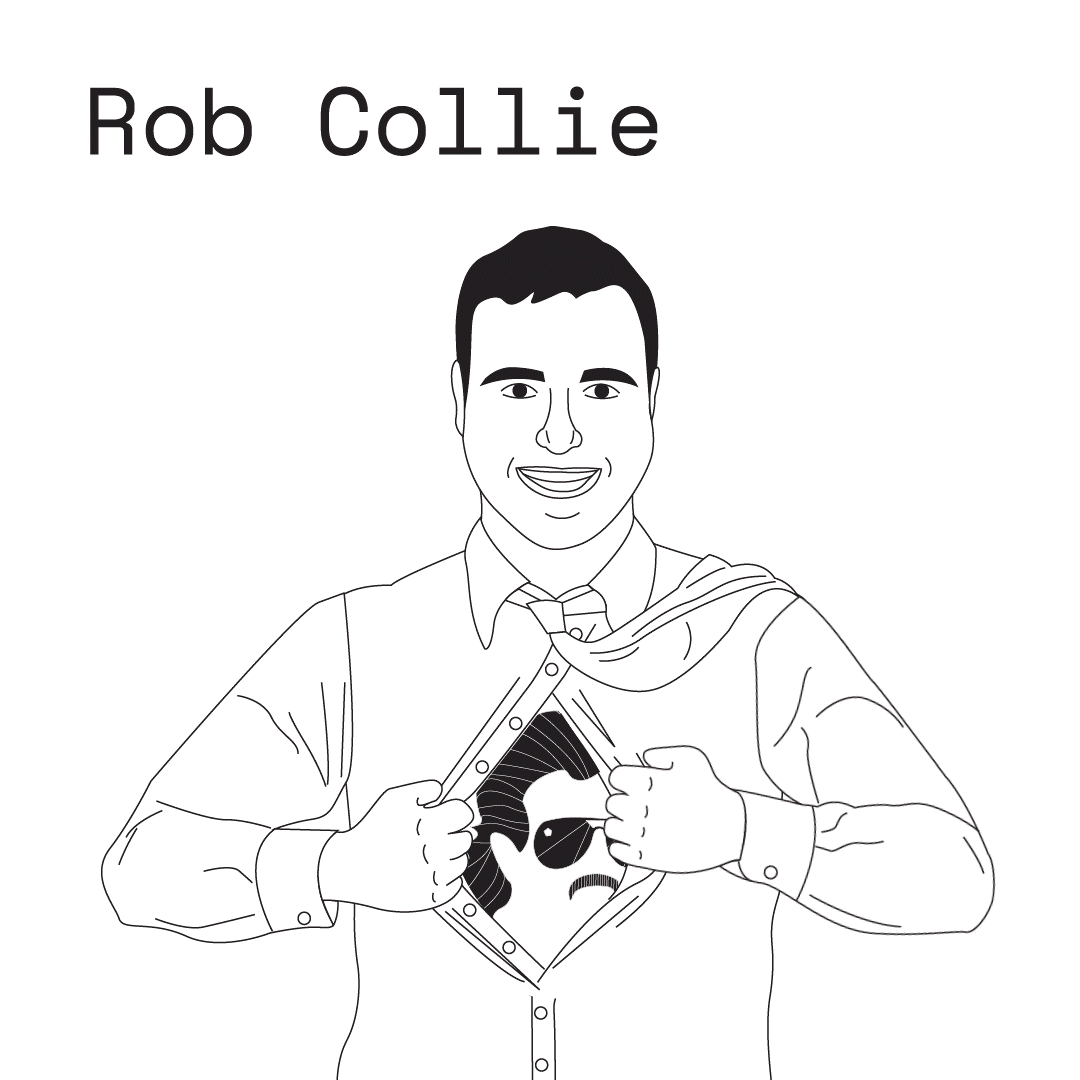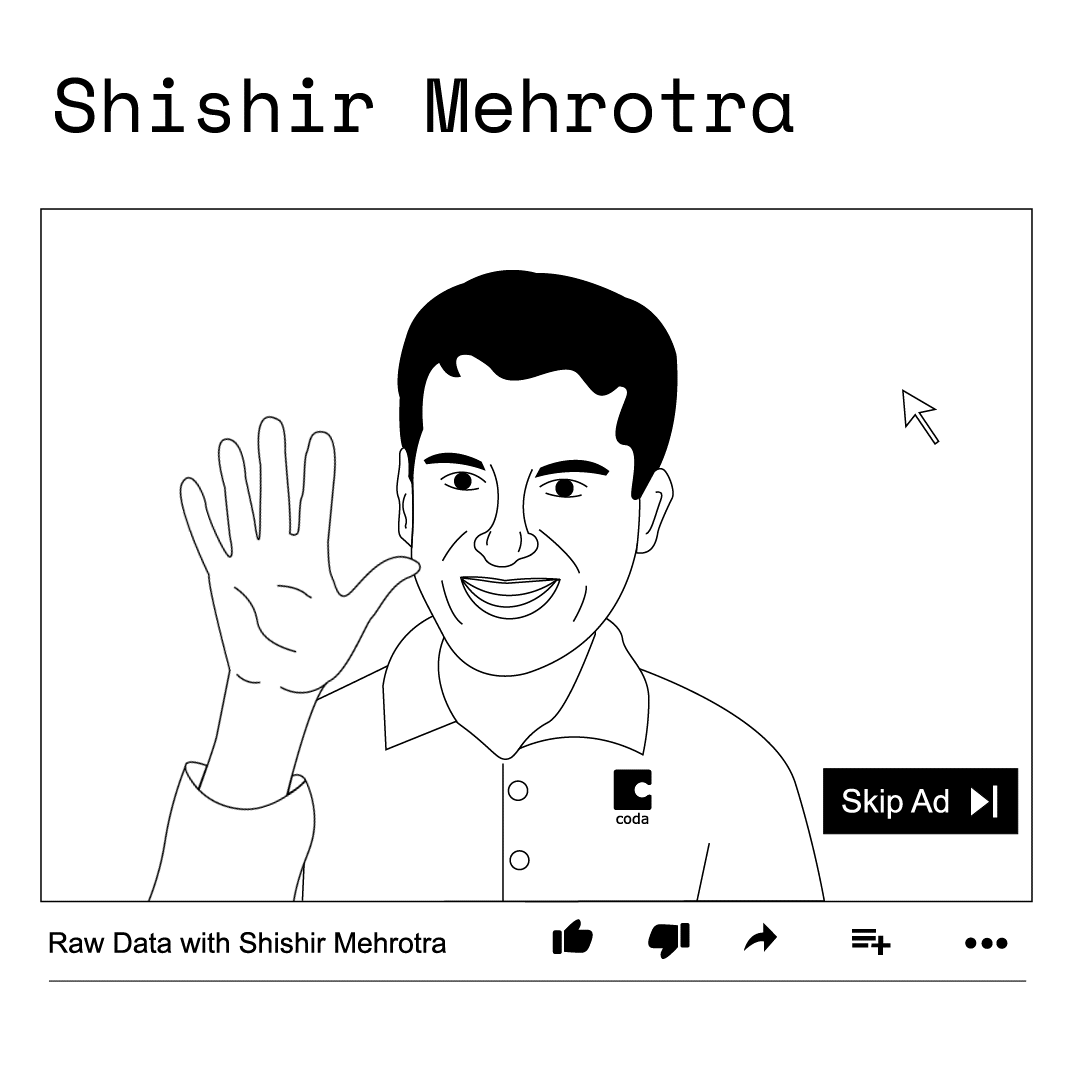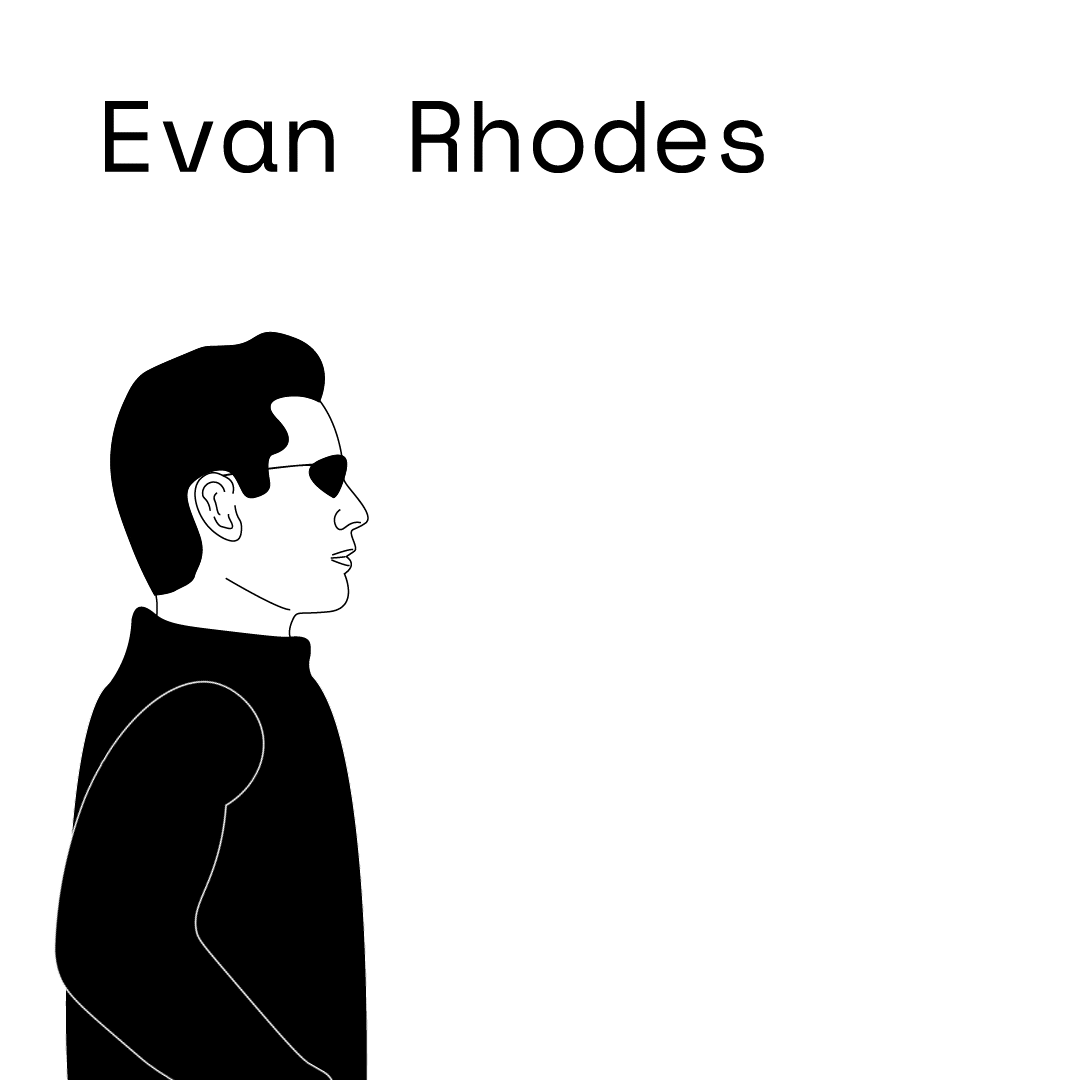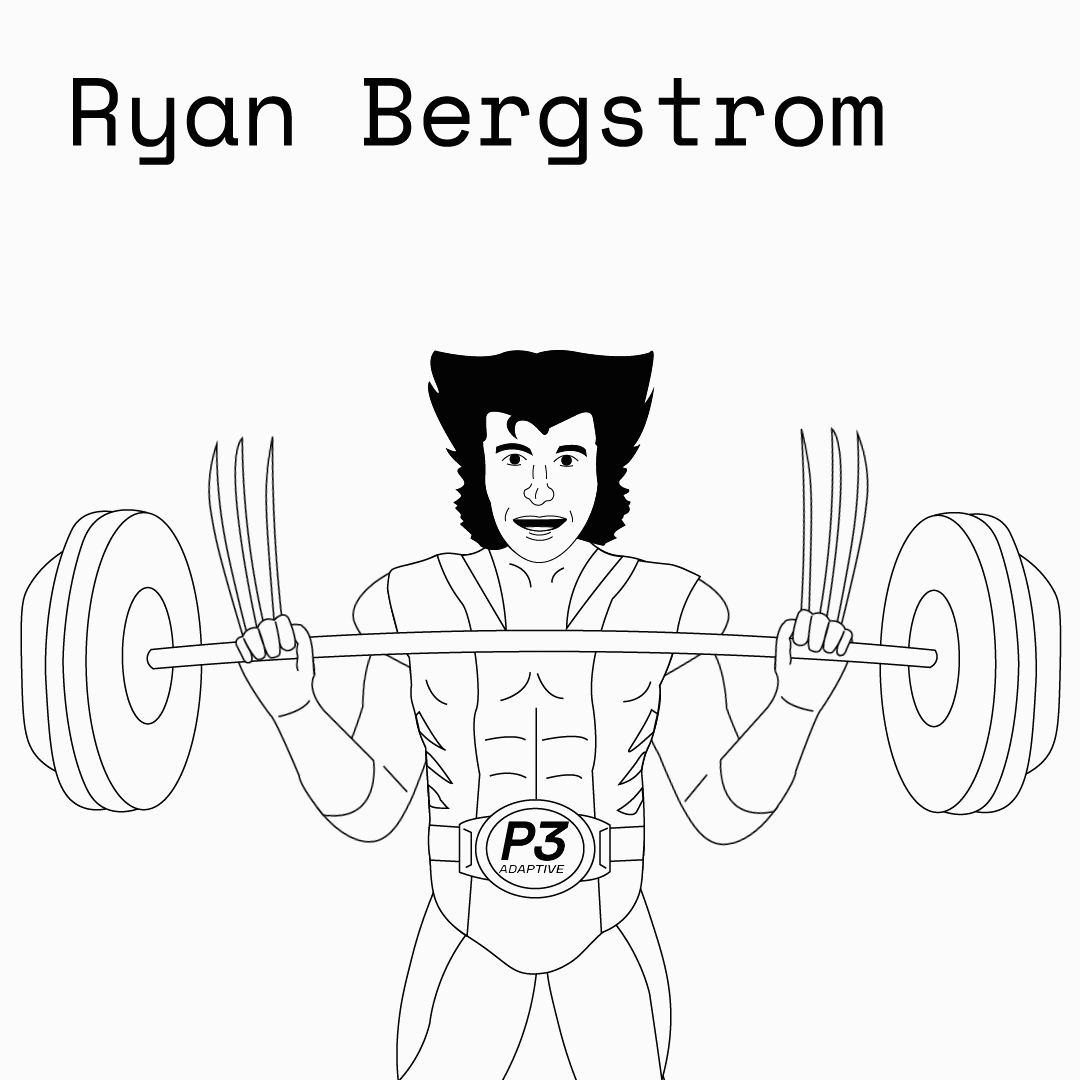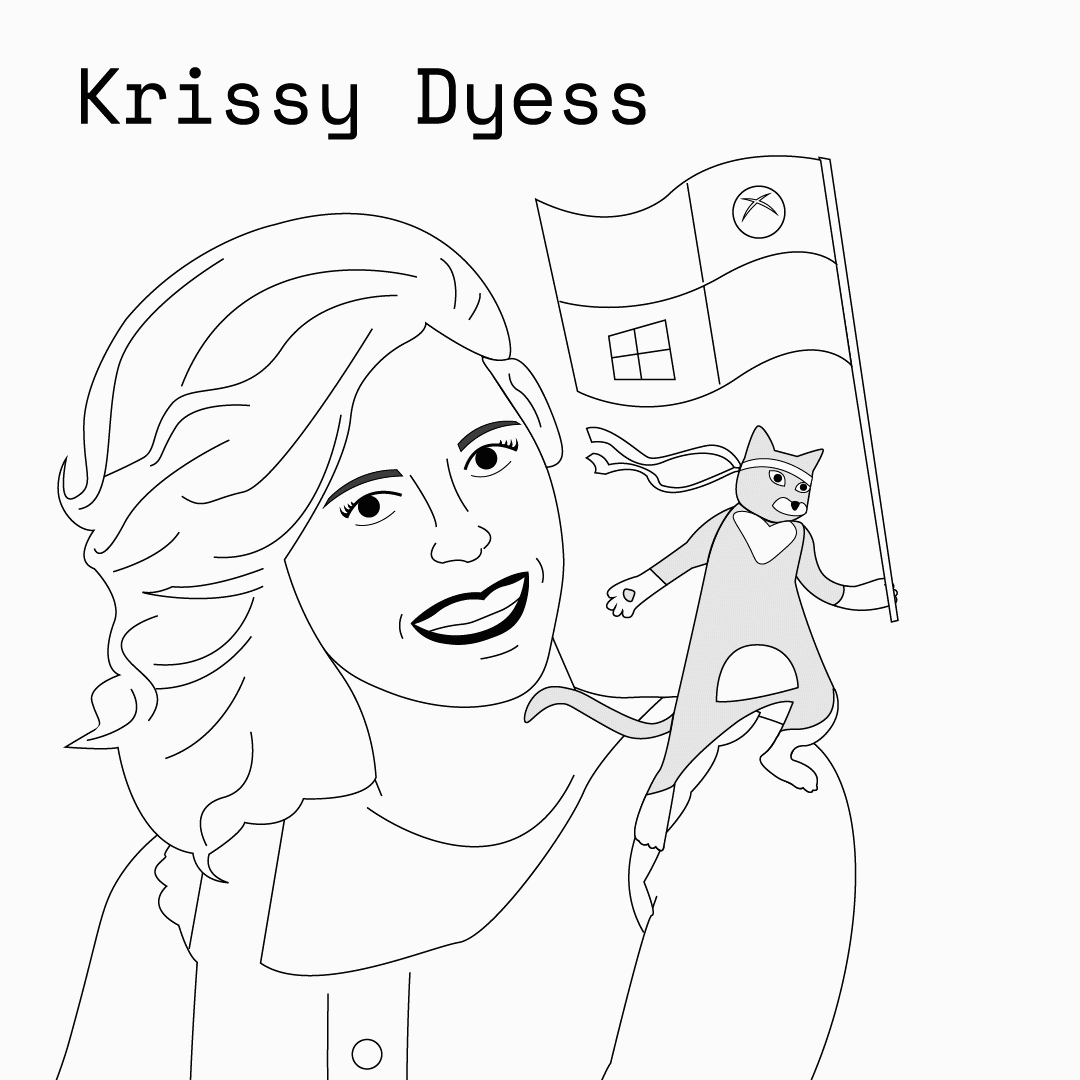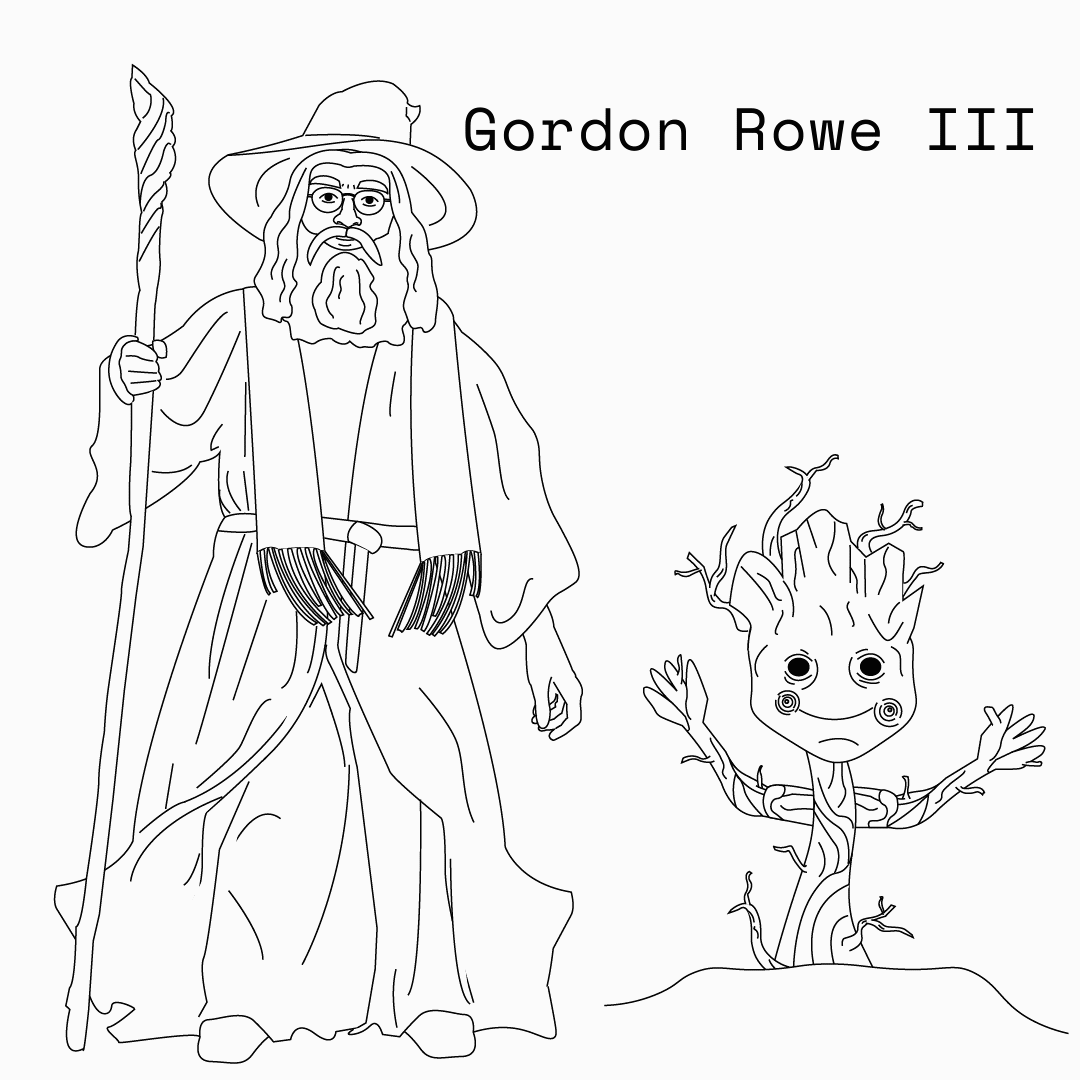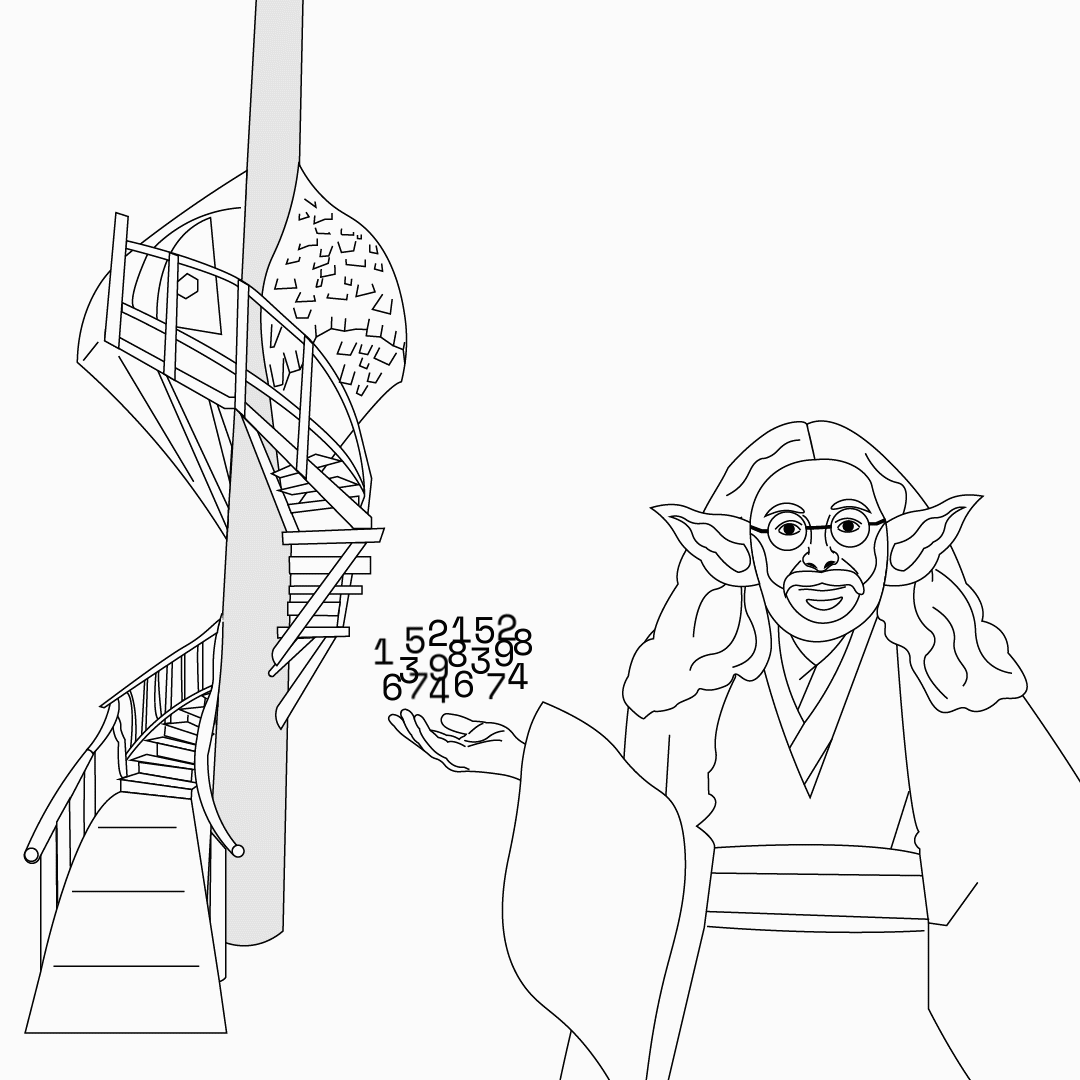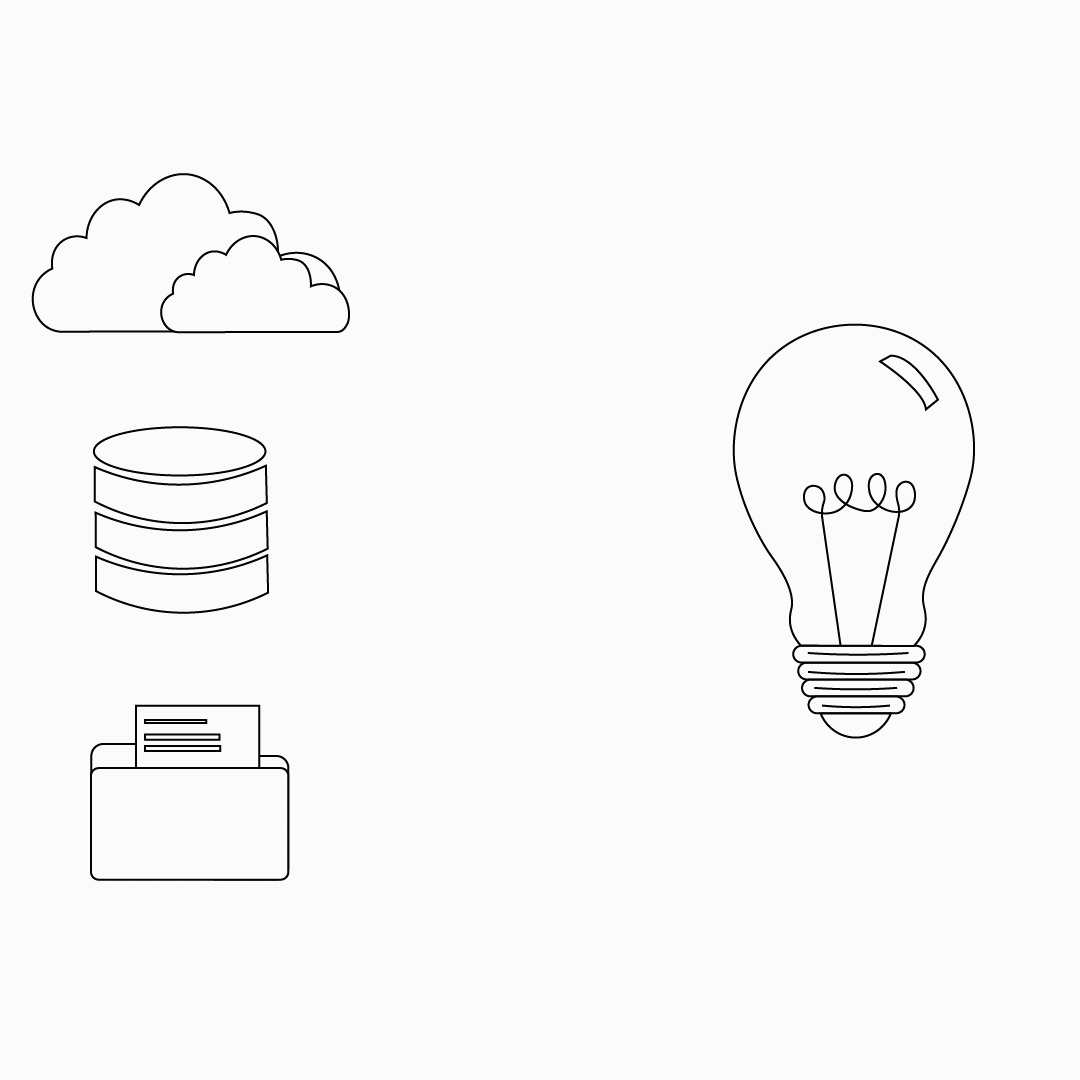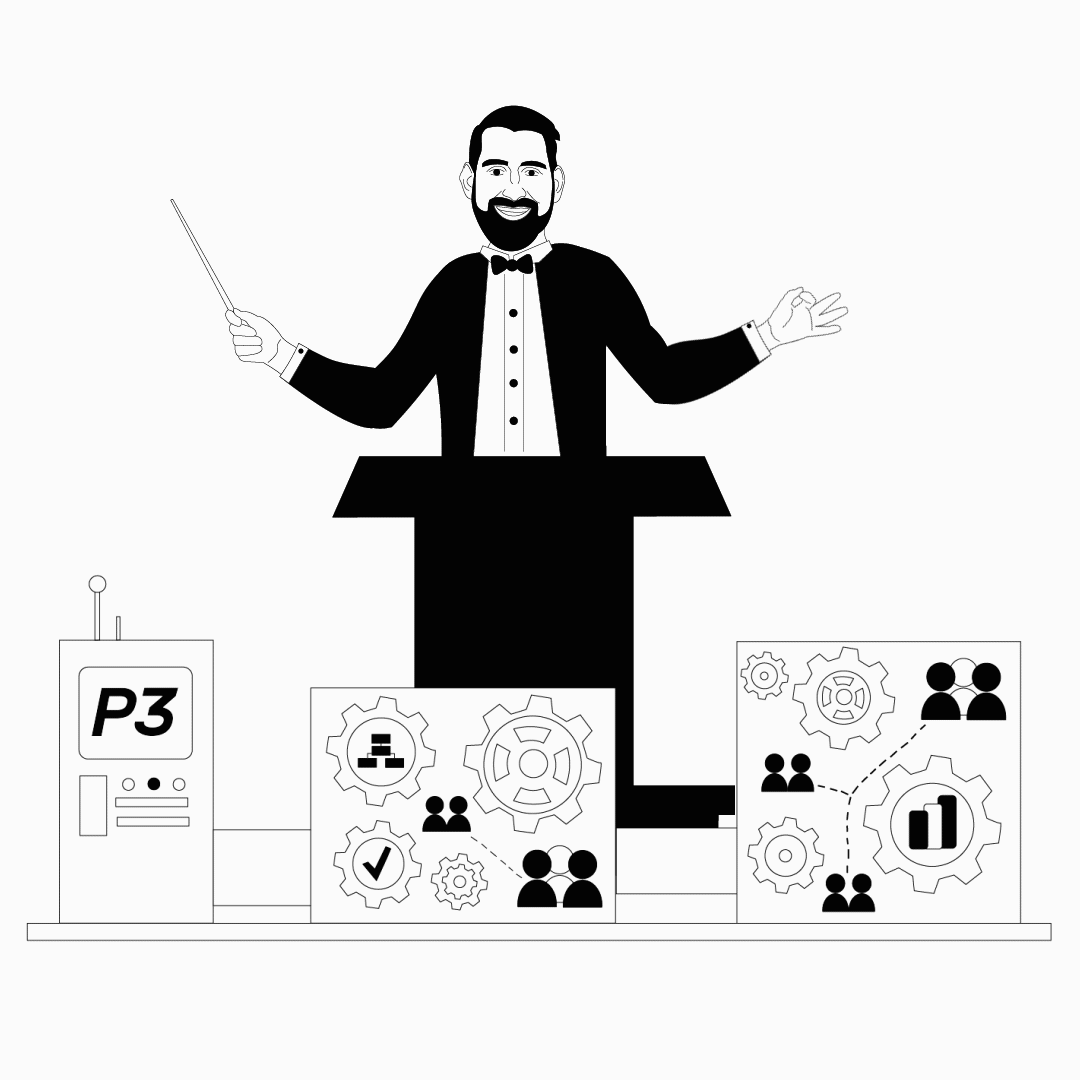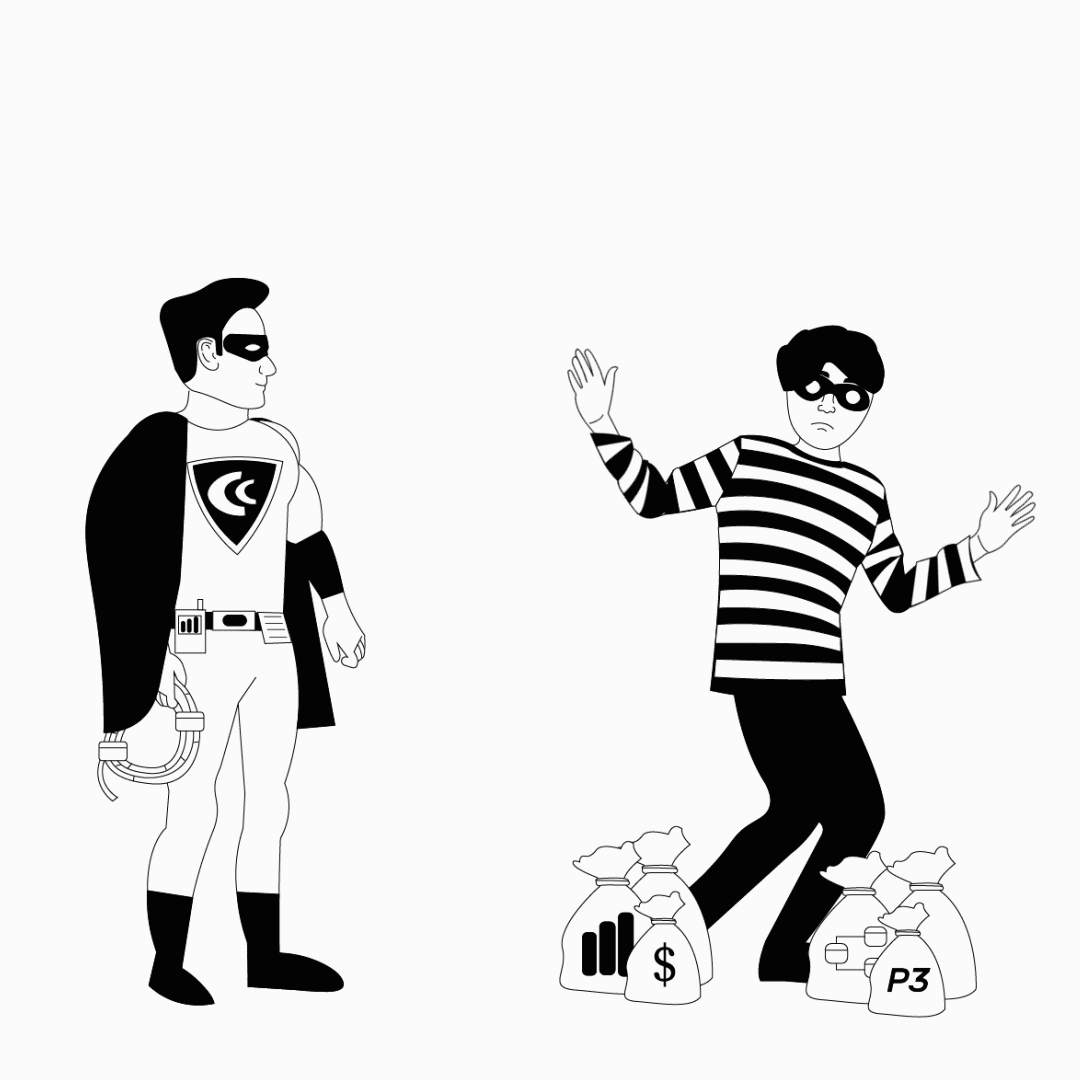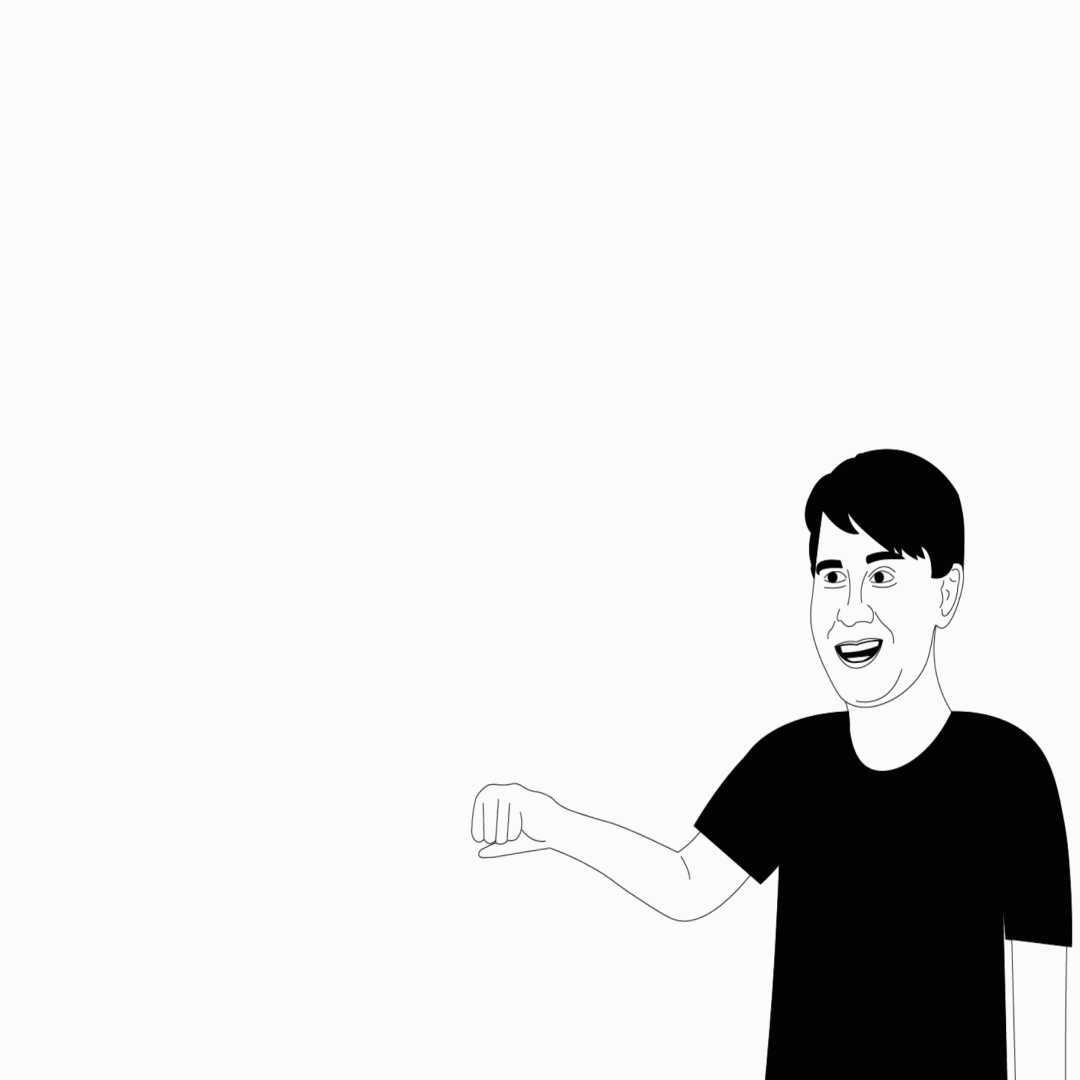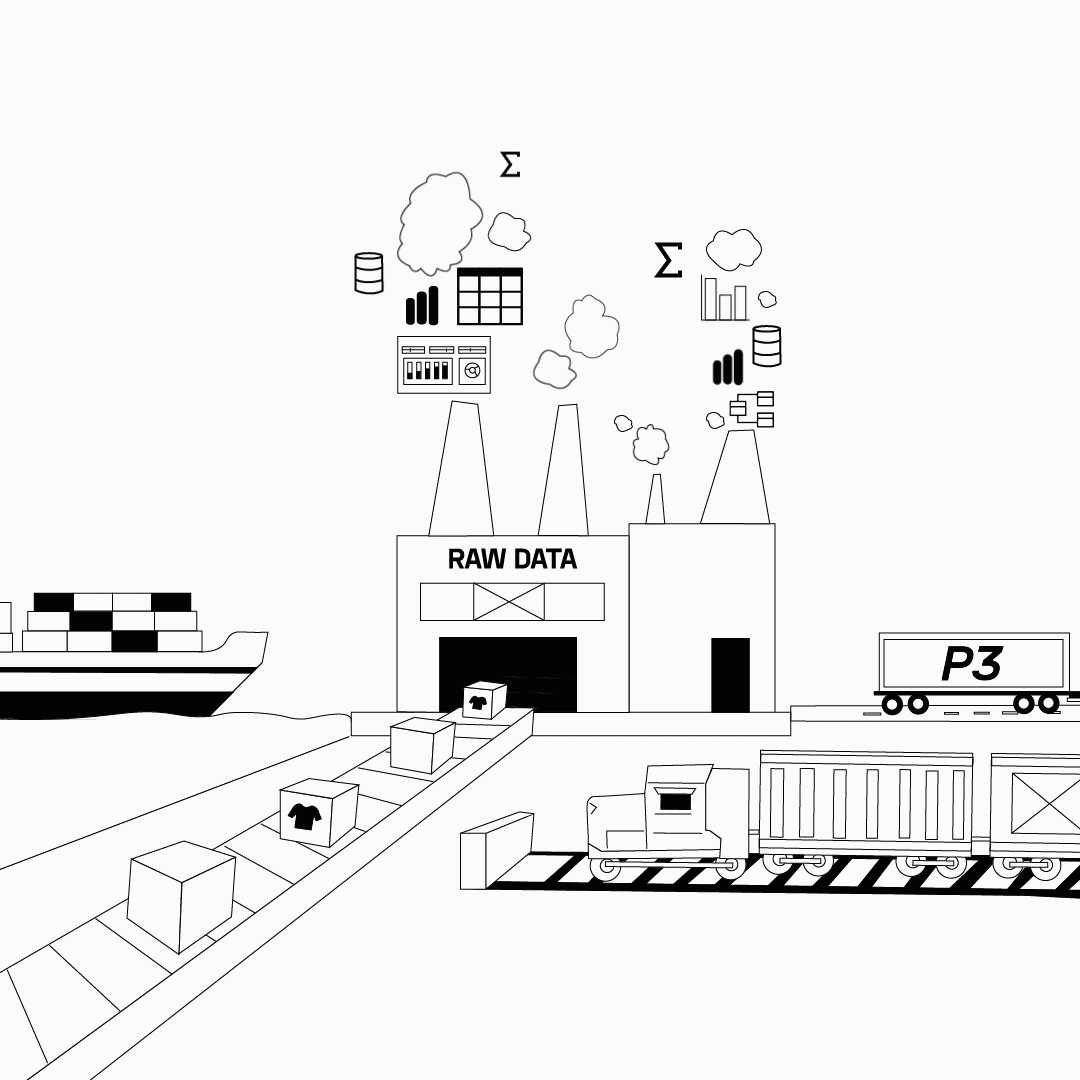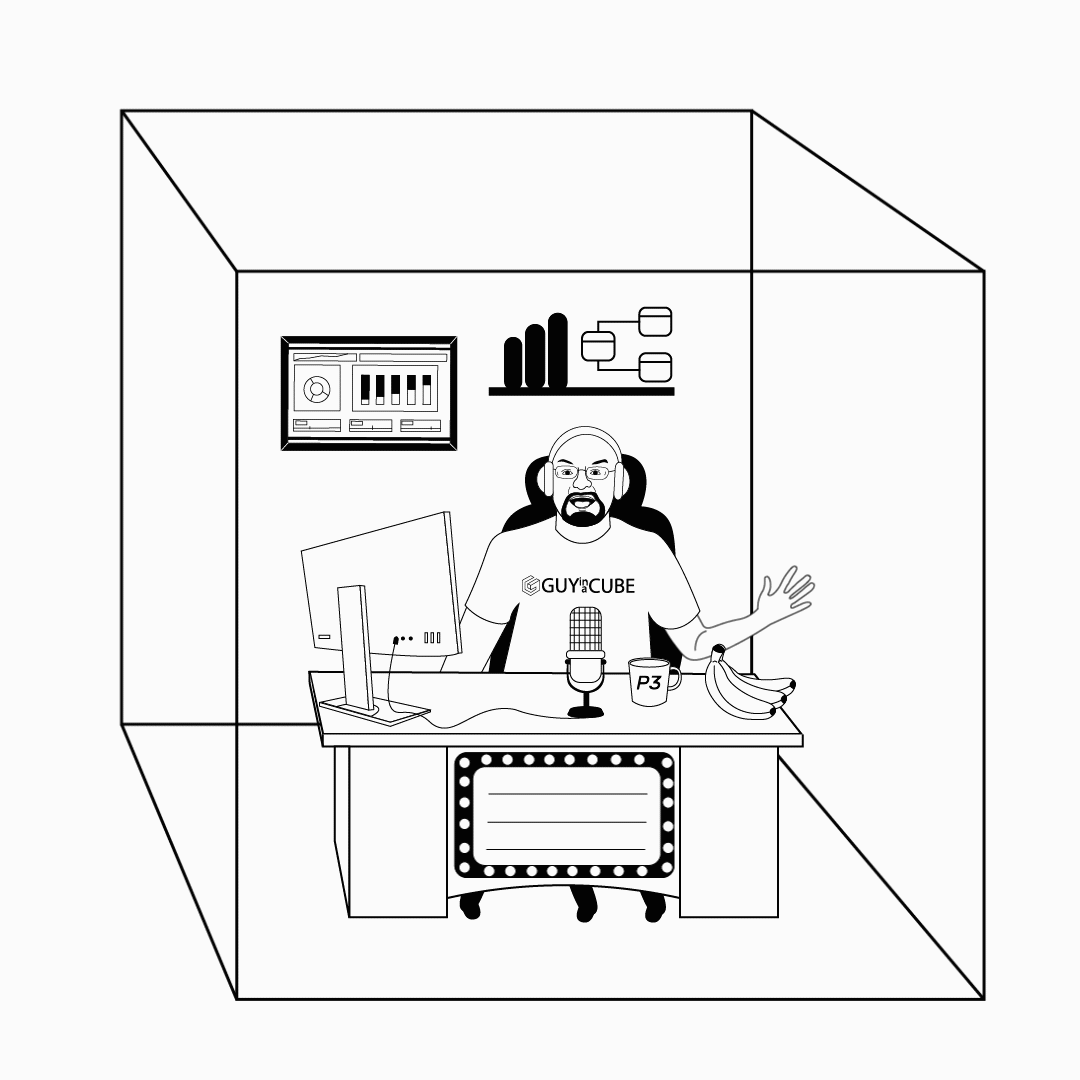
Raw Data By P3 Adaptive
Environmental Engineering Meets the Data Gene, w/ MS MVP Alice Drummond
Listen Now:On today’s episode, Alice Drummond, co-founder of DiscoverEI gives the inside scoop on transitioning from environmental engineering to Microsoft Power Platform MVP. She shares her story of building a consultancy firm from the ground(water) up while increasing her own skill set. She and Rob wax poetic on the struggles of taking the plunge into the small business owners’ realm and neither sugarcoats the challenges faced.
During the course of the conversation, a common thread emerges on the people who advocate for the firm and seek to move to the Power Platform. Early adopters want revolution while the early majority want evolution. The bottom line, most companies are just getting started.
This episode isn’t just about starting a business, though, we get to hear the real, human side of the story. Alice highlights the best parts of the learning process: teaching, sharing knowledge and empowering others.
As always, if you enjoyed this episode, be sure to leave us a review on your favorite podcast platform to help others find us. Then, click subscribe for new episodes delivered straight to your inbox!
Also in this episode:
Rob Collie (00:00:00): Hello, friends. Today, we welcome Alice Drummond to the show. Alice is a Microsoft MVP and co-founder of a company called DiscoverEI. Now, if you work in business data long enough, sooner or later, you're going to come across a problem called an inventory forecast. How long is it going to take for us to run out of a certain amount of a particular product or supply based on expected orders and deliveries, et cetera? And that's a complicated problem. It's worthy of deploying the power platform. But now imagine you're a government agency and the inventory problem is the supply of fresh water that's available to, I don't know, keep people alive. How long until we run out? It's a very complicated problem. You can't just reorder more water, and you also can't really know for certain how much water's in the ground. You can't just go to the warehouse and check how much water is in there.
(00:00:53): So as you might imagine, there's some very, very, very sophisticated modeling software that is used to extrapolate, estimate, all that kind of stuff, and come up with an output of how much water is in the ground, how much water is in the reservoir. But all of that sophisticated software is kind of like, in a way, it's kind of like SQL Server. If you just leave it at that and spit out all these results, you have a tremendous presentation problem. How do you visualize it? How do you interact with it? How do you explore it? Well, just like those SQL Server based reports of yesteryear, you can look at a thousand-page PDF if you want. Does that sound convenient? Now, Alice is an environmental engineer working in that field, and I know you probably would expect that all engineers have the data gene, but I find it actually reassuring to discover that that's not true.
(00:01:45): That an engineering office has about the same percentage of data geners as you'd expect elsewhere, and Alice definitely has it. After working in that field for a number of years, she discovered Power BI and was suddenly like, oh my God, all of these thousands of CSV exports that come out of these complex modeling tools, we can actually feed them into Power BI and actually have a humane way of digesting this information, a humane way of presenting it to others, make it visible, make it actionable, make it understandable, and we fast forward to today, and that is what she's doing full-time with her husband, who also quit his environmental engineering job to co-found this consultancy with her. And you'll hear some of the same themes that we often hear from other industries in particular, what it felt like after she had discovered what Power BI could do for them and how she really just couldn't go back to sleep.
(00:02:39): It was like all she could think about what all we could do with these tools in this industry and how that really just didn't fit with her existing job. At one point, she was even good, naturedly warned, if you keep doing this, this is like all you're going to be doing for the rest of your career. She's like, yeah, that sounds great. How do I do that? Well, in her case, the answer was I'll start a new company. It's been quite a journey for her, quite a journey for her entire family, actually. I really enjoyed hearing her story and I think you will too. So let's get into it.
Announcer (00:03:12): Ladies and gentlemen, may I have your attention, please?
Announcer (00:03:17): This is the Raw Data by P3 Adaptive Podcast with your host, Rob Collie and your co-host Thomas LaRock. Find out what the experts at P3 Adaptive can do for your business. Just go to p3adaptive.com. Raw data by P3 adaptive is data with the human element.
Rob Collie (00:03:42): Welcome to the show, Alice Drummond. How are you today?
Alice Drummond (00:03:46): Yeah, really good. Really good. It's very early this morning here in Australia, just past 6:30, but yeah, feeling good. I've had a coffee.
Rob Collie (00:03:54): A coffee.
Alice Drummond (00:03:55): Just one. I've got a tea. Yeah, one's my limit, actually.
Rob Collie (00:03:58): Really, even at 6:30 in the morning?
Alice Drummond (00:04:01): Yeah.
Rob Collie (00:04:01): So tell me about your limit. How do you know that's your limit? What sort of experience do you have that tells you that I've got to cut it off after one?
Alice Drummond (00:04:08): I think I just really enjoy my first cup of coffee and anything after that, it just tastes a little bit stronger. It tastes too strong. I take a sip and I'm like, oh, wow. No, I don't need that.
Rob Collie (00:04:18): Wow. You know what my first cup of coffee does is it makes me really want the second cup of coffee.
Alice Drummond (00:04:24): Or some days, I like that. Some days are, I'm not going to lie. Yeah, usually I try it for just one.
Rob Collie (00:04:30): All right. Well, it sounds like you're always up early, but I appreciate you being up early and spending a big chunk of your morning with us. Do you happen to know Tom? Do you know anything about Tom? Is Tom a stranger to you?
Alice Drummond (00:04:41): Yeah. I'd have to say Tom's a stranger.
Thomas LaRock (00:04:43): Good. That's the way I like it.
Alice Drummond (00:04:44): Yeah.
Rob Collie (00:04:47): I don't know how to say this, but he's kind of a big deal.
Thomas LaRock (00:04:49): Yeah. Yes. I'm about 300 pounds now.
Rob Collie (00:04:55): Yeah. I just had a Facebook memory pop up today from 14 years ago, and I'm like, wow. I look young and very, very, very pudgy.
Alice Drummond (00:05:07): What do you do, Tom?
Thomas LaRock (00:05:09): I do as little as possible. Usually my goal is get up every day and to do the absolute minimum.
Alice Drummond (00:05:16): Yeah.
Rob Collie (00:05:16): Give her a little more than that. Tom, first of all, he's SQLRockstar on Twitter. You might have seen, he's got a very I'm going to say iconic icon. Yeah, his avatar. You'd remember it. I always forget, chief geek, head geek.
Thomas LaRock (00:05:32): I am head geek at SolarWinds, so you should just think of that as a technical advocate. I'm not sure if you're familiar with SolarWinds. I work inside corporate marketing as an evangelist advocate. My background is data.
Alice Drummond (00:05:45): Awesome.
Rob Collie (00:05:46): His crowning lifetime achievement is that he used to be president of Pass.
Alice Drummond (00:05:50): Okay, cool.
Thomas LaRock (00:05:51): That's not my crowning lifetime achievement. That's just something I did.
Alice Drummond (00:05:57): Yeah.
Rob Collie (00:05:58): I might have been deliberately setting him up there.
Thomas LaRock (00:06:01): Yeah, you were. Rob hates me.
Rob Collie (00:06:04): Yeah, that's why I invite him to all these podcasts.
Alice Drummond (00:06:06): Yeah.
Rob Collie (00:06:10): So Alice, tell us a little bit about yourself. I think you're up to some interesting things. So let's start there. Then we'll go and get your origin story.
Thomas LaRock (00:06:17): All right, cool.
Rob Collie (00:06:18): And what are you doing for a living these days?
Alice Drummond (00:06:20): For sure. Well, I run my own company with my husband, actually. We're called Discover I, and we specialize in... Now we kind of specialize in Power BI for the environmental industry. So we started off... We weren't quite sure where we'd land. That's what we do. So we work a lot with mainly government clients here in Australia to help visualize their data in Power bi. We do a lot of the front end data visualizations, but also work with them to try to automate all the data, pre-processing structuring and things like that. And also do Power BI training as well. But everything we do is focused on the environmental industry.
Rob Collie (00:07:01): Okay. So how did you go about selecting that as a focus? Is that part of your career in the past?
Alice Drummond (00:07:08): Yeah, for sure. Yeah, both myself and my husband Christian, were both environmental engineers, so I worked for about probably eight years as a water resource management engineer. So I did a lot of surface water and groundwater modeling, not modeling in the sense of kind of Power BI modeling, nothing to do really with the data world itself, but processing a lot of data. So running computer simulations to see how much water we need in the future, how much we've got at the moment, do we need to augment our supply by building new dams or reservoirs or pumps, things like that.
Rob Collie (00:07:45): Yeah. So how far in advance do you tell golf courses they can't be irrigating anymore? Do you wait until the reservoirs of the Americans are basically down to 10% of their capacity before you start implementing emergency measures?
Alice Drummond (00:08:02): Yeah, for sure. So lots of that type of planning as well as the groundwater modeling. So groundwater was a tricky one because such a vast area with not much data at all, so there's heaps of uncertainty in the outputs and things like that. So we'd run really powerful models. Sometimes it would take more than 24 hours to run, and then we'd have to process a lot of modeling outputs. And to try and automate some of this, we'd use I think FORTRAN code, so it was really old school coding. I wasn't very good at it. I just knew what I needed to know to get by, lots of Excel macros, a lot of this kind of real nasty patch together data processing to try to do things as fast as possible, but still, it wasn't very efficient and it would just feel horrible when you'd inevitably make one mistake in your model and you'd realize, oh no, I have to do it all again.
(00:08:58): And it was this kind of vicious cycle. Some of the projects would last six months to a year, and you'd just be thinking, what am I doing with my life? I just keep running and running the same model, and then you get to the end and it's so highly technical, but we write up all of the results, you present in a report and the decision makers, they don't even understand what the modeling is showing what it's saying. They're looking for one number to base all their decisions off, and we've run a thousand different simulations for all this uncertainty analysis, and they're like, no, we don't want any uncertainty in our results. Just want to pick up one number. I was like, this is ridiculous. Why would I waste all my time doing this?
Thomas LaRock (00:09:38): Painfully familiar to hear all this.
Rob Collie (00:09:40): Yeah, this definitely sounds like working in data.
Alice Drummond (00:09:42): Yeah, so I didn't think... I wasn't really working in data itself, so I did a degree in environmental engineering and commerce and my whole degree I thought, oh, no, I'm just going to do commerce. I kind of get that environmental engineering, it was quite conceptual, a lot of the computer kind of modeling and things like that. It wasn't really something that I felt kind of passionate about or strongly about. It wasn't until my final year where I think I had a bit of a mentor and he really took me under his wing.
(00:10:13): He was close to retirement and he had his favorite kind of pet project, which was a groundwater modeling one. So he kind of groomed me for that one, and I loved it, and it was just something that I'd never really thought that I would really do. I think I had to do a computer subject in my first year at uni, and I think I almost failed. I got 51%, the bare minimum to get by, but I was like, oh, I just [inaudible 00:10:39] learn that. I didn't understand it, and I thought I would never need any of these skills down the track.
Rob Collie (00:10:43): You're right. Yeah, totally. So that last year when you were doing the groundwater modeling, was that when FORTRAN entered your life?
Alice Drummond (00:10:51): No, that was a few years later. I quickly realized when I started doing this at... I worked at an engineering consultancy. It was highly specialized and not many people really wanted to do it because it was tricky and it was kind of hard. You needed to learn lots of skills to do it, and then I was really lucky to work with probably one of Australia's best groundwater modelers, so he wanted to automate everything, so that's where FORTRAN came into it. He'd run these optimization programs and things like that.
Rob Collie (00:11:19): And so all of that, again, sounds 100% like take the environmental engineering overlay off of that. It's the working in data story, right?
Alice Drummond (00:11:28): Yes, for sure.
Rob Collie (00:11:30): It absolutely fits. Even though that wasn't what you were doing, you didn't think of yourself as a data person. You were absolutely doing the data thing. The average, not even average, the overwhelming majority of people who are good at Excel, their job title has nothing to do with data. They've got some other job title, but they've been sort of deputized as the data cruncher for their work group, no matter what industry that they're in.
Alice Drummond (00:11:54): Yeah, a hundred percent.
Rob Collie (00:11:56): You were an environmental engineer. It turned out, if you looked over your shoulder during that era, we'd see you writing a lot of FORTRAN, and so someone might come to the conclusion, oh, she's a FORTRAN programmer/Excel person, and you go, no, no, I'm an environmental engineer.
Alice Drummond (00:12:15): Yeah. For sure. Yeah. No, I only wrote a tiniest bit, just enough to get by, just enough to automate things. I didn't have to sit at my computer 24/7.
Rob Collie (00:12:22): Yeah, that's the right kind of lazy, yeah.
Alice Drummond (00:12:27): Yeah, for sure. Yeah. So then I was doing a lot of that kind of stuff and I moved around a little bit between a few offices, and then I was working in New Zealand and I was working in the hydrogeology group. They're still doing a bit of groundwater modeling, but I was really lucky that my manager at the time, he was kind of dabbling half in hydrogeology and half in the innovation and digital team, so lots of the engineering consultancy companies, they realized... This was probably four or five years ago, they realized that digital is coming. We really have to do something digital. Let's call everything digital, let's get in that space.
Rob Collie (00:13:01): Yeah, digital transformation, we can't fall behind. Yeah, we have digital transformation gap.
Alice Drummond (00:13:08): For sure. So they were trying really hard to kind of see what was out there. Have a look at all of the different tools out there, and I found it quite annoying. I used to sit next to my manager and I would be in the middle of trying to do something really highly technical. So if someone interrupts me, it takes five to 10 minutes just to remember where I was at, and he'd be like, oh, Alice, hey, play around with this. Have you seen this new tool? And I was like, actually, I've got no time to play around with this. I'm too busy. It was that old thing, too busy.
(00:13:38): And one day he mentioned Power BI to me, and I was like, why would I want Power BI? I love Excel. I knew how to do all my macros. I could automate everything. I do all the formulas. And I was like, Power BI doesn't really look like it does anything different. He's like, no, Alice, it looks really good, except he's really good at being kind of blue sky thinker. And I was like, oh, show me what it does. But he opened the program and he didn't know how to use it. It was dragging things around. I was like, what is this even doing?
Rob Collie (00:14:04): Terrible sales pitch. Yeah.
Alice Drummond (00:14:06): I know. Yeah. Well, he wanted me to explore it because he was a bit too busy too, and I was like, no, I don't think so. And then I think it was three months later, he mentioned it again. It came up in another context and I was like, okay, fine. I think I was a little bit quiet at the time. I was like, I'll have a look at it. And so I think that weekend I went home and I watched, I think it was Will Thompson's edX course on it because I saw I did the same thing as Anthony did. I opened it up. I was like, I don't get this. I need to go and have a look on YouTube and everything I do, I always just Google it. And I came up with this course and I was started to watch it, and then I think about 10 or 15 minutes in, that's where the lightning bolt struck, and I kind of realized what it actually does.
(00:14:47): And I could see instantly I was like, I could bring in a thousand CSV file exports from my models, bring it all together, make these interactive reports. I could replace a thousand-page PDF document with one page, interactive dashboard. This is amazing. And so I think that weekend I set it up really late. I was watching it all. I was playing around. I think I even tried doing the R visuals as well, and my husband Christian, he's like, what are you doing? Why are you working on the weekend? I was like, have you seen this? This is amazing. He's like, oh, cool. That can be your hobby. And I'm like, okay. He's like, I want to know nothing to do with Power BI, and I was playing around with it. I loved it. I think I went back just after the weekend, I was showing Anthony what I made. He's like, this is amazing. He kept bringing everyone around to my desk to show this interactive Power BI report.
(00:15:38): When I was getting excited, I was like, oh, but I still have to do my work, Anthony. And I made a report for a proposal for a new project, and I thought that yes, this will be amazing that I think we'll definitely win the project. But then I think it was just the client wasn't ready. So the client saw this new tool they had never heard of, and they're like, we just want you to complete the project. We don't need this add-on. But we've made so much emphasis about how we can streamline and automate everything. But what the clients saw, I think in hindsight looking back, is just that we'd be creating them so much more work because then they have to learn a new tool and it's dangerous. They just want it in Excel because then they know how to edit it. They know how to use it. So we lost that project and we lost a little bit of enthusiasm as well.
(00:16:25): I think everyone I would talk to, they would give my response, saying, no, we're too busy, Alice, too busy. So I think it was two or three months after playing around with it, I went to a couple of the Power BI meetup. So I was really lucky. I was based in Auckland at the time, so I got to go to Reza and Layla's meetup. I didn't know that they were rock stars. I was just peppering them with questions. I had no idea who they were, trying to learn everything that I could. I think I was just really feeling quite frustrated. I was feeling really frustrated that we could help automate and streamline all this data processing for the environmental industry and save poor people like me all of this time and effort processing this data when we really should be analyzing it and using it to make decisions that I got really fed up with where I was working.
(00:17:10): And I said to Christian one day... Christian at this time had no interest in Power BI, still it was my hobby. I was like, Christian, why don't we just quit our jobs and start our own company doing Power BI? I was expecting a really big kind of pushback because Christian's ultraconservative. I don't really think things true. I'm like, yes, I can do it. I'll figure out how to do it on the way. And Christian looked at me, he's like, yes, I'll do that. I was like, why would you want to do this, Christian? He's like, I'll do it for the lifestyle. I'm like, I don't think running your own company is a very good lifestyle. He's like, yeah, I think it would be good.
Rob Collie (00:17:45): Yeah, let's go find out.
Alice Drummond (00:17:49): So at that time, I knew nothing about... Oh, I knew, I thought I knew quite a lot about Power BI, but I'd really only been using it for a couple of months. So yeah, I think that's when the idea was born. I think we started probably a few months after that. So we're trying to learn everything that we could. We went along to, I think Reza and Layla run the Definity conference, and because we were part of their meetup, we got to be volunteers at that conference and that was just eye-opening. That was incredible. I'd never been to a data conference before. I'd only been to environmental conferences. And at environmental conferences, they give people the opportunity to speak for maybe 10 or 15 minutes. Usually it's kind of very guarded. They just want to show how good their solution was and look at all this amazing work that we did, but not so much sharing and walking through how to do it.
(00:18:46): It's really about showing, not about teaching. Whereas the data conferences, well, they're amazing. People talk for a whole hour usually, and they go into really great detail on how to do something. It's all about knowledge sharing and empowering others. Really after the presentations, if you have any questions, you can always go up to the speakers and pepper them with questions, which is of course what I did. Yeah, it was incredible. We met so many of the MVPs. We didn't know what MVPs were at the time. I was just going up to everyone, asking a million questions. Met Daniel Marsh Patrick, which was awesome. So at the time, he was specializing a lot in custom visuals, and I was really interested in creating a custom visual for a geological ball log. So I'd been kind of dabbling around with that a bit. I'd hire someone off the internet to help me build it and teach me how to do it.
(00:19:43): And then Daniel was there and he knew so much about it. So we got chatting for a lot, and that was a really, really good connection because I think we were both at the same kind of journey. We were thinking we were starting DiscoverEI. Daniel was starting his company as well. So then we were like, oh, can you please come work with us for a little bit? This is a kind of consultant to give us guidance, and really it was to mentor me so that I could learn Power BI under someone who's done it a bit longer than three months.
Rob Collie (00:20:14): So many things in this story so far that I want to react to and ask questions about. First of all, the cynic in me when you said, oh, I can replace this thousand-page PDF with an interactive dashboard, and then right after that you told the story about how the very next client pitch, you didn't get the project, you didn't win it. Because the cynic me was going, replacing the thousand-page PDF. Boy, half the people who used to have the thousand-page PDF are really going to be grumpy that you took away their thousand-page PDF. Right? How many times did you get, well, can we still have the PDF?
Alice Drummond (00:20:49): A hundred percent. Yeah. And I was really upset that one thing that I googled intensely for weeks is how can we print pages from Power BI and scroll through the slices and have a slice of selection, and then it prints. Have a slice of selection, then it prints. There might have been a tool out there by DevScope, which might have done this, but I didn't look too far into it.
Rob Collie (00:21:14): By the way, I've written many macros for Excel that did exactly that.
Alice Drummond (00:21:20): For printing Power BI reports?
Rob Collie (00:21:22): No, no, not for Power BI.
Alice Drummond (00:21:24): Oh, yeah, yeah, yeah, no.
Rob Collie (00:21:25): Power Pivot linked or Power BI linked, like pivot table reports. It grabs the slicer, enumerates, all of the tiles goes through one at a time, click copy the whole sheet paste as values, printed out.
Alice Drummond (00:21:40): And we used to do this.
Rob Collie (00:21:42): Bursting macros. Oh boy, I have a lot of Excel macros from the old days that do that.
Alice Drummond (00:21:47): That's what we used to do. We had all these templates built in Excel because what our thousand-page PDF was, was really 50 pages of kind of technical analysis and 950 pages of repeating charts as appendices. So we had lots of macros to print that data out, and I was thinking, if we've got it in Power BI, surely we can do the same thing there.
Rob Collie (00:22:08): Yeah. Boy, wouldn't it be nice if Power BI desktop had a calm interface, macro language like Excel? We would abuse the hell out of it, I'm sure, but I do find myself missing that on occasion.
Alice Drummond (00:22:21): Oh, definitely.
Rob Collie (00:22:21): So another thing, this is really kind of a key theme, looking at you from the outside on social media, here's what I was expecting your story to be. So I thought that what led you to start DiscoverEI was an environmental passion, and then that sort of led to Power BI. Now, the story you told though sounds exactly like it is the story of Power BI. It's the frustration of having discovered something amazing that can revolutionize everything that you're doing and then struggling to get traction with it. Others aren't as excited about it. Others don't see the potential, or others can't... Even just the business model around you can't-
Rob Collie (00:23:03): Potential or others can't. Even just the business model around you can't respond fast enough to it. And this, by the way, is the story of basically everyone that works at our company. They discovered power platform, usually Power BI, but sometimes it's the other stuff like Power Apps and things like that. And that's their superhero moment. That's where the radioactive spider bites them and they turn into Spider-Man or something, and the rest of the organization around them says, "You think you're some kind of superhero? No, no, no, no. Get back to doing the other job. The one we've always wanted. What about the thousand page pdf? We still want that." That frustration with knowing how much better things can be, drives people to look elsewhere, to explore other career options. Now, I'm not saying that you aren't environmentally passionate. I'm not trying to negate that story, but it was so cool for me to hear, again, it's this dynamic of like, "Oh my gosh, I can't bottle this up.
Alice Drummond (00:23:57): I had to do it, yeah.
Rob Collie (00:23:59): They want us to bottle it up, but we can't. And.
Alice Drummond (00:24:01): There you go.
Rob Collie (00:24:02): It's also kind of my story, even though I came from Microsoft and I at one point worked on building these tools.
Alice Drummond (00:24:09): Wow.
Rob Collie (00:24:09): Once I saw what they could do, oh my gosh, I've got to go build the company that does that.
Alice Drummond (00:24:15): Oh, for sure. Wow. So you got to see it from the very kind of beginning.
Rob Collie (00:24:20): Imagine my surprise that it was really good. I've been working on it and it was really good. I was not used to that. Software didn't train me. There's the old story that the third release of any Microsoft product is actually good. The first two are kind of proof of concept, in hindsight. I'd lived that experience at Microsoft. And the goals, the ambitions for Power Pivot, the forerunner to Power BI, the ambitions for that product were just massive. This was a huge daring move. Putting all that time into developing this new engine and this new language, DAX and all of this, and aiming it at what they now call the Citizen Developer. And again, even though I was at Microsoft, I'm very much that Citizen Developer type. I was never that technical, relative to my peers at Microsoft. I always felt like the one that wasn't that into it. So I get that story, but oh my gosh. The courage. Not only did one of you bounce for an independent company and to create one, you both did.
Alice Drummond (00:25:26): Yeah.
Rob Collie (00:25:27): All right. Talk me through the risk analysis. How did you win? When did you actually quit the original day jobs relative to when and how did you secure your first clients? What a really gutsy whole family, all in. Normally we say, "Jumped in with both feet." Mm-mm, no, all four feet.
Alice Drummond (00:25:53): Yeah. Looking back at the time, we didn't really do any risk analysis. We felt we had a bit of a buffer of our savings, which was good. And we had just, actually, we did a year away doing our masters. We both did Masters of Sustainable Water Engineering. We both did our masters in Switzerland, so we had a year. This was after working each for five or six years, we both did a year away there. That was really nice. It was eye opening. We spent a lot of time just traveling around Europe. We got married over in Croatia. Loved that experience.
Rob Collie (00:26:32): Did you get married in Dubrovnik?
Alice Drummond (00:26:34): No, in Vis. So it's a tiny island off Split. It's actually where they filmed Mamma Mia 2. So they were filming Mamma Mia 2 at the same time as when we got married. It was super annoying because they bumped lots of our friends out of their Airbnb accommodation.
Rob Collie (00:26:50): Oh no. Stupid Mamma Mia 2. What's the Croatian marriage calendar look like? Okay, you're going to get bumped by Game of Thrones. You're going to get bumped by Mamma Mia. All right. Anyway, continue. I'm sorry, I couldn't resist.
Alice Drummond (00:27:04): Oh, did you get married into Dubrovnik?
Rob Collie (00:27:04): No. No, my wife loves that city. I've never been there. I've seen lots of pictures of it and obviously I've seen a lot of it on Game of Thrones, but I don't really know, watching that show, what of it is CGI? I'm not expecting the Red Keep to be there. I'm bright enough to know that that's probably not there. So a year in Switzerland. So you'd already had a little bit of experience with taking a break from being gainfully employed, right?
Alice Drummond (00:27:27): Yeah and we realized that now because Switzerland's so expensive to live and we weren't legally allowed to work in Switzerland with our visas. We just learned to live super thrifty. So we knew just how much money we needed to live, to start the company. We were moving back to Melbourne, so from Auckland to Melbourne in Australia and we owned our apartment there as well. We didn't have to pay expensive rent or anything. Our cost of living expenses were quite lean at that time. Our parents used to joke ... they came and visited us in Switzerland, we'd go to the local supermarket and take our suitcase with us because we didn't have a car. And we'd a [inaudible 00:28:06] a block full of all these fresh veggies, all this stuff. We'd buy bulk. We'd cook up big, we'd just be super thrifty. They're like, "Oh my goodness, what have we raised here?"
(00:28:17): Yeah. So we weren't really that concerned as maybe we should have been or as other people might have been about money. We didn't have any kids or any dependents. We thought, "Oh, let's treat this as another year of Masters." If we earn no money in an entire year, that's fine. We did the calcs. We're like, "We can live a whole year without any income. That's no problems. Let's just treat it as learning the most that we can." Because I think I was toying with an idea of maybe doing an MBA and I was a little bit dejected with learning via university. The course was really good in a lot of aspects, but it did teach me there's a massive disconnect between academia and learning from a book and what happens in reality. Because they were trying to teach us stuff that I had already done for five years as an engineering consultant and what they were teaching us was just very disconnected, I found, to reality.
Rob Collie (00:29:12): My wife is right now doing a master's in communications. It's such a shock going back into that environment, because I'm right there next to her, I'm looking over her shoulder. And she's in her, I think third class right now because it's one class at a time, a night master's program. It's not like she's full time in it. Part-time masters, and it's shocking how impractical it is. Class about doing research, just doing research, and looking ahead to this class I was like, "Ah, this is it. This is where they're going to turn the corner and not going to be talking about all this crazy philosophy and all this kind of stuff. It's going to be practical useful stuff." The first two chapters of her reading are all about different ontologies, what we can know and what we can't know. And you need to decide what's your personal philosophy of what's knowable. I'm just like, "What? None of this is going to mean a thing for her career."
(00:30:10): And they're also making her write according to all these academic standards, as if she's writing academic papers. We're not trying to train the next communications professor, we're trying to train a communications practitioner. What is going on? I want to reach through the internet and grab these people and shake them. "What are you doing wasting our time and our money?" Maybe that's similar to your reaction, but oh my God, I can't handle it. Get to the point.
Alice Drummond (00:30:43): For sure. I think there's definitely looking back things that you do pick up and it's, I think at university and courses like that, you kind of learn how to learn, which I find is a really, really important skill, but the content that you are learning might not align. So you always pick up something. The thought of doing another course, something like an MBA, I was thinking, "Yeah, sure, that would be good for my career, but what really practically am I going to get out of it?" So we kind of reframed the starting a business as doing a year intensive MBA and data or business intelligence course. So at the end of it, we were thinking, "Okay, we haven't paid any money for it. We didn't earn any money, but what have we earned in skills?" So we're thinking of starting a business. you have to learn a lot about marketing, social media, building a website, content, and then obviously the big one, learning the skills. So we started trying really intensely to learn Power BI, create heaps of different prototype reports, just playing around with the tool, pushing it, seeing what we could do with it.
(00:31:53): And then at the same time we weren't sure. We were like, "Okay, Power BI is something really cool. We love that." But also we thought combining the graphic design with environmental data, that's another aspect which was really lacking in the environmental industry because environmental data, it's so complex and so mysterious sometimes. A lot of the problems that we're trying to solve has a lot of different stakeholders involved. So you might have environmental flows officers, water resource managers, groundwater users, the general public, farmers, irrigators. And they all know a lot about their subject matter expertise or their data, but they don't really know how it fits together as a whole. So if you create infographics, that could be a really nice way to visually paint that picture and show what it is that we're all working towards. Or animated infographics or short explainer videos.
(00:32:51): So we had an idea, we were like, "Oh, this would be really cool. This would be revolutionary. It would really help to unpack, unlock that data." So Christian's real outdoorsy, he went and did a registered drone pilot course. We've got a graphic designer, Annette, who works with us. No one's ever hired us to do the drone flying, unfortunately, but Christian is certified if there's anyone out there who wants that services and that. It was just like we were just trying to go see what would stick, see what we liked, see what our clients liked.
(00:33:23): We also thought it would be a really good investment to not just work in the apartment, get out and join one of the co-working spaces. So that was really good because it surrounded us with lots of other people who were on their journey of starting their own company or who had been there and done it for years and years, so we had lots of help from other kind of startups. We started off at, it's called YBF Ventures. They branded themselves as a tech and innovation hub, so they were lots of people doing really cool things. So what we were doing sounded quite boring. And everyone's like, "Oh, of course you can do it." They're like, "Oh, what's your 30 second elevator pitch? Oh, come and we'll introduce you to this client." It was just a really nice kind of ecosystem to immerse ourselves in this and surround ourselves with people who had already done it, knew what they were doing.
(00:34:14): I remember we spent about three months or the first maybe two or three months, just really focusing on building out our website and making lots of content and a little bit pedantic about stuff. So we went through and we were trying to get it all done. We didn't want to release or announce that we'd started a company until we had something to show for it.
(00:34:36): I was so excited that day that we were like, "It's alive." Did my first LinkedIn post ever and said, "Yes, we started this company everyone." And I remember one of the guys who shared our floor, Rupert, he worked at Plattar, they do augmented reality, he's like, "Oh, let me take a look guys." I think he might have said nice things, but you always remember the critical comments. He's like, "Oh, what's your action? What's your takeaway? This is too bold. Don't do this, don't do this." Because we were all set to go out for our celebratory drinks, go have a nice night out, and I was like, "Christian, no, we have to stay. We have to change the website." That was so great because we surrounded ourselves with people who gave us all this advice and encouragement. It suddenly didn't feel so scary.
Rob Collie (00:35:21): I can certainly see that being surrounded by that would be helpful. At one point there you said, "And then of course the big thing, we had to go learn Power BI. We had to go get good at it." Now, that's how I would've thought of it too, but having started a company and like, gosh, I guess it's been 10 years looking back, I would say the big thing is actually learning how to win business. Especially for us, our type of person that gravitates to Power BI, gravitates to these things, it's almost inversely correlated with being good at BizDev. It certainly isn't any better than randomly correlated. What I call the data gene and the sales gene, they're not often found in the same person. So how has that gone? That's the really scary topic. How have you done with that?
Alice Drummond (00:36:08): Well, I guess we're lucky because we both were environmental consultants. So as a consultant, we were constantly, as our previous jobs, writing proposals, trying to win work. So we'd been through that cycle. I knew what the workflow was. I was at a level where I was project manager. I was quite resistant to doing that. I wanted to do technical work, but luckily my managers are like, "No, you have to do this, Alice. We're too busy." So I'd had a little bit of experience doing it and I still had really good relationships with my colleagues at the engineering consultancy because I worked there for maybe seven or eight years. So I was quite lucky my skillset was very specialized as well, so there weren't many people. I think I one of the only ones in our company in Australia and New Zealand who did this ewater source modeling. So that's surface water. I was one of the only ones who did the groundwater as well. So when I was leaving, they were like, "No, don't go. We need you."
(00:37:10): Our first project, which we worked on was actually an ewater source project. So that was doing what I previously did, and it was working with one of my old managers in Melbourne. So we were really lucky. He's like, "Oh, great, you started your own company. We'll just employ you through that," to do what I previously did.
Rob Collie (00:37:26): Subcontracting to the other consultancies, that's a natural place to get started.
Alice Drummond (00:37:31): Yeah, but it was doing what I previously did and I was no longer that passionate about that, so I was trying to sneak in Power BI. I think, on that project, it was for a regional water corporation, and I did the work. I did what we were meant to do, but at the same time, I also used the opportunity to build out a Power BI report to automate the presentation of these results. We didn't have to present them that way, so this was just something I showed them. I didn't give them because they didn't ask for it, they weren't paying for it. But what that allowed us to do was we went to their, and I think my parents visited us, so we were like, "Oh, let's go do a road trip." Because these guys are a regional water corp. People don't often go to the regional water corps because it was about a four-hour drive from Melbourne. They're quite open to someone coming to visit them. Someone up from the big smoke.
Rob Collie (00:38:22): You could have ended that sentence at regional water corp. Not many people go to visit their regional water corp. That's correct. Even if it's a four-minute drive.
Thomas LaRock (00:38:31): I wouldn't even know where it is.
Rob Collie (00:38:34): I mean, we're not talking about the water treatment plant that smells right, because I know where that is.
Alice Drummond (00:38:38): Oh, that's the office where they work, but I met the consultants. So lots of people work on their projects, but because they're a bit of a drive, people didn't tend to go to see them, face to face, unless it was required. We voluntarily went down to have one of the progress meetings down in their office. And sure, we talked about the project and how it was going, but then I also asked if we could have another meeting to showcase Power BI and what it can do. So use that as a bit of a platform. We had the networks there and we just did a bit of a presentation there. I think in the room we had a lot of people there. They were all kind of interested. Maybe it was a couple of hours afterwards, we got a call from one of the engineers there saying, "Oh, I want to put you in touch with Jackie Kelly." She was the information officer at the time. "She would love to chat with you."
(00:39:28): And this is really kind of instrumental in building the company because we needed to have a couple of projects under our belt for people to take us seriously and we needed to build our skills. So we were just super lucky. Jackie was one of those really nice, forward thinking IT managers who really believed technology could change the organization. I think also she came from an asset management background, so she wasn't strictly just from an IT background, so she got the business case and she saw something in us. She'd worked with a couple of other really big data providers, analytics providers, to help them in their organization because they have SQL databases, they were dabbling in Power BI. I think they'd had a look at Tableau.
(00:40:13): But she found that it was really hard to keep the continuity of people. She would always get different consultants from these big analytics companies trying to help them out and water data, it's quite specific. There's a lot of acronyms and things you have to learn about the data, about what we're trying to do. And she felt herself constantly explaining, again and again, to these new consultants what we're trying to do. So she saw us and thinking, "Okay, great. These guys know the language. They know how to talk to our business users. They might not have all the skills just yet, but I think that they'll stick around because they're pretty small, they're very enthusiastic. I want to give them a go."
(00:40:57): So she actually had to convince us. She called us up. She's like, "I've got this project. We want to automate this. We've written this R script in Azure Machine Learning. We just need a few tweaks to it. We will be doing Power BI soon, but we want your help on this." And I was like, "Jackie, I don't think we're the right people. I've done a little bit of R, didn't like it. Azure Machine Learning, never heard of it. I just don't think so." And she's like, "No, Alice, I think you can do it."
(00:41:24): And so I was like, "We'll have to get some help." So we used a marketplace called Upworks where you can hire consultants. And so we were very transparent with our client. We told her that we're going to be using some people to help us with this. They're going to teach us how to do the R script and then we'll help you. So looking back, it was just amazing that she had so much trust in us. We delivered on it. We did a really good job and that set the scene. That got our foot in the door. We've been working with them, I think, for the last three and a half, four years.
Rob Collie (00:41:57): Jackie does sound amazing. And again, there's themes here that resonate with me that I've seen them before and they're super powerful. Jackie is rare. Jackie is special. She was also correct. I think you know that in hindsight. She'd seen what data consulting looked like up until that point. It's multiple things. Traditional data consulting is predatory. It's really slow. It's very disappointing in terms of the results that come out of it. And a huge component of it, not the only component of it, but one of the primary reasons why traditional data consulting sucks, is precisely because of all of that subject matter expertise that is required to be successful in this space. Then there's the technical expertise that's also required to be successful in this space and they never live in the same brains. The technical expertise is over here and the subject matter expertise is over here.
(00:42:55): And now you have to do this incredibly, incredibly inefficient mind meld. It takes forever. It takes the form of requirements docs that aren't worth the paper they're printed on, but took years to produce, interminable meetings and conversations and clarifications and eventually everyone just gets so exhausted. They run out of energy. They run out of money. They call it, "I guess it's a success," and she'd been to that circus. She'd been there a few times it sounded like. And then she met you and your husband and she goes, "Okay, this is different. I'm going to take a chance on these people." And by the way, the chance she was taking on you was small. She knew that. Whereas every time she hired one of these other firms, it was a massive risk. They don't walk in the door for less than six figures.
(00:43:44): I've also experienced similar things where an IT director, just so disenchanted with the way the industry worked, eventually taking a chance on me, on my fledgling company. Because she A, didn't have anything left to lose, and B, she wasn't risking very much. What a fortunate thing for you that you ran into a Jackie that early.
Alice Drummond (00:44:07): I know. Yeah and it was just so lucky to, especially in that space as well. We were focused on really Power BI. I loved front end visuals. I loved making things look pretty. I was like, "Oh, this is what people see. This is where we should put the effort in." But Jackie, without her, I think our company wouldn't have as much credibility because she forced us to look at the back end. Look at the data cleaning. Before Jackie, we didn't even know what SQL was. We're not data people. We've done Azure Machine Learning with her. Daniel Marsh-Patrick now works with us two days a week and he's a gunner. All that stuff, that's what he used to do, that's his bread and butter. So we've done lots in Azure, SQL space. He builds lots of the pipelines, does lots of the automation, data cleaning. All of the important stuff to make the front end Power BI reports look good and actually make the data usable.
(00:45:01): Because water data is so messy. There's so much pre-processing you have to do to it, to clean it and make it usable, that without this early introduction into the space, it would've seemed maybe too foreign, too scary, too big for us to handle because this isn't our skillset. But it really pushed us in the deep end. It got us to talk that same language so that we can talk to both the IT professionals and appreciate just how important it is at getting your data clean correctly, setting up the processes to automate it, as well as the business users to understand exactly what it is that they want to present in their Power BI reports. How do we need the data structured to actually get there and to have a bit of a hybrid between the two approaches.
(00:45:52): Because I'm constantly arguing with Daniel. He's always like, "No, we have to get it right in the backend. That's super important." I'm like, "Well, no, Daniel. We can't get it right first time because we're going to mock it up. We're going to show the business use ...
Alice Drummond (00:46:03): ... get it right first time, because we're going to mock it up. We're going to show the business users, they're going to want something completely different. Don't productionize it before, and he's a perfectionist, in the back end. I'm a perfectionist in the front end. And so together as a company, then we can bring these projects along really quite quickly so we don't get stuck in the backend because that takes forever. And the poor business users, they can't see what's going on, but we don't develop something at the end of the day, which isn't usable because it's not connected up to the databases as well.
(00:46:34): So both are equally as important. And if we hadn't had that early connection with Jackie, then we might not have leaned on Daniel, so much. He might not have wanted to work with us so much.
Rob Collie (00:46:46): The chain is as strong as its weakest length. Everything needs to be in place. There's no sense arguing about what's more important. Visualization or data quality.
Alice Drummond (00:46:54): Depends on the purpose of the report. We do a lot of public facing reports, which is really just using Power BI as if it's PowerPoint and they're just connected to Excel spreadsheets. So in those examples the visuals are more important because that's the purpose of it. But in other examples, like using Power BI as what it should be, or commonly used it for as business intelligence, business analytics then, yes, the data's probably a little more important than the visuals.
Rob Collie (00:47:23): You mentioned public reports. What form do those take a public facing report? Are we talking about a government website type of thing or do you do Power BI embedding? Do you do publish to web? Is it just screenshots? What does that look like?
Alice Drummond (00:47:36): Yeah, so we've got maybe five public facing reports. The public facing reports, what it looks like is it's just using Power BI published to web. Typically, I think they're all government organizations and they embed them on their website using the Power BI publish to web, just as an iFrame or just the website URL. What that is an opportunity for the organizations to present data in a way that's a lot more interactive and engaging. So typically they've... Same old story, usually they create reports as PDF reports and they publish it up. But we've seen a bit of a shift in the last couple of years, probably largely due to Covid-19, where Australia shut down quite a lot, especially on the East Coast. I think Melbourne actually where I live, had the world's longest lockdown. We're ultra conservative here. So everyone was locked in for a long time.
(00:48:36): And so that caused a bit of a spanner in the works for lots of the engagement and communications, especially with the community on a lot of releasing new strategy documents. So a big thing which happens every five years in Victoria are what's known as Urban Water Strategies. So that's all the water corporations have to release their plan for the next 50 years of how we're going to manage water supply demand, and a lot of water related issues.
(00:49:03): Traditionally, this involved a lot of workshops with the community, but during Covid times that was quite challenging. So they had virtual forums and then we saw a little bit of interest in creating public facing Power BI reports to present that data in a lot more engaging and intuitive way. So we created one for the Greater Melbourne Urban Water Strategy, which is a couple of inner urban water corporations plans altogether. And we did one for another regional water corporation as well.
(00:49:34): And it's really cool because it was quite heavily information focused, which is not the typical data you'd present in Power BI. Power BI tends to be numbers, charts, tables, statistics. But for these reports, we were presenting a lot of images. We made lots of interactive infographics of the [inaudible 00:49:56] Waterwork to show, I think they have 22 different water and sewer supply systems. So we had to present that info in a way that the public can understand. Pushed Icon Map to the limit in their one as well by having interactive maps of their water supply and sewer systems with all interactive polygons, points, icons. There was a lot of fun there. Really public facing reports, which have a strong emphasis on the visuals, the layout, and the presentation.
Rob Collie (00:50:28): So Icon Map, I've never used it. There was a point in time where I was very current on everything in this space, but that was back when it was Power Pivot.
Alice Drummond (00:50:37): Oh, yes. Sure.
Rob Collie (00:50:38): I'm very not up to date on things now. So I was going to ask you, to what extent are custom visuals used in these public facing reports? I don't know what Icon Map is. I assume it is some flavor of Custom Visual, but I'm not positive. So it sounds like it does lean in on the Custom Viz.
Alice Drummond (00:50:57): Oh, definitely. And I guess a lot of the data we are trying to present in these dashboards is more media data. So we use a lot of custom visuals. I love the card browser for presenting, the photo galleries. We use HDML content for embedding videos and animations, synoptic panel for interactive infographics. But Icon Map, that's one of my favorite custom visuals. Every environmental study typically has a map associated with it, and one of my biggest pain points with Power BI is it doesn't have a great map.
(00:51:34): So I'm used to having like ArcGIS maps where you can do really nice symbology, toggle layers on and off easily. There's a lot of simple questions that our end users, the business users, they want to do. They want to do certain things in maps that obviously you can do in other programs, but Power BI falls short.
(00:51:56): I think Icon Map is the closest we can get to customizing a map. So you can bring in your own points, lines and polygon data all in the same map. Which is something that lots of other visuals you can't do very easily and you can customize almost everything in it. So it's a custom visual developed by James Dales. He runs the UK Power BI user group. He's amazing. One of those amazing people out there in the community who just love doing this stuff for free. I've bought him heaps of virtual coffees to say thanks.
(00:52:32): But that's one of my favorite custom visuals, but I always forget. We work with Daniel Marsh-Patrick, so we're super lucky. His passion is custom visuals, so he's the creator of Deneb. So I have never learned how to use Deneb because he just makes all our Deneb, so it's really bad. It's bad for me not to learn it because he talks to me about it all the time, but then I'm like, "Why do I have to learn it? We've got the developer on our team."
Thomas LaRock (00:52:59): What is an Icon Map? Is it just a map and pins on the map?
Alice Drummond (00:53:04): Icon Map, It got its name because one of the cool things it could do early on is draw or display icons on a map. You can put points on a map and instead of them being circles, you can use an SVG or PNG as an icon. But since then it's evolved a lot. You can display lines or polygons on it, so it reads in WKT, so well-known text. Which is just a format for storing spatial data, which means you can load it in from Power BI, it doesn't have to be hosted in something like Mapbox or RGIS. And you can do lots of conditional formatting on the layers. So lots of detailed symbology, things like that. You can bring in your own base maps, so it connects up to other third party tools like Mapbox. I use Mapbox to create lots of custom base maps and you can bring in your own base maps, so that's the layer, which isn't interactive, but it provides context of where your study is.
(00:54:04): And you can dynamically change your base maps as well, which is a feature which he brought in maybe a year ago. Which is really cool because if you have things like land use changes over time or anything like that, then you can dynamically change the base layer. So there's a lot of different customizations you can do. And because it's a custom visual and because the custom visual developer, James, is so passionate about it, if there are bugs in it, if there's extra feature requests, you can just reach out to him on Twitter and just ask him.
(00:54:37): I remember when I was first learning how to use it, and I was a bit confused with certain things, I just Twit a messaged him and he was so nice. He gave me all these instructions, let him know there were a couple of bugs in it when I was using it for certain things and he fixed them. It was like, "Oh my God, it's amazing." And if those bugs are in Power VR, you're like, "Oh, no."
Rob Collie (00:54:56): Oh yeah, no.
Alice Drummond (00:54:58): You just have to wait for it to be updated. But no, it's an awesome mapping visual if you do a little bit of mapping.
Rob Collie (00:55:05): I'm envisioning at some point you've had to have a visual, a side elevation view of a reservoir or of the groundwater and showing varying levels of water in the reservoir or in the groundwater. Have you ever done something like that? It just feels like that's got to be like the thing.
Alice Drummond (00:55:22): Yeah. Cool thing about Custom Visuals is that you can develop visuals to visualize data in a way that the business users are used to seeing it. So something I think we've worked on quite a bit with Daniel, is creating geological bore log custom visual, which is exactly what you said. It's a cross-section view of showing the varying depths of soil profiles beneath the surface, and you can plot on that average groundwater levels. So it's a very bespoke visual, which not too many people would be used to seeing. Except it's very important for that handful of people, the hydrogeologists they are people who are very used to seeing their data presented that way.
(00:56:06): It's extremely important for their studies. So we've got a Custom Visual, which we sell on our website or make available to our clients on different projects. That was the one where I wanted to learn Custom Visuals, so I got super excited about it. I was like, "Oh, I want to learn." So I wrote one version of it, and then Daniel, obviously made it heaps better.
Rob Collie (00:56:29): As he does.
Alice Drummond (00:56:30): Yeah, that's his passion.
Rob Collie (00:56:31): And it is it a Deneb visual?
Alice Drummond (00:56:37): No, not yet. So it's written in Type Script and Native, Power BI, Custom Visual language. So it's hardcore. I went through some online tutorials on how to write these things, and it was just... I got there, I got something, it wasn't very good. It's not my native languages or anything like that. I fumbled my way through it. But writing a native custom visual is really a lot of work.
Rob Collie (00:57:01): Real development work. It's an app.
Alice Drummond (00:57:04): Oh, for sure. You have to know what's going on. It's a very, very steep learning curve. Highly specialized. But that's why Deneb is amazing. So I think Daniel, is keen to rewrite the Custom Visual in Deneb for some of our clients who want to have very specific customizations, it will make it heaps easier for them to customize it. So it's on his backlog to-do list, which is a mile long. Deneb is amazing, it means you can write custom visuals much, much quicker. It can do almost everything that Native Custom Visuals and there are some things that it can't do. Makes Daniel's life a lot easier, I guess.
Rob Collie (00:57:45): One of the things that I've always enjoyed about working in this space is when you're working with a new client, and at some point relatively early on in the engagement, they discover something about their business that they get really excited about that they didn't know it before. It's like this moment of ignition where for a moment everyone stops talking about Power BI and all of that, and they're just having a discussion about the subject matter. "I can't believe that's true. Is that really true?" And "Oh, remember what Will said last week. Oh..." It's just like this wildfire starts.
(00:58:23): Are there any stories like that, that you can share of discoveries that have happened in the course of working with some of these organizations where they go like, "Oh my gosh, I can't believe that," or "I had no idea that was the case," anything along those lines?
Alice Drummond (00:58:36): Yeah, definitely. No, that's a really nice special moment when that happens, when people stop talking about what the dashboards look like, the data structure, and they start actually using it. And you can be in the room and you can just feel that buzz of energy. It happens a lot on projects. But one example that sticks in my mind, again, it was very early on in our company development. I think this was only three months in. We'd been working with another regional water corporation. And again, it was one of my old, I wouldn't say a mentor, but an old client I used to work with at the engineering consultancy where I previously worked, and we had a really good relationship. So again, he took a little bit of a chance on us and he said, "Oh, right, Alice. Yeah, you can develop this interactive dashboard to show our water supply and demand over the last 10 years for this small town."
(00:59:34): And he wanted to use it as a bit of a pilot trial just to see what these dashboards can do. And so we worked on it. We created out lots of different pages analyzing all of these supply and demand trends, just reading info off a spreadsheet. It was a person in the organization's master spreadsheet. It had his name and then underscore master. So it was one of those studies.
(00:59:59): And got an opportunity to present to a lot of the heads of different departments, including some of the senior board members, which was really a very awesome opportunity for us to have. So we went along and we were showcasing the Power BI capabilities. It was really, we made a bit of a mistake because we wanted to make it all about Power BI. That's what we were doing.
(01:00:21): And then one of the guys in the room took a step back, he's like, "Oh, why is the water usage so high during these period?" And he's like, "That looks a bit odd." And then because we had many heads of department in the room and the other people from operation say, "Oh no, that's the Australia Day, public holiday weekend, we often get really high volumes at that time." And then we got to another page, which was all about the water security outlook, and they were like, "Wow, how come the water security outlook is trending so far down?"
(01:00:50): And then we drilled into it and had a look at the climate trends, and it was just before a very hot dry summer, and I think it was close to before the Australian bush fires, everything was so dry and we were trending down at almost the 19 ninth percentile, which means that it's coming up to a one in 100 year low event. All the projections were looking like that. And then we're checking the rainfall and their VAP trends, and they're like, "Yeah, we think this is going to happen." And they started talking about what water restrictions we have to put in place, and all of these conversations are happening because we had lots of the senior people there, that they weren't talking about Power BI any more they were just using it as a tool to springboard ideas.
(01:01:33): And what's different about this to how they were previously working was typically they have a board presentation with PowerPoints and things like that, pre-canned visuals. And if people had a question about it, they wouldn't be able to drill into the detail and find the answer on the spot. So what Power BI can do in these forums is give everyone that data at their fingertips so you can see the high level of what's happening. But if someone has a very specific question about a specific day, "Why is water so much higher?" They can drill in, have a look, check it on the spot, and then move on with the conversation so that you can actually make those decisions with all those key people in the room.
(01:02:15): I think that's one of the most amazing things about Power BI. It gives you all the information you need, if your report's being developed that way, to answer those questions with the people.
Rob Collie (01:02:24): Again, we're still escaping from this hangover as a species of most data-driven reporting being essentially like SSRS type reporting. That's just like a formatted result of a sequel query, that maybe, probably not, but maybe it's good enough that you look at it and go, "Oh, now I have a question." Maybe it triggers something. Maybe it triggers like a desire for action. Most of the time, even that's not true because pure sequel driven queries tend to be very siloed and they don't have enough context from other data sources to really paint a whole picture.
(01:03:01): But once that question is formed, now you're at a dead end. You can't drill down. You can't just ask the follow-up question. Questions can come out of the high level, needs can come out of the high level, but action and diagnosis can never come out of the high level. You always have to drill down, and the drilling down is unpredictable in terms of what the path is going to be. So something like Power BI is essentially just absolutely necessary for any improvement to take place.
(01:03:29): You need that flexibility and that drill down, and that's something that the industry just didn't really seem to care about or adequately address for decades. It's really shocking.
Thomas LaRock (01:03:40): So I have a comment about this because you've said Self-Service BI. And I was just thinking about how, for my view, for the longest time, well, I heard, let's say from Microsoft, but others, that Self-Service BI was all about giving that citizen developer the ability to create their own reports or do their own analysis on all of this data. And at the time, hearing all this, most of the stuff that they were giving us was just not friendly.
(01:04:10): So what we have now with Power BI is we have the ability for someone like Alice, she's the one that can build that initial report that allows now that end user to ask a question drill through. Now, they're doing that dream of the Self-Service BI, but for a while I feel like people thought those two people should have been the same person. I should be able to build it and then click and drill through and do all these things.
Rob Collie (01:04:37): Tremendous confusion there.
Thomas LaRock (01:04:39): My company uses Tableau. I am a casual Tableau user, and I'm lost half the time. I'm like, "Where is this? I understand what the filter is, but why is it over there? Why is the date not showing? It's not what I'm expecting and can I drill through on this where? How do I even export it?" It's so user antagonistic compared to a familiar Power BI tool. And I think, now we are at that juncture of where you just said, Rob, it's been ignored for decades. But now we're there where that end user has that innate ability to ask that question, but then they can go and get the data because somebody like Alice, has been smart enough to build it in such a usable way.
Rob Collie (01:05:20): She can spend a lifetime coming up through a very specific subject area, and then on a career timeline in an eye blink, acquire this other technical skill. And the combination of the two is devastating. And you're right, Self-Service BI was the very first buzz phrase that Microsoft pushed around this stuff. And it was very confusing because there's the user of the report and their ability to self-serve answers out of the report by interacting with it. "Is that what we meant?" Well, no one wants to say no to that kind of thing, that's not what they meant.
Thomas LaRock (01:05:59): No.
Rob Collie (01:05:59): What they meant was Citizen Developer. Citizen Developer is the new version of Self-Service BI, right? So you, Alice, me, Rob, we would've never... maybe you would've, but I'll say for certain, I would not have ever successfully learned the previous generation of even this interactive technology from Microsoft, I would not have learned MDX. I would not have learned SSIS. And so these new technologies are much more accessible. But then what I produce is not an SSRS equivalent because I wasn't going to learn that either, by the way. What I produce is something that is inherently flexible, is even flexible in the hands of the consumer audience. It's just amazing, isn't it? It's just... What a time to be alive.
Alice Drummond (01:06:45): I know. It's incredible. I remember when I'd first seen Power BI, I was playing around with it and trying to push it internally at my old company. One of the guys came up to me and he said, "Oh, Alice, if you keep going on about this, you're going to be doing this every day." I was like, "I would love that. That would be my dream." And I just feel so lucky that we get to do it. It changes at a rate of knots every month. There's a new update, new features, you can't learn everything. So that's where the community is awesome.
(01:07:17): Everyone's sharing info, learning off each other. It's not competitive because we're all pushing in the same direction. You have to help each other out. So it's such a nice industry. Actually, I never really thought too much about the data industry, but initially when we were getting into it with the company, I thought, "Oh, it's going to be a very male dominated, just really introverted and it would be a bit scary." But it's completely the opposite, there are lots of males and lots of people tend to be a bit introverted.
(01:07:49): But everyone, because they're so passionate about what they're doing, as soon as you start talking about their passion subject, then their eyes light up, they can talk for hours and just so refreshing to talk to people who absolutely love their job. So at the end of the day, they're not whinging about their job. They love it because those people get to work with Power BI.
(01:08:11): They get to work with all the cool, fun tools and constantly learning and evolving and pushing boundaries. That's a really nice thing with Power BI. You know that it's going to be there, I think the investment Microsoft's making in it, and you're seeing it pop up in all different areas now. It's really nice to feel that we're investing our time and effort in something that, hopefully, will stick around for a bit longer.
Rob Collie (01:08:34): Oh, it's going to stick around forever.
Thomas LaRock (01:08:35): Yeah, it's not going anywhere.
Rob Collie (01:08:36): This is here until general AI replaces us all.
Alice Drummond (01:08:40): Oh yeah.
Rob Collie (01:08:42): This has tremendous staying power. We do not need to worry about Power BI disappearing. That's not going to happen. I'm a Microsoftie, which makes me cynical about Microsoft, and I'm saying, "No way. This is as durable as Excel." You mentioned there was someone who came up to you at your job and said, "If you keep doing this, you're going to end up having to do it all the time."
Alice Drummond (01:09:02): Yeah.
Rob Collie (01:09:02): With the Power BI stuff.
Rob Collie (01:09:02): ... doing this, you're going to end up having to do it all the time, the Power BI stuff. You said, "Oh, that'd be great." But when that person came up to you, were they conveying an actual warning? Did they think they were actually warning you about what might happen? Because a lot of times that would be a warning people would give you.
Alice Drummond (01:09:17): Yeah. I guess because it wasn't my job at the time. My job was a groundwater and surface water modeler, and I just kept talking about Power BI. I was trying to bring it onto projects, and people kept coming up to me asking me about it, and I think it was just a passing comment. It sparked the idea in my mind of, oh, actually, yes. I would like to do this all day, every day. It's a lot of fun. No, it's cool. It combines heaps of things together, because it combines the data. You have to know stuff about the data, a little bit of the problem solving and power query, getting it all structured nicely and getting it clean enough to model. But then also the data storytelling and the front end visuals. You need to understand the questions that you want to answer, and it's a lot of working with the business and Jesus.
(01:10:05): So, we get to see their journey. You get to see them from Power BI newbies who don't know anything, to the end of the project where they've come along this journey with us. They know what a slicer is, they know how to mock things up. They know what questions to ask now, and then usually we do Power BI, like integration, handover and training. Then they can see at the end of the journey, what they themselves could create and how they can maintain these solutions. It's just so nice. It's just people might see Power BI as just a tool, and it's just a data processing engine or a visualization software. But if you're using it within a business, it opens up so many more opportunities, because you get to see projects end-to-end, from the very beginning to where people are collecting the data, all the way to the end, to high end boardroom, where people are making these really important decisions about, for our industry, it's the future state of the environment.
(01:11:04): What are we going to do in the next 50 years for the Melbourne Water Supply? We get to be privy to these conversations, because we're helping to process, analyze, and visualize the data. Then empowering the other people to improve their day jobs, so that they can automate lots of this mundane tasks and they can focus on what really matters for them, which is analyzing and using the data to make decisions. Rather than spending, I don't know, two weeks processing things in Excel, and creating charts, locking them away in a PDF that no one even looks. It's just shelved for reference. No, it's incredible.
Rob Collie (01:11:40): We need to come up with a title for this episode that involves some sort of play on words, or pun, or invokes water.
Thomas LaRock (01:11:50): Why don't you just go with Power BI, the way of water?
Alice Drummond (01:11:55): Sometimes I use, flooded with data.
Rob Collie (01:12:00): Yeah.
Thomas LaRock (01:12:03): Data Pipeline.
Rob Collie (01:12:04): Evaporation.
Alice Drummond (01:12:05): Yeah.
Rob Collie (01:12:06): Yeah.
Thomas LaRock (01:12:07): I'm sorry, but you're skipping over data lake. Data lake house.
Alice Drummond (01:12:12): Ah, yeah. There's heaps. Yeah.
Thomas LaRock (01:12:13): Data swamp.
Rob Collie (01:12:14): Data about lakes.
Alice Drummond (01:12:16): Inundated.
Rob Collie (01:12:17): Yeah.
Thomas LaRock (01:12:19): Data lake? How about data about lakes?
Rob Collie (01:12:22): Keep thinking about it, because sometime two weeks from now, the team's going to hit me up and say, "Hey, Rob. We still don't have the title for this episode." I'm like... Of course, in three minutes I'm going to have to come up with something. So, if something comes to you.
Alice Drummond (01:12:34): Oh, I will think about it. Yeah. Puns aren't my thing.
Rob Collie (01:12:37): Oh, what about the rest of the Power platform? Do you find yourself, your company, are you starting to get an itch? Are you dabbling in anything else, or are you still firmly Power BI only phase?
Alice Drummond (01:12:49): Yeah. No, that's a good question. We have dabbled with Power Apps on a project which we're working on. We've built a monitoring and evaluation app, and we've done some prototyping using Power Apps to help inform different field collector apps. We've been involved a little bit at the periphery of it, but we learned pretty early on, as we did with Power BI, Power Apps, Power Automate, they're really fantastic technologies. It's that nice clicky clicky, draggy, droppy, can build an app in an hour type thing. But if you're trying to do or create an app for a client, which is going to be operational, you need to know your stuff. There's so much. It's so deep. For us, we're a very small company, there's only four of us who work at Discovery Eye. Every project we work on, every client we work with, we really want to make sure that quality is our number one top priority.
(01:13:45): We just felt that we couldn't up-skill in both Power Apps and Power BI. We'd already learned so much about Power BI, that's where our passions lie, and we felt a little bit... It was a bit too risky in Power Apps, even though it's easy, we can create a prototype app for sure. On the project we worked on, we did reach out to one of our friends, Amy Holden. She's another MVP, and she runs her own company now, so that's amazing. She helped us out with up-skilling. We are very transparent with our clients, and now she's doing the apps for the client. So, we introduced the client to Power Apps. We showed them what it could do. We developed the prototypes. When it got into the world of model driven apps, we were like, "Oh, no. Amy, please come help us." So, now Amy's helping that client, which is really nice.
Rob Collie (01:14:35): Now, is this Power App utilization, is it related to an outgrowth of a Power BI project, or is it a completely separate thing?
Alice Drummond (01:14:43): Yeah. So, we'd already worked... Well, we worked with one of the clients when he was previously at CSIRO, to build some nice Power BI reports, to present results of one of their studies. So, he already had the relationship with us, and he saw that he wanted to build a monitoring and evaluation app, as well as a Power BI dashboard to present the results of that app. So, it was a Power BI project, but really that sub-project was having a look at an app.
Rob Collie (01:15:13): So, here's a water metaphor for you. The Power App, in that situation, is upstream from the Power BI.
Alice Drummond (01:15:22): Yeah.
Rob Collie (01:15:23): It's in the data collection phase. It's a heck of a lot higher data quality and a more convenient interface than giving people spreadsheets to fill out, right?
Alice Drummond (01:15:31): Oh, 100%.
Rob Collie (01:15:32): Which is where we typically would find ourselves. There's also downstream application of Power Apps, in a Power BI world, where when the report tells you... Eventually you get your answer, you understand what's going on, and you even know now what action you want to take as a result of what you just learned. Sometimes it's really nice to have a Power App right there embedded in the report, and it knows the context of what you're looking at and everything, and it helps you take the action. Not that this is the only application of Power Apps, but even if you take a very, very Power BI centric view for a moment. There are both upstream and downstream attach points for Power Apps in that world.
Alice Drummond (01:16:15): Definitely. I think, yeah. You can build really powerful yet super simple apps using Power Apps. Exactly those scenarios that you've chatted about. I think one of our biggest hurdles actually is a lot of the organizations we work with, this technology's brand new, so it's a bit of a stretch for them to even bring in Power BI, which has, with its licensing structure and all of that kind of admin, and you need IT support from it. I haven't looked in a while, but I think that Power Apps, that's under a different licensing model.
Rob Collie (01:16:50): Microsoft licensing, my recurring jokes about Microsoft is, Microsoft makes the best business software on the planet, and then is mediocre at everything else. Some of it's inevitable. I think the fact that Microsoft licensing is so complicated, I don't think it could really be any easier. It's going to be hard, but it is inscrutable. It's Byzantine.
Alice Drummond (01:17:14): Yeah.
Rob Collie (01:17:15): Just getting completely off topic for a moment. Authentication and login. Oh, Microsoft. You're just the worst.
Alice Drummond (01:17:25): Oh.
Rob Collie (01:17:28): It's this gateway standing between me and all the good stuff, and I can't get in two thirds of it. Oh, please. Oh, anyway.
Alice Drummond (01:17:36): So complicated. But, yeah. It's just hard, I guess. When thinking about Power Apps, it's like what do we put our effort in for both us learning and up-skilling, but also our clients? They're always the ones we typically work with, they haven't used Power BI before, it's a new technology. They have to navigate IT, get licenses, all these things, learn it, get approval for projects, and then if we bring a couple more little pieces of the puzzle into it, Power Apps, Power Automate, can sometimes be a bit too much. We can't get things off the ground. Licensing, oh, it's just a bit of a headache.
Rob Collie (01:18:10): Yeah. You don't want to be back in that same place as that initial proposal, where you push too much too fast.
Alice Drummond (01:18:18): For sure.
Rob Collie (01:18:19): Overwhelm someone and also didn't really respond to their needs proportionally.
Alice Drummond (01:18:25): Yeah.
Rob Collie (01:18:25): So, there'll come a time though when they're asking you for it.
Alice Drummond (01:18:29): Oh, definitely. I think it'll be... We're seeing a lot more adoption of Power BI. People are seeing the need and the value in it. Because of that, then they're seeing the other Power platform family members there. They're asking about it. They're seeing the buttons pop up everywhere. So, I think once they've got the data piece sorted, then they can start thinking about, oh, how could we make it a little bit more streamlined? How can we move away from entering data and Excel spreadsheets, to using Power Apps to feed into our databases? Then link that in with Power BI in this ecosystem. So, I think the enviro industry, what I've seen is it's still at the start of this journey. We're still grappling with dirty data and people are dabbling in Power BI, but there's only a few organizations where everyone's using it and it's a real self-service in those organizations. A lot of people are still at the start.
Rob Collie (01:19:22): I'll share a little secret with you here. Ready? Just the three of us. Every industry is just getting started.
Alice Drummond (01:19:29): Oh, really?
Rob Collie (01:19:29): Yeah.
Alice Drummond (01:19:29): I guess because everything is changing so quickly.
Rob Collie (01:19:32): Well, I mean, this is a cousin of imposter syndrome. You're so familiar with your own space, whatever that space is. Now, most of the time when I encounter this, it's an individual working at a very particular company, and they say, "Oh yeah. We're a really primitive." I look around and I say, "There's no difference between you and basically the rest of our clients." Change moves slowly, even though the software arrived overnight. I know that they keep updating Power platform, Power BI gets new features every three seconds. If you zoom back, this thing appeared on scene like that. One moment it wasn't there, the next moment it's there. I absolutely did this. In 2010, when I saw what was coming, I saw what Power Pivot, primitive little Power Pivot compared to Power BI. When I saw what it was going to do to the industry, I'm like, oh my gosh. In three years everyone's going to be completely switched to using this.
(01:20:26): Nope, nope, nope, nope, nope. Change is slow. Adoption is slow. Even though the technology happened in an instant. The physicist, Max Plank, famously quipped that, "Physics advances one funeral at a time." He was basically saying, this whole myth that science makes progress through argument, and a meritocracy of ideas and all of that, he's basically, that's all bullshit. The old guard never changes their opinion. The new guard, the people coming up, get exposed to all of the ideas, and they have the opportunity at that point, they get a chance to consider things in a neutral sense, like new ideas versus old ideas. If the new ideas are better, they'll pick them. The old guard will not. They will of course still hold onto the chair at the physics department, and still hold the new ideas at bay. We don't have to be quite so morbid and say one funeral at a time, but one retirement at a time.
Alice Drummond (01:21:28): Yeah.
Rob Collie (01:21:29): So, the social percolation, oh, there we go. Another water metaphor. This stuff percolates out slowly. So, you know what's going on in your industry. It's just natural to assume that that pace of adoption that you're seeing, and to look at that pace and assume that it's faster elsewhere, it's not. It's happening at about the same pace.
Alice Drummond (01:21:51): I guess every organization's different. It's all about identifying those people within the organization who can see it, and they're usually the ones who go above and beyond what their job is. They drive that change, they make it happen. They pave the way for these pilot trials, and try to push it internally. We've worked with so many of those people, all these different Jackies across different organizations. They're my favorite clients to work with. They move at the speed of light, but they are so enthusiastic. They love it. They really try hard, and because they're so passionate about it, and we feel that it's our job, we really want their projects to succeed, because they've put in so much effort. They've put themselves on the line for these, creating these projects that don't yet exist. But together then we can build something really cool. So, it's just about making sure that those people, they don't get stomped down by all the red tape and all of the admin hassles and things like that. They're really, really important in getting this change to happen.
Rob Collie (01:22:58): There's an evolution in our client base that I'll share with you. There's actually a business book that I haven't read, because that's what I do. I don't read business books. I'll read summaries. I think it's called, Crossing The Chasm, and it talks about how companies can have early success and then plateau. It comes down to the social dynamic. The difference between early adopters and early majority. Now, the early adopters, they're like the Jackies of the world. This other person I was talking about hired me in 2014. Her name was Megan, and then there was Mike, and there was Tom. I mean these people, maybe this isn't quite true of Jackie, but of these other three, in some sense they were crazy. They were betting on this thing back in 2013, 2014. This was not a responsible choice to make back then. It hadn't been around long enough. I could tell that it was a responsible choice, but how could they tell? So, that's what I mean by when I say that they were crazy.
Alice Drummond (01:23:56): Yeah.
Rob Collie (01:23:57): They were so either ambitious or intolerant of moving slowly. These are outlier individuals. The thing is, at some point, as you grow, as a technology grows, as a movement grows, you eventually... You don't ever completely run out of those people. But you reach a point where the movement doesn't keep growing, or the company doesn't keep growing, whatever, if you're reliant on that demographic. That demographic found me, even if I was trying to hide from them, they found me back in the early days. All of my language on my website back then when it was just me was like, revolution, and all of this. Then years later, I'm reading the summary of, Crossing The Chasm, and it's like these early adopters, they want revolution and the early majority wants evolution.
(01:24:51): So, now we're a 65 plus person company, we've been growing a lot over the years. Thank God, no one's reliant on me to be their consultant anymore, because our team is so much better than I am, and better than I ever was. I was just early. So, we have a mix. Our clients aren't all hard charging, let's go get it. But they all do want something better than what they've been doing. That is a common thread. I'm wondering to what extent you've already run into this. Do you have clients that fit early majority versus early adopter?
Alice Drummond (01:25:25): Yeah. A lot of points that you raised there really do ring true. I think we do have a lot of the early adopters still, a lot of the crazies, who I love, who push everything to the limit. But then, now slowly over time, so we've been going for about four years now. We've got a lot of repeat clients now, so we've got a nice mix. Usually our new clients are those early adopters. They're really wanting to push this technology internally in their organization. But then, if they get a success on that, then we often see a bit of a lag time. Usually people come back after six months to a year, and then they want another study. So, it's still slowly building. But I think, yeah. We have seen that. We have had a lot of people come directly to us.
(01:26:10): We haven't really had to do too much marketing. The majority of our work is sole source, which is amazing. We write the proposals together with the clients, and not really massive, big competitive tenders, which is really nice. Yeah. We're seeing new transition. We're still very small, and I think we've had a lot of conversations with people who are wanting to know if we want to grow, if we want to partner to make a bigger team with their analytics company. But we've reflected, and I think Christian's now getting into the swing of things with the lifestyle. Now we've got a lovely balance. We've got a 13 month old son, so we're both sharing care of Caleb, which is awesome, because we run our own company. We run it together, we just work as one person. So, he'll take the morning shift, I'll take the afternoon shift of work, the other half of the day we'll be off at the park or at the beach with Caleb. We're in a really nice, sweet spot now.
(01:27:03): We know we're not learning too hard the technology, we know enough about Power BI that we feel confident to learn the little extra bits that we need on every project on the job. We've got enough clients and backlog of work that we can relax about money. We're making profits now finally, which is awesome. Maybe down the track, we keep reevaluating to see if we do want to grow, and if we do want to expand and hire more people. We're always on a lookout for specialized people to work with us, but I think at the moment we're happy in this niche spot. It means we've got control over it. I love doing the technical stuff. I love being on the tools. If I had to just be manager or just manage the company, I think I'd go a bit crazy.
Rob Collie (01:27:45): Yeah. If you ever decide or get serious about evaluating that growth path, hit me up and we'll have a private chat. I'll tell you the things I've learned down that path. I don't regret having made that decision, but oh my gosh. That was the scariest and hardest and most underestimated. There were times that I look back at the path behind me and went, can I rewind?
Alice Drummond (01:28:10): Yeah. Oh, it's hard. Consulting is hard. It's always roller coasters, and either have too much work, not enough work. It's fine if we don't have not enough work because then we can just go and take a holiday. But if we were having to pay people salaries, it'd be stressful.
Rob Collie (01:28:26): Yep. Got to watch that cash flow.
Alice Drummond (01:28:27): Yeah. I don't know. I'm not sure if we're ready yet, but maybe I'll take you up on that offer. It's always so good to hear people's practical experience, what their lessons have been down the same paths and everything.
Rob Collie (01:28:40): All right. Two quick Australia specific questions before we get out. A while back, you used a word, it's not the first time I've heard it, and I can figure out what it means from context, but it's not a word that we use in the US. Will you define for us, for me, for our ignorant American audience, will you define for us the word, whinging?
Alice Drummond (01:29:01): Whinging?
Rob Collie (01:29:02): Whinging.
Alice Drummond (01:29:02): Complaining. Yeah. So, it means to complain in a whining voice.
Rob Collie (01:29:07): Why would you say whinging versus whining?
Thomas LaRock (01:29:09): Because whining is sometimes spelled with a G, so it'd be slang of whinging.
Alice Drummond (01:29:15): Whinging. Yeah. Maybe. I think whining is more of the sound. Someone makes a whining sound. But whinging is the complaining with that sound, I think.
Rob Collie (01:29:27): Okay. Okay. This is nuance. I like this. All right. I'm going to be thinking about this the rest of the day. All right. Second Australian specific question, you know how it is, like, "Oh, you're from Australia." Let me ask you about this one person who happens to also be from Australia. Have you seen the show, Upright, made by Tim Minchin?
Alice Drummond (01:29:44): No. I know Tim Minchin, I've heard of him. No, I haven't seen it.
Rob Collie (01:29:47): Upright. The first season of Upright, and it's one of those things that they're making a second season of it. It was a complete arc, so I don't know what season two is going to be like. But Upright season one was one of the most amazing things I've ever seen on a screen.
Alice Drummond (01:30:01): Oh, really?
Rob Collie (01:30:02): It wrecked us. Just balling.
Alice Drummond (01:30:08): Awesome.
Rob Collie (01:30:08): As much as I like Tim, I think this is the best thing he's ever done.
Alice Drummond (01:30:11): Yeah. I'll have to look it up.
Rob Collie (01:30:13): Anyway, there you go. See, not everyone in Australia is issued Tim Minchin's latest show. It doesn't work that way.
Alice Drummond (01:30:20): No.
Rob Collie (01:30:21): Well, Alice, thank you. Thank you so very much for spending such a huge chunk of your morning with us. I love the journey you've been on. It parallels a little bit with some of my own personal stories. It was my wife and I that started the company together. Sounds like you and your husband work together better than my wife and I did though.
Alice Drummond (01:30:40): We have our moments.
Rob Collie (01:30:41): It was working from home and working with one spouse at the same time, is an opportunity to have an argument that never ends. There's no fire break when you leave the office or whatever.
Alice Drummond (01:30:53): Yes. For sure. Yeah. You never switch off, I guess. Yeah.
Rob Collie (01:30:57): That's right. That's right. Again, thank you so much for spending time with us and sharing your story.
Alice Drummond (01:31:02): Thank you.
Thomas LaRock (01:31:03): Thanks for listening to, The Raw Data, by P3 Adaptive Podcast. Let the experts at P3 Adaptive help your business. Just go to p3adaptive.com. Have a data day.
Sign up to receive email updates
Enter your name and email address below and I'll send you periodic updates about the podcast.
Other Episodes
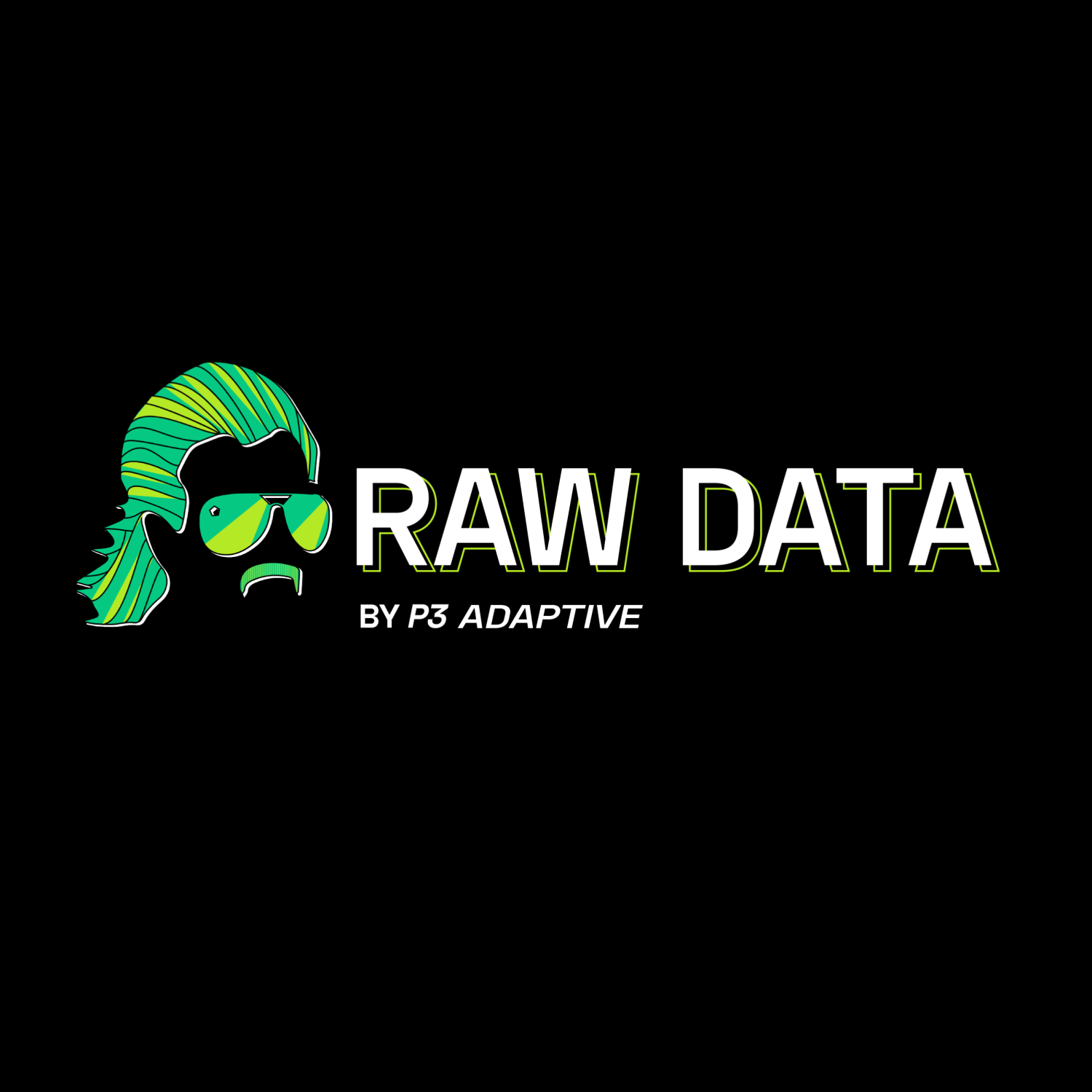
Adjacent and Between: Demystifying Digital Transformation with Power Apps and Power Automate
03.26.24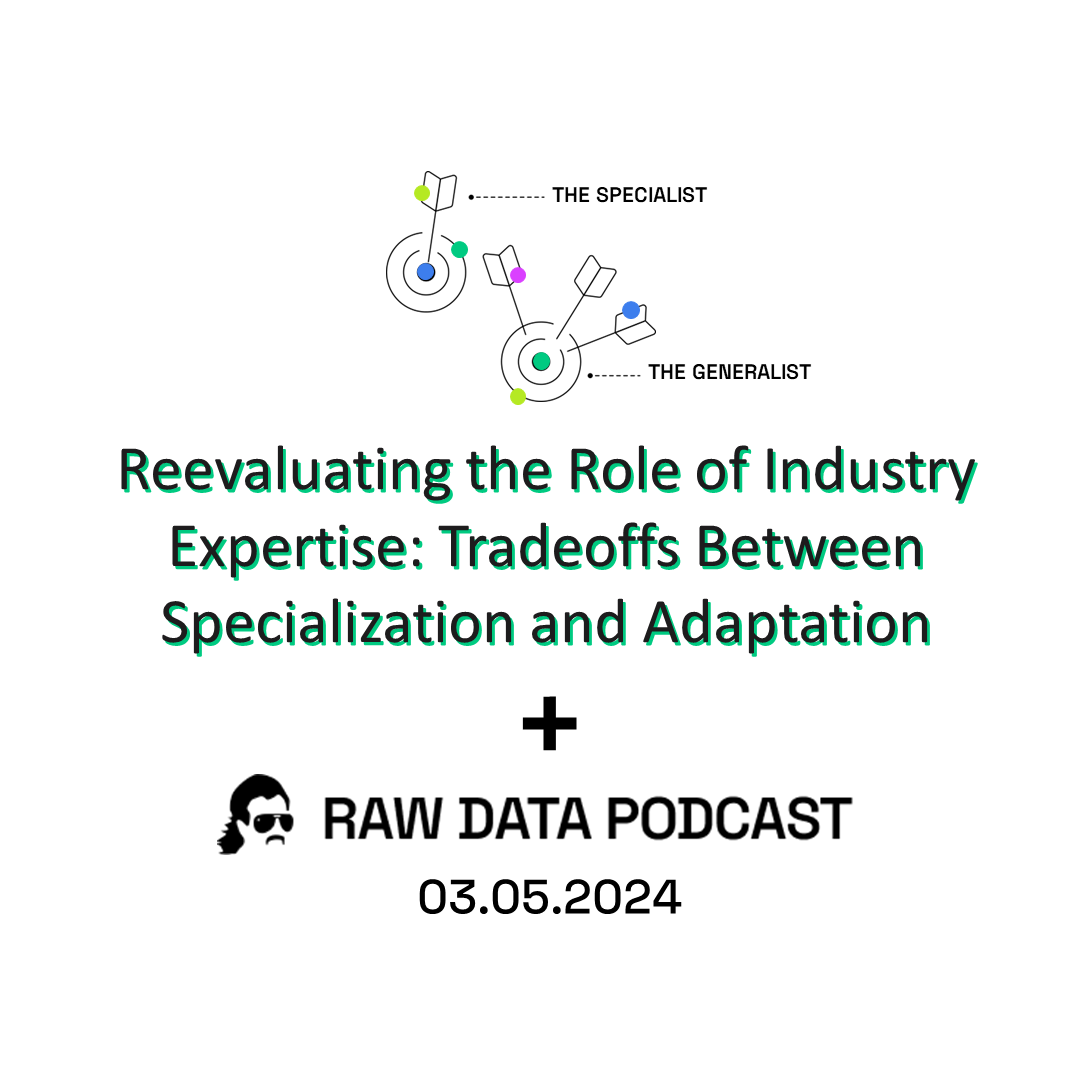
Reevaluating the Role of Industry Expertise: Tradeoffs Between Specialization and Adaptation
03.05.24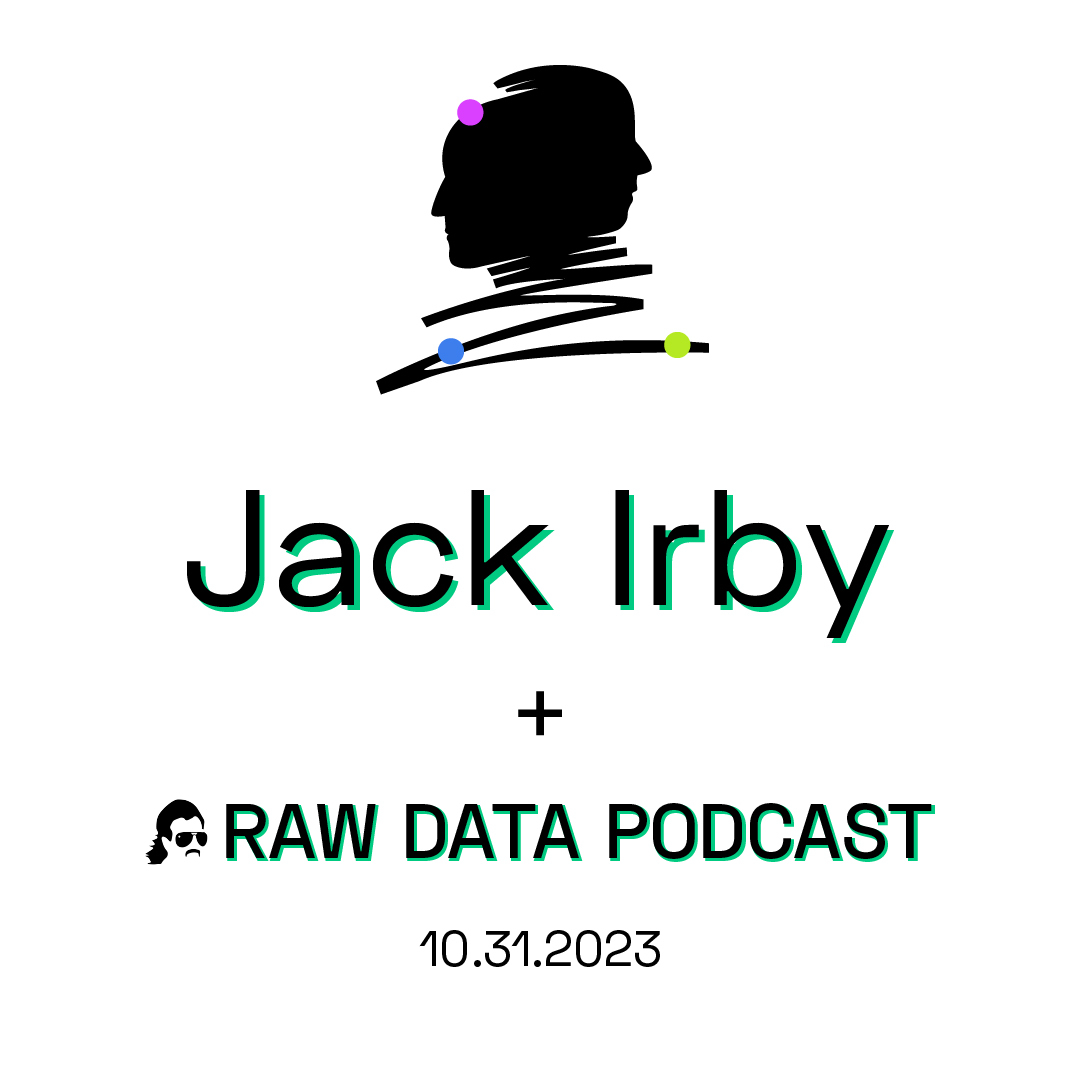
The Fruit of the Electric Grapevine: Industry-Leading Visibility on Limited Resources, w/ Jack Irby
10.31.23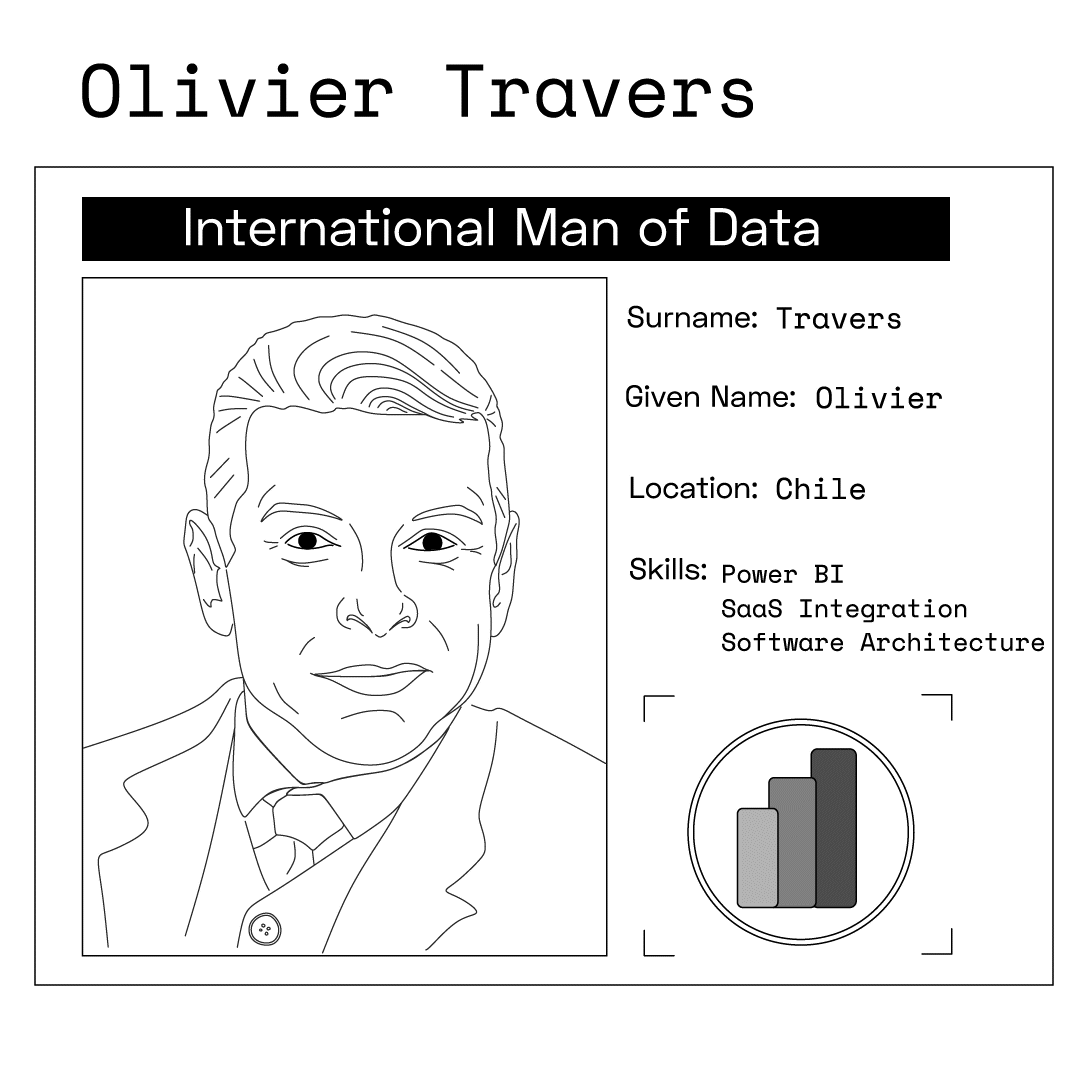
Stay Away from Guadalcanal, w/ Olivier Travers
MS Data Platform International Man Of Mystery
01.04.22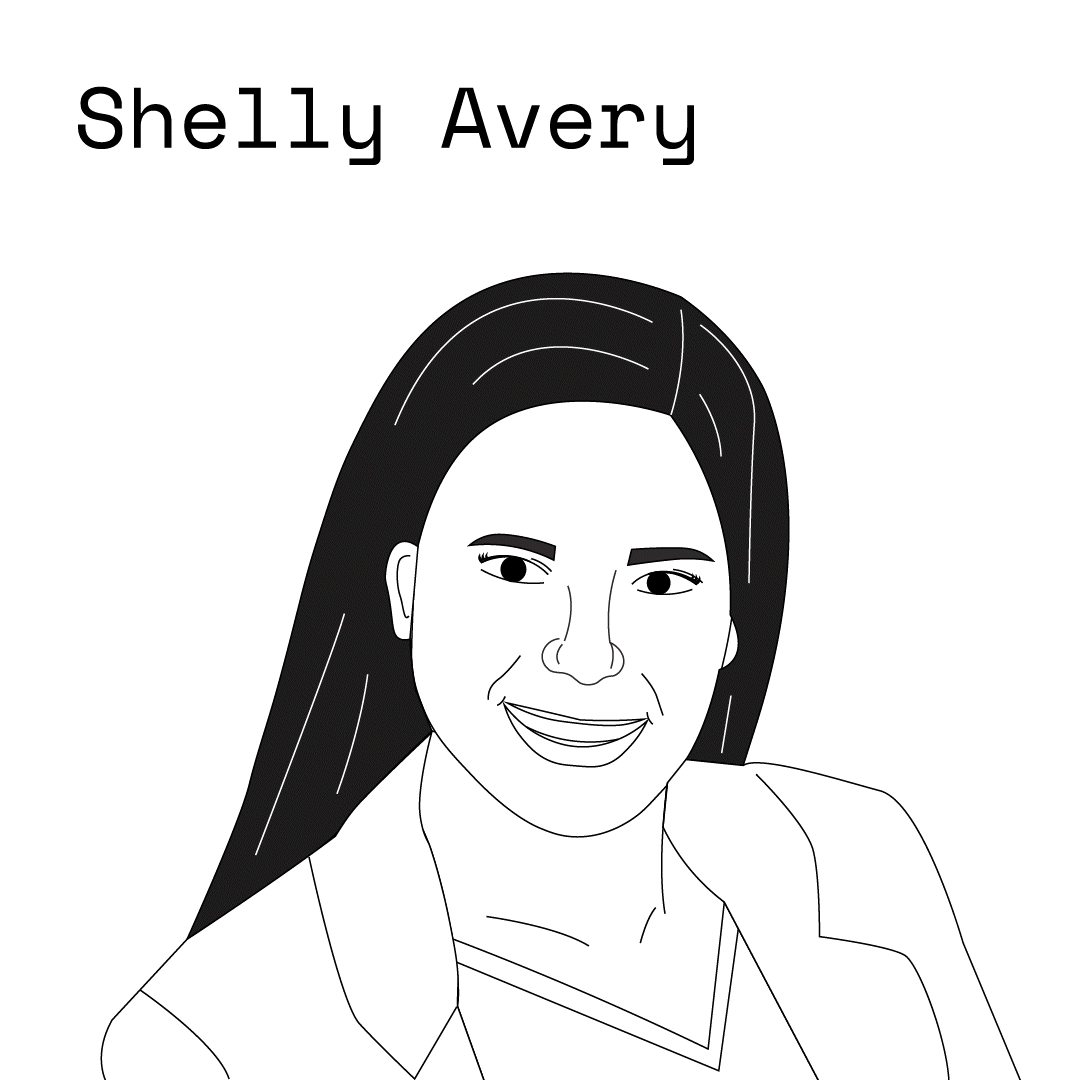
99% is the New Zero, w/ Microsoft Director Shelly Avery
Director-US Healthcare Specialist, Microsoft
09.14.21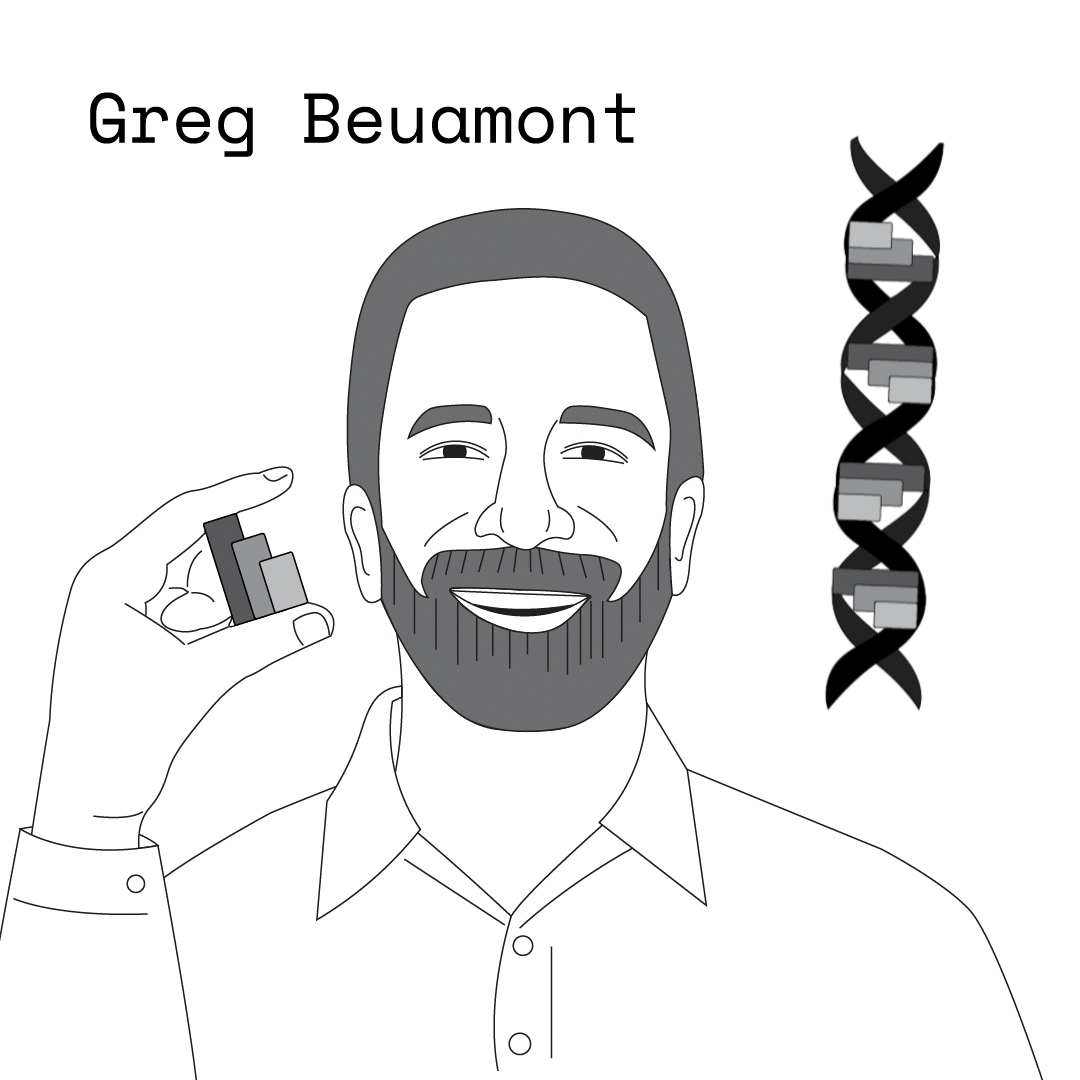
For Those About to DAX, w/ Microsoft’s Greg Beaumont
Senior Business Intelligence Specialist, Microsoft
08.17.21
Spreadsheet Celebrities & Power BI Playdates, w/ Chandoo
Hear from the Mozart of Excel Dashboards: Chandoo
08.10.21
The Data Lakehouse: Brick by Brick, w/ Databricks’ Denny Lee
Sr. Staff Developer Advocate, Databricks
08.03.21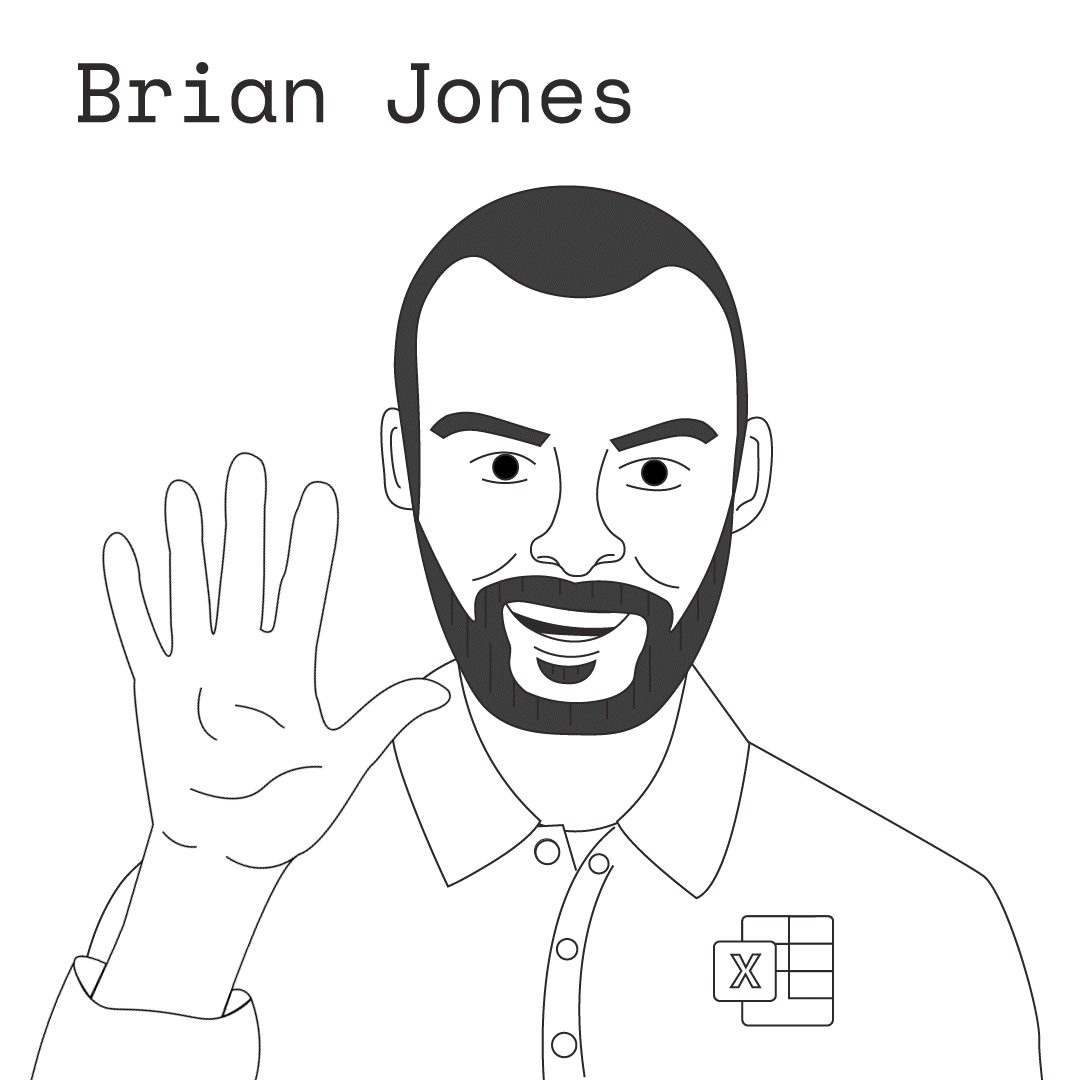
Excel Past/Present/Future, w/ Excel Head of Product Brian Jones
Head of Product, Excel-Microsoft
07.27.21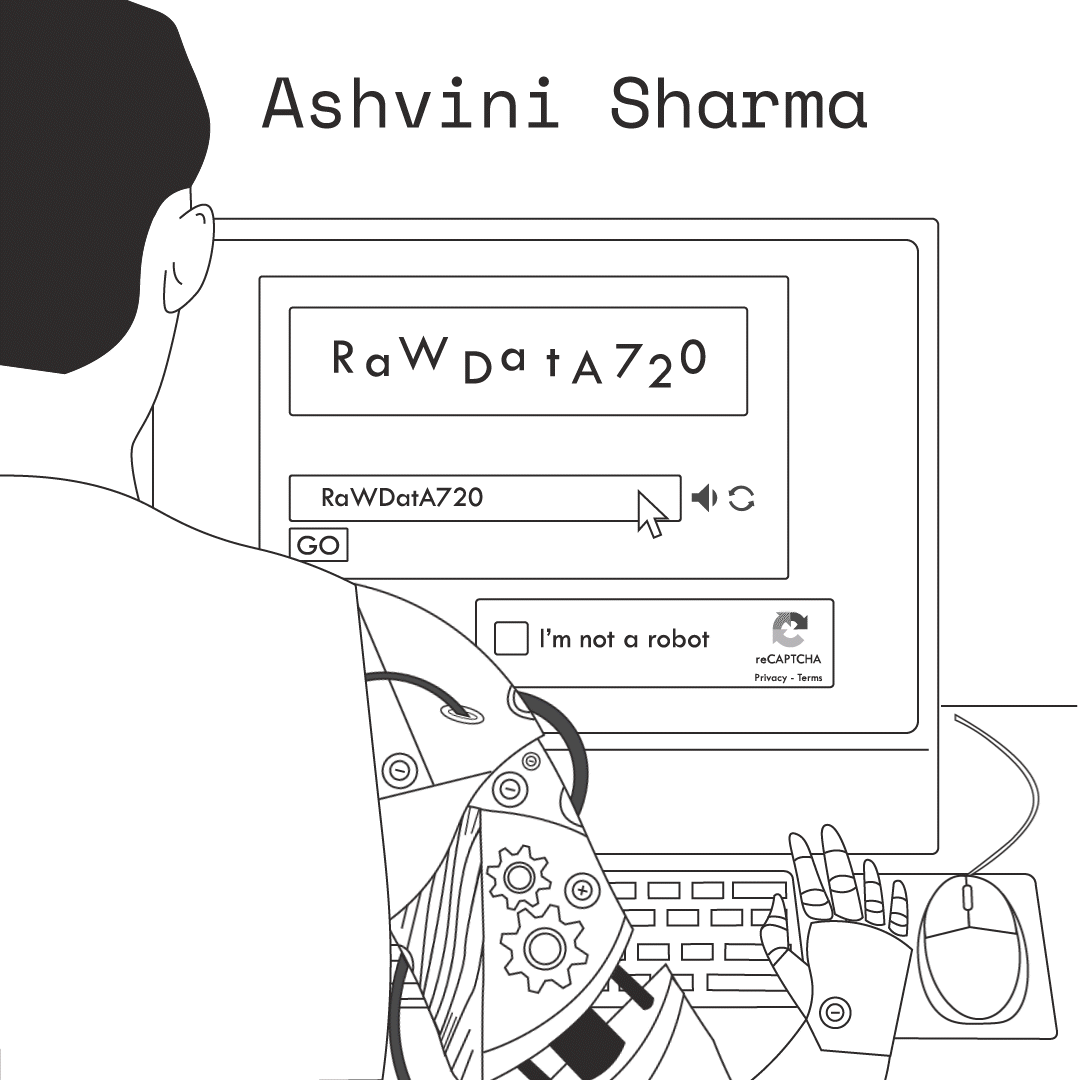
Robotic Process Automation for All, w/ Microsoft’s Ashvini Sharma
Group Program Manager-Power Automate RPA, Microsoft
07.20.21
COVID Basement Racquetball, w/ Microsoft’s Vishal Lodha
Strategic Account Director, Microsoft
06.03.21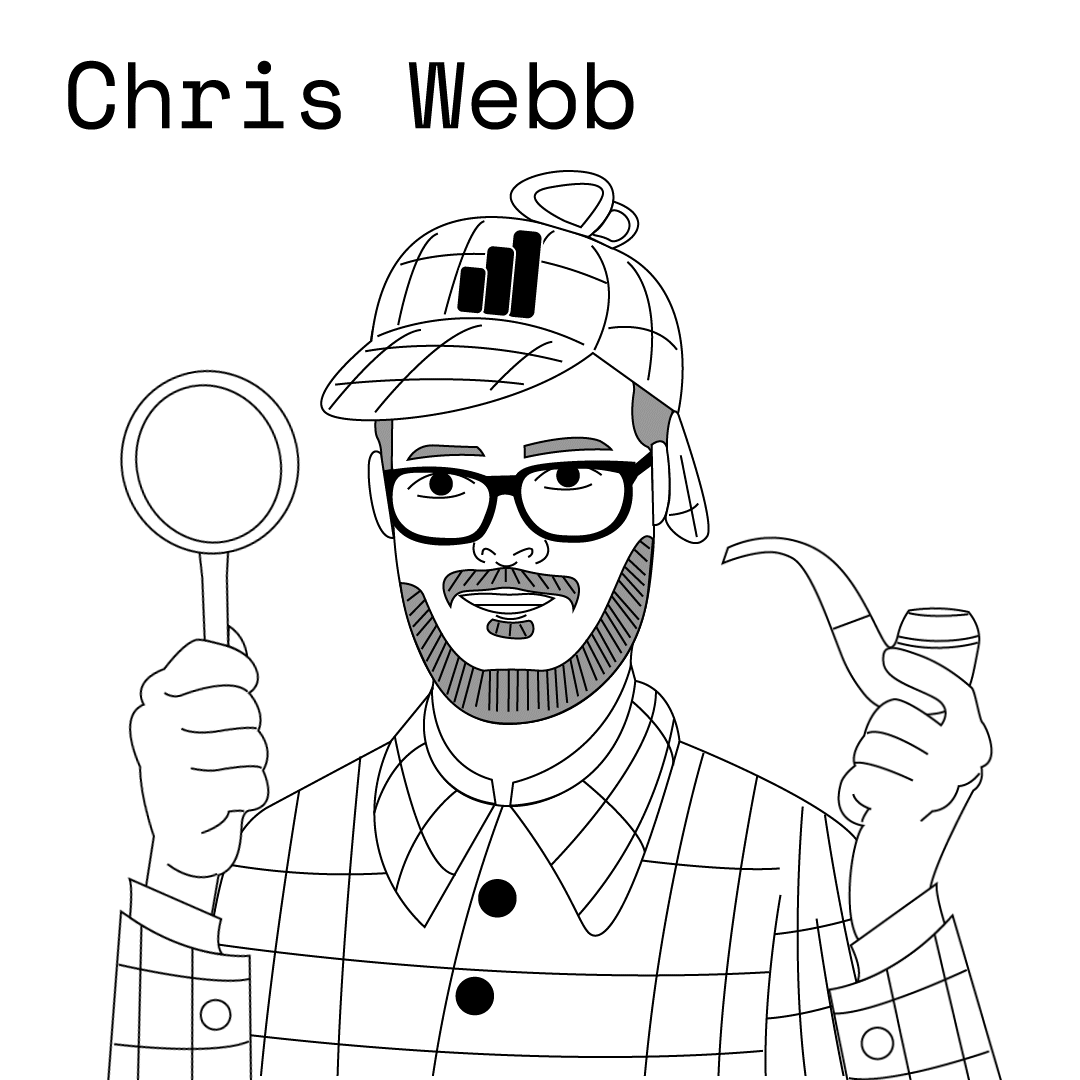
Surfing the Changing Seas of Data, w/ Microsoft’s Chris Webb
Principal Program Manager-Power BI Customer Advisory Team, Microsoft
06.01.21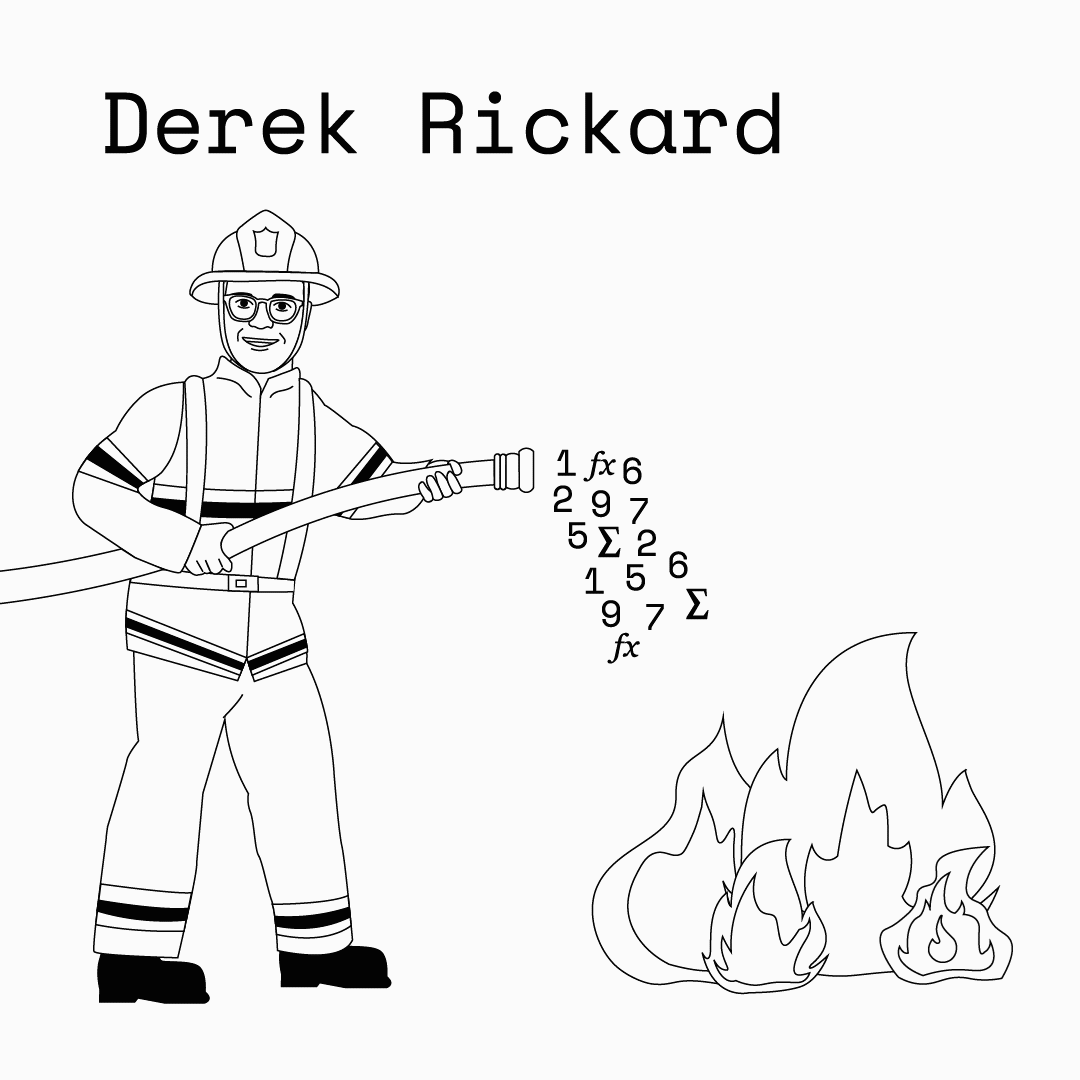
A Different Kind of Data Emergency, w/ Derek Rickard
Chief Data Officer, Emergency Reporting
05.04.21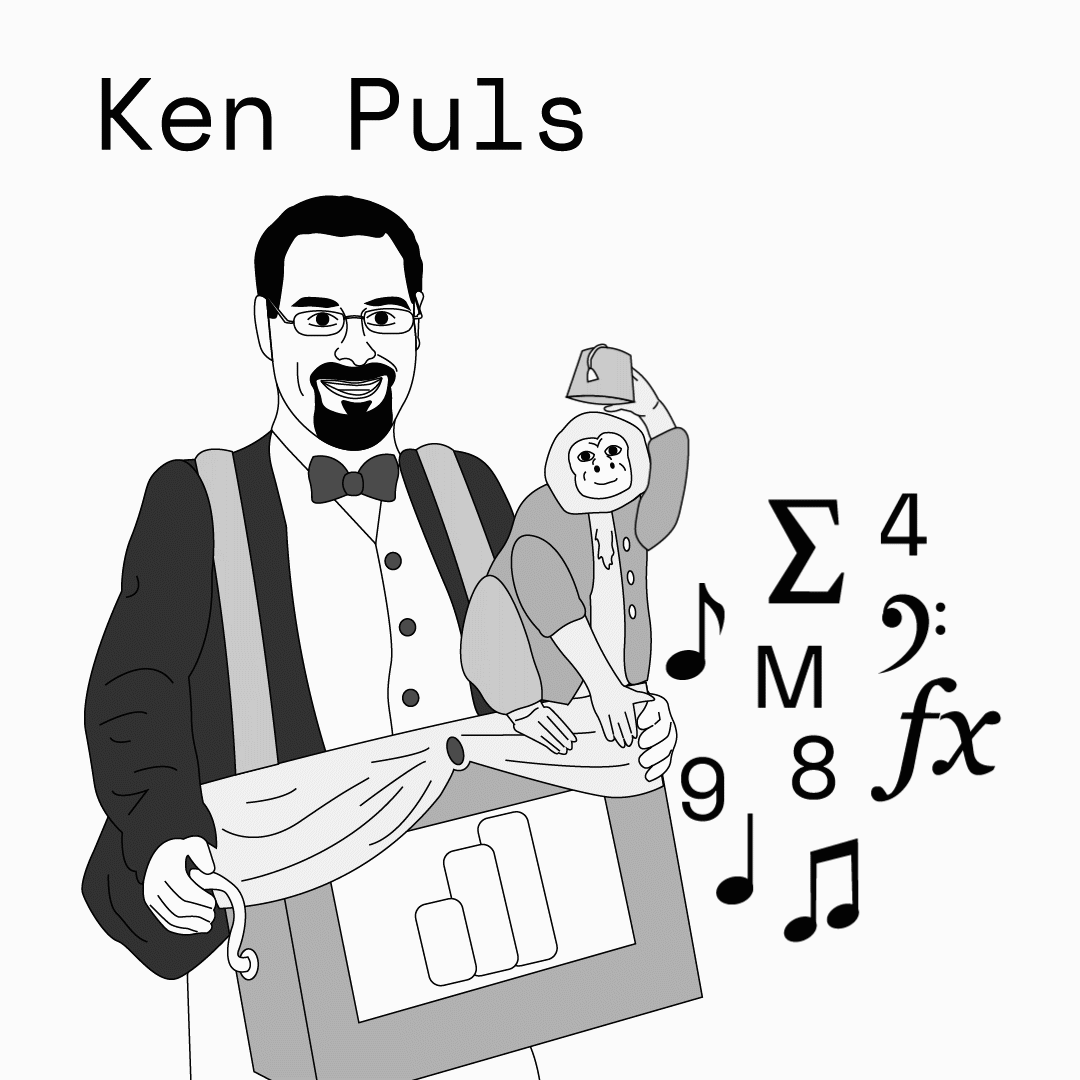
Earth’s Only Hope vs. Alien Excel Invaders, w/ Ken Puls
President and Chief Training Officer, Excelguru Consulting Inc.
04.27.21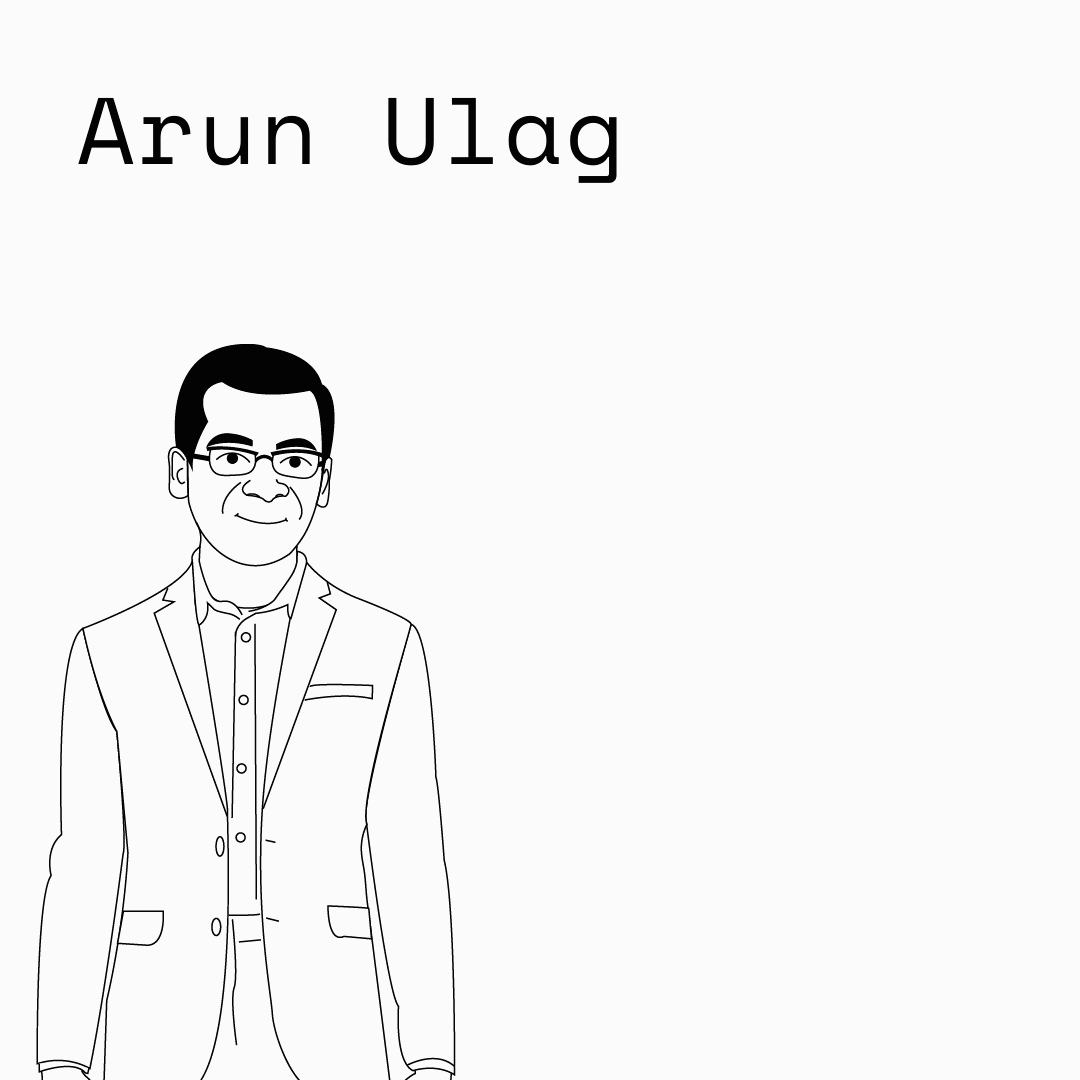
Intelligence Platform is a Cool Name, w/ Microsoft CVP Arun Ulag
Corporate Vice President of the Business Intelligence Platform at Microsoft
04.01.21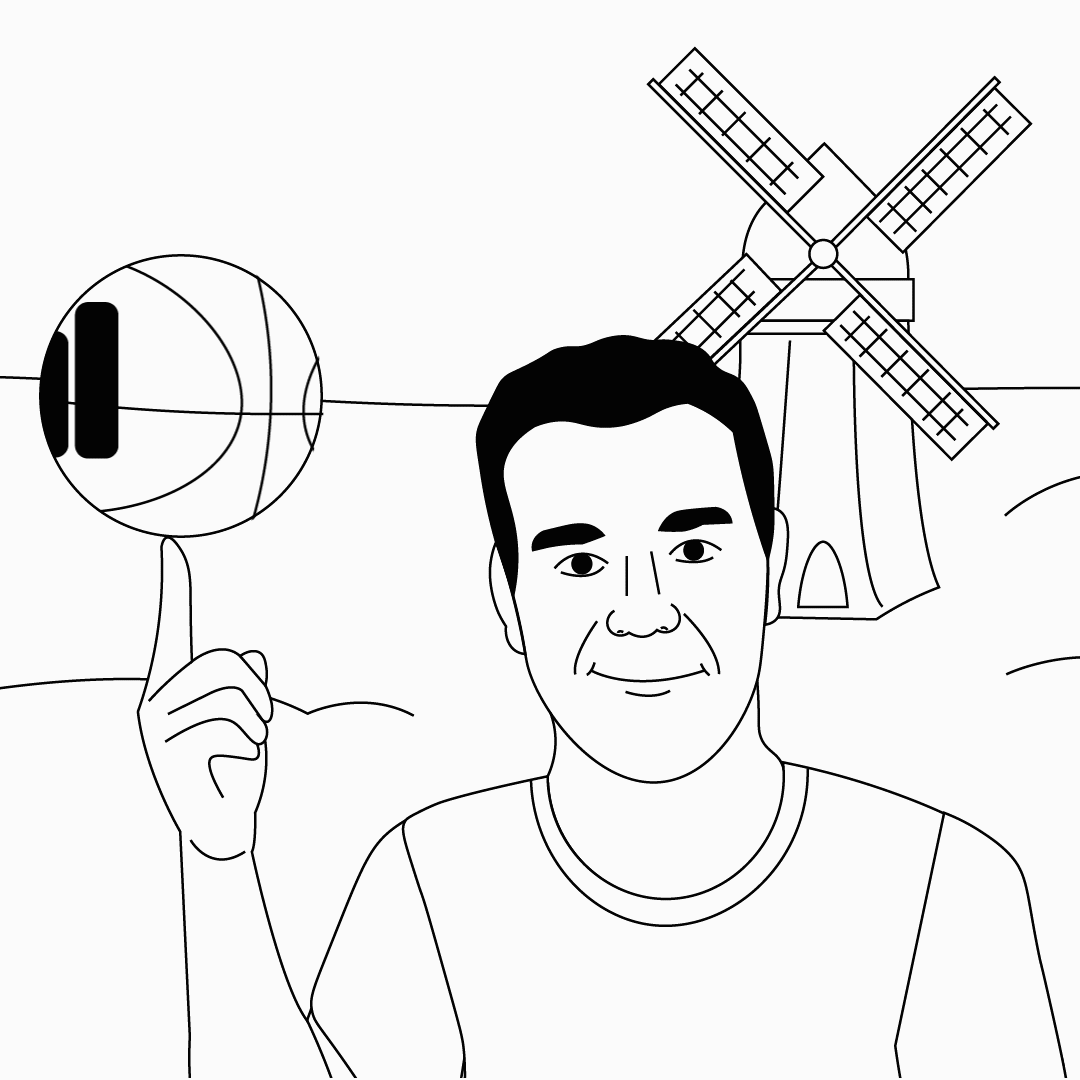
The Dutchman of Data Dunked on Me, w/ Kasper de Jonge
Analytics Advisor and Principal Program Manager-Power BI, Microsoft
03.23.21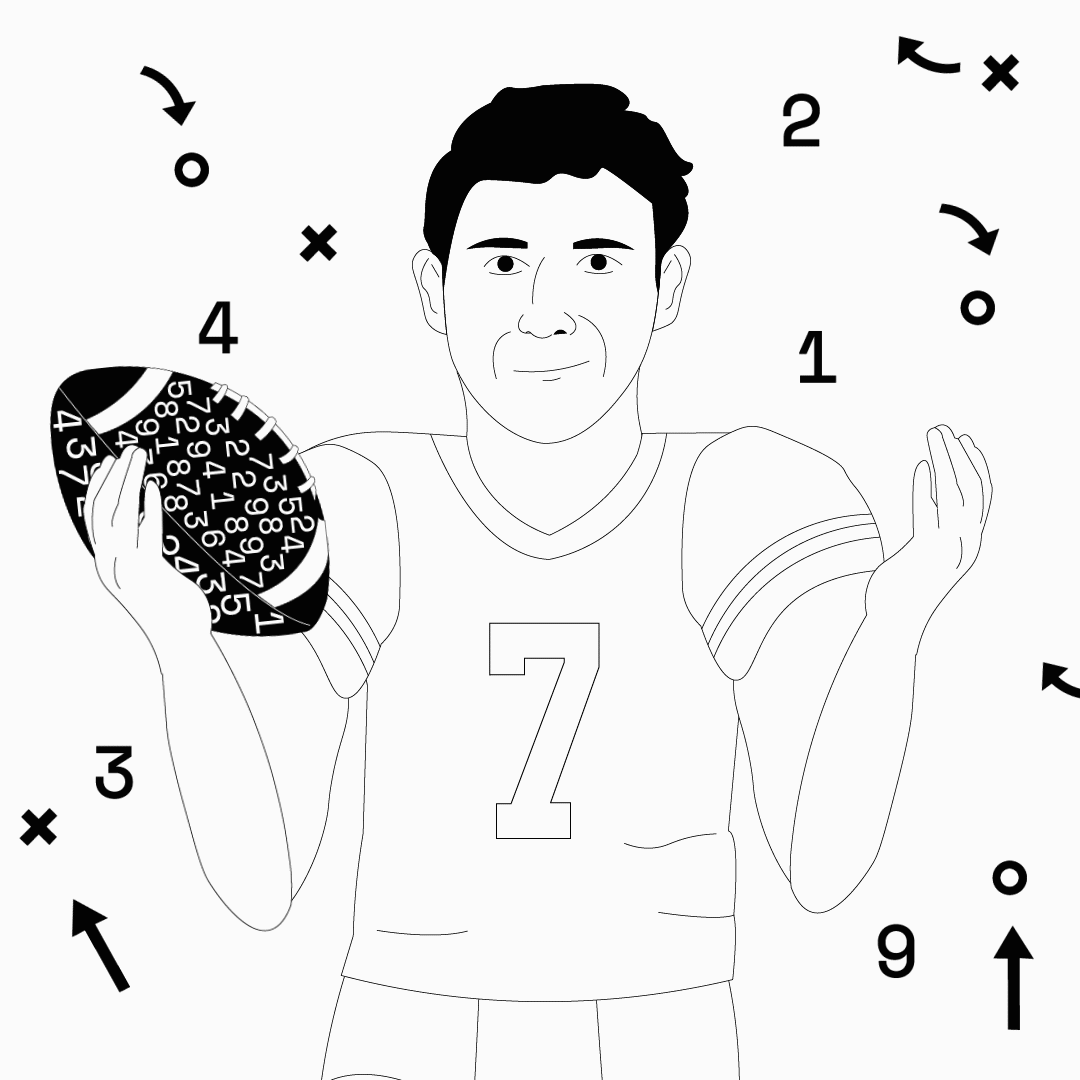
Everyone’s in the Middle, w/ Former NFL QB Hugh Millen
Former NFL Quarterback and Data Nerd
03.09.21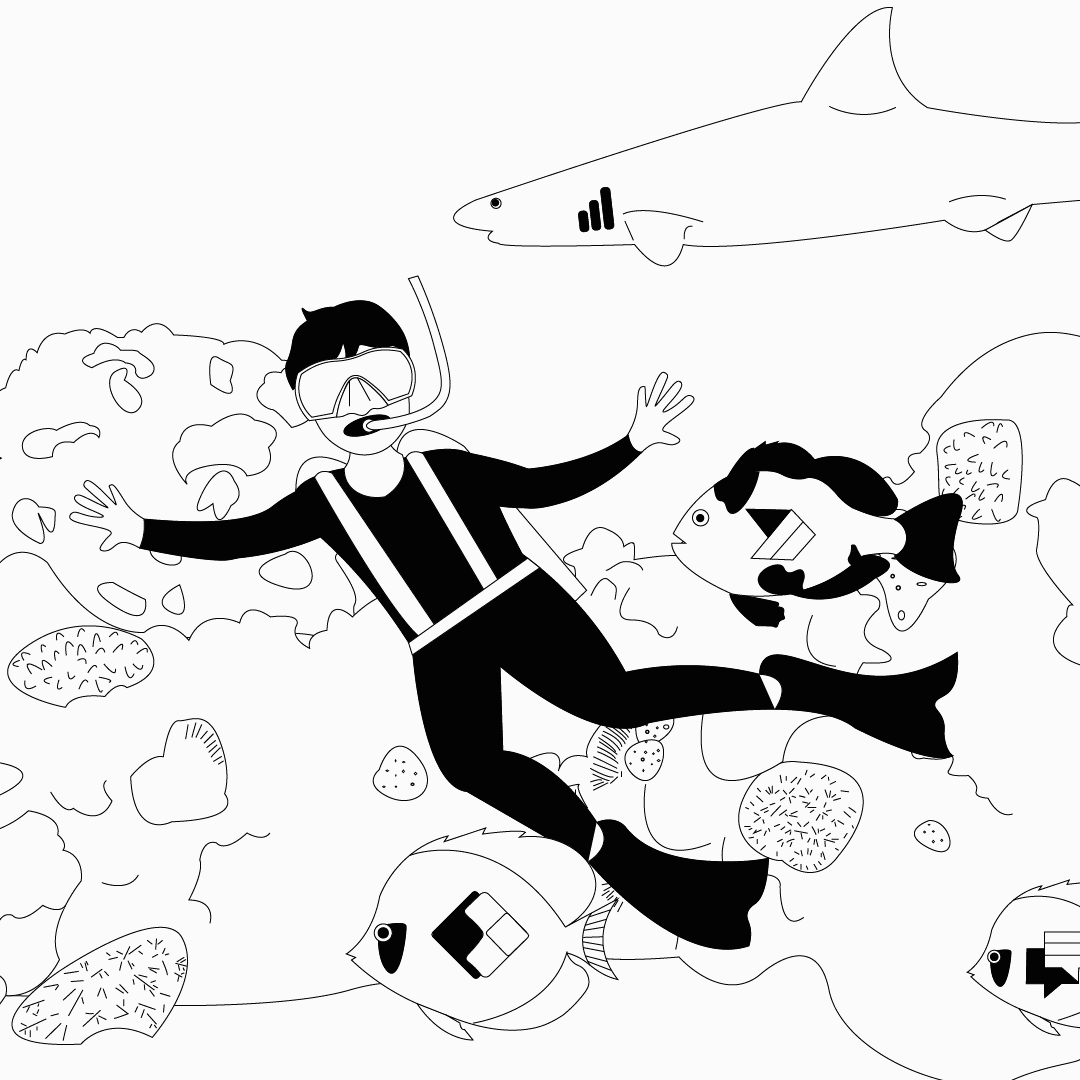
Marine Biology Leads to Power Platforming, w/ Chuck Sterling
Senior Program Manager, Microsoft
02.23.21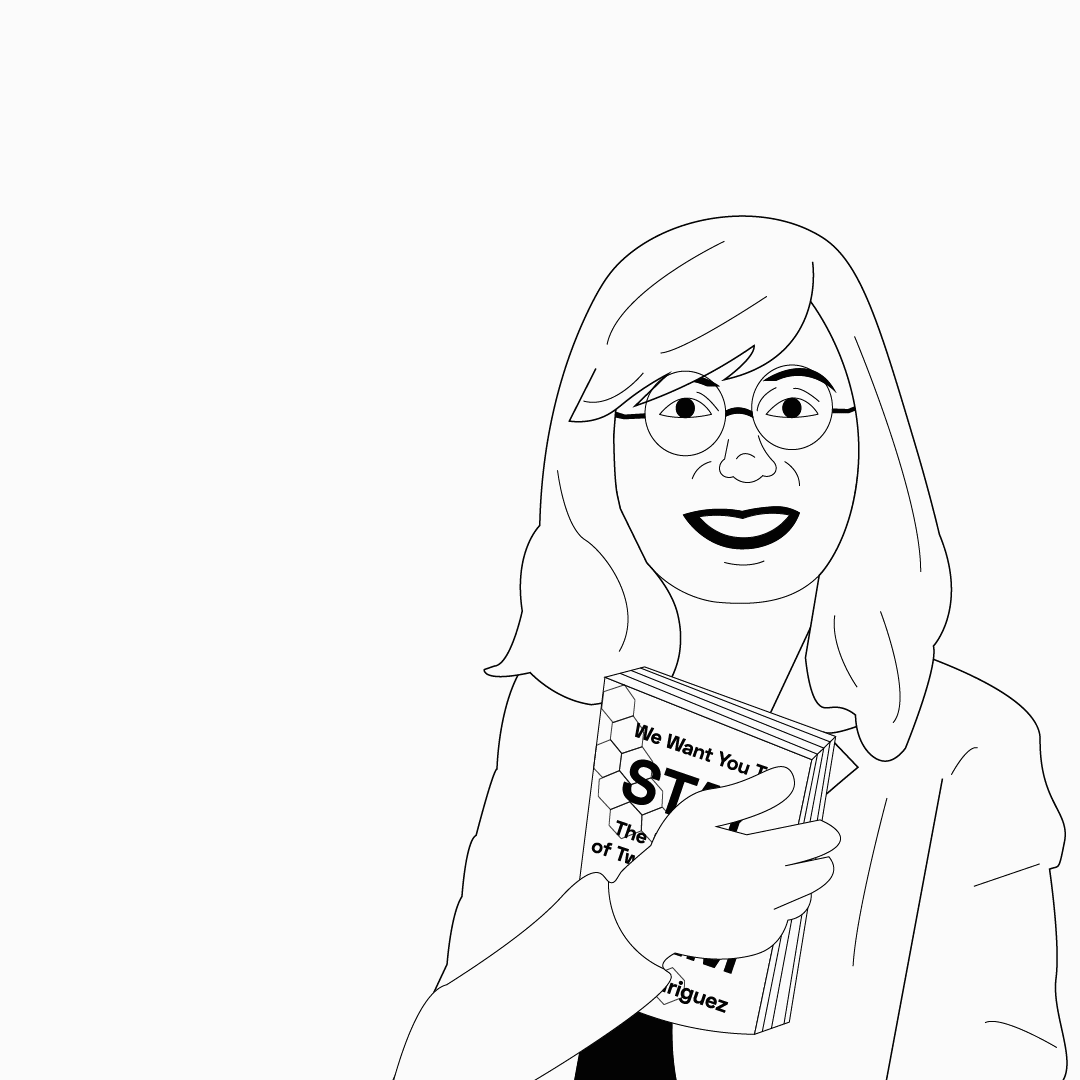
Data Chefs Can Come From Anywhere, w/ Gartner’s Lori Rodriguez
Vice President Executive Programs at Gartner
01.26.21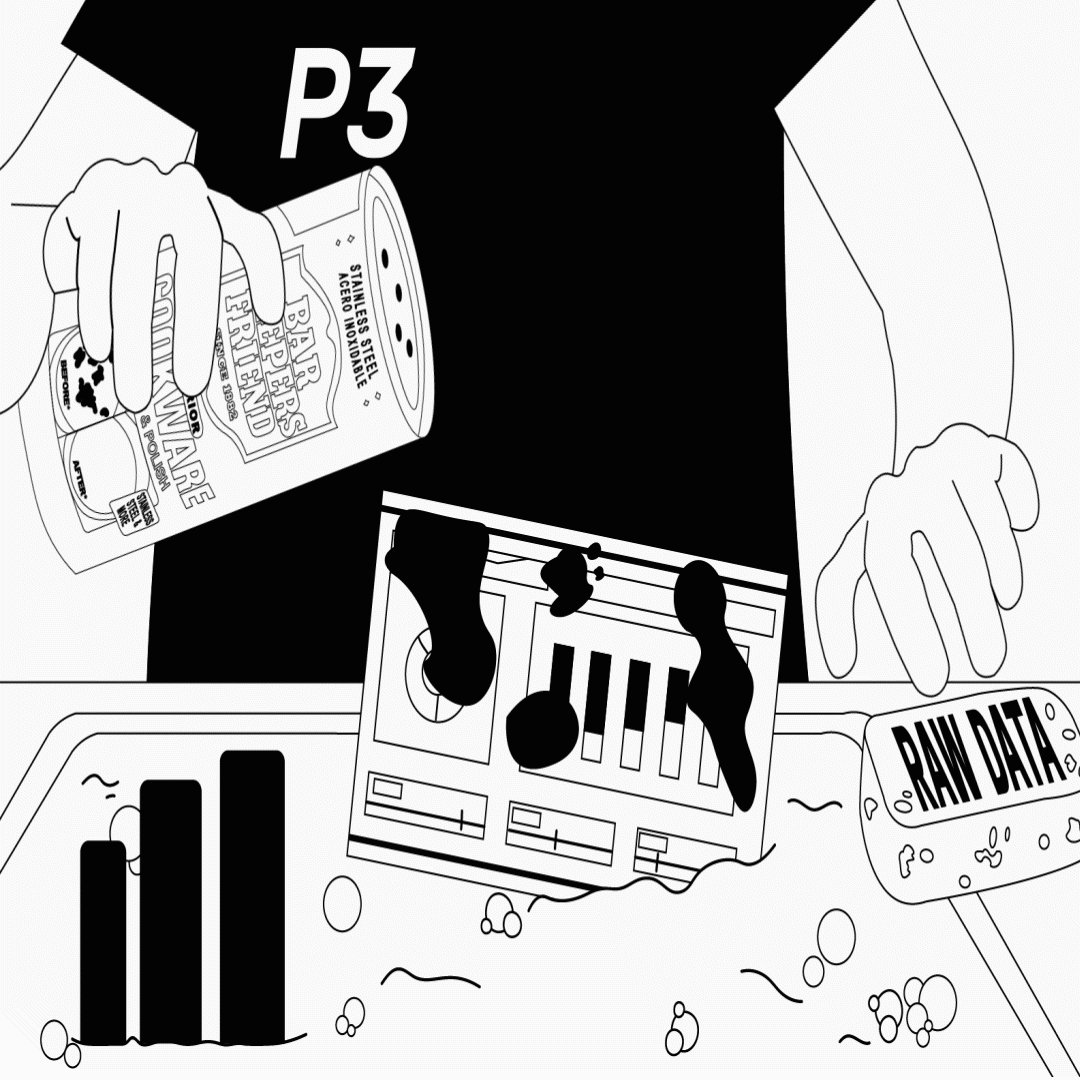
Scrubbing Data & Beating COVID, w/ Matt Selig of Bar Keepers Friend
Exec. Vice President, Chief Financial Officer & Chief Human Resources Officer at SerVaas Labs
01.05.21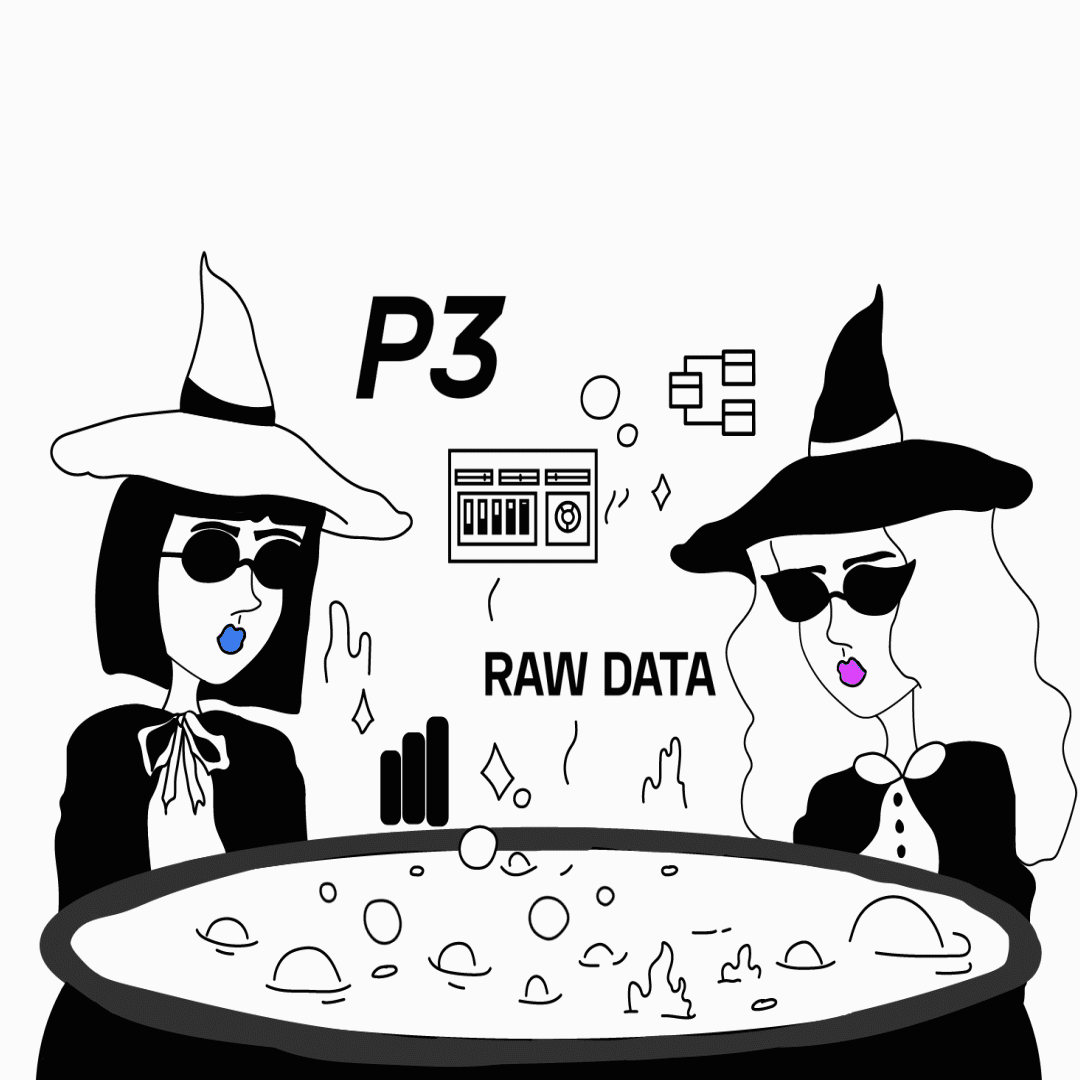
The Data Witches, w/ Shannon Lindsay & Stephanie Bruno
Shannon Lindsay-Microsoft Certified Data and Analytics Professional &
Stephanie Bruno-Associate Director of Informatics at the Elizabeth Glaser Pediatric AIDS Foundation (EGPAF)
12.22.20
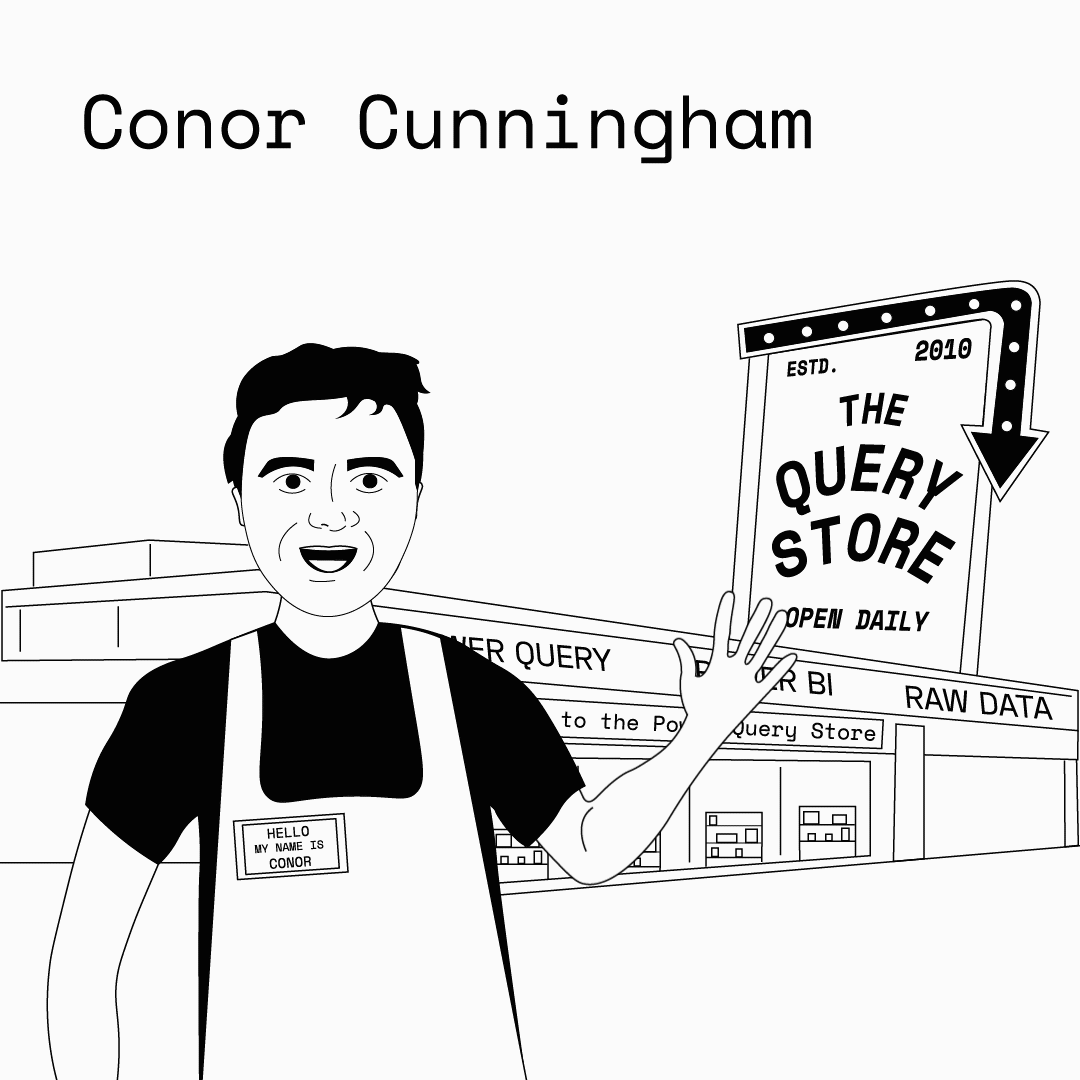
The Query Store’s Open for Biz, w/ Microsoft’s Conor Cunningham
Partner Software Architect, SQL Server Engine-Microsoft
12.15.20One of the World’s Most Amazing Humans, w/ Matt Allington
Power BI Consultant, Trainer, & Microsoft MVP
12.01.20